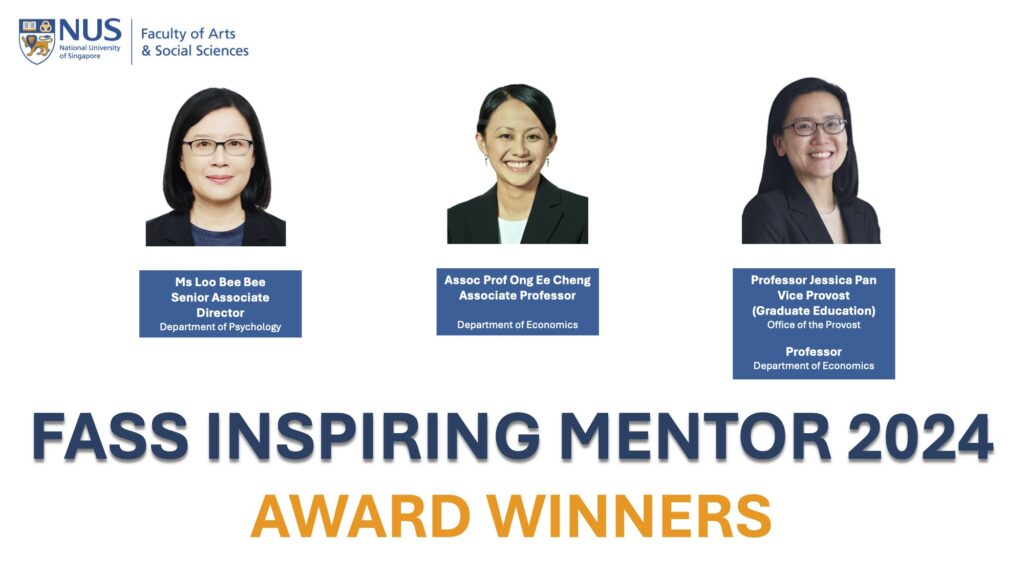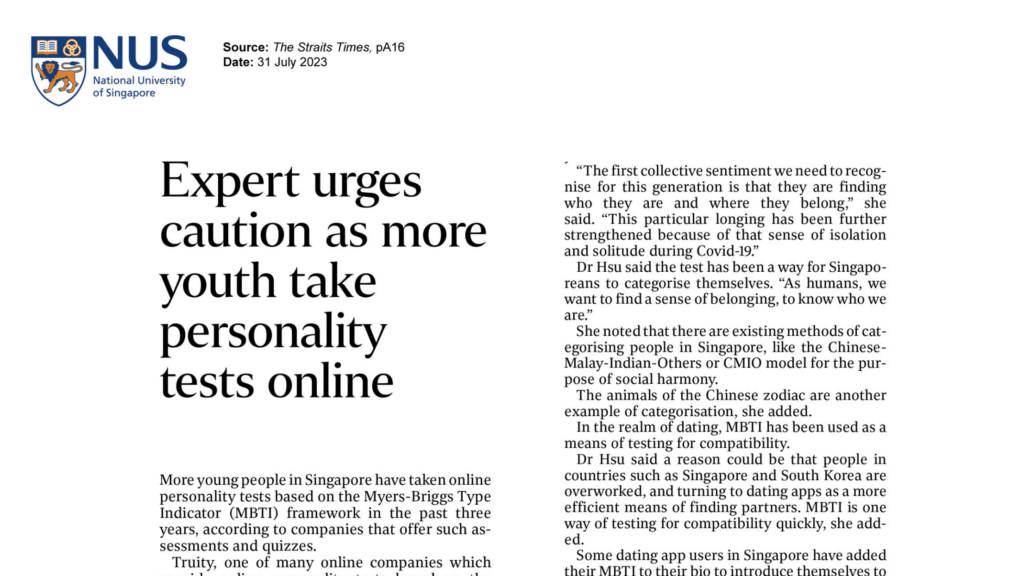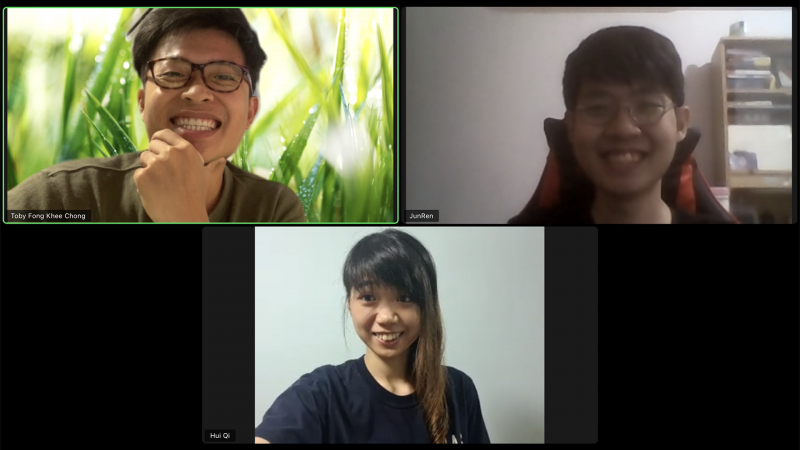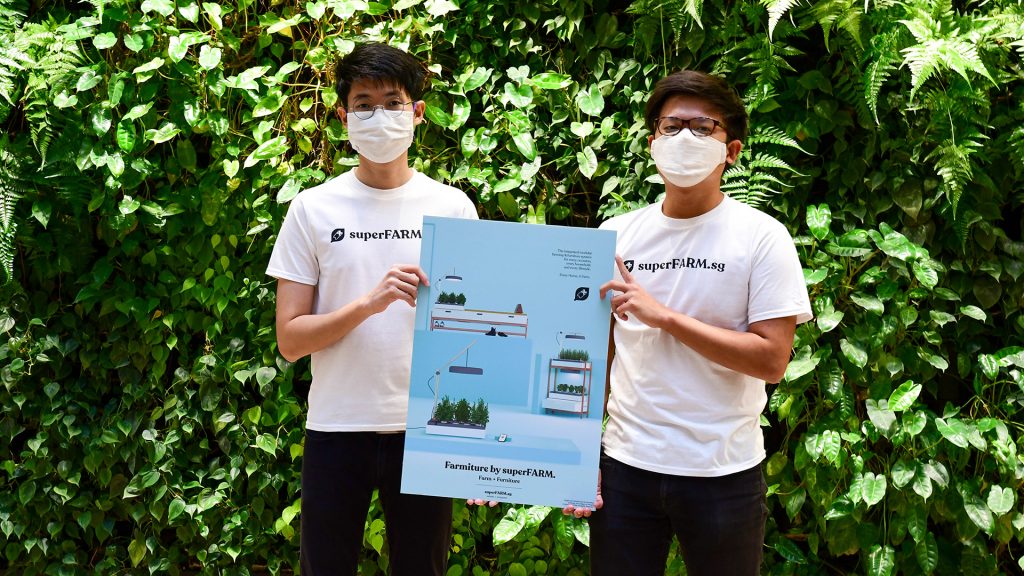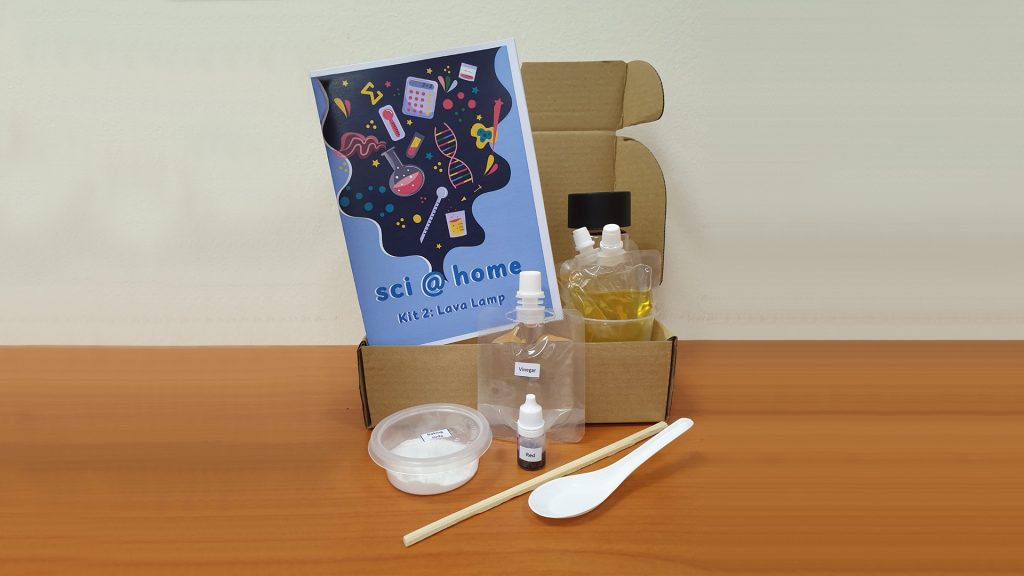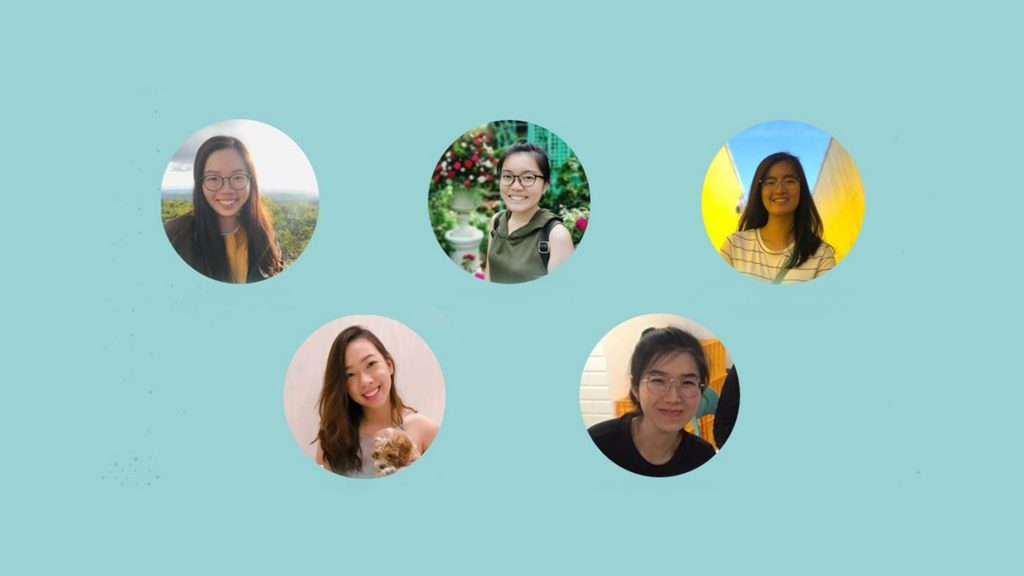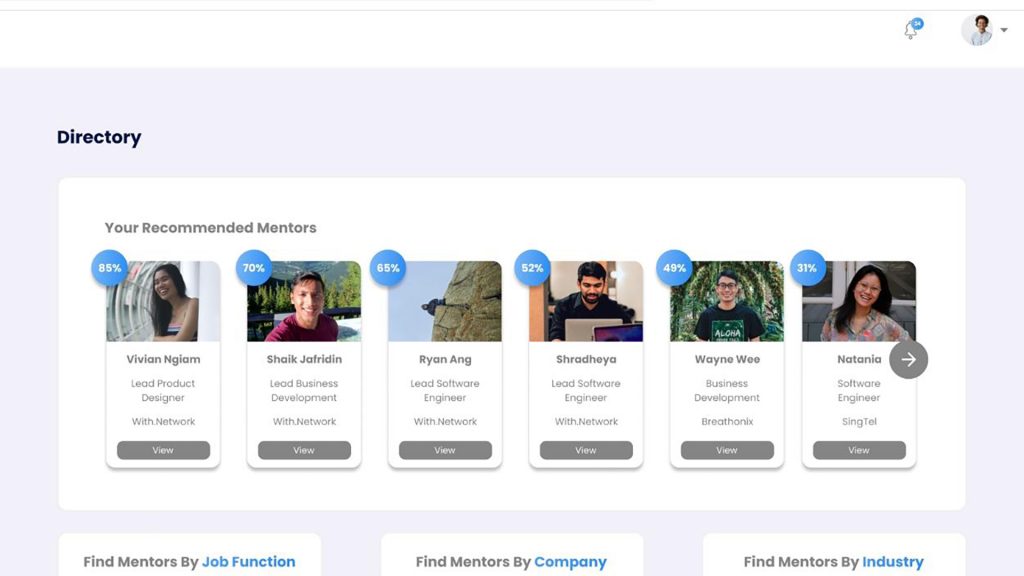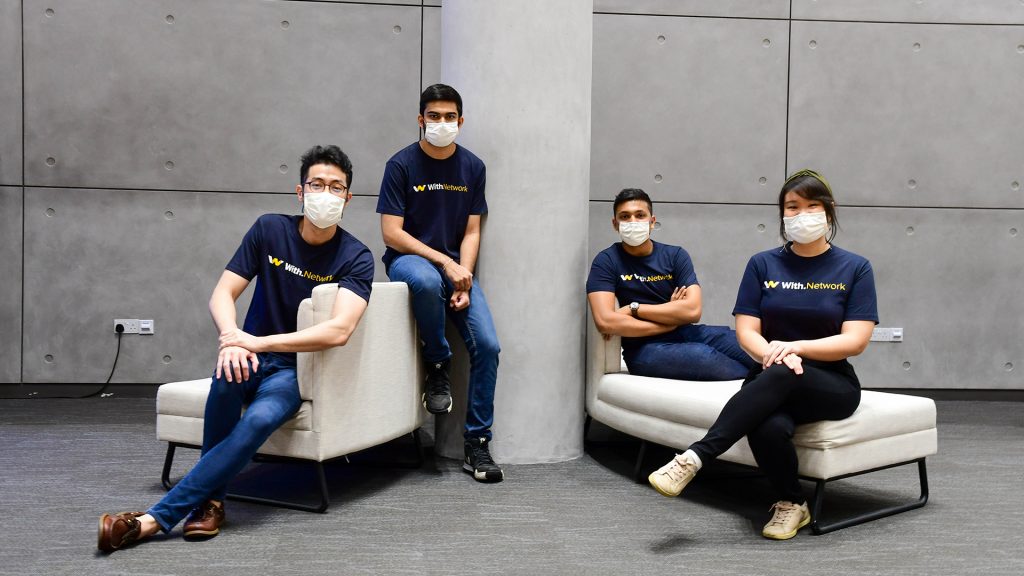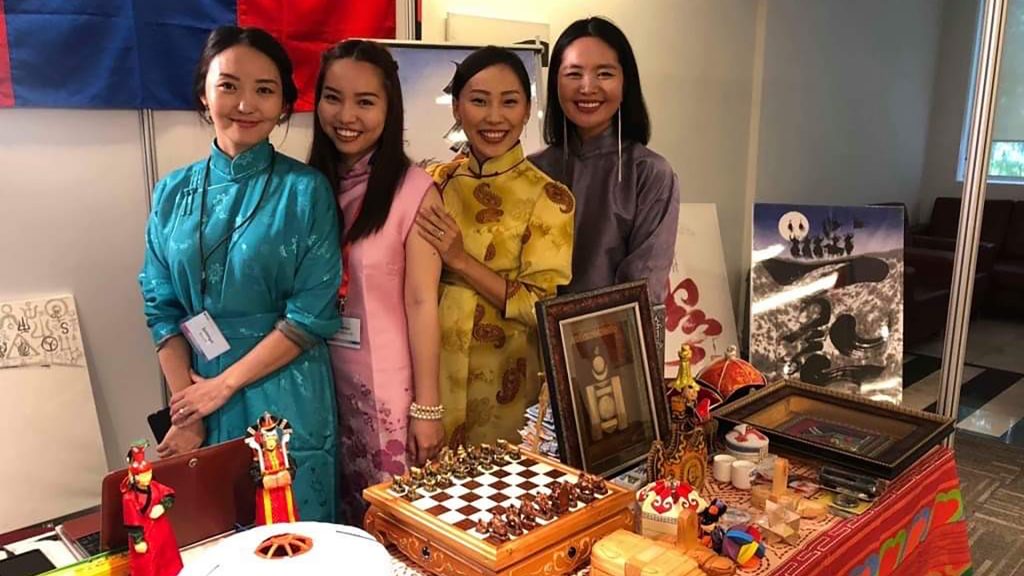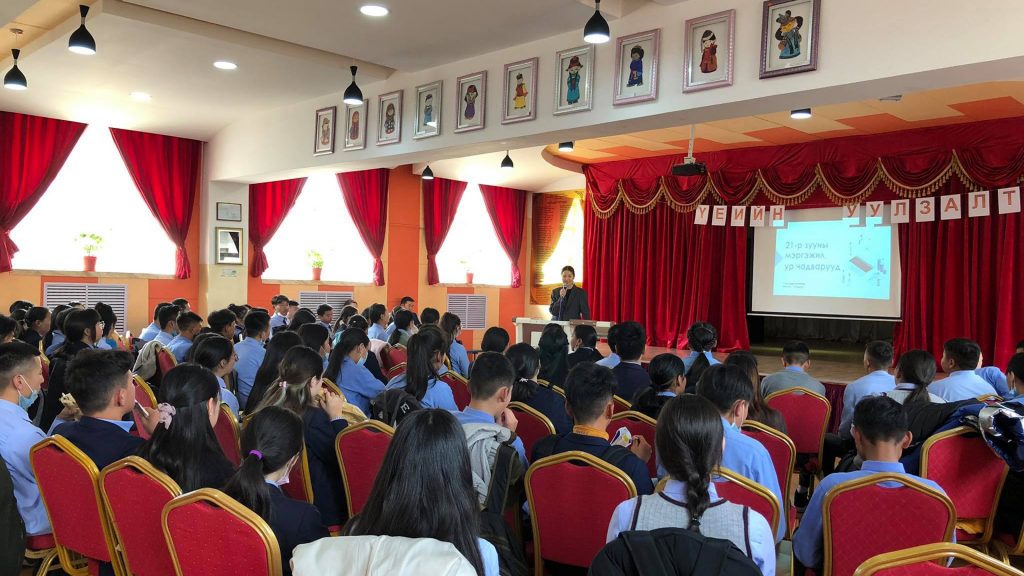News
When Objective Ambivalence Predicts Subjective Ambivalence: An Affect–Cognition Matching Perspective
Have you ever experienced mixed feelings? Objective ambivalence occurs when someone holds both positive and negative evaluations toward the same object. It is typically measured by averaging separate unipolar scales for positive ("P") and negative ("N") reactions. The degree of ambivalence is then calculated using the Thompson et al. (1995) formula: [(P+N)/2 – (P-N)], with higher values indicating greater ambivalence. Subjective ambivalence, on the other hand, pertains to the extent of feeling conflicted towards the same object. Contrary to popular belief, the correlation between objective and subjective ambivalence is weak. In ‘When Objective Ambivalence Predicts Subjective Ambivalence: An Affect–Cognition Matching Perspective’ (Personality and Social Psychology Bulletin, 2023), Reiner Ng, Associate Professor Michelle See Ya Hui (both NUS Psychology), and Dr. Laura E. Wallace (George Mason University) examine how encountering affective versus cognitive messages influences the relationship between objective and subjective ambivalence, and how this, in turn, affects attitude strength properties.
The study investigates how the alignment between different message types and an individual's dominant attitude basis affects the relationship between objective and subjective ambivalence. Affective messages, such as charity advertisements, utilise vivid imagery and storytelling to evoke emotional responses. In contrast, cognitive messages, like those found in public health campaigns, prioritise the delivery of information and factual content. These differing message types influence how individuals interpret them, leading to the experience of either emotional attitudes- rooted in feelings and affective responses toward an issue- or cognitive attitudes, which are based on beliefs, thoughts, and knowledge about a particular object or issue. Messages are considered matched when their type aligns with an individual's attitude basis, which can influence the correlation between objective and subjective ambivalence.
The researchers found that participants from both Singapore and the United States demonstrated stronger relationships between objective and subjective ambivalence when exposed to matched messages compared to mismatched ones. These effects were particularly pronounced among individuals who received messages that opposed their existing attitudes. In a cross-cultural context, the study highlights significant differences between Singaporean and American respondents: those from Singapore, representing an Eastern culture, tend to favour emotional messages, while those from the U.S., reflecting Western culture, often prefer cognitive messages. Furthermore, East Asians generally exhibit greater comfort with holding conflicting thoughts and feelings compared to their Western counterparts.
To encourage recipients to take corrective actions, the researchers emphasise the importance of considering the strength of their attitudes in addition to the attitudes themselves. This is especially critical for counterattitudinal messages, which aim to challenge existing beliefs or behaviours. Even if individuals do not change their attitudes toward a negative behaviour, such as consuming sweetened drinks, these messages can weaken their emotional attachment to that behaviour, such as consuming sweetened drinks, thereby reducing the likelihood of engaging in their initial inclinations. Conversely, persuasive messages promoting flu vaccination can effectively decrease resistance and increase acceptance, even among those who are initially sceptical. By framing the message in a way that resonates with the audience's values and beliefs, it can foster a more favourable attitude toward vaccination. These results should prove useful to policymakers and advertisers, informing their workplace strategies.
Read the article here.

Lohsnah Jeevanandam
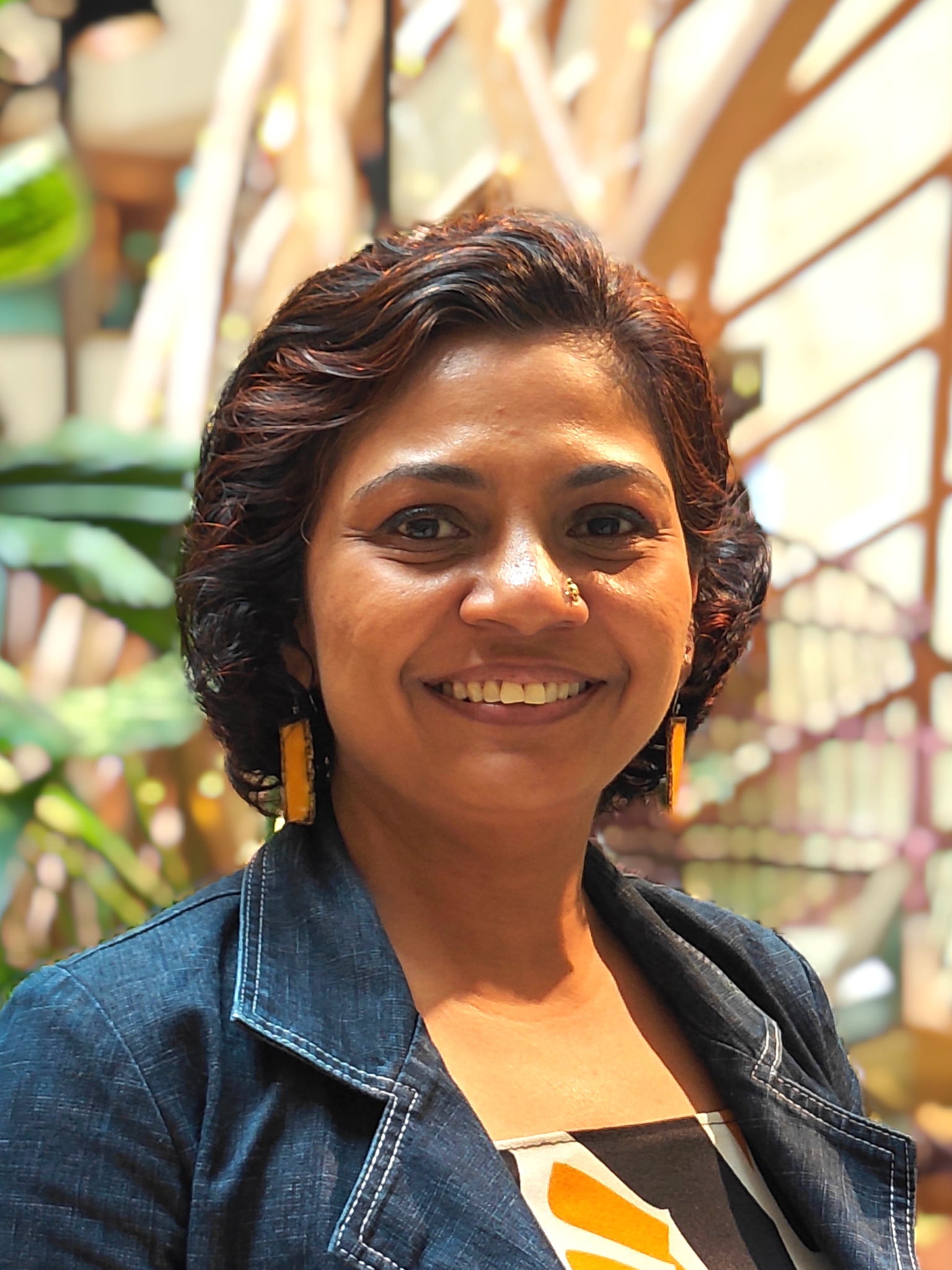
Doctorate in Clinical Psychology
University of Queensland
| Availability: |
🗓️ Wednesdays, 5:00pm to 9:00pm |
| Services Available: |
Therapy
|
For enquiries on additional services, please email us at chpc.enquiries@nus.edu.sg.
| Clinician Profile |
|
With over 20 years of experience, Dr. Lohsnah is a Doctoral-level Clinical Psychologist who has served extensively in Singapore's social service and academic sectors. She holds a strong background in public service, having spent a decade as a Senior Psychologist at the Movement for the Intellectually Disabled of Singapore (MINDS) and later shaping future clinicians as a Programme Director at the National University of Singapore (NUS). In her private practice, Dr. Lohsnah provides authentic, compassionate care for children, adolescents, and adults facing anxiety, depression, and self-esteem issues. She is specifically renowned for her expertise in 'Dual Diagnosis'-supporting neurodivergent individuals who face co-occurring mental health challenges (comorbid conditions). utilizing evidence-based interventions like the Triple P (Positive Parenting Programme), she works closely with families to navigate complex emotional and behavioural needs. |
NUS: Reprogrammed for Tomorrow

Among the courses on governments and Singapore politics that first-year political science student Tan Yong is taking, one involved trooping down to the headquarters of superapp Grab to observe how operations staff are using AI algorithms. The brand-new course Machines that Learn is being offered to the pioneer cohort of 220 residents at Acacia College, Singapore's first AI-focused university residential college.
"It was eye-opening because seeing AI at work helped me contextualise its capabilities," said Tan Yong, 21, who chose Acacia College because he wanted to stay on top of AI developments. "I saw how AI was used to produce reviews for the businesses that were subscribed to Grab's services."
First-year law student and fellow resident Choo Hao Wen, 21, who joined the 18-student trip, added, "The Large Language Models (LLMs) that they used relate to words, syntax and language-and they are pertinent to law. It's good to be wary of what AI has in store for us."
AI has already changed and will continue to change the world. Singaporeans seem particularly partial to the technology: recent data from OpenAI showed that the country has the highest per capita ChatGPT usage globally - one in four people use it weekly.
Within higher education, AI has had an outsized impact. The turning point occurred when AI chatbot ChatGPT, the first of its kind, became publicly available in November 2022. A New York magazine article stated, "ChatGPT has unravelled the entire academic project", quoting a study suggesting that just two months after its launch, 90 percent of US college students were using ChatGPT to help with assignments.
Vacillating between fears of student cheating and the potential AI offers, universities worldwide responded either by banning AI altogether, embracing it entirely, or taking a middle path. NUS, as a university that prizes innovation, had explored AI much earlier. The NUS Artificial Intelligence Laboratory was started in 2019. In the opinion of Professor Simon Chesterman - the NUS Vice Provost (Educational Innovation) and Senior Director of AI Governance at AI Singapore - the best thing NUS has done when it comes to AI has always been "to encourage experimentation".
What the launch of ChatGPT did was to accelerate, deepen and consolidate the University's efforts to harness AI in the most effective and responsible way possible.
Said NUS President Professor Tan Eng Chye: "NUS is mounting a robust and comprehensive approach to AI that spans our core mission areas of education, research and innovation, and administration. NUS will empower and uplift the whole organisation to fully leverage AI in all that we do." The goal? Prof Tan replied, "To set NUS up to be a leading institution at the forefront of AI."
An AI Research PowerhouseA major milestone was in the setting up of the NUS AI Institute (NAII) in March 2024, which brought all of NUS' existing AI research initiatives and talent under one roof. Comprising 29 Leads and over 200 faculty members, their three focus research areas are: foundational AI research, policy and societal implications of AI, and real-world applications across various domains. NAII also launched the NAII Seed Grant Call, which will disburse up to S$3.2 million per year to high-potential AI projects in NUS.
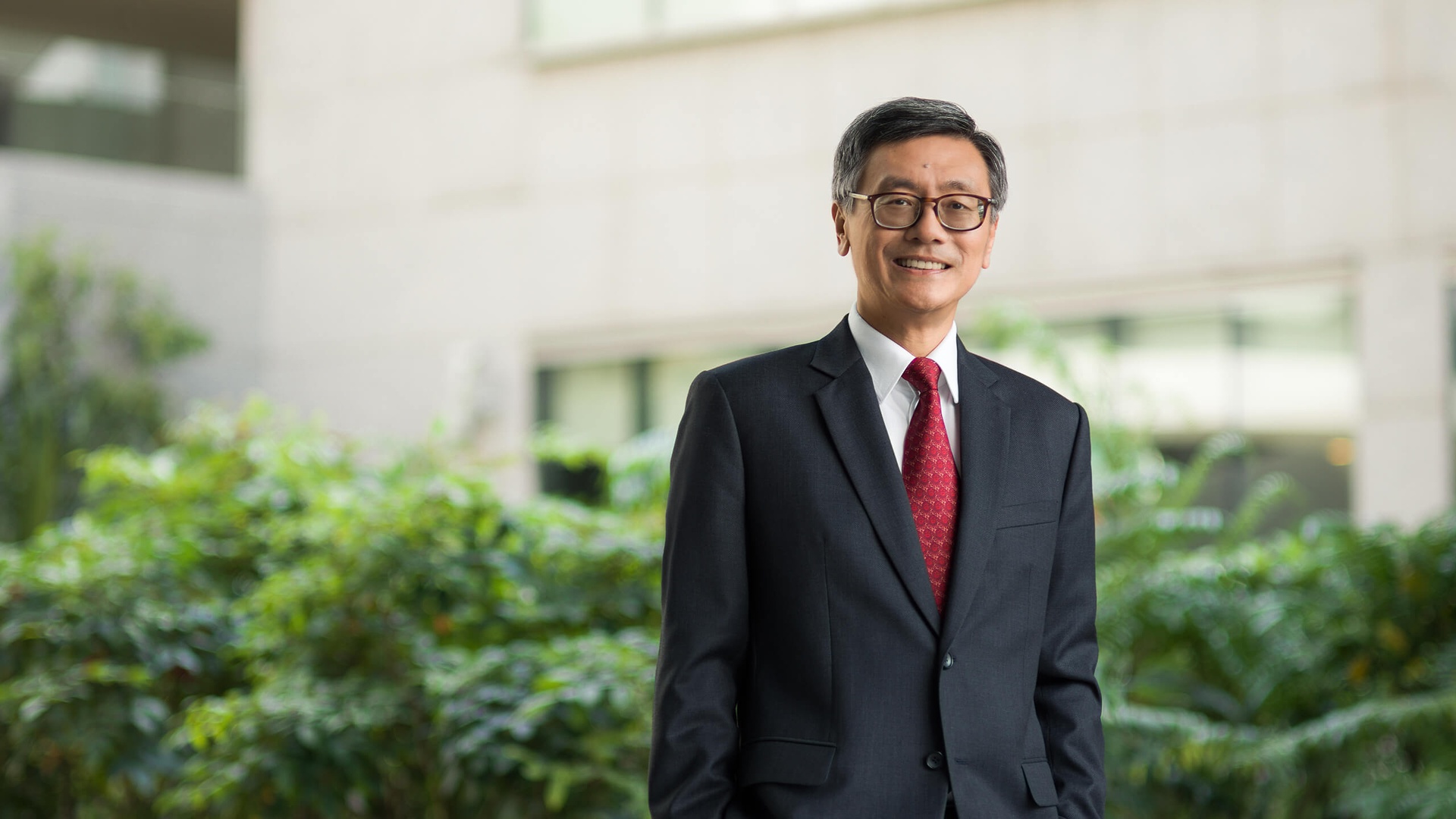
NUS has taken its AI research capabilities a step further by recruiting and nurturing world-class AI research talents. Over the past two years, NUS has recruited 27 new AI faculty, some of whom are of international renown. Another 53 new hires are contributing to advancing AI in their disciplines or incorporating AI tools to propel their research.
To amplify the research and bring it closer to the real world, NUS is also working with industry partners and global tech superpowers like Microsoft Research Asia, Google, IBM and Nvidia. In its collaboration with Google, both partners will establish a joint research and innovation centre to accelerate applied AI research and nurture skilled AI practitioners.
The Breadth of AI in NUS EducationIn the classrooms, because of AI, students at NUS today have markedly different choices and experiences compared to their seniors just a few years ago. In terms of content, there are many more AI-centric courses, including those that layer an AI element on top of existing disciplines, or what is called "X + AI".
Among the more than 175 AI-themed courses now offered at NUS, over 70 of these are outside the School of Computing - in Business, Engineering, Sciences, Humanities and Social Sciences. These X + AI courses include topics like analysing AI-generated fake news (Communications, New Media and Society), facilitating Socratic dialogue (Introduction to Psychology) and critiquing AI-composed music (Social and Cultural Studies through Music).
To develop deep AI expertise, at least four Bachelor's and Master's degree programmes were launched this year, including the Bachelor of Computing in AI, Master of Computing in AI and the Bachelor of Engineering in Robotics and Machine Intelligence. As for alumni, the NUS School of Continuing and Lifelong Education (SCALE) offers a plethora of short courses and certifications for AI and machine-learning in areas like predictive analytics, generative AI and AI for Talent Management and Organisational Design.
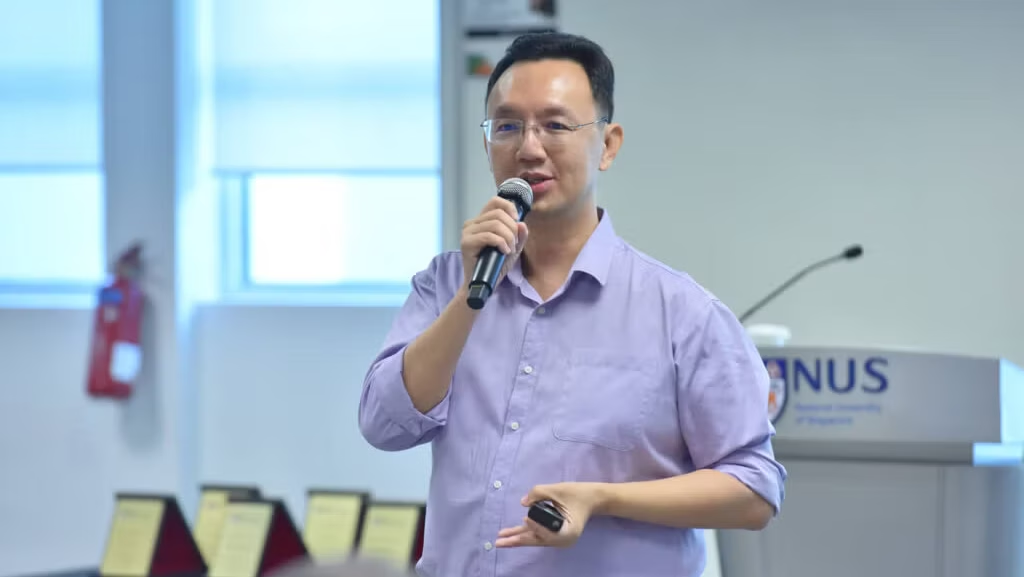
In terms of the educational experience, students who are very much digital natives are now using AI in their take-home assignments to summarise readings or lecture notes, craft essays and solve problems. They simply have to fill in a declaration form listing which AI tools were used. Associate Professor Ben Leong, Director at the AI Centre for Educational Technologies (AICET), said tongue-in-cheek at a recent talk, "We surrender. Ninety percent of our students are probably using AI."
In class, faculty are using AI to teach better. In a 2024 survey of faculty, it was found that about 23 percent of NUS' undergraduate and post-graduate courses utilised some aspect of AI. One of the best examples of this is using AI chatbots to role-play with students. For instance, within social work, if students needed to practise counselling in the past, an actor would be hired to work with one student while the rest would observe. But now, every student gets to practise individually with a bot. They engage in dialogue with 'patients' from diverse profiles and backgrounds, and the chatbot even describes behaviour - for instance, if the patient looks away or is mildly irritated. After a session is complete, the student gets personalised feedback, both from the bot and an instructor who can view the transcript of the exchange.
Time-starved faculty are not doing this alone. NUS is strategically bringing the best ideas together, sharing these AI tools across NUS and providing support when needed. In 2024, the Centre for Teaching, Learning and Technology (CTLT) was formed by the merger of the Centre for Development of Teaching and Learning (CDTL) and the Centre for Instructional Technology (CIT) to run workshops, courses and consultations on how to use technology to create more personalised or engaging learning experiences. Recently, CTLT collaborated with the NUS Teaching Academy (NUSTA) to develop a proficiency roadmap for AI in education.
Then there is AICET, which has a team of consultants who work with NUS faculty to leverage AI and technology in their teaching through fast experimentation and prototyping of new ideas. AICET's successes include grading tools that provide accurate, personalised feedback for short-answer quizzes, and chatbots that help nursing students with their research projects or train dental students in radiographic interpretation.
Many of the tools that have proved particularly useful are those involving role-play, where ironically AI enables students to hone human skills by simulating client interviews for social work or mock trials for law students. Said Assoc Prof Leong, "As we move into an AI-driven future, human skills will become increasingly important. We are now taking advantage of advances in AI to teach these practical human skills."
Safeguarding Focus and Original ThoughtBut even as educators use AI to achieve better learning outcomes, they are well aware that if students overuse or misuse it, AI can dull thinking ability-an outcome worse than technology merely taking away the need to memorise telephone numbers or read maps.
Prof Chesterman - who likened the desire to resort to AI as the more pleasant choice, akin to choosing to eat ice-cream over broccoli - emphasised this several times in his interview: "If you can't even form an opinion without asking ChatGPT, then it becomes a big problem."
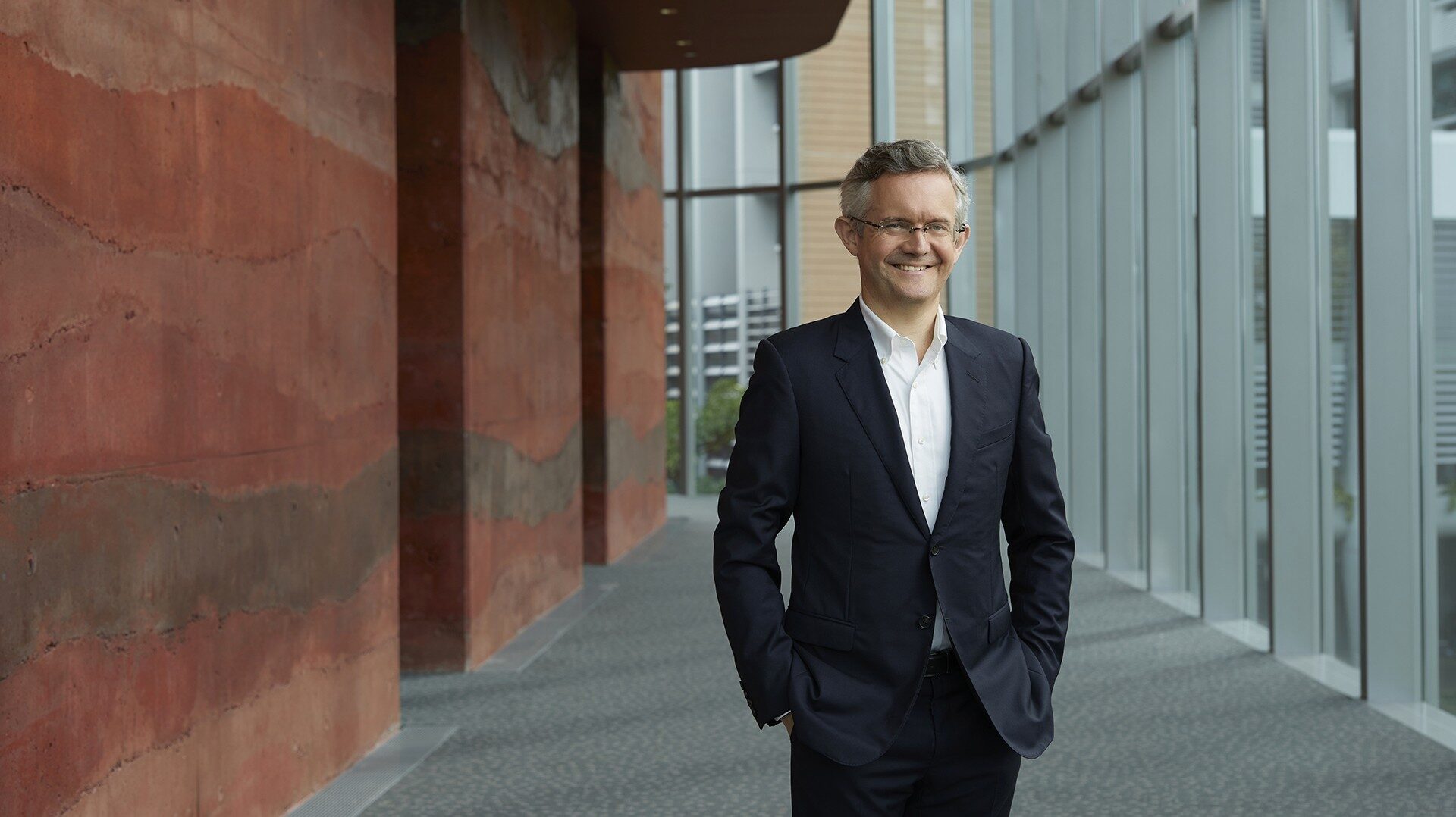
According to an MIT study released in June 2025, ChatGPT may be eroding critical thinking skills. In the study of 54 people who were tasked to write an essay, those who used ChatGPT had the lowest brain engagement and "consistently underperformed at neural, linguistic and behavioural levels", compared to those who wrote without any help, or used Google search.
Likewise, Assoc Prof Leong talked about the "AI Chasm of Death": students who can only get things done with the help of AI will end up becoming stuck on one side of the chasm; they will only be able to cross over through sheer hard work, knowledge acquisition and critical thinking. "As educators, our job is to help them cross that chasm, by motivating them to put in the effort to think and learn," he said. "It's like exercising in the gym. It's hard work, but you need to do it to grow in strength. Our job is still to get them to exercise those mental muscles." He added, "The future of education is really one where we, instead of focusing only on teaching students to do things right, we place more emphasis on getting them to learn to do the right things."
Like eating broccoli or putting in the extra work to exercise, students must be taught to make learning choices that are possibly less pleasant but necessary and good for them-to focus and think without AI.
Nurturing AI-proof QualitiesWith naysayers wondering if universities are still relevant in the age of AI, or if AI will one day surpass humans, NUS is cognisant of the need to produce graduates who are not only AI-literate and AI-fluent, but have the qualities that AI cannot replicate. There is a greater emphasis on equipping graduates with higher-level skills like judgement, adaptability and ethical reasoning.
"Instructors deliberately raise the bar by designing tasks that go beyond what AI can produce," said Associate Professor Melvin Yap (Arts & Social Sciences '99), who serves as Associate Provost (Education & Technology), Head of CTLT, and faculty member in the Department of Psychology at the Faculty of Arts & Social Sciences (FASS)."These tasks require interpretation, critique and justification, where students question assumptions, evaluate evidence and construct their own reasoning."
He added that true AI-free thinking ability can still be assessed through in-person, supervised exams, as well as oral presentations, portfolios and lab performances. He said, "These formats demand originality and on-your-feet reasoning, making clear that learning outcomes cannot be outsourced to technology."
Learning how to adapt, work in a team and get along are human qualities that manifest outside of the classroom and this is where NUSOne - an approach designed to encourage students to participate in out-of-classroom activities for a well-rounded student life - comes in.
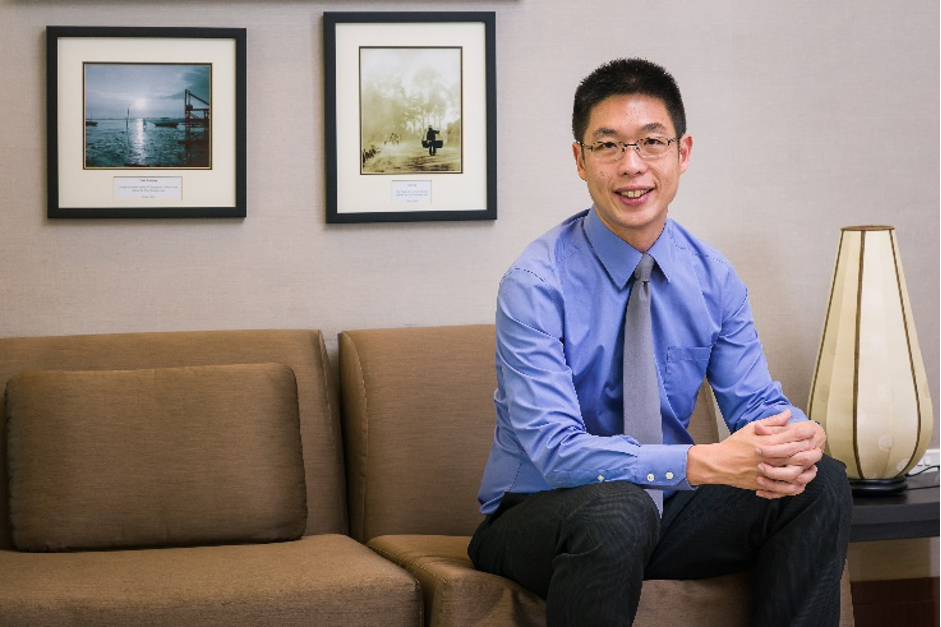
Then there are human skills. In a paper titled "Will AI make EQ more important than IQ?" by Prof Chesterman and Associate Professor Loy Hui Chieh, who is from the Department of Philosophy at FASS, they questioned whether universities should switch from educating the mind to educating the heart. "There is emerging literature about the feeling economy, which is the idea that your value is not just your brain but your heart-in your ability to persuade and engage people to do all sorts of things that, for the moment at least, AI can't do," said Prof Chesterman. "We must be more intentional about cultivating what it is that makes us truly human."
What all this translates to are NUS graduates who are not only AI-literate and AI-fluent, but who are inherently employable.
Said Assoc Prof Yap, "AI is integrated thoughtfully to amplify humanistic values such as judgment, creativity, and ethical leadership, while embedding critical engagement with AI across disciplines. This approach ensures graduates are capable of questioning assumptions, critiquing outputs, and making decisions with integrity. This approach prepares graduates not only to use AI effectively but also to lead with adaptability, discernment, and integrity in a world where technology continues to evolve."
This story first appeared in AlumNUS on 1 January 2026.
Carine Liew
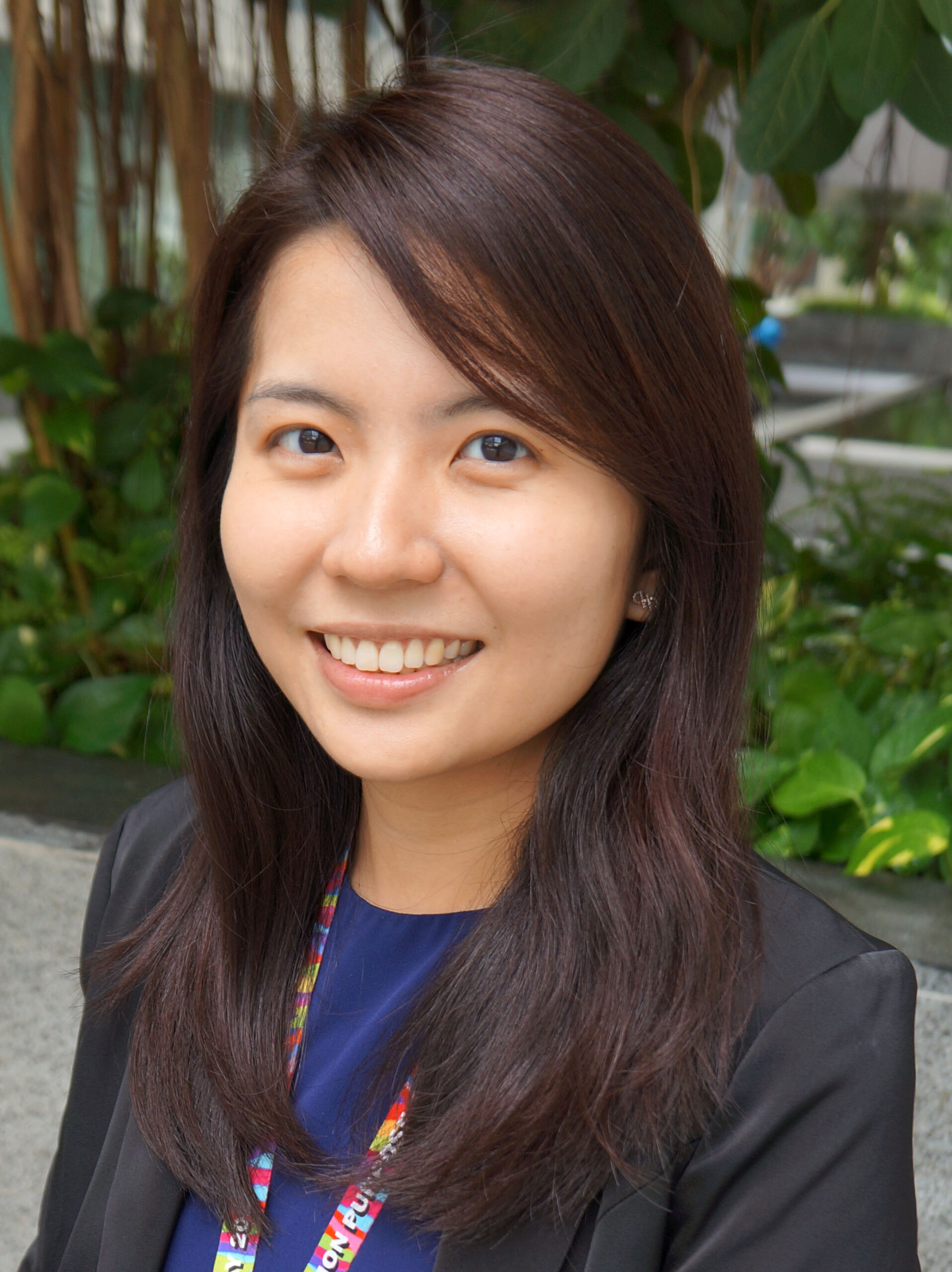
Master of Psychology (Clinical)
NUS-University of Melbourne
| Availability: |
🗓️ Mondays, 9:00am to 1:00pm |
| Services Available: |
Assessments
|
For enquiries on additional services, please email us at chpc.enquiries@nus.edu.sg.
| Clinician Profile |
|
Since 2011, Carine has worked with children, teenagers and adults with a broad range of psychiatric difficulties. She has extensive experience in both the Singaporean public and private healthcare sector, working at KK Women's and Children's Hospital's Department of Child Development (KKH DCD), and later at the Institute of Mental Health (IMH) where she contributed towards Singapore's inaugural paediatric OCD clinic. In the private sector, she is known for addressing her client's concerns through evidence-based clinical assessments and established methods to deliver the best care for their mental wellbeing. |
Donald Yeo
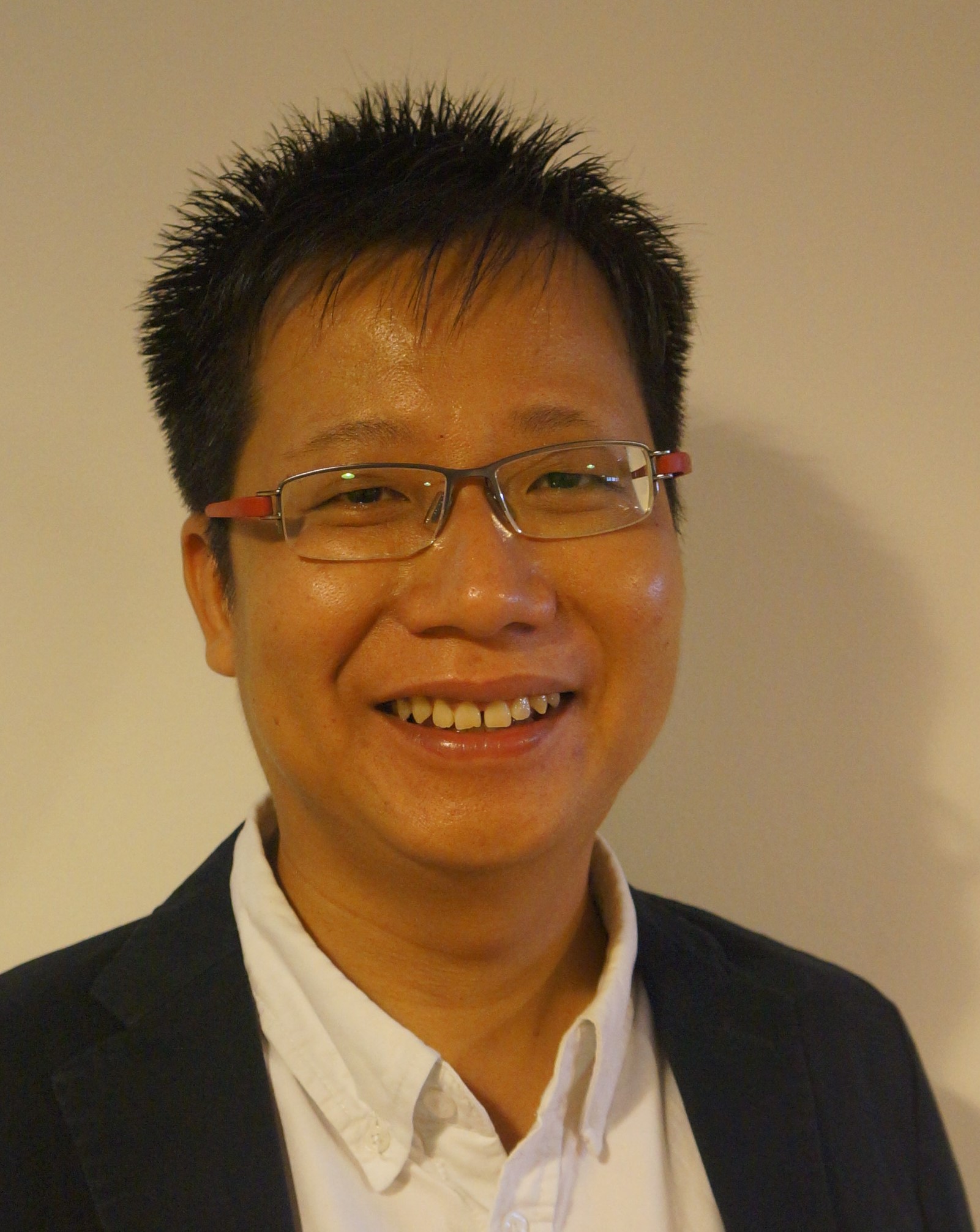
Doctor of Psychology in Clinical Neuropsychology
University of Melbourne
| Availability: |
| 🗓️ Fridays, 9:00am to 1:00pm |
| Services Available: |
Assessments
|
For enquiries on additional services, please email us at chpc.enquiries@nus.edu.sg.
| Clinician Profile |
|
As a qualified Clinical Neuropsychologist, Donald has a special interest in cognitive aging and dementia assessment, with more than 25 years of professional practice, advanced training, clinical research and academic teaching. He has established deep expertise in the cognitive evaluation of patients with brain disorders and providing psychological support to family caregivers, and has assisted the courts as an independent expert witness in medicolegal cases, such as personal injury compensation, mental capacity assessments in deputyship, Wills and Lasting Power of Attorney. His extensive career in hospitals, private practice, and community settings has made him a trusted name for assessing a wide range of neuropsychological assessments including but not limited to dementia, aging, mental capacity, and medicolegal cases. |
Jamie Ong

Master of Psychology (Clinical)
National University of Singapore
| Availability: |
| 🗓️ Thursdays, 3:00pm to 7:00pm |
| Services Available: |
Therapy
Assessments
|
For enquiries on additional services, please email us at chpc.enquiries@nus.edu.sg.
| Clinician Profile |
|
Jamie started her career in 2011 and has extensive experience working with children and adolescents with developmental disorders and psychiatric conditions both in a hospital and community setting. Beginning at KK Women's & Children's Hospital's Department of Child Development (KKH DCD) as a Senior Psychologist, she later joined National University Hospital's (NUH) Department of Psychological Medicine where she worked with older children and adolescents on various clinical diagnoses including developmental, behavioural and socio-emotional difficulties. She is highly experienced in administering standardised assessments for children and adolescents, and is certified to conduct the Autism Diagnostic Observation Schedule -2 (ADOS-2) and Autism Diagnostic Interview - Revised (ADI- R) to assess for autism. She is also skilled at a variety of individual and group therapy for children including Cognitive Behavioural Therapy (CBT), Dialectical Behavioural Therapy (DBT), and Social Thinking. |
Kean J. Hsu
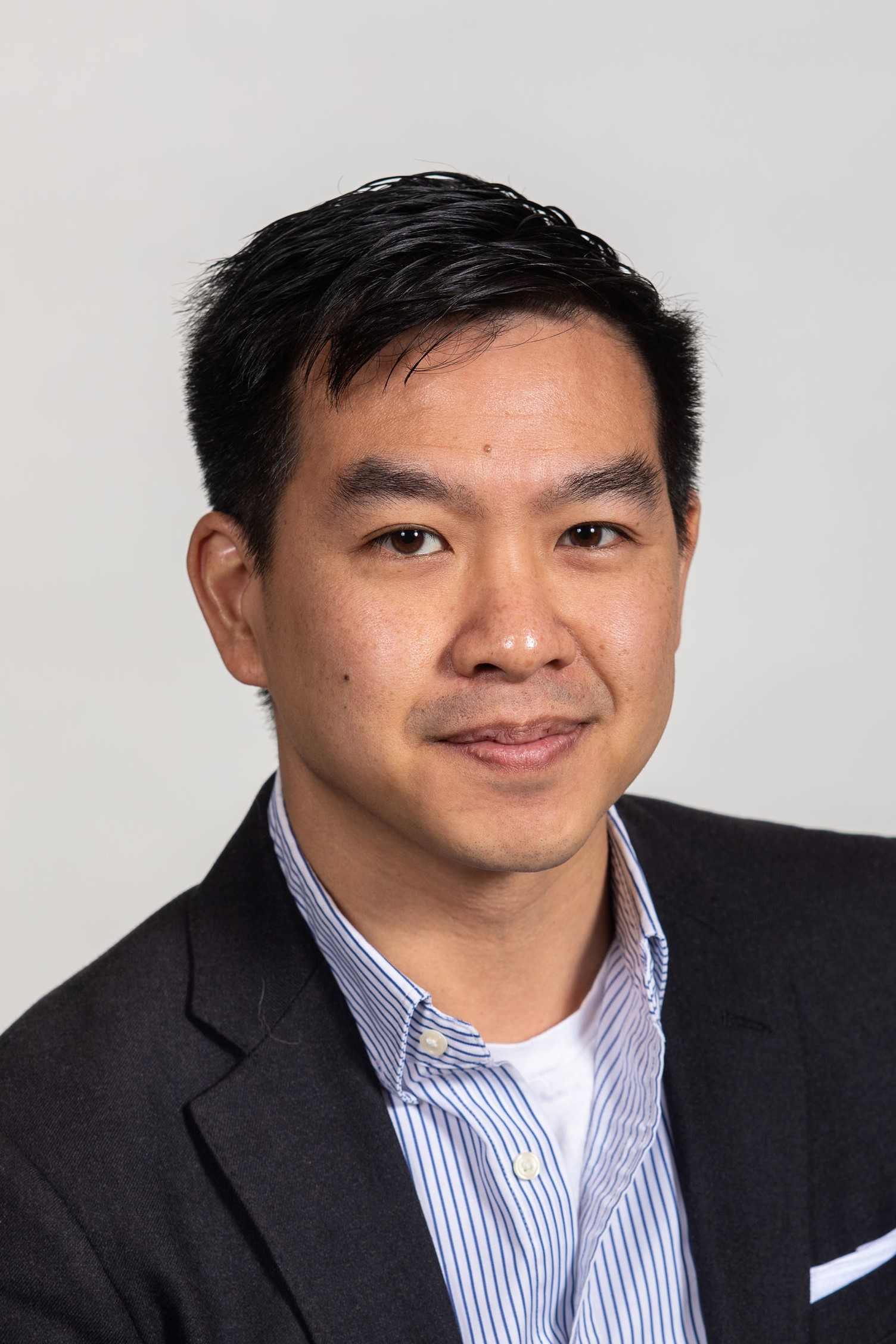
Doctor of Philosophy (Clinical Psychology)
University of Southern California
| Availability: |
| 🗓️ Please call/email CHPC to check |
| Services Available: |
Therapy
|
For enquiries on additional services, please email us at chpc.enquiries@nus.edu.sg.
| Clinician Profile |
|
Kean specialises in the treatment of depression and anxiety disorders by targeting specific clinical symptoms such as social anxiety, repetitive negative thinking, blunted positive affect, etc. using proven, evidenced-based methods. His sessions uses a skills-based approach which draws from gold-standard psychotherapy methods such as Cognitive Behavioral Therapy (CBT), Dialectical Behavior Therapy (DBT), and Acceptance and Commitment Therapy (ACT) to help his clients meet their goals. Throughout his career in the United States at McLean Hospital/Harvard Medical School and UCLA, Kean has conducted therapy across a wide number of settings from community mental health agencies to hospitals. His clinical experience also comprises a diverse range of disorders such as Major Depressive Disorder, Social Anxiety Disorder, Panic Disorder, Generalized Anxiety Disorder, Schizoaffective Disorder, Borderline Personality Disorder, Bipolar I Disorder, and Schizophrenia. |
Kenji Gwee
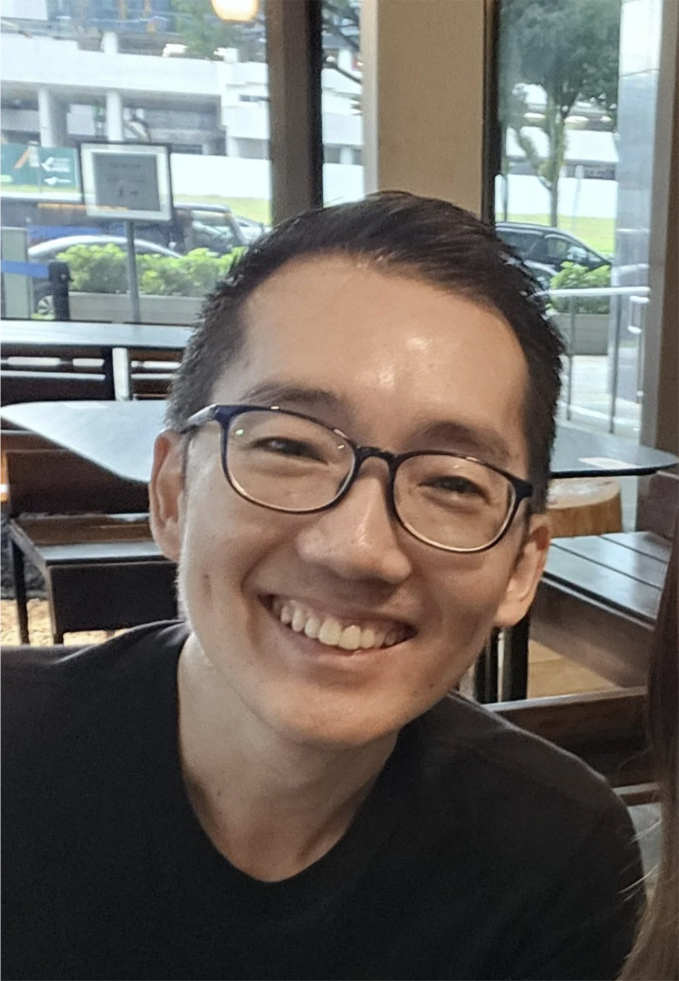
Doctor of Psychology (Clinical Forensic)
Edith Cowan University
| Availability: |
| 🗓️ Fridays, 9:00am to 1:00pm |
| Services Available: |
Therapy
Assessments
|
For enquiries on additional services, please email us at chpc.enquiries@nus.edu.sg.
| Clinician Profile |
|
With over 18 years of experience as a clinical forensic psychologist at the Institute of Mental Health, Kenji is well versed with psychological issues and life challenges that adults and youths face. He is also a perceptive clinician and a passionate educator, taking up mentoring opportunities for new clinical psychologists. On the forensic front, he has provided expert testimony for high-profile criminal cases and set various standards for psychological assessments for local courts. |
Matthew Lim
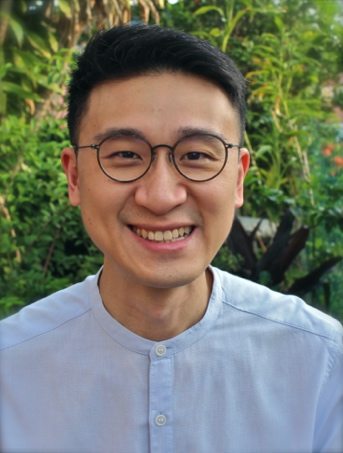
Doctor of Clinical Psychology
University College London Doctor of Philosophy
University of Oxford
| Availability: |
| 🗓️ Fridays, 9:00am to 1:00pm |
| Services Available: |
Therapy
|
For enquiries on additional services, please email us at chpc.enquiries@nus.edu.sg.
| Clinician Profile |
|
Matthew's clinical work spans a range of age groups. He has supported high-risk adults with significant emotion regulation difficulties, as well as adolescents experiencing mood and anxiety concerns. Through his professional doctoral training in the UK and previous locum work in a local hospital, Matthew developed a strong clinical interest in how childhood adversity and trauma can affect mental health and wellbeing later in life. His work is informed by behavioural, cognitive, emotion-focused, and systemic approaches, alongside contemporary meditation-based practices. Matthew's research interests include competency-based training and professional development for clinical psychologists, and the thoughtful integration of spirituality and religion in psychotherapy to support clients seeking deeper meaning in their experiences. |
Fiona Tan
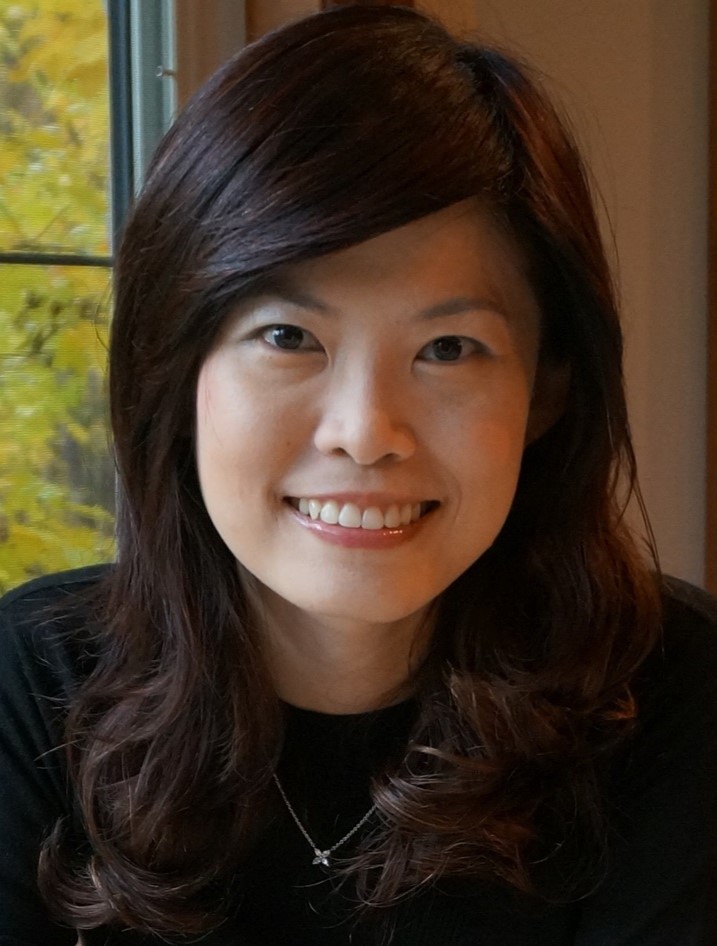
Master of Psychology (Clinical)
National University of Singapore
| Availability: |
| 🗓️ Mondays, 9:00am to 1:00pm |
| Services Available: |
Therapy
Assessments
|
For enquiries on additional services, please email us at chpc.enquiries@nus.edu.sg.
| Clinician Profile |
|
After earning her Masters in Clinical Psychology, Fiona joined the Institute of Mental Health (IMH) with the child forensic team at their Child Guidance Clinic (CGC) where she provided a wide variety of therapeutic & assessment services for children and adolescents. This includes performing assessments for youth offenders, and conducting individual and group interventions for children and adolescents to address trauma, mood and anxiety related conditions. Her wholistic approach goes beyond delivering assessments by offering concrete help to her clients and/or their families based on solid evidence-based clinical methods during therapy sessions. With a special interest in Trauma and Resilience, her extensive work with survivors of traumatic events has given her a unique perspective to offer targeted help according to their immediate and future needs. |
Beyond medicine: Health District @ Queenstown and experts explore vital themes shaping Asian healthy longevity
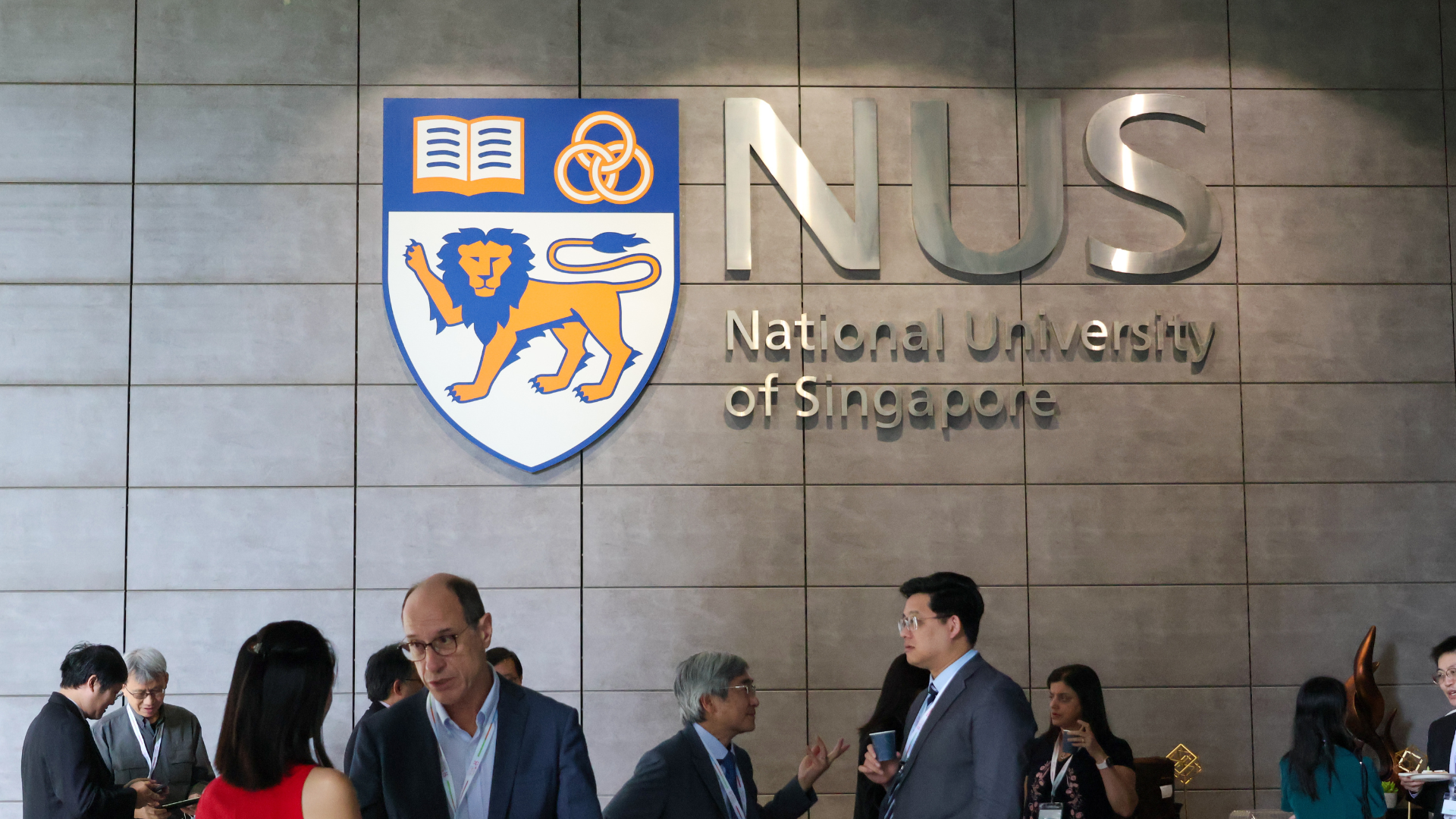
What does it mean to age well in Asia? This question took centre stage at the West Pacific Rim Consortium for Healthy Ageing Symposium 2025 held in Singapore from 20 to 22 November 2025.
Organised by the West Pacific Rim Consortium and hosted by the Health District @ Queenstown (HD@QT), the symposium brought together close to 30 policymakers, healthcare practitioners, researchers, and community leaders from leading institutions in Asia to share regionally grounded approaches to ageing well.
The consortium - a collaboration between the National Center for Geriatrics and Gerontology (NCGG) in Japan, and the National Yang Ming Chiao Tung University (NYCU) in Taiwan, together with the National University of Singapore (NUS) and National University Health System (NUHS) - aims to collectively address the challenges and opportunities of rapid demographic transitions across some of the world's fastest-ageing societies.
HD@QT is a multi-stakeholder initiative spearheaded by NUS, NUHS, and the Housing & Development Board (HDB), bringing together partners from the public, private, and people sectors to develop lasting health and social solutions in Singapore. Through evidence-based urban planning and community programmes, HD@QT supports individuals to lead active, fulfilling lives while fostering a stronger and more resilient community in Queenstown, a residential town in Singapore.
Professor John Eu-Li Wong, Executive Director of the NUS Centre for Population Health and HD@QT Co-Chair, said, "We are facing an unprecedented period in human history with many societies having more older people than younger people. Japan was the first country to experience this and more countries, including Singapore, are now similarly affected. It is through joining consortia and meetings like this that we learn from each other and work together on realising the opportunities this creates."
By placing Asian contexts, cultures and community networks at the heart of the conversation, the symposium highlighted a crucial insight: ageing is profoundly shaped by relationships and local environments, not solely by medicine or policy.
From research to real-world impact
Over three days, experts from various fields explored themes such as frailty prevention, brain health, community-based rehabilitation and digital innovations that support ageing-in-place.

Associate Professor Reshma Merchant from the Department of Medicine at NUS Yong Loo Lin School of Medicine (NUS Medicine), who is also Head of Geriatric Medicine at National University Hospital (NUH) and Lead for the frailty prevention initiative at HD@QT, outlined how early detection and targeted interventions can help older adults maintain function and independence for longer.
In a similar context, Dr Tan Li Feng, Senior Consultant at Alexandra Hospital's Department of Geriatric Medicine and Geriatrics Lead at the Regional Health Systems Office of NUHS, presented her work on using simple digital tools in the community to detect early signs of memory decline, identify individuals at risk, and offer personalised guidance to help people understand their brain health and make lifestyle changes to lower their risk.
Her sharing at the symposium was supported by other research conducted at HD@QT, including a study on intrinsic capacity (IC) deficits in older adults co-led by Dr Tan and Assoc Prof Merchant, in collaboration with HD@QT's Baseline Study team which includes Associate Professor Jia Lile and Dr Shuna Khoo from the NUS Faculty of Arts and Social Sciences.

Towards an Asian framework for healthy longevity
Across the sessions, speakers noted Asia's shared strengths - strong family networks, intergenerational ties and community solidarity - while addressing demographic shifts and rising chronic disease burdens. Drawing on their national experiences, experts from Japan and Taiwan highlighted how policy and research leaders are shaping ageing strategies and offered a range of approaches to healthy ageing.
Associate Professor Yosuke Osuka from the Department of Frailty Research, National Center for Geriatrics and Gerontology, discussed digital biomarkers for frailty assessment and pathways to real-world implementation, while Dr Hiroyuki Sasai, Theme Leader, Frailty and Musculoskeletal Health Research, Tokyo Metropolitan Institute for Geriatrics and Gerontology, evaluated Radio Taiso, Japan's national calisthenics programme, examining its effectiveness and strategies for wider adoption.
Dr Chen Ran-Chou, Commissioner at the Department of Health in New Taipei City highlighted the role of policy leadership in shaping supportive environments for older adults while Professor Chen Liang-Kung, Superintendent at the Taipei Municipal Gan-Dau Hospital, shared how data can be used to identify high-risk sub-populations.
Noting the diversity of the presentations and experiences shared, Associate Professor David Michael Allen, Deputy Executive Director of the NUS Centre for Population Health, said, "While all of the symposium's participants have identified or recognised the same or similar unmet medical, social, psychological needs of their populations, the focus of their individual or region's work may be slightly different, due to the expressed priorities of their communities and leadership, or in order to best use the resources the experts have available."
He added, "The symposium's value comes from hearing and discussing with them why they chose to focus on what they do, the approaches they took to intervene and how they determined if the interventions were successful or not."
Collaborating for the future
From Singapore's neighbourhood-based health initiatives to Japan's community-led rehabilitation and Taiwan's integrated service frameworks, the discussions at the West Pacific Rim Consortium for Healthy Ageing Symposium 2025 showed that solutions must remain both scientifically grounded and culturally responsive, with sustained collaboration across countries key to advancing shared goals.
Reflecting on the consortium's long-term regional role, HD@QT's Professor Wong shared, "If this event helps to develop networks among participants, it would have achieved one of its main goals. If these networks can facilitate innovation, accelerate implementation, and generate value for students, practitioners, researchers and policymakers, hopefully others will consider joining us to uplift the region further, faster."
This story by the NUS Centre for Population Health and Health District @ Queenstown first appeared in NUSnews on 27 November 2025.
Parental warmth moderates the relation between children’s lying and theory-of-mind
Children learn to lie from about the age of two, typically to conceal their wrongdoings. Lying is considered a milestone for children’s social and cognitive development. To tell a successful lie, they have to infer and reason about the lie-recipient’s mental state, and realise that other people may believe things that are wrong. This skill is called ‘theory-of-mind’ and is seen as a significant cognitive contributor to children’s lying. However, empirical studies have shown an inconsistent and inconclusive relation between theory-of-mind and lying. Previous research has sought to explain this variability, suggesting that factors such as parenting style may play a moderating role. In ‘Parental warmth moderates the relation between children’s lying and theory-of-mind’ (International Journal of Behavioural Development, 2023), Associate Professor Xiao Pan Ding, Cleo Tay, Shu Juan Goh, and Associate Professor Ryan Y. Hong (all NUS Psychology) investigated whether parenting styles moderate the relation between children’s lying behaviour and theory-of-mind, as well as shed light on the underlying social-cognitive mechanisms that drive children’s lying behaviour. In the study, the researchers analysed parental warmth and parental control as two theoretically independent dimensions of parenting styles, with parental warmth referring to a parenting style marked by affection and acceptance, and parental control referring to one marked by intrusiveness, pressure, and domination over children. They found that while parental warmth moderated the relationship between theory-of-mind and children’s lying, parental control did not. Crucially, the moderating role of parenting warmth only applied to children’s maintenance of their lies, but not to their tendency to tell the initial lie. Specifically, with a high level of parental warmth, children with higher theory-of-mind abilities were less likely to maintain their lies. According to MacDonald’s (1992) evolutionary analysis of warmth as a developmental construct, parental warmth cultivates a positive reward system which causes children with highly supportive parents to be forthcoming, and to respond by telling fewer lies. Ding et al.’s (2023) findings reinforce the idea that lying in childhood arises from the complex interaction between social and cognitive maturation. A supportive home environment fosters openness that counters children’s innate inclinations towards lying as they develop cognitively. As such, it is crucial to consider both internal cognitive changes and external social influences to gain a holistic understanding of pivotal developmental milestones like lying. Read the article here.
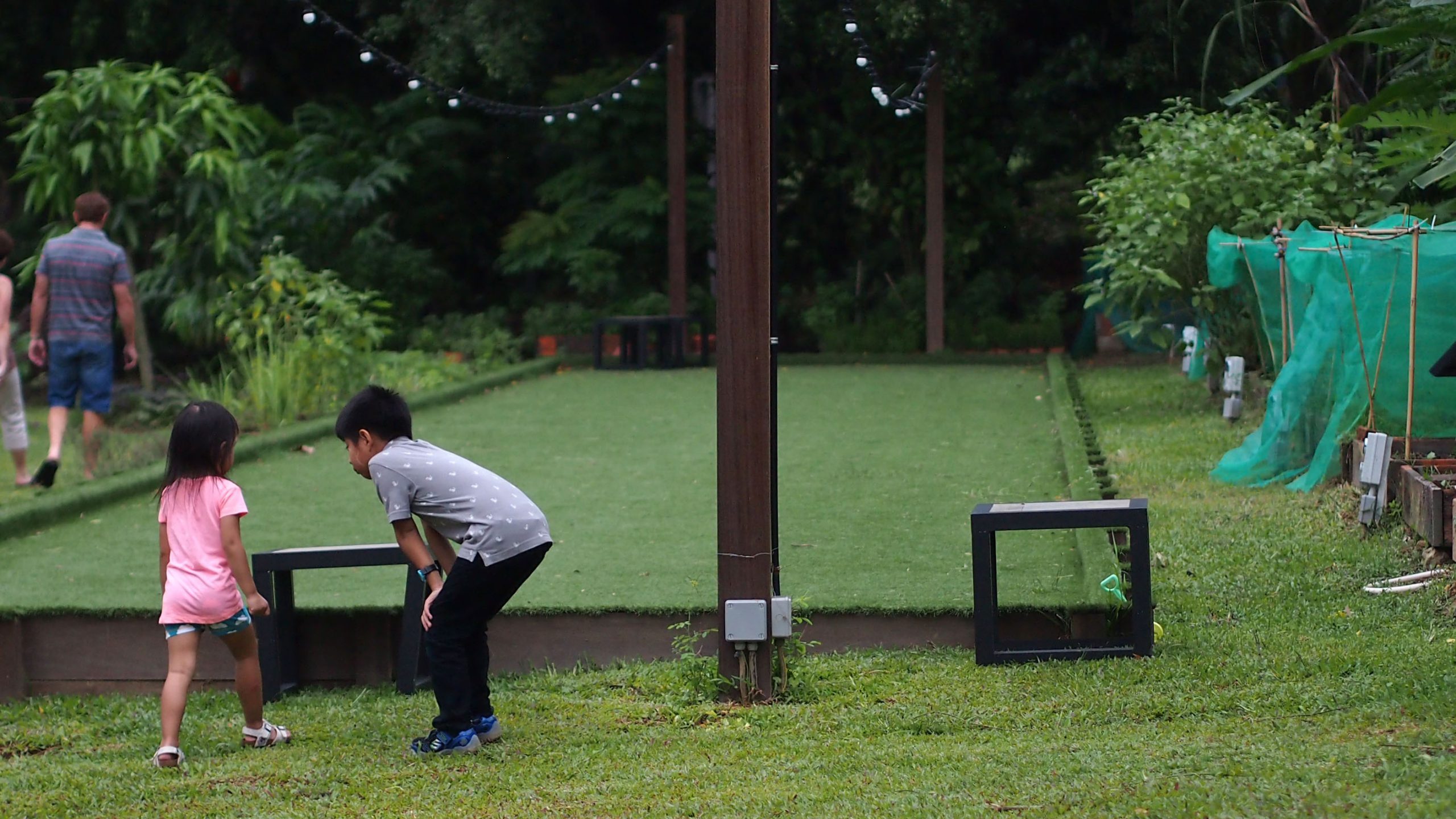
The moderating role of trajectories of family hardiness in the relationship between trajectories of economic hardship and mental health of mothers and children
On 20th November 2024, the ComLink+ scheme celebrates its one-year anniversary, having provided support to about 14,000 families across areas such as pre-school education, employment, and home ownership. Minister for Social and Family Development Masagos Zulkifli described the scheme as a significant step towards enhancing resilience and promoting social mobility in Singapore, particularly for low-income families. While financial initiatives like the ComLink+ scheme are crucial in alleviating the immediate pressures faced by low-income families, resilience research highlights the importance of focusing on the nuanced dynamics of family hardiness, in the face of economic hardship. Family hardiness refers to the family’s coping abilities and its collective attitude to be resilient in face of hardships. In ‘The moderating role of trajectories of family hardiness in the relationship between trajectories of economic hardship and mental health of mothers and children’ (Current Psychology, 2023), Mr Daniel Wen and Associate Professor Esther C. L. Goh (both NUS Social Work) delineate trajectories of family hardiness across time. Additionally, they investigate whether the trajectories of economic hardship previously delineated would predict less severe, non-clinical levels of depression and anxiety in mothers and children. Wen and Goh identify three trajectories of family hardiness, namely the high stable, low rapidly increasing and moderate increasing group. The high stable trajectory of family hardiness represents families that are working well together consistently over time, while the low rapidly increasing trajectory of family hardiness represents families that are struggling to find ways to work together to cope with their situation, and are desperately trying to enhance their ability to work together. Lastly, the moderate increasing trajectory of family hardiness represents families who are working together moderately well, and improving in their ability to work together in response to challenges. The researchers found that the trajectories of family hardiness moderated the relationship between trajectories of perceived economic hardship and symptoms of mental health in low-income mothers and children. Interestingly, different trajectories of family hardiness are protective for different aspects of mental health. For example, the high stable family hardiness trajectory was protective against depression among mothers, yet when it came to anxiety, a moderate increasing family hardiness trajectory was found to be protective, reducing the likelihood of higher levels of mother’s and child’s anxiety. One possibility is that having a consistently high trajectory of family hardiness provides a stable support system for mothers, which helps shield them from depression even when facing ongoing economic difficulties. In contrast, a moderate but increasing trajectory of family hardiness might be better at addressing anxiety, as it adapts and builds resilience over time, thus reducing the risk of heightened anxiety for both mothers and children. The findings highlight the importance of considering family resilience dynamics over time. Incorporating ongoing evaluations of family hardiness rather than just a single point in time may provide a more accurate understanding of how a family’s resilience can impact mental health outcomes. Read the article here.
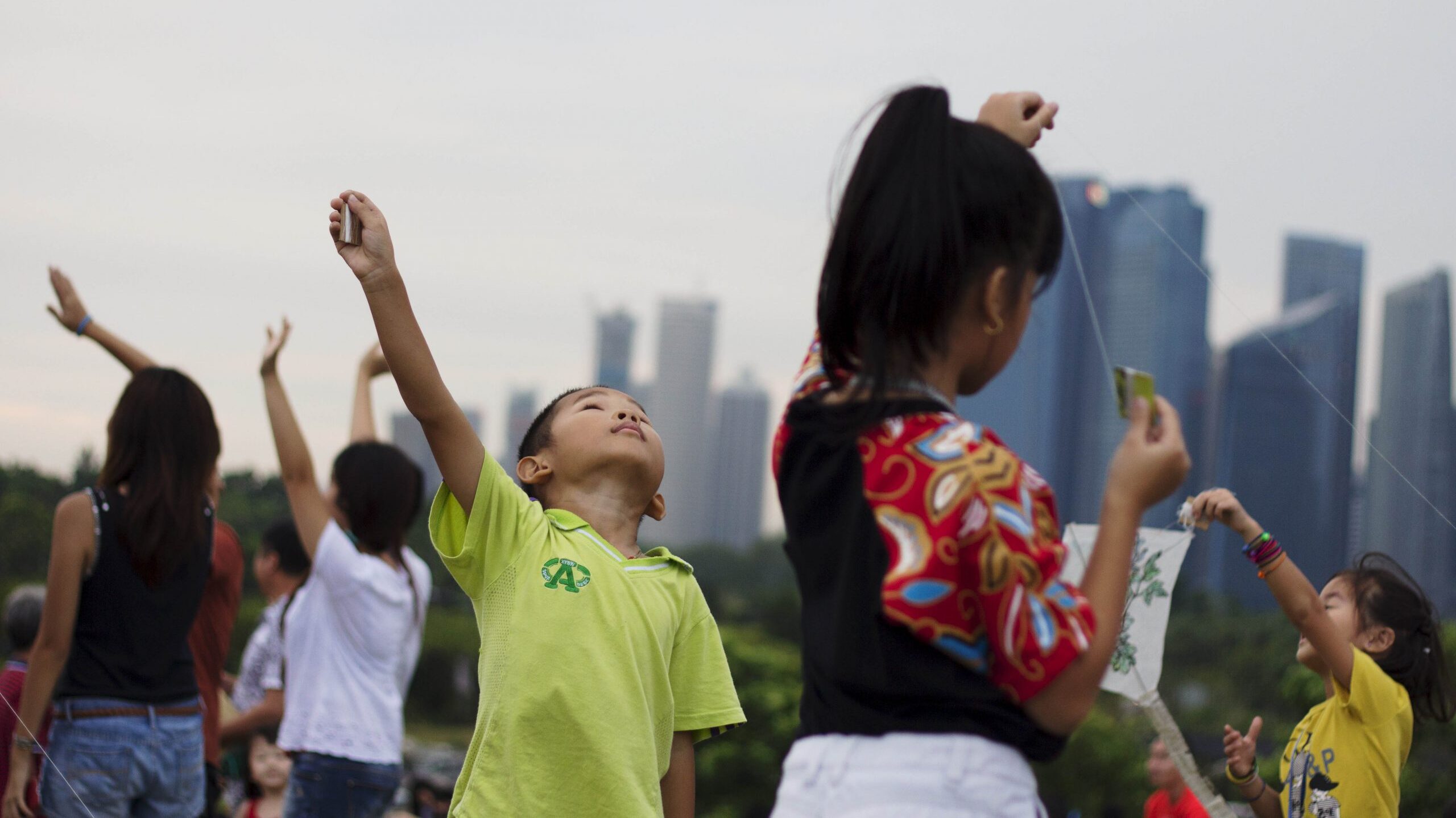
Watch the Recording: Technology, Wellbeing, and Policy in Singapore (2 Oct 2025)
Missed the live event? You can now watch the recording of our outreach event on Technology, Wellbeing, and Policy in Singapore, which brought together researchers from NUS Psychology and NUS Social Work to explore how technology shapes mental health and wellbeing in Singapore today. The four presentations discuss digital harms, AI, and the promise and challenges of digital mental health innovations.
Watch the recording here: https://tinyurl.com/4t4sbbtf
Download the programme here: https://tinyurl.com/4n4n7ufj
Presentations:
- ‘Technology-Related Harms and Youth Mental Health’ by Assoc Prof Jungup Lee (NUS Social Work):Explores how problematic smartphone use and cyberbullying intersect with mental health outcomes among Singaporean youths. The findings highlight the need for digital literacy, peer support, and cross-sectoral collaboration to foster safe digital engagement.
- ‘Core Components of Effective Text-based Conversations: Evidence from a Local Social Service Agency’ by Asst Prof Gerard Chung (NUS Social Work): Analyses online chat data with youths to identify what makes digital conversations effective. The study offers insights for training counsellors, improving practice, and designing AI-assisted digital mental health services.
- ‘Mental Health in the Age of AI Technology’ by Asst Prof Kean J. Hsu (NUS Psychology): Examines how AI reshapes our understanding of mental health—from research tools like machine learning to the social impact of algorithms and generative AI on wellbeing.
- ‘Promises and Pitfalls of Digital Mental Health Interventions (DMHIs): Implications for Policy, Equity, and Personalized Care in Singapore’ by Asst Prof Nur Hani Zainal (NUS Psychology): Discusses the potential and challenges of digital interventions such as mindfulness apps and CBT platforms. The talk addresses algorithmic bias, digital literacy, and equitable access in Singapore’s National Mental Health Strategy.
Discover how NUS FASS researchers are advancing conversations on technology, wellbeing, and policy in a rapidly digitalising society!
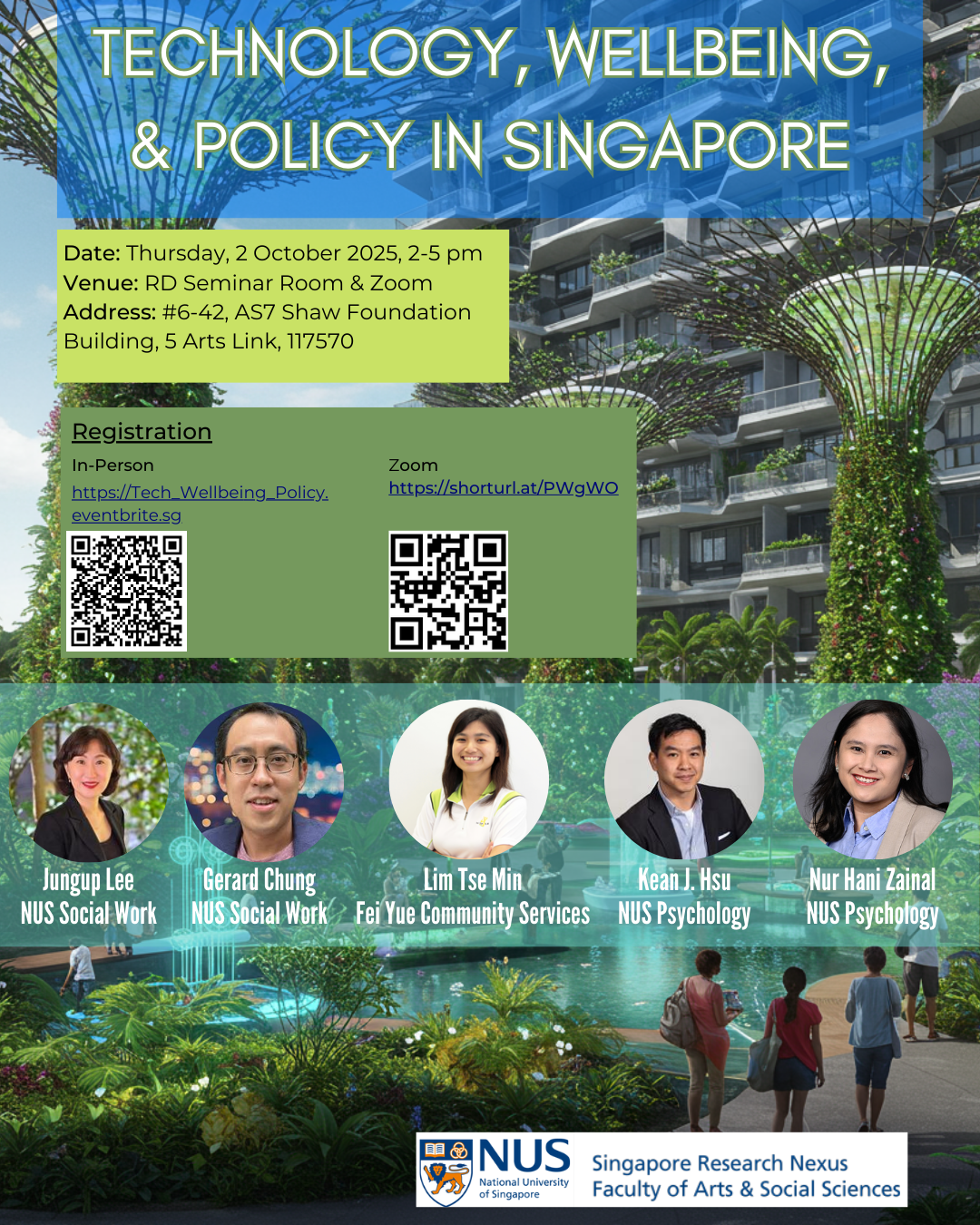
Chatbots could be first responder for mental health issues, but with limits
IN BRIEF | 10 min read
- By Dr Nur Hani Zainal, Presidential Young Professor in Clinical Psychology at NUS Psychology, and Director of the Optimising Wellness Lab.
Click through image below to read this piece.
This story first appeared in The Straits Times and on NUSNews on 28 October 2025.
Validating the biosocial model of borderline personality disorder: Findings from a longitudinal study
We celebrate World Mental Health Day every 10 October, raising awareness about mental health education and advocacy against social stigma in Singapore and beyond. ‘Validating the Biosocial Model of Borderline Personality Disorder: Findings from a Longitudinal Study’ (Development and Psychopathology, 2023) by Dr. Stephanie S. M. Lee and Associate Professor Ryan Y. Hong (both from NUS Psychology), and Dr. Keng Shian-Ling (Monash University Malaysia) explores the biosocial model, which suggests that borderline personality disorder (BPD) is a disorder of self-regulation. This model theorises that an individual’s emotional vulnerability deteriorates in an invalidating environment over time, contributing to increasing emotion dysregulation and worsening BPD symptoms. The researchers examine whether impulsivity, a vulnerability factor in the extended biosocial model, uniquely predicts future emotion dysregulation and BPD symptoms, in addition to existing emotional vulnerability and parental invalidation. They also explore the relationship between these three factors.
The study utilised a longitudinal design where Singaporean adolescents completed a series of questionnaires every six months over three occasions. These questionnaires included scales to self-assess three factors (impulsivity, emotional vulnerability, and parental invalidation) as well as BPD features. The analysis showed that the biosocial model is relevant in the Singaporean context. There are transactional associations between vulnerability factors, and parental invalidation can be amplified during increased familial stress. Both impulsivity and emotional vulnerability positively predicted residual changes in emotion dysregulation and BPD symptoms six months later.
The researchers conclude by recognising the importance of reducing parental invalidation and teaching adolescents emotion regulation and impulse control skills to prevent the development of emotion regulation problems or BPD symptoms. These strategies align with those used in effective treatments for BPD, such as dialectical behaviour therapy (DBT), highlighting the importance of early intervention programs. Additionally, training parents in validation skills, as done in the Family Connections program, can address parental invalidation. Healthcare professionals, parents, and children must work together to reduce the stigma surrounding mental health treatment and ensure that effective support is accessible to those in need.
Read the article here.
𝗘𝗩𝗘𝗡𝗧 | 𝗧𝗲𝗰𝗵𝗻𝗼𝗹𝗼𝗴𝘆, 𝗪𝗲𝗹𝗹𝗯𝗲𝗶𝗻𝗴, 𝗮𝗻𝗱 𝗣𝗼𝗹𝗶𝗰𝘆 𝗶𝗻 𝗦𝗶𝗻𝗴𝗮𝗽𝗼𝗿𝗲 | 𝟮 𝗢𝗰𝘁, 𝟮-𝟱 𝗽𝗺

Sensitivity to visual cues within motion events in monolingual and bilingual infants
Early language development research has found that infants begin with a broad understanding of the physical world and their conceptual knowledge becomes increasingly specialised according to their native language as they grow older. This process is known as perceptual narrowing, whereby during the first year of life, infants undergo developmental changes which reduces their sensitivity to classes of stimuli which they do not encounter in their environment. In some languages like Japanese, ground information is encoded within verbs. Japanese 'ground-path verbs' incorporate properties of the grounds and the path of motion. For example, the verb 'wataru' (go across) describes crossing a bounded surface, like a bridge. In contrast, the more generic 'tooru' (go across) refers to crossing an unbounded surface, like a field. In English, 'to cross' encompasses both, thus ground information is not encoded within the verb. In 'Sensitivity to visual cues within motion events in monolingual and bilingual infants' (Journal of Experimental Child Psychology, 2023), Associate Professor Leher Singh (formerly NUS Psychology), Tilbe Göksun (Koç University), Kathy Hirsh-Pasek (Temple University), and Roberta Michnick Golinkoff (University of Delaware) sought to investigate sensitivity to ground-path distinctions in motion events in bilingual children. The researchers found that at 14 months of age, English-learning monolingual infants and English-Mandarin bilingual infants were not sensitive to within-category ground-path distinctions. However, unlike their monolingual counterparts, bilingual infants were also not sensitive to between-category ground-path distinctions at 14 months. At 19 months, bilingual infants diverged from monolingual infants, and were sensitive to both within- and between-category ground-path distinctions. Interestingly, by 24 months, bilingual infants were not sensitive to either between- or within-category ground-path distinctions anymore. It is postulated that bilingual infants may take longer than monolingual babies to focus their understanding only on salient contrasts in their native language. Bilingual babies receive more varied exposure from both languages, thus they need more time to figure out which contrasts are salient in their languages. This has been observed in other domains of bilingual language processing as well, and is commonly attributed to the possibility that bilingual infants require more time to consolidate language categories on account of receiving more complex and varied input. The researchers suggest that the greater sensitivity to visual contrast observed in bilingual infants may reflect a proclivity to explore and analyse a wider range of stimuli. This increased sensitivity may enable bilingual infants to notice a broader range of contrasts by efficiently disengaging from familiar stimuli. These findings contribute to a growing body of research on the effects of the bilingual experience, presenting the first evidence of an association between the development of language-guided semantic categories and bilingual experience. Read the full article here.

Shining a spotlight on stories that matter: An NUS student’s mission to destigmatise hidden struggles
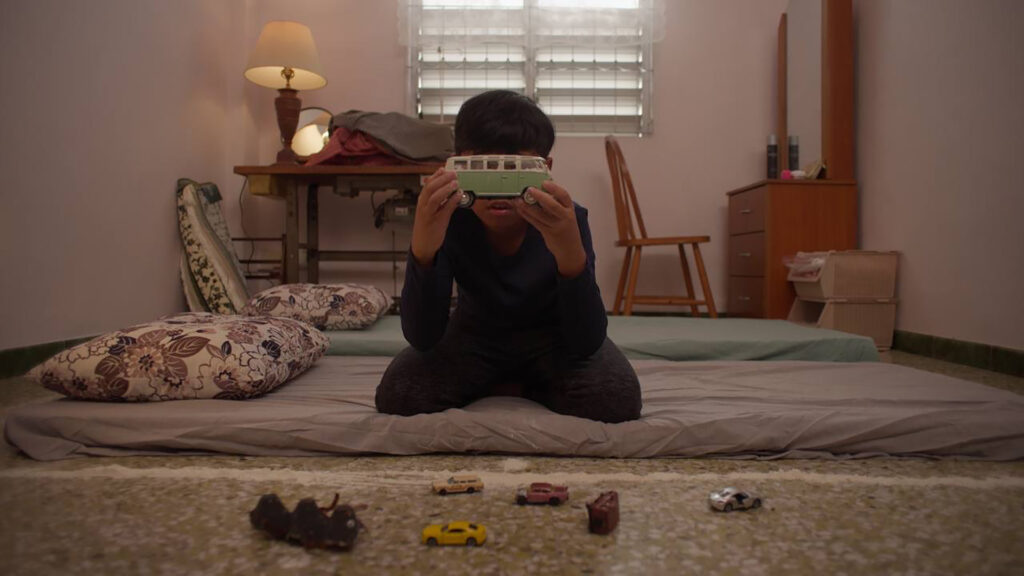
From founding grassroots mental health initiatives to writing plays and producing films, to conducting research on issues such as autism and pain, NUS Psychology undergraduate Titus Yim has used every platform to amplify voices at the margins.
His 2024 debut short film Tilam ("mattress" in Malay) exemplifies this commitment, weaving together personal caregiving experiences and cultural perspectives to challenge stigma around autism. The 25-minute work is making waves - it has been screened at local and international film festivals and offered as a psychoeducation resource to special education schools and hospitals.
Tilam: Bringing autism stories to the screen"Tilam had two key aims - to destigmatise autism diagnoses and special education, and to offer a culturally-sensitive portrayal of double-minority families that was often absent in Singapore media," Titus explained.
The inspiration for the film, which tells of a Malay-Muslim mother navigating cultural expectations and an autism diagnosis for her seven-year-old son, came from Titus' own experience witnessing his aunt take on a caregiving role for his autistic foster cousin, and his stint at the National University Hospital's (NUH's) Child Development Unit in his freshman year.
To ensure authenticity and accurate cultural depiction, Titus had insights on caring for autistic children from within the Malay-Muslim community and collaborated with Malay-speaking co-writers on the script.
The film took two years to develop and received support from the Temasek Foundation's OSCAR Fund, the National Youth Council and private sponsors.
Since its debut on 24 August 2024, Tilam has been selected for screening by seven local and international film festivals worldwide, including in Japan, the UK and India.
Through local partnerships, 50 caregivers were able to attend a private screening and dialogue. Local media platform Our Grandfather Story (OGS) also released the film online, reaching over 100,000 views in a month. More importantly for Titus, it has been distributed free to over 11 special needs schools and hospitals as a psychoeducational resource.
Amplifying voices through advocacy, storytelling and researchBeyond diversity and inclusivity, his advocacy also extends to issues related to mental well-being.
In junior college, the pressures of school, compounded by a schoolmate's suicide, spurred Titus and his friends to start MentalHealthCollectiveSG, a grassroots initiative that promoted collaboration between ground-up initiatives, students, schools, parents and mental health service providers in Singapore for the mental health cause.
He also co-founded OCDNetworkSG - Singapore's first non-profit society that supports individuals with obsessive-compulsive disorder (OCD). Through this initiative, he journeyed with a couple of people with OCD and even adapted one woman's recovery story into a play titled "Struggle of a Touch" that was staged as part of a 2023 OCD public forum.
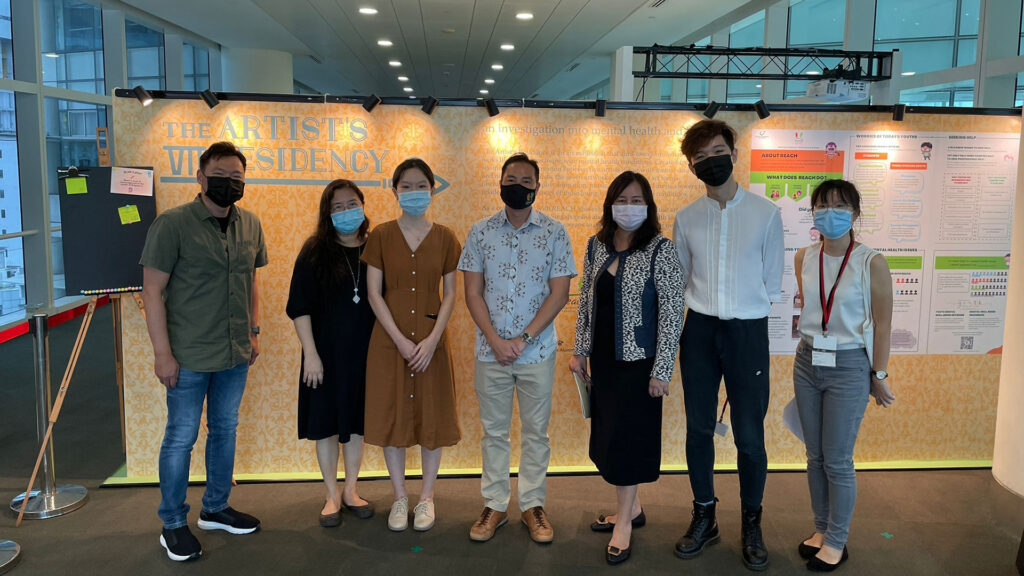
"I was very much inspired by the dedication of my aunt, who is a psychologist, when she works with people with OCD. I've seen how clients are willing to attempt difficult therapeutic exposure tasks primarily because they trust my aunt. And that cemented my desire to be in a career of building relationships. "
Titus credits NUS with providing the academic grounding and international opportunities needed to deepen his passion for psychological research in autism, psychopathology and even pain.
For example, during a student exchange at King's College London, he joined the laboratory of renowned neuroscientist Professor Francesca Happé, a pioneer in working with older autistic adults, where he helped design a survey on healthcare professionals' awareness of autistic features in older adults - and how this awareness influences the interventions they provide.
Wanting to support the elderly, like his grandmother, who suffer from chronic pain, he has been working on a meta-analysis of non-pharmacological pain interventions under NUS Psychology Associate Professor Stuart Derbyshire for the past two years.
These experiences, Titus reflected, have been the highlights of his university education so far, adding another dimension to his advocacy work. "For me, social impact work is both head and heart - we need knowledge to guide effective action, and we need soul and relationships to remind us why the work matters. That is what research and the arts mean to me."
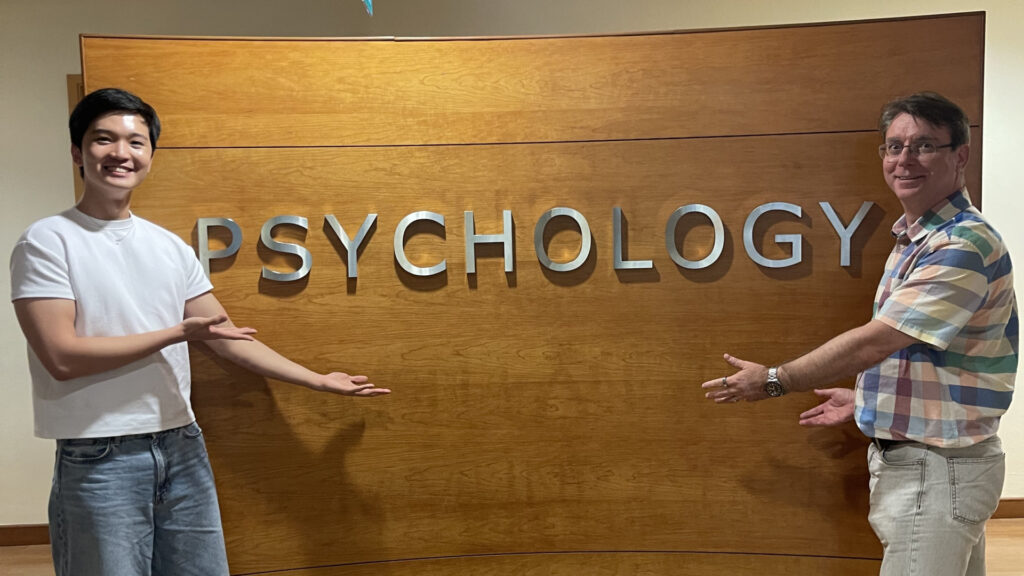
Now in his final year at NUS, Titus continues to straddle advocacy, research and the arts. He is working on a new play about migrant workers with local theatre company Toy Factory Productions and exploring a documentary project on minority communities. Research-wise, he hopes to conduct Singapore's first qualitative study on older autistic adults after completing a psychology course on autism.
When asked what motivates him through his many projects, Titus points to his family - such as his aunt who fostered his autistic cousin, his grandmother's quiet dedication as a babysitter, and his mother's instinct to care for others. Titus shared, "If I had to drill it down, it's really the strong women in my life who either subconsciously or otherwise, shaped my desire to pursue a career and a life where I can derive meaning from connecting with others."
Click on the following link to watch Tilam on OGS' YouTube channel: https://www.youtube.com/watch?v=xQE6iShJcKc.
This story first appeared on NUSNews on 22 September 2025.
Pitfalls of self-reported measures of self-control: Surprising insights from extreme debtors
In the realm of personal finance and psychology, personal debt has long been an area of concern, with individuals racking up large amounts of credit card debt and other forms of debt. Self-reported measures, such as the Brief Self-Control Scale (BSCS), are frequently used to predict and assess risk factors for debt-prone individuals. However, these measures rely on individuals' self-reflections on their thoughts and behaviours, and may be distorted by the individual’s inflated sense of self-control, thus skewing the results of such assessments. In the study "Pitfalls of self-reported measures of self-control: Surprising insights from extreme debtors" (Journal of Personality, 2023), Associate Professor Jia Lile (NUS Psychology), Wei Lun Yuen (NUS Marketing), Dr Ong Qiyan (NUS Social Service Research Centre) and Associate Professor Walter Edgar Theseira (Singapore University of Social Sciences) found that extreme debtors tended to report higher self-control on self-report measures but scored lower on objective measures of self-control tasks. The researchers used a combination of self-report measures and objective tasks to assess the profiles of extreme debtors with two control groups — Singaporean adults and college students from an elite national university, a group known to excel at self-control. They found that self-reported measures may be more susceptible to an individual’s psychological distortions as compared to behavioural measures. Unlike self-reported measures, behavioural measures involve capturing people’s responses to specific scenarios rather than having them self-assess. Interestingly, extreme debtors appeared to hold an inflated perception of their self-control capacity, possibly arising from rationalising past failures or comparing their social standing with other debt-ridden individuals. This means that extreme debtors face a "double whammy" situation where they suffer from real deficits in inhibitory control and an illusory sense of strong self-control capacity, which could deepen their financial troubles due to overconfidence in situations requiring financial regulation. Beyond illuminating weaknesses in methods used to assess self-control, the findings carry broader implications given the growing reliance on readily-available digital spending where it has become increasingly easy for individuals to lose track of accumulating expenditures. This issue is not limited to debt-ridden individuals; even individuals with moderate debts may overestimate their self-control capabilities. Ultimately, it is crucial for interventions to cultivate both realistic self-awareness and concrete behavioural regulation strategies tailored for individuals with poor financial behaviours. Read the full article here.

STEER India 2025: Exploring community and cultural development in a dynamic nation
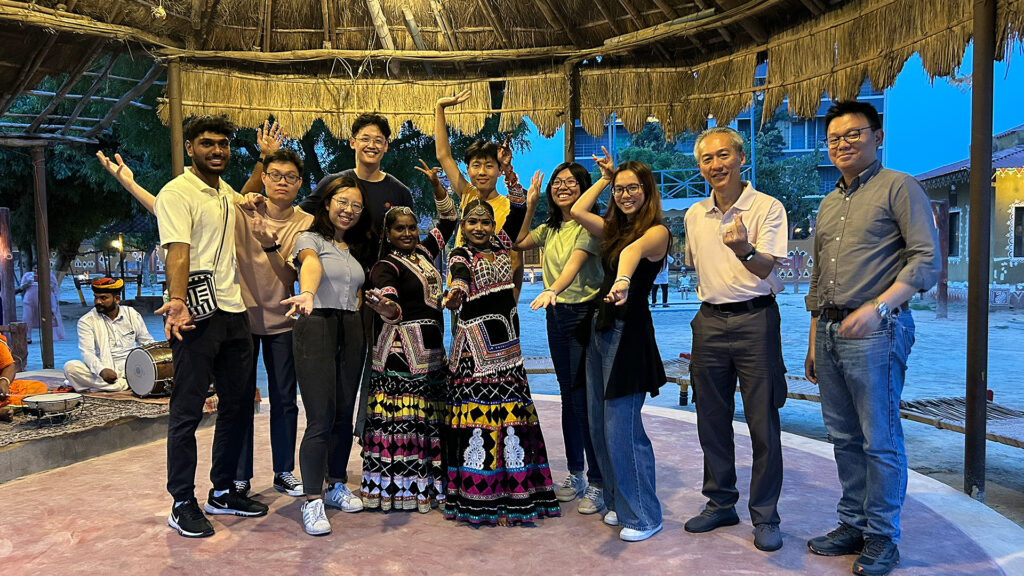
In June this year, seven NUS students from various faculties embarked on a nine-day journey to New Delhi and Agra in India as part of the Study Trips for Engagement and EnRichment (STEER) programme led by Associate Professor Loh Wai Lam, Academic Director of NUS Global Relations Office (GRO). The trip, jointly organised by GRO and the Office of International Affairs & Global Initiatives at O.P. Jindal Global University (JGU), was curated to enable the students to experience the vibrancy and dynamism of India through a blend of academic discourse and cultural immersion.
Breaking existing mindsets and experiencing the cultural landscape
Through classroom sessions, site visits, and direct engagement with local communities and institutions, students were able to examine the relationship between community building and cultural expression in India, and gain insights into the intricacies of the country's social fabric and development efforts.

A key component of the programme was a series of six classroom sessions at JGU which provided students with foundational knowledge of the historical, social, and economic factors shaping community development in India. At a visit to the Constitution Museum on campus, they also learned about the birth of the Indian Constitution, which was established following the country's independence from British rule.
For second-year Business Administration undergraduate Kuo Tsung Hsun, learning how the nation emerged as the world's largest democracy was deeply inspiring. "The value of democracy is not something easily earned. This is an idea that I'm beginning to appreciate," he reflected.
In addition to learning about India's history and governance, the students examined the enduring impact of the caste system - a social hierarchy that, although legally abolished, continues to influence access, identity, and opportunity in both subtle and overt ways. The students also explored India's cultural heritage, diving into the preservation of indigenous languages as a means of maintaining community identity, and the role of traditional ecological knowledge in advancing sustainable development.
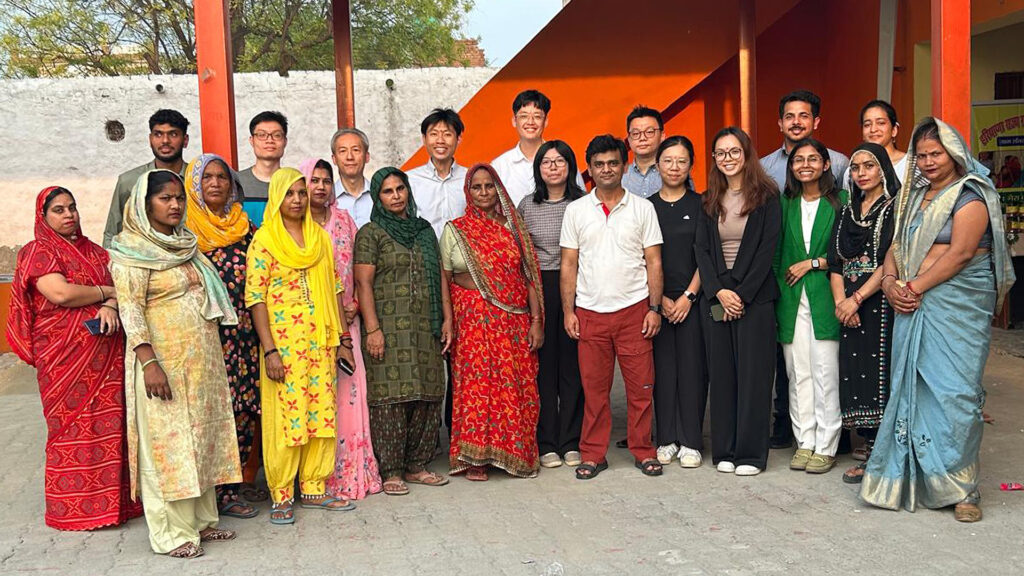
A visit to a village in Sonipat, where JGU is located, and an interaction with a local self-help group also left a lasting impression on the students. They were deeply moved by the stories of hardship and perseverance from women who had started businesses despite social and financial barriers. Many were inspired by their simple yet powerful message to "just dream".
Reflecting on the encounter, second-year Psychology undergraduate Ameline Ang said, "These women carved out their journeys not because conditions were ideal, but because they believed change was possible. Their entrepreneurial spirit wasn't built on access, but on sheer will. It made me reflect on my own privilege and the responsibility I have to create meaningfully, not just comfortably."
These experiences were further enriched by a visit to the High Commission of the Republic of Singapore in New Delhi, where the students had the opportunity to engage with Singaporean diplomats and gained first-hand insights into their roles and daily lives in India.
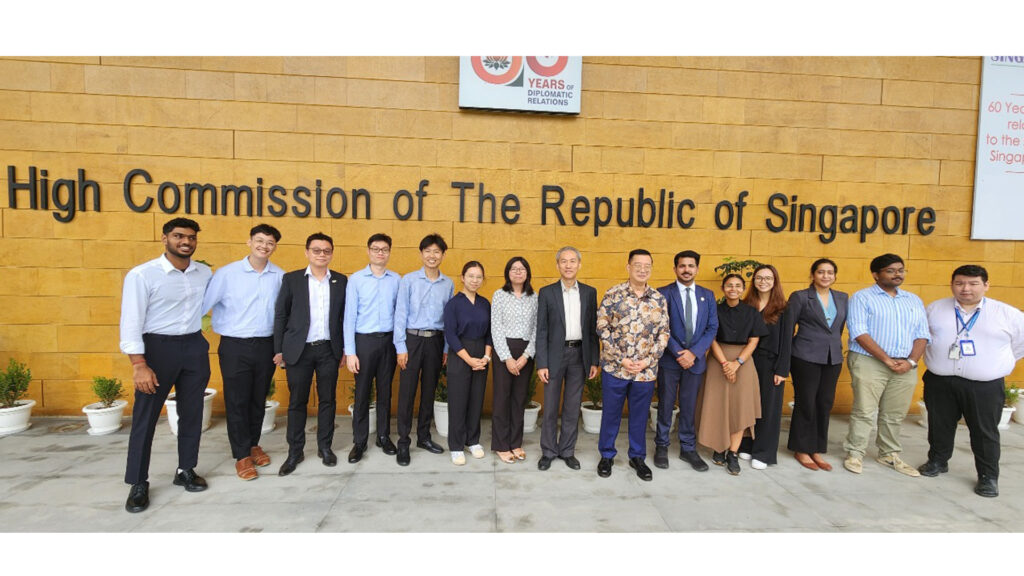
No STEER trip would be complete without visits to iconic historical sites. The first visit was to Humayun's Tomb, a UNESCO World Heritage Site located in Delhi that was built in 1570. As the first garden-tomb in the Indian subcontinent, it represented a turning point in Mughal architecture, setting the stage for later masterpieces like the Taj Mahal, another UNESCO World Heritage Site, which the students visited later in their trip.

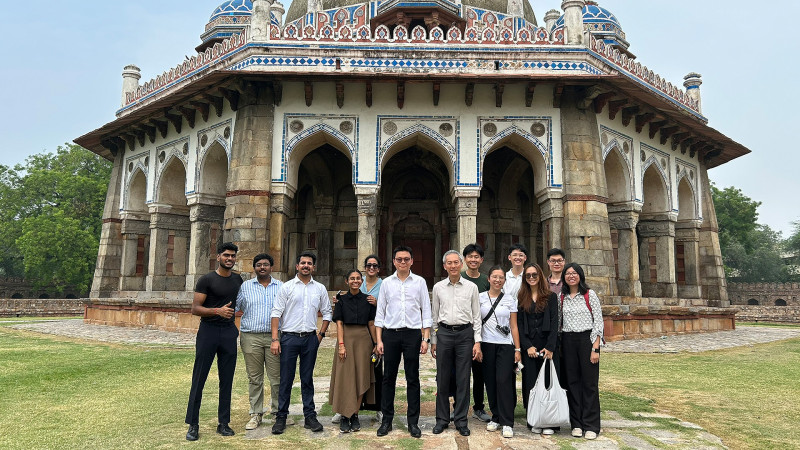
Looking back and moving forward
At the end of the programme, the students were asked to reflect on their experiences in India: what were they passionate about; what emotions did they experience; what changes in mindset did they undergo; and what tangible plans can they make and act on?
For Eric Sim, a third-year Information Security undergraduate, the visit marked a fitting end to an insightful and rewarding journey in India. More than just academic learning, the trip offered him fresh perspectives and lasting memories. "It was so much fun that it's etched in my mind to this day-and hopefully these memories will last for more than a lifetime. I already miss every moment with them. Dhanyavaad (which means 'Thank you' in Hindi), everyone."
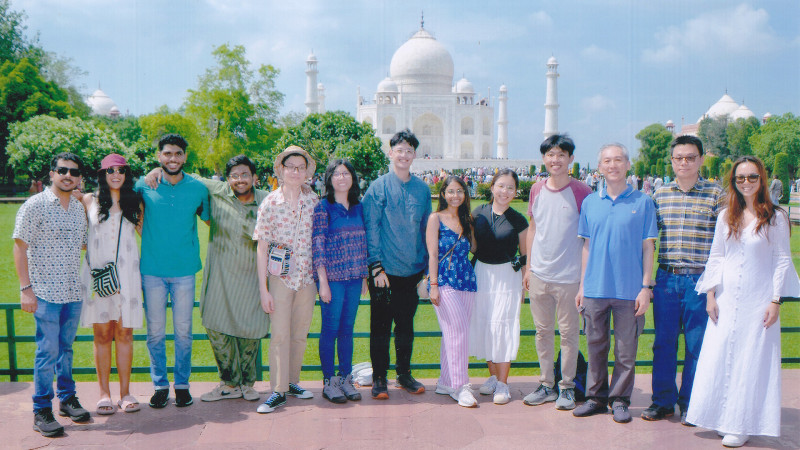
This story by the NUS Global Relations Office first appeared on NUSNews on 1 August 2025.
Answering the Call of the Stage
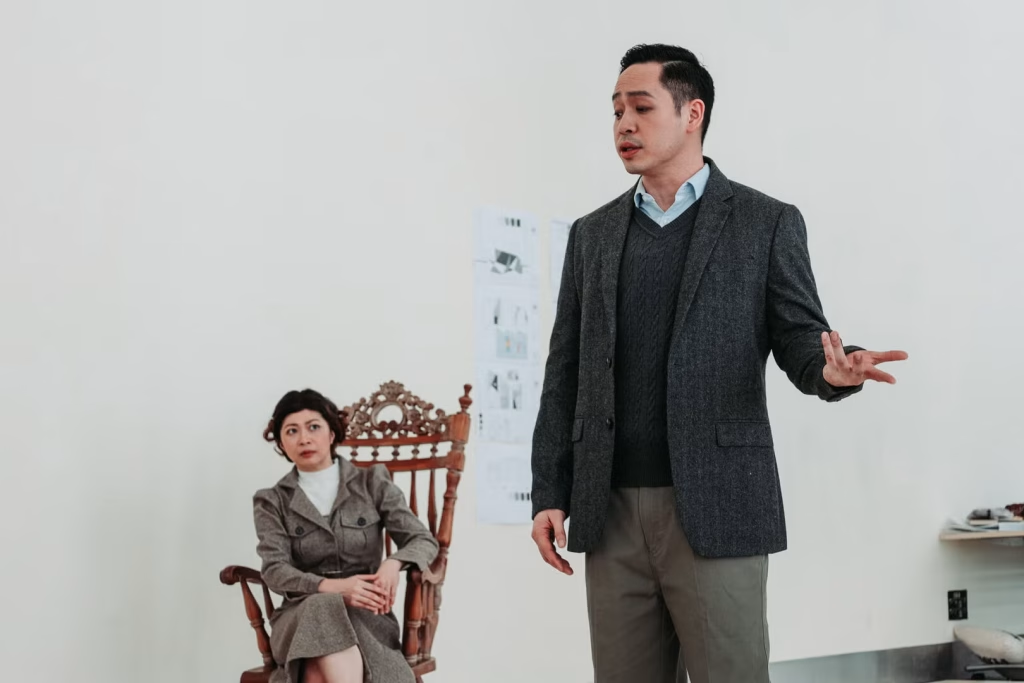
Within Singapore's tight-knit theatre scene, every production feels a little like a reunion. And for performers and backstage crew alike, familiar faces collaborating to tell fresh stories on stage lead to making new memories. Beyond sets or scripts, strong communities are being built too.
NUS alumni Mr Timothy Wan (NUS English, Linguistics and Theatre Studies '13) and Ms Marilyn Chew (NUS Psychology '19) concur. They first collaborated on local Mandarin theatre company Toy Factory Productions' Old Songs of Redhill Market in 2021, and more recently, WILD RICE Singapore's historical romp Dreamplay: Asian Boys Vol. 1. Moonlit City, an original Mandarin musical that marks Singapore's 60th birthday and Toy Factory Productions' 35th anniversary, will be their third production together as part of a larger working team.

Named after a popular Mandarin song, 城里的月光, written by well-known local composer Tan Kah Beng, Moonlit City blends local music, history and theatre to retell the enduring love story of Singapore's founding leader Mr Lee Kuan Yew (HonLLD '13) and his wife, Mdm Kwa Geok Choo (DipArts '47). Helmed by Toy Factory Productions' Chief Artistic Director Goh Boon Teck, playwright Jedidiah Huang (Arts & Social Sciences '21) and music director Benny Wong, the production features an impressive ensemble including leads Mr Wan and Sunny Yang, joined by Katherine Tang, Joel Low, Misha Paule Tan, Clement Yeo, Mabel Yeo and Joel Tan. Ms Chew is part of the production team, serving as stage manager.
Both Mr Wan and Ms Chew relish the opportunity to work together again, to break new creative ground and strengthen a foundation of trust. "With rehearsal processes, when you're working with people you're familiar with, you always feel like it's a safer space to sort of get into it as quickly as possible," explained Mr Wan. "You know what you can expect." He is familiar with the story of Mr Lee Kuan Yew, having taken on the role of trade unionist and Barisan Socialis leader Mr Fong Swee Suan in the 2022 staging of The LKY Musical by Singapore Repertory Theatre. Playing the lead role this time is "a nice return to the story," he added. "Here we are, 10 years on, with another LKY production. It's a story that resonates a lot with Singaporeans and something that they continue to have an interest in, and want to know a bit more about. I think it's an exciting time to be able to tell it again."
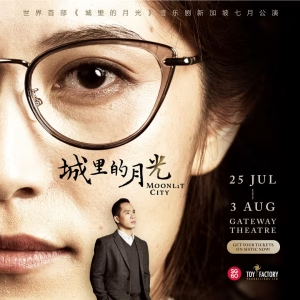
Their university experiences, which shaped their careers, were vastly different. Mr Wan majored in theatre studies, and his cohort was small, with just 11 students. "It felt like one big production stretched over four years," he says, adding that he got to know everyone well. While some of his peers left the industry to teach or work in marketing, many still remain connected to theatre in one way or another.
Ms Chew, in contrast, pursued a major in psychology. "My cohort had over 300 people," she said, recalling the chaos of bidding for modules. For her, the thrill of independence was a highlight of her undergraduate days, living on her own for the first time, and heading to Sydney for a four-month student exchange programme at the University of New South Wales. "I think I really grew as a person at NUS," she says, "not just through classes, but all the experiences outside of them." Some of her closest friends to this day are from the Arts Camp recreational group she joined in her freshman year.
Both Ms Chew and Mr Wan acknowledge that their early taste of theatre set the stage for everything that followed. Their respective leaps of faith - one many young creatives will recognise - have turned into careers. Ms Chew had been convinced she would follow a path into counselling or social work after graduation. But a longing for the backstage world she had left behind after doing drama for her GCE 'O' Levels at St Nicholas Girls' School and being in Anglo-Chinese Junior College's Drama Club was a siren call that grew louder over time. "I didn't think that I would pursue anything. Drama and theatre was a CCA I enjoyed," she explained. "But after my first year at university, I realised I missed the theatre. Not necessarily performing, but just being in that environment. Even the chaos backstage!"

Encouraged by a friend, she started reaching out to theatre companies, offering to crew or support backstage.
"In this line of work, opportunities are through word of mouth. One project led to another. And I decided that while I really enjoyed psychology and what I was learning, being in the world of backstage theatre was a very nice combination of what I'm good at, what I love and what I can make to support myself financially."
Her first professional experience was working with revered director Brian Gothong-Tan on a multimedia outdoor performance with a 360-degree stage at Gardens by the Bay during the 2016 Singapore International Festival of the Arts. "It was so far-removed from the classroom shows I was used to," she said. "It opened my eyes to how professional theatre could be more than just behind a proscenium or within a studio theatre - it was outdoors, immersive, experimental. That changed everything."
Mr Wan, who has trained with SITI Company New York and the Suzuki Company of Toga in Japan, had a different journey. He had imagined pursuing a general Arts degree with a major in history, but an elective in theatre studies intrigued him. "It felt like something different, and I wasn't worried it would derail my trajectory by much. After majoring in it, I thought, can try lah," he explained. "Subsequently, before my Honours year, I started auditioning. I was quite fortunate that, through the years, there was always work available." Mr Wan, who is married to theatre actress Ching Shu Yi, has an impressive CV of over 40 English and Mandarin productions.
Maintaining Strong Ties with their Alma MaterBeyond their studies, both enjoy a personal connection with NUS. Mr Wan, an adjunct lecturer at Nanyang Academy of Fine Arts, has returned to conduct physical theatre workshops for final-year NUS Theatre Studies students. "They were just one-day sessions, about three hours each," he said. "But it's always nice to go back."
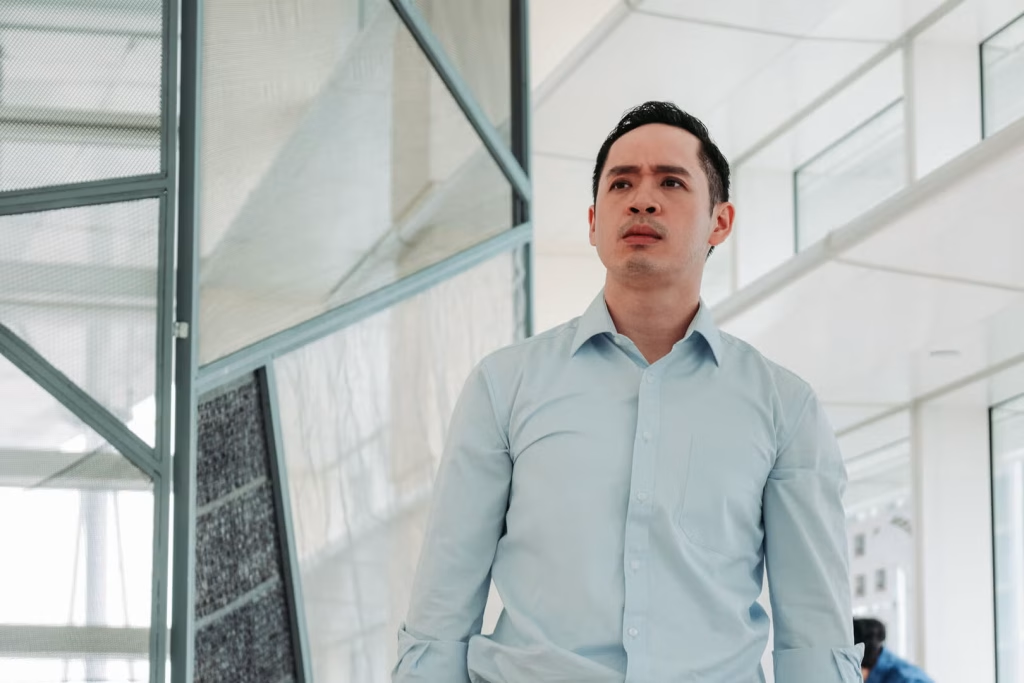
Ms Chew shares a more personal connection - she met her fiancé at NUS. They pursued the same degree programme but only got to know each other when they worked on a final-year module together. "Out of 300 people, somehow our paths crossed," she said with a smile. Her fiancé now works in the social services sector, supporting underprivileged children through non-profit organisation KidSTART Singapore.
With support from their partners and families behind them, both are proud of how they have been part of Singapore theatre's growth. Ms Chew believes that Singaporeans have grown more receptive to local productions as a great entertainment option beyond cinema offerings or touring international productions. "Of course, they still go to West End and Broadway productions, but in recent years, audiences have become more open to Singaporean works and homegrown stories," said Ms Chew. "I do get a sense of this, and it feels good."
This story by Michelle Bong first appeared on AlumNUS on 17 July 2025.
Predicting anhedonia using naturalistic and lab-based measures of reward
Depression is one of the most common mental health challenges affecting young people, with symptoms often emerging and intensifying during the critical transition from adolescence into young adulthood. Among these symptoms, anhedonia, the reduced ability to feel pleasure or interest in activities, has gained attention as a particularly serious and understudied issue. Anhedonia not only increases risk for depression and poor treatment outcomes but is also strongly linked to greater suicidal thoughts and behaviours. Consequently, there is a critical need to identify processes that predict individual differences in anhedonia risk and maintenance. Funded by the Clinician Scientist-New Investigator Grant from Singapore’s National Medical Research Council to Assistant Professor Kean J. Hsu (NUS Psychology), Dr. Hsu will lead a team of investigators from Singapore and the UK, including Concurrent Degree Program graduate student Justina Tan Sue Ching (NUS Psychology), recent NUS psychology graduate Qingyi Huang, and Professor Argyris Stringaris (University College London Psychiatry), and will receive mentorship from Prof Roger Ho (NUS Psychological Medicine). Running until 2027, ‘Predicting Anhedonia Using Naturalistic and Lab-Based Measures of Reward’ investigates how different types of reward-related processes such as the anticipation or enjoyment of positive experiences contribute to the development and persistence of anhedonia in late adolescents and young adults. The study will recruit up to 250 young adults aged 18 to 24 in Singapore, spanning a broad spectrum of anhedonia symptom severity. Using both lab-based tasks (e.g. social reward anticipation) and naturalistic assessments (e.g. academic achievement and study behaviour), the team will track participants over six months. Combining self-report, behavioural, and longitudinal data with machine learning models, the project seeks to pinpoint which reward-related processes most robustly predict worsening or improvement in anhedonia and related symptoms over time. This project has four key aims. First, it seeks to identify which reward-related processes predict the development and maintenance of anhedonia and depression in adolescents transitioning into adulthood, specifically distinguishing between reward anticipation and reward consumption. Next, it aims to examine how these processes function across both laboratory and naturalistic contexts through the assessment of social rewards in lab-based tasks and academic rewards in real-world settings such as grade anticipation and receipt. Third, it will use data-driven approaches such as machine learning algorithms to determine which aspects of reward processing most robustly predict individual differences in anhedonia severity over a six-month follow-up period. Finally, the project aims to generate empirical evidence that can support early identification and intervention efforts by pinpointing measurable reward-related markers that signal increased risk for persistent anhedonia and related forms of psychopathology. This research fills a critical gap in the literature by directly studying anhedonia, rather than using broad depression diagnoses as a proxy, and by incorporating both experimental and real-world data over time. Existing studies have been largely cross-sectional, focused on clinical populations, and restricted to limited reward types such as money or food. This study's comprehensive and longitudinal design allows for a more nuanced and ecologically valid understanding of how reward dysfunction unfolds. Findings from this project will provide valuable insights for clinicians, educators, and researchers by identifying early psychological risk markers and potential intervention targets, supporting the development of more tailored and effective treatments for young people experiencing anhedonia and related symptoms.

The art of academics: NUS graduates on pursuing their artistic passions
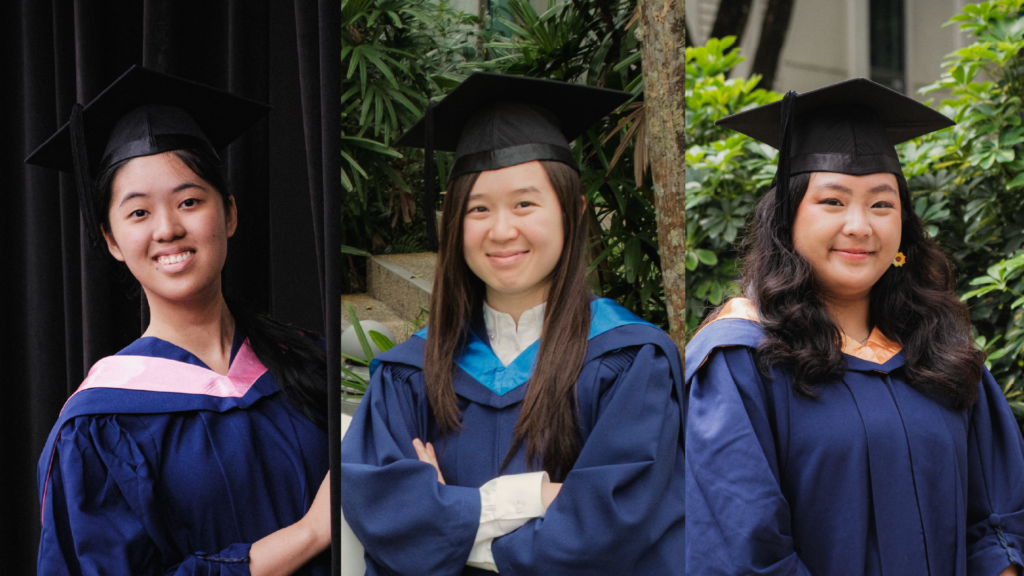
Pursuing the arts is more than a pastime. As three NUS graduates from the Class of 2025 can attest, it's a way of making sense of the world through media like theatre, fiction and poetry. Better yet, it has also enriched their time at NUS.
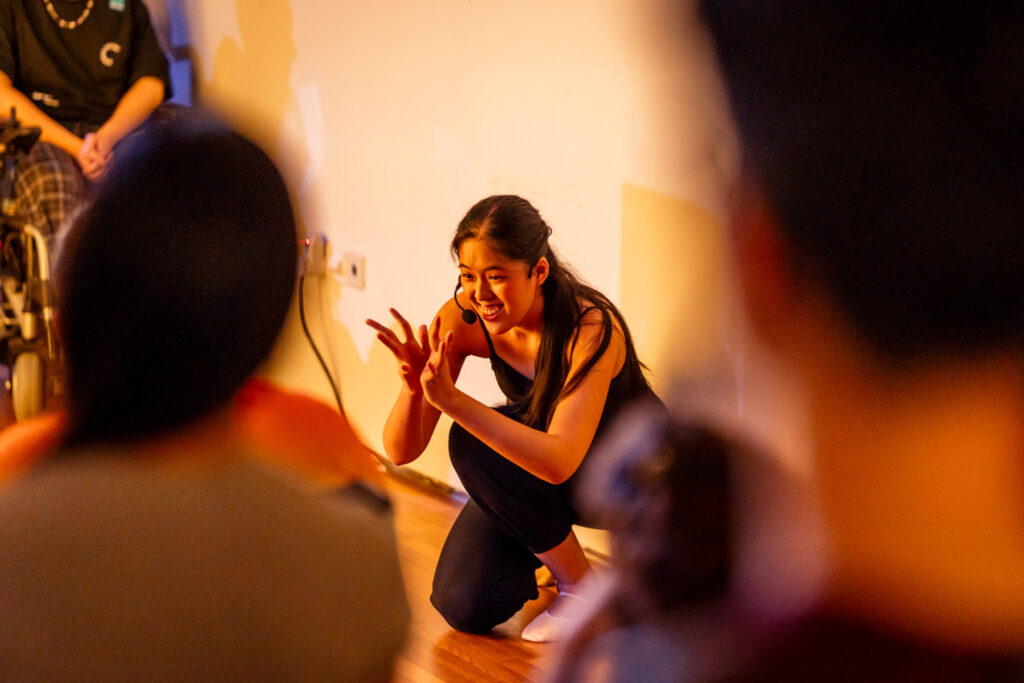
Jade Ow: Singapore's trailblazing deaf actress
As a teenager, Jade Ow was always told that her voice was not "standard or conventional" enough for theatre. Born with moderate-severe deafness, she turned instead to visual arts, literature, and dance as outlets of expression.
But Jade still longed to break into theatre. In 2021, she decided to take a leap of faith and enrolled in Theatre Studies at the NUS Faculty of Arts and Social Sciences, with a minor in Chinese Translation.
"I had a really difficult time convincing people at first that I could go into theatre," admitted the 23-year-old. Her family was also worried about the financial viability of theatre as a career.
Thankfully, she found a "support crew" at NUS. "Teachers came together to really help me with my journey, and I'm very grateful for them," she shared. For instance, Dr Noorlinah Mohamed, who taught the course Voice Studies and Production, guided her through intensive voice and speech training in her second year.
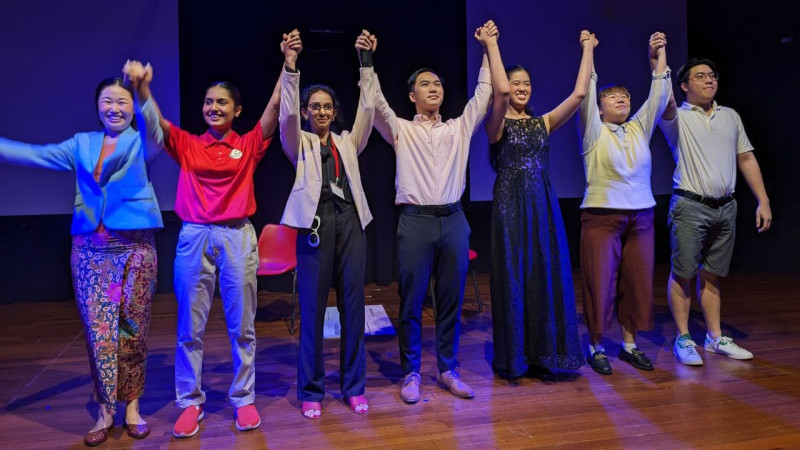
The Student Accessibility Unit also equipped her with assistive speech-to-text technologies, helping her fill in the gaps when she lip-read during conversations and classes. They even connected her with theatre professionals, including director and disability arts advocate Peter Sau, who is currently her mentor in ART:DIS Singapore, a non-profit that advocates for opportunities for persons with disabilities within the arts scene. These experiences honed her craft and expanded her industry network.
By 2023, Jade had found not only her voice, but also her calling. Today, she has carved a niche for herself as one of Singapore's few deaf actresses.
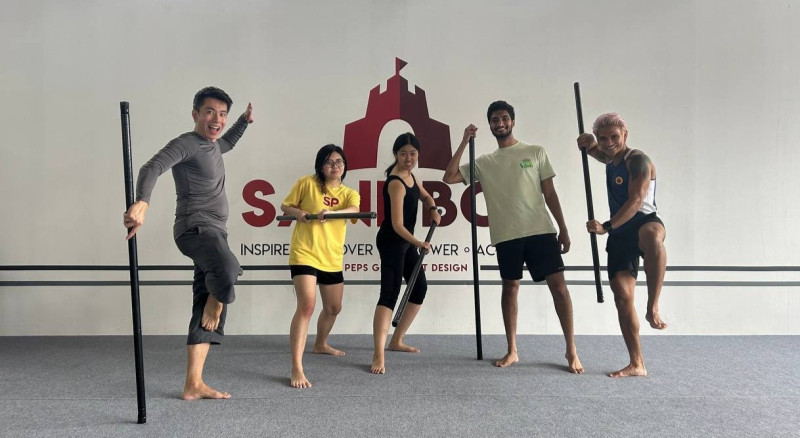
"Every chance to put myself out there is one step closer to where I want to be… It's not really about achieving an Oscar or a 金马奖 (Golden Horse Award)," she said. "To me, the highest level of artistry is getting to that level where I feel satisfaction when I am performing."
Her biggest role to date is her breakthrough autobiographical performance in Through The Looking Glass, directed by Claire Teo, and performed as part of the Light to Night Festival in conjunction with Singapore Art Week 2025. She credits NUS for providing a rare confluence of cultural diversity, academic freedom, and advocacy platforms. "I don't think I could have gotten such a journey anywhere else in the world," she noted.
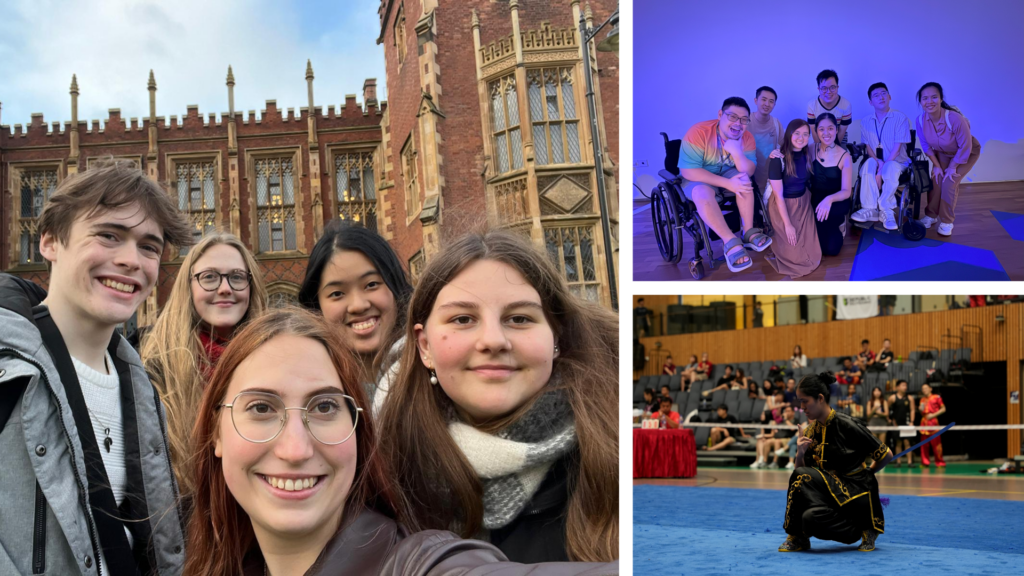
Her family has since thrown their support behind her career choice. Post-graduation, she continues her journey as a theatre professional, while working with arts entities such as the National Gallery Singapore and the Singapore Drama Educators Association to promote disability arts in the region.
She also wishes to inspire other disabled artists. "I'm hoping to visit more special education schools, share my experience as an artist and disability advocate, and encourage students to see the arts as a path they can take too," she said.
Ng Ziqin: Blending law with a love for writing
Ng Ziqin's passion for the literary arts began before her NUS days. She started writing novels in secondary school, completing a coming-of-age novel, Every School a Good School, just before entering university. The book was a 2022 Epigram Books Fiction Prize finalist.
During her four years at NUS Law, Ziqin led University Court Friends, a pro bono project under the faculty's pro bono group; served as Editor-in-Chief of its digital publication, Justified; and taught writing classes via Book-a-Writer, a programme started by literary non-profit SingLit Station.
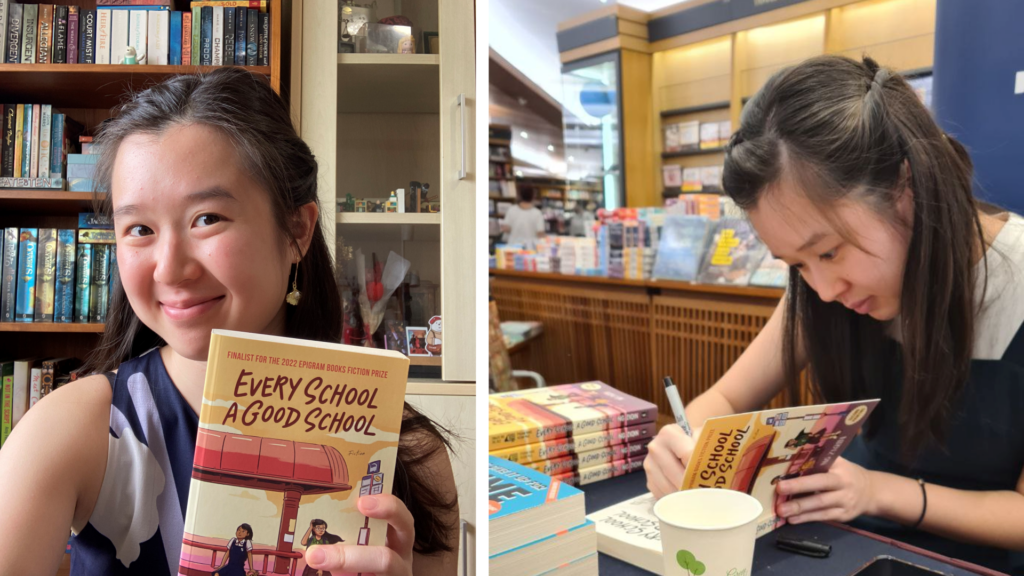
For the 23-year-old, who lived on campus for two years under the NUS College (NUSC) programme, law and writing are two sides of the same craft. "NUS taught me what kind of lawyer - and person - I want to be," she said. "I want to keep being someone who finds purpose in my job and maintains a personality and friends outside of work."
At NUSC, she honed her short-story writing skills through the Global Experience (GEx) Paris programme, choosing a course centred on the arts, diplomacy, and social innovation. During the month-long programme, which included language classes and seminars, she found time to visit 18 museums in Brussels, Paris, Villers-Cotterêts and Giverny. This immersive journey inspired a collection of five short stories, titled Tales from the Pyramides, currently unpublished.
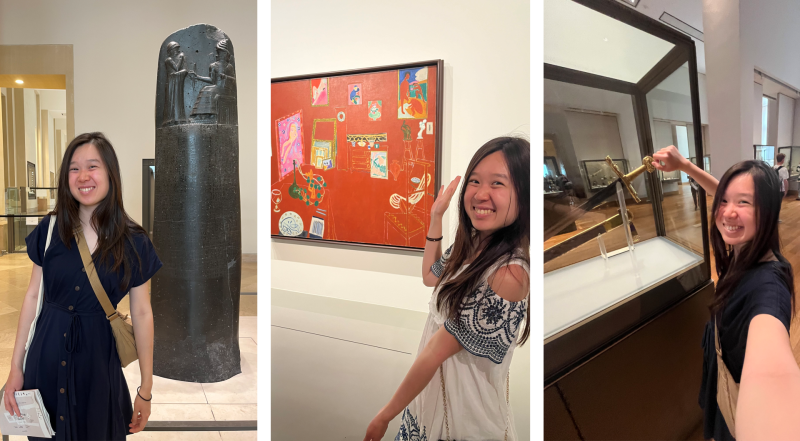
Ziqin even found a way to merge her interest in law and creative writing. For instance, she joined the scriptwriting team for Law IV, an annual musical traditionally staged by the graduating law cohort.
These creative projects are ways of "exploring authenticity". This process is critical for Ziqin who "draws from lived experience" to pen her stories.
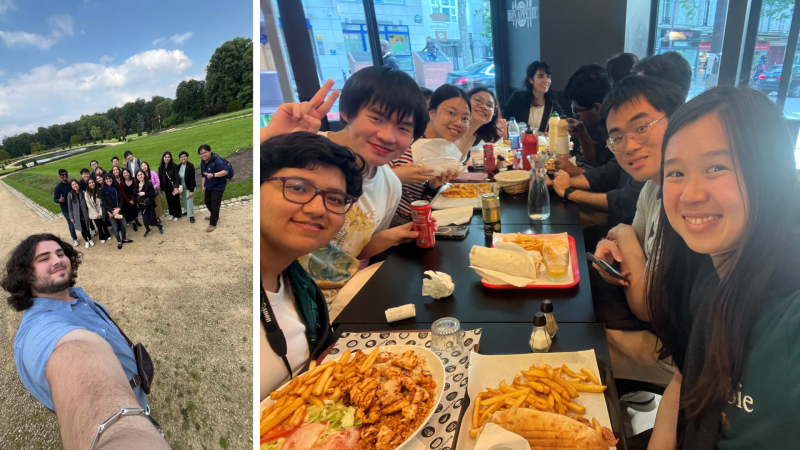
Ziqin will be preparing for the Bar exam in the coming months - but that doesn't mean she is putting her creative work on the backburner.
When time allows, she hopes to spend the latter half of 2025 working on her next novel, about a university student stranded with a Chinese ethnic minority tribe during a trip to China.
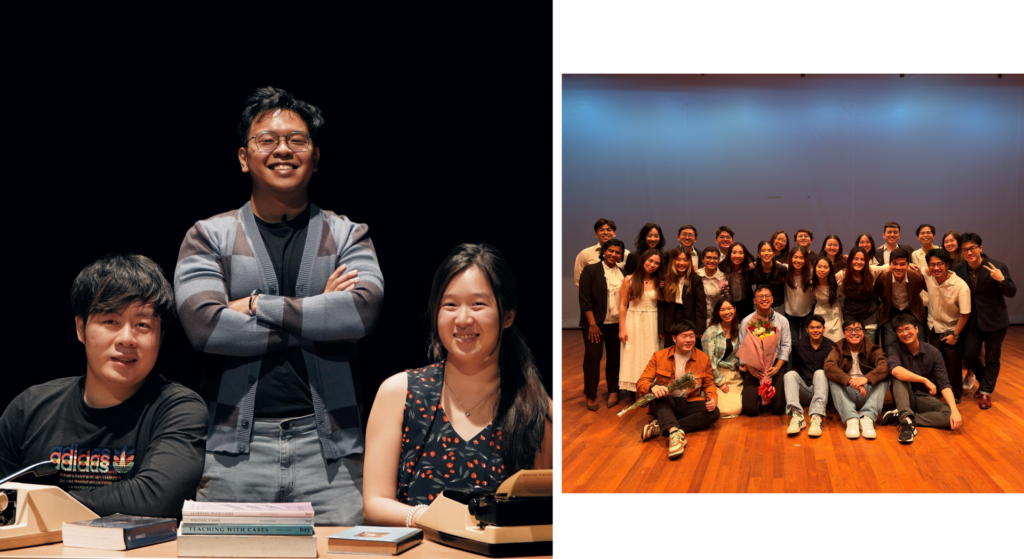
The idea was sparked by her visit to Betel Nut Valley in Hainan, a lived experience she wishes to capture in writing.
Stephanie Peck: Finding purpose in poetry and psychology
In the quaint, seaside town of Swanage, England, with its chalk cliffs and sea breeze echoing with bird cries, Stephanie Peck and her friends came to a realisation: life was bigger than the woes they faced as secondary school students.
"It was so peaceful, our brains couldn't handle it," she said with a laugh.
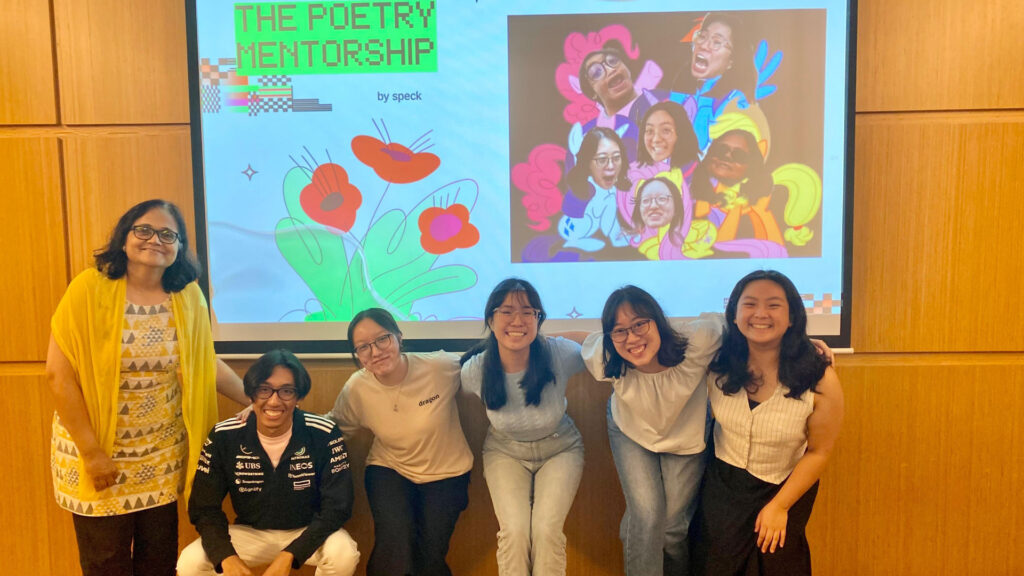
"The adolescent period is not easy. (Psychologists) call it a period of storm and stress," said Stephanie. Then 15, she was in Swanage to learn about geography. But the trip ended up sparking her curiosity about the human mind and mental health.
Now 23, she has traversed an eclectic academic journey. She initially enrolled in medicine, but eventually switched to psychology, along with a double minor in English Literature and Southeast Asian Studies at the NUS Faculty of Arts and Social Sciences. In hindsight, the arts was the right place as she grew creatively and academically.
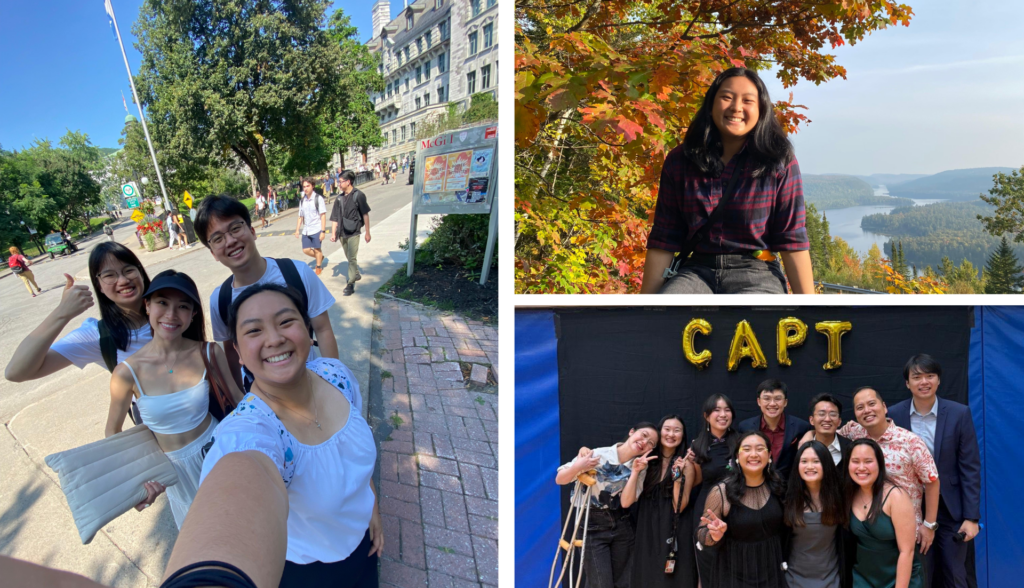
During her five years in the College of Alice & Peter Tan (CAPT), a pivotal moment came in 2022 when she took the course Identities in Asia. It was taught by Senior Lecturer, Dr Kankana Mukhopadhyay, who encouraged the budding poet to submit poetry reflecting on the course's field trips.
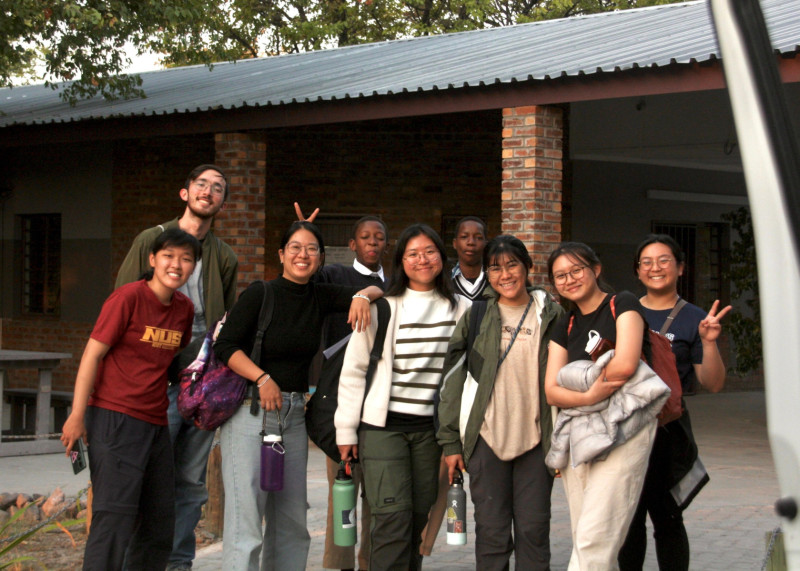
With Dr Kankana's support, Stephanie launched "Beginner's Guide to Writing Poetry", the following year, a reading and writing group she facilitated within CAPT for her final three semesters. One participant, who had long wished to learn to write poetry but never had the chance, described the sessions as "an answered prayer".
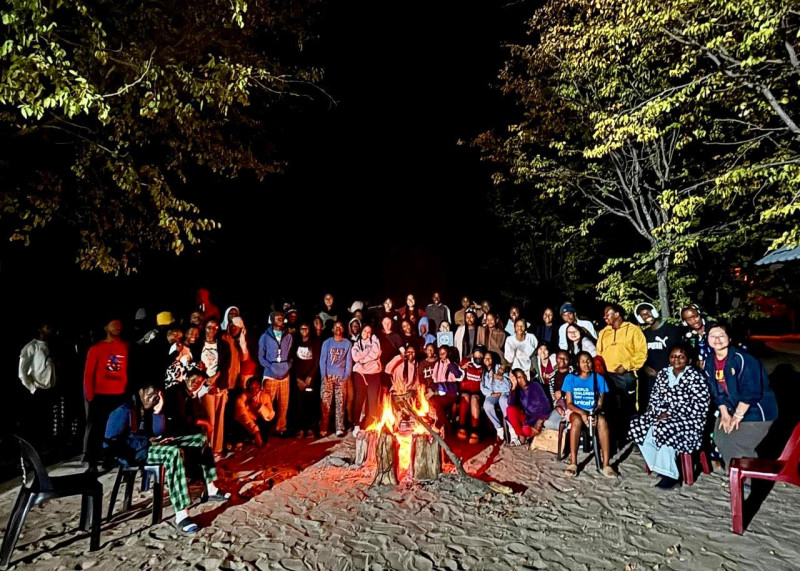
In 2024, Stephanie took her love for the arts abroad to Botswana for a two-month teaching internship at Delta Waters International School in Maun, a key partner of CAPT's Study Trips for Engagement and EnRichment (STEER) programme. There she taught English, Literature, and Creative Writing to secondary and primary school students.
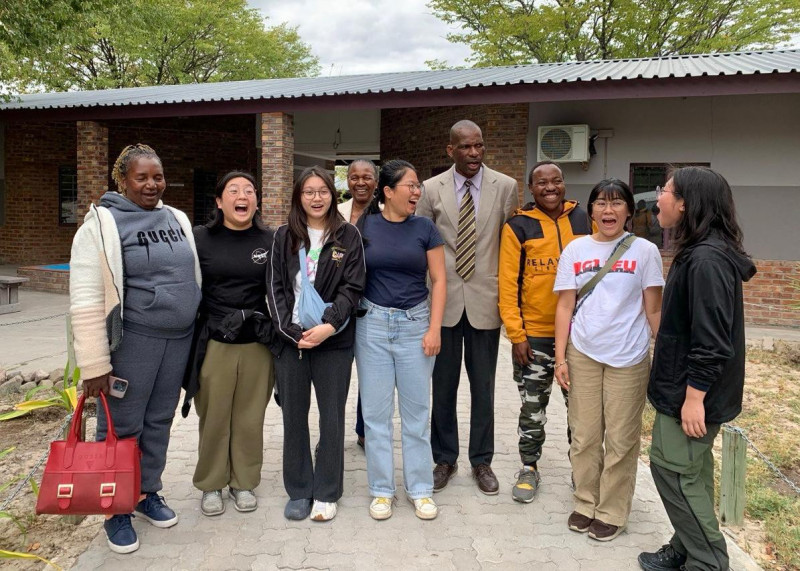
Post-graduation, Stephanie hopes to pursue clinical psychology, kickstarting her career in the mental health and social service sectors.
"What draws me to both poetry and psychology is their shared power to surprise - to shift a person's perspective when they feel stuck. Sometimes, change begins with simply seeing things differently," she said.
This story first appeared on NUSNews on 13 July 2025.
Tails of truth: How effective are fables with human-like animals in teaching children honesty?
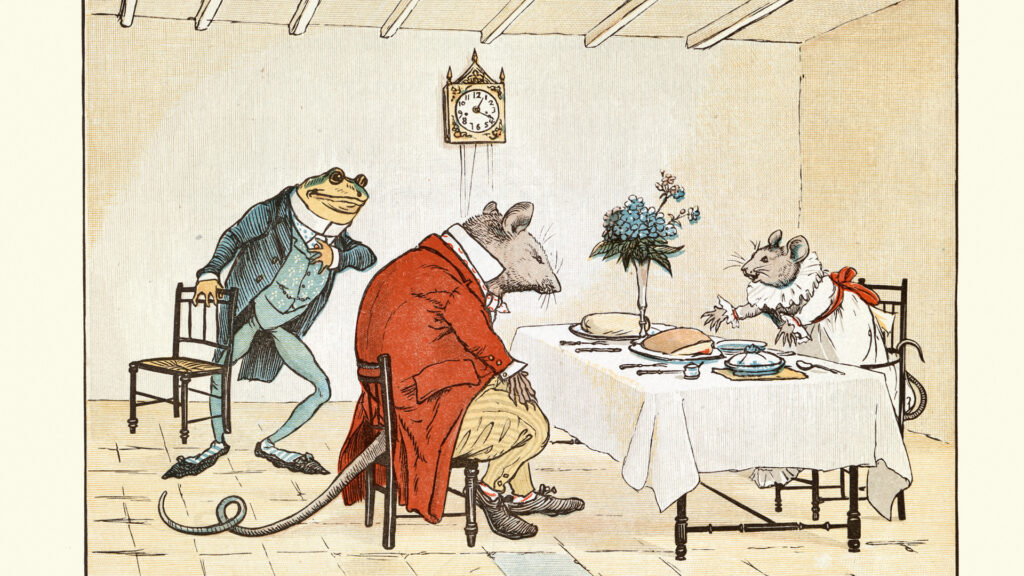
Classic fables like Goldilocks and the Three Bears that feature anthropomorphised animals, or animals with human traits, have entertained children for centuries while aiming to teach moral values. But just how effective are these stories in instilling virtues?
NUS psychologist Associate Professor Ding Xiao Pan, along with her students Cleo Tay, Chua Yu Juan and Joey Cheng from NUS Psychology, carried out an experiment involving more than 200 Singaporean children aged three to six to determine if such moral tales are effective in teaching children honesty.
Assoc Prof Ding Xiao Pan noted that children's books that feature anthropomorphised animals are very common in everyday life. She said, "Honesty is an important virtue, so we are seeking effective ways to foster it in young children. Most existing studies have been conducted in Western societies and often feature animals that many children in Singapore may not be familiar with, such as raccoons. Therefore, we sought to explore whether featuring animals they were more familiar with can most effectively support the development of honesty in our children."
In the study, each child was instructed not to peek at a laptop screen while sitting in a room alone and unsupervised. However, most children would turn around and peek at the screen, unable to resist the temptation. After the experimenter came back the room, each of them was read a different version of the moral story, George Washington and the Cherry Tree, in which Little George, the protagonist, chops down his father's favourite cherry tree and confesses to his wrongdoing when confronted. In each version, the protagonist was portrayed either as a human, an elephant, a rat or a 'control condition', where the human protagonist opts not to confess to his wrongdoing.
Researchers then asked the children if they had peeked at the screen to measure if the type of protagonist influenced their honesty.
They found that for children aged three to four, the effectiveness of moral stories differed based on the type of character, with human characters having more of an effect on honesty than stories with anthropomorphised characters. In contrast, how the protagonist was portrayed had no effect on the honesty of children aged five to six.
Another interesting finding was that portraying the protagonist as a disliked character, such as a rat, rather than a preferred character, such as an elephant, was less effective at promoting honesty than using a human protagonist.
"The study's findings are useful in helping us understand how children relate to and are influenced by the portrayal of characters in stories, and how we can modify classic moral stories to maximise their usefulness at promoting honesty and other values," said Assoc Prof Ding.
Read more about the study here.
This story first appeared on NUSNews on 7 May 2025.
FASS Inspiring Mentor 2024 Award Winners Announced
We extend our congratulations to the winners of the 2024 FASS Inspiring Mentor Awards.
- Ms. Loo Bee Bee, Senior Associate Director, Department of Psychology
- Associate Professor Ong Ee Cheng, Department of Economics
- Professor Jessica Pan, Office of the Provost and Department of Economics
Baseline Study for Health District @ Queenstown unveils key insights on residents’ well-being

Creating integrated healthcare programmes, enabling older persons to be more active socially and physically, and strengthening trust and cohesion within the community are key efforts undertaken by Health District @ Queenstown (HD@QT) to promote purposeful and healthy longevity. Findings from a new study conducted by researchers from the National University of Singapore's (NUS) Faculty of Arts and Social Sciences reinforces HD@QT's commitment towards a holistic and integrated approach to health and well-being.
Led by Associate Professor Jia Lile from the NUS Department of Psychology, the research team conducted the Baseline Study for Health District @ Queenstown using surveys, interviews and focus groups discussions to gain a comprehensive understanding of Queenstown residents' well-being, health and health-related experiences. The team was also guided by Associate Professor Lim Yee Wei from the NUS Yong Loo Lin School of Medicine and Professor Leonard Lee from the Lloyd's Register Foundation Institute for the Public Understanding of Risk at NUS and NUS Business School.
A major part of the Baseline Study consists of a multi-wave survey. Phase 1 of the survey was conducted from September 2023 to May 2024, engaging over 5,000 Queenstown residents from all walks of life; for example, participants are aged between 21 to 102 years old, and staying in various types of housing. Residents responded to questions pertaining to diverse domains such as productivity, physical and psychological well-being, and social cohesion.
Assoc Prof Jia said, "The Baseline Study is a pulse-taking project that adopts a bottom-up approach to engage residents, allowing us to hear their voices and gain a deeper understanding of their current needs and future aspirations. The insights gathered will serve as the foundation for future programmes. To ensure ongoing engagement, we are forming a resident panel to continuously gather insights into their evolving needs. Through this platform, we aim to co-develop programmes that best address and serve these needs."
The results of the Baseline Study were shared by Senior Minister of State for National Development & Digital Development and Information Mr Tan Kiat How at the opening of Happy Village @ Mei Ling on 15 March 2025. This is a new community space that brings together health and social care partners, as well as volunteers, to holistically take care of health and well-being needs within the community.
At Happy Village @ Mei Ling, the National University Health System (NUHS) is piloting an innovative care model known as the Blended Care Team (BCT), which will work closely with residents to co-develop personalised care plans, seamlessly integrating health and social expertise with strong community engagement to improve the physical, mental and social well-being of residents living in the Mei Ling and Stirling neighbourhoods.
The Baseline Study and Happy Village @ Mei Ling are the latest initiatives under HD@QT, a multi-stakeholder collaboration led by NUS, NUHS and the Housing & Development Board (HDB), working closely with multiple partners from the public, private and people sectors.

Multiple well-being factors play a crucial role in shaping overall health
Based on the findings of the Baseline Study, NUS researchers deduced that overall health is influenced by various physical, mental and psychological well-being factors such as social connections, environment, productivity and engagement.
Integrated solutions in national health programmes that consider these various factors can enhance the health and well-being of individuals across their life stages, enabling them to lead more active and fulfilling lives. Notably, the multi-sectorial and multi-disciplinary approach of HD@QT enables the development of sustainable solutions to increase healthy longevity, enable purposeful longevity, promote intergenerational bonding, and empower residents to age in place.
Older adults are mentally healthy but could benefit from increased social and physical activity
In the Baseline Study, most respondents above 65 years old reported that they have good mental health, while about two-thirds revealed that they do not actively participate in activities such as exercising, volunteering and learning.
To enable older persons to stay meaningfully engaged through community-led interactions, HD@QT has introduced initiatives such as the FaithActs x Ibasho Centre at Magaret Drive, a proactive effort to create a mindset change in society where older persons are valued for their potential to contribute to the community. Regular digital clinics and upcycling craft workshops have been organised for Queenstown residents of all ages to mingle and acquire new skills. In addition, students from NUS' Residential College 4 and Queenstown Secondary have designed creative approaches such as food hunts, cooking, and mahjong sessions to encourage older persons in Queenstown and young people to bond.
Additionally, construction for the pilot Active Health Fitness Trail at Mei Ling has begun, and Build-To-Order developments in Queenstown are designed with wellness offerings to complement the existing amenities in Queenstown. A wellness hub comprising fitness equipment for circuit workouts will be built atop the multi-storey car park at Queen's Arc, while Queensway Canopy will have roof gardens integrated with a jogging track, fitness stations and mini obstacle courses to encourage residents to incorporate exercise into their daily routines.
Holistic care for future well-being
The researchers found that among the respondents, 25 per cent of younger adults (between 21 and 34 years old) reported less than optimal health. Limited mobility and sensory impairment may also begin earlier than 50 years old.
NUHS launched Health Together in May 2023, a community initiative alongside with its partners to support the health and wellness needs of residents in the western region of Singapore by empowering them to take ownership of their well-being and stay healthy. In addition, initiatives such as Happy Village @ Mei Ling will provide social care and healthcare services to address older persons' social and physical health holistically.
Improve employment support for mature workers
The Baseline Study found that amongst those aged 36 years old and above, more than half have sufficient savings for short-term needs, i.e. they have sufficient savings to sustain six or more months of expenses. However, the study also showed that full-time employment starts to decline from 50 years old, which indicate risks for future financial security. Community initiatives to improve financial literacy and provide better employment support could be explored.
Strengthen trust and cohesion within the community
75 per cent of respondents in the Baseline Study enjoy strong social support from family and friends. In addition, 60 per cent said they trusted most people in the neighbourhood. This highlights a strong foundation for social cohesion, which can be further reinforced through community-driven initiatives.
To further strengthen trust and cohesion within the community, residents could come together with stakeholders and researchers at community spaces such as the recently launched Come4TeaLah! community engagement hub to co-create solutions tailored to Queenstown's unique needs, learn about healthier lifestyles and interact with people of all ages. In addition, residents could gather with the Queenstown Kakis, a community of neighbours who hope to build kampung spirit with activities and food in a safe space for residents to interact.
Findings from the Baseline Study will help the team identify the needs of residents and enable the assessment of the overall impact of HD@QT initiatives to improve physical, mental and social well-being for Queenstown residents in the future.
Phase 2 of the Baseline Study survey is currently underway and is targeted for completion by mid-2025. The researchers will be surveying the same group of respondents to monitor if there are changes to the earlier factors over time and they will also examine new factors such as financial literacy and caregiving.
This story first appeared on NUSNews on 17 March 2025.
Can classic moral stories with anthropomorphized animal characters promote children's honesty?
From 'The Wolf in Sheep's Clothing' to 'Goldilocks and the Three Bears', moral stories have long served to entertain children and convey moral lessons through their succinct narratives. Many of these classic moral tales feature anthropomorphised animals as key characters, with anthropomorphism — the attribution of human traits to non-human animals — being prevalent in children's stories. Previous research has found that moral stories featuring anthropomorphised animal characters are less effective at promoting prosocial behaviours compared to stories with human characters. As most of the research on learning from anthropomorphism relates to how children learn about animal biology, it remains unclear whether the results are generalisable to other domains such as moral learning. In 'Can classic moral stories with anthropomorphized animal characters promote children's honesty?' (Journal of Applied Developmental Psychology, 2023), Associate Professor Xiao Pan Ding, Cleo Tay, Yu Juan Chua, and Joey Kei Teng Cheng (all NUS Psychology) investigated the effectiveness of moral stories with anthropomorphised animal characters in promoting honesty in children. The researchers found that moral stories were only effective at promoting honesty in younger 3- to 4-year-old children but not older 5- to 6-year-old children. Additionally, moral stories featuring anthropomorphised animals such as elephants and rats were not as effective at increasing honesty compared to stories with human characters. The researchers employed a modified temptation resistance paradigm (TRP) to measure children's honesty. In this modified TRP, children were left alone in a room with a laptop displaying an animal, and told not to peek at the animal on the screen. When the experimenter returned, they read children different versions of the classic moral story 'George Washington and the Cherry Tree' where the type of protagonist varied between three conditions: a human, an elephant, a rat, and a control condition. In the story, the protagonist (Little George) chopped down his father's favourite cherry tree, then confessed to his wrongdoing when confronted. Little George was eventually rewarded for being honest by his father. In the control condition, the protagonist does not confess to his wrongdoing. After the moral story, the experimenter asked the children if they had peeked at the screen. The researchers found that anthropomorphised animal characters in the moral stories had no effect on the honesty of 5- to 6-year-olds. However, for 3- to 4-year-olds, the type of protagonist character impacted honesty levels. Moral stories with human characters significantly increased honesty compared to a control story where the wrongdoing occurred but truth-telling was not shown. Interestingly, moral stories featuring anthropomorphised animals that children disliked (i.e. rat) were significantly less effective at promoting honesty compared to moral stories featuring humans. Looking beyond this study, understanding which story elements optimise learning holds implications for utilising short fiction throughout childhood. As educators and parents aim to cultivate important moral values like honesty and virtue through diverse methods, it is crucial for them to select narratives featuring role models that children can relate to at each developmental stage. Read the full article here.

Investigating the network structure of domain‐specific knowledge using the semantic fluency task
Cognitive scientists have a long-standing interest in mapping out how information in our brains is organised and retrieved. Semantic memory is the part of long-term memory that stores facts and information about the world, and is conceptualised as a network of concepts that are connected based on associations and relationships. In order to study the large-scale structure of semantic memory, cognitive scientists may use computational network approaches to analyse behavioural data retrieved from classical psychological tests such as semantic fluency tasks. In a semantic fluency task, individuals are asked to list as many examples as they can from a specific category within a time limit, for example, naming as many animals as possible within a minute. In "Investigating the network structure of domain-specific knowledge using the semantic fluency task" (Memory & Cognition, 2023), Assistant Professor Cynthia Siew (NUS Psychology) and Anutra Guru (University of Oxford) explored differences in knowledge structures estimated from undergraduate students' (experts) and high school students' (novices) responses on domain-general and domain-specific semantic fluency tasks. Domain-general networks refer to broad and general categories like animals and fruits while domain-specific networks refer to academic disciplines like biology and physics. The researchers used computational methods from network science to quantify underlying knowledge representations of the academic disciplines used in the domain-specific semantic fluency tasks. Siew and Guru found quantitative differences in the network structures of undergraduate and high school students' knowledge representations. Specifically, undergraduate students had more efficiently connected and less compartmentalized knowledge networks across both general and domain-specific cue words. This supports the hypothesis that additional years of education, especially at the university level, help develop more integrated and efficiently organized knowledge structures. It also corroborates with previous research showing that experts possess a more principled and holistic understanding of problem domains. Compared to novices, experts focus on deeper conceptual aspects of problems rather than superficial features. The findings of this study have significant implications for education and cognitive science. They illustrate how additional years of education lead to more integrated and efficiently connected knowledge networks in students. Such insights can influence educational practices by informing curriculum design and teaching strategies to better enhance students' learning experiences. By examining differences between experts and novices, researchers can refine theories of expertise development and deepen the understanding of cognitive processes. Read the full article here.

Detecting lies through others’ eyes: Children use perceptual access cues to evaluate listeners’ beliefs about informants’ deception
Children often observe interactions between informants and receivers, providing them with insights into complex social dynamics. For example, a child might witness their father hide a diamond necklace and later overhear him tell his wife a white lie about forgetting her birthday gift, or they might see a sibling eat the last cookie and then overhear the same sibling lie to their mother about it. As third-party observers, children become privy to these dynamics, and understanding them is crucial for their effective navigation of social situations. Misjudgements in evaluating a receiver’s beliefs about an informant can land children in difficult social predicaments. In "Detecting Lies through Others' Eyes: Children use perceptual access cues to evaluate listeners’ beliefs about informants’ deception" (Journal of Experimental Child Psychology, 2024), Cleo Tay (NUS Psychology), Ray Ng (NUS Psychology), Assistant Professor Xiao Pan Ding (NUS Psychology), and Nina Ni Ye (Boston University) conducted a sticker-hiding task to examine how children perceive a receiver's beliefs regarding an informant's deception, when the informant provides a false testimony. In this task, receivers either peeked and knew the true location of the sticker or remained oblivious to it. The informant then lied about the sticker’s location, and the children were asked if they believed that the receiver would trust the informant's false testimony about the sticker's location. The authors discovered that children navigate social interactions not solely based on their own knowledge but also by considering what they believe other receivers know. When receivers are knowledgeable, children accurately predict that the receiver would express disbelief in a speaker's lie; however, when receivers are ignorant, children expect the receiver to believe in the lie, despite personally knowing its falsehood. Understanding whether a receiver trusts an informant is essential for children’s navigation of the social world. For instance, children might be able to inform an unwitting receiver of an informant’s deceptive intent and thereby gain the receiver’s trust. Conversely, children may help maintain an informant’s prosocial lie to avoid hurting the receiver’s feelings. By observing the interactions of those around them and reasoning about the interlocutors’ mental states, children can make accurate deductions about social contexts in which receiving and giving false testimony may be appropriate. Furthermore, the study revealed that children with a better understanding of others' thoughts and stronger executive functioning skills were more adept at determining if the receiver would believe the lie. This underscores the role of cognitive development in children's social understanding. As children mature, they draw upon various cues and become more discerning at assessing the trust judgments made by interlocutors. Overall, this study provides interesting findings about the processes underlying selective trust in children. Read the full article here.

Does volunteering improve the psychosocial well‐being of volunteers?

Adela Isvoranu and W. Nathan Green win FASS 2024/25 Promising Researcher Awards!
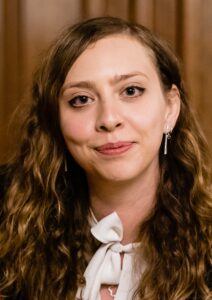
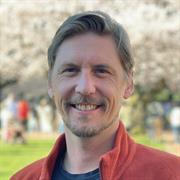 Congratulations to Assistant Professors Adela Isvoranu and W. Nathan Green, who have won the FASS Award for Promising Researcher for the 2024/25 Academic Year! Asst Prof Isvoranu is a recent appointee at the NUS Department of Psychology and primarily studies the developmental pathways from mental health to mental illness and the fuzzy boundaries between psychopathological conditions. Read an interview with her discussing her pathbreaking research on network psychometrics and other studies examining mental health here. NUS Department of Geography's Asst Prof Green is a financial geographer who has investigated Cambodia's booming microfinance industry as well as large-scale water infrastructure in the Lower Mekong Basin. He is interviewed about this and his latest study on impact investment for sustainable development in Southeast Asia here.
Congratulations to Assistant Professors Adela Isvoranu and W. Nathan Green, who have won the FASS Award for Promising Researcher for the 2024/25 Academic Year! Asst Prof Isvoranu is a recent appointee at the NUS Department of Psychology and primarily studies the developmental pathways from mental health to mental illness and the fuzzy boundaries between psychopathological conditions. Read an interview with her discussing her pathbreaking research on network psychometrics and other studies examining mental health here. NUS Department of Geography's Asst Prof Green is a financial geographer who has investigated Cambodia's booming microfinance industry as well as large-scale water infrastructure in the Lower Mekong Basin. He is interviewed about this and his latest study on impact investment for sustainable development in Southeast Asia here.Touching the Lives of Those Young and Old, Through Community Service
IN BRIEF | 10 min read
- Embodying the University's spirit of service to country and society, members of the NUS Community Service Club (NUS CSC) have been key drivers of volunteerism among our student population over the past 22 years.
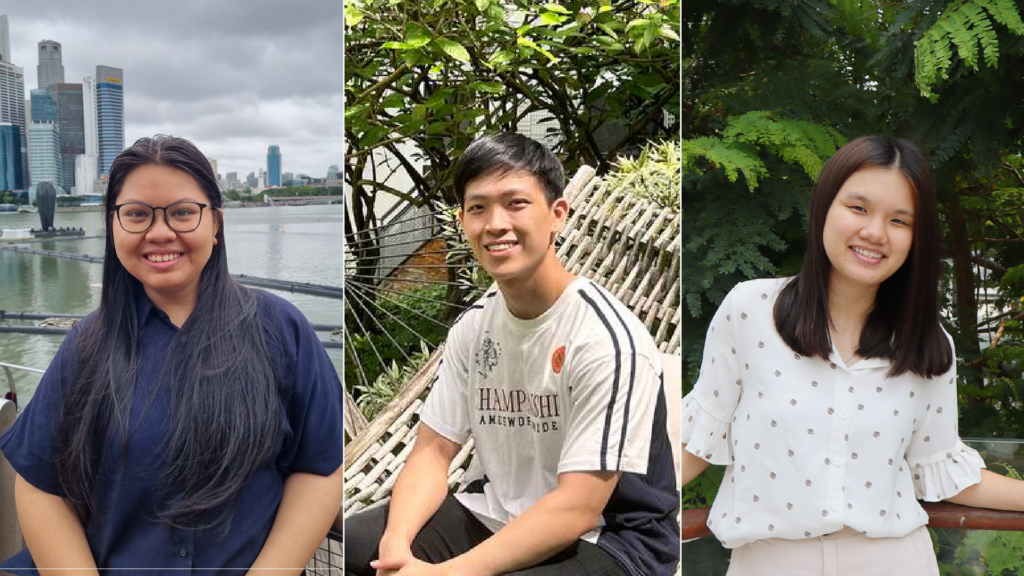
Whether it is providing academic support to vulnerable youth or befriending seniors living alone, heartwarming stories of NUS students working to uplift local and regional communities abound each year. Embodying the University's spirit of service to country and society, members of the NUS Community Service Club (NUS CSC) have been key drivers of volunteerism among our student population over the past 22 years.
Through NUS CSC programmes, more than 1,300 NUS students clocked close to 15,500 volunteer hours in the last academic year. Three of the club's members share what inspired their passion for service, the various ways they are making a difference in the community and how their efforts have enriched the lives of many - including their own.
Dewi Murni Bte Musa: Leading change through community service
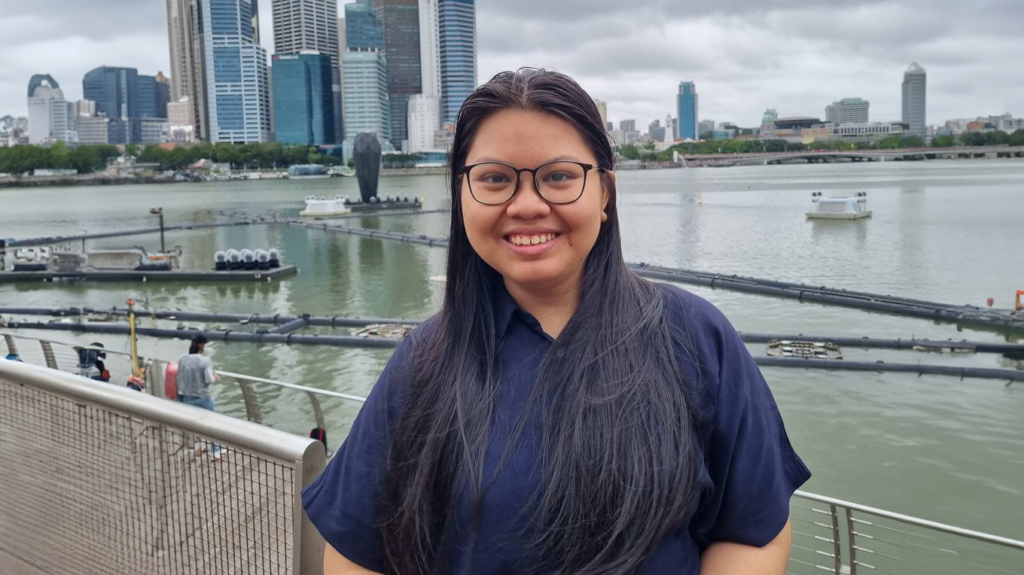
Dewi Murni Bte Musa, a Year 4 student at the NUS Faculty of Science, began volunteering at the age of 16. But it was a seemingly ordinary day chaperoning primary school students for a national education show in 2018, held in conjunction with Singapore's National Day Parade, that ignited her passion for community service.
At the end of the show, a primary schooler, beaming with excitement, thanked her for the day he had and told her that he aspired to be like her in the future. "It was a touching moment that made me realise the power of making someone's day," said Dewi, recalling that pivotal moment.
Since then, Dewi has dedicated herself to various community projects, both within and beyond Singapore. Now, in her fourth year at NUS CSC, Dewi has been elected the Club's president, and set her sights on making an even bigger impact.

Reflecting on her time at NUS CSC, Dewi shared that her involvement in various programmes and projects played a significant role in her personal development. For example, as former Assistant Project Director, Dewi led a team of nearly 160 volunteers in Project C.A.N. XXI to prepare specially curated care packs containing food and essential items for low-income households in Choa Chu Kang and Tampines. The massive undertaking sharpened her organisational skills and taught her the importance of adaptability in team dynamics.
Yet, it was her moments of connection with community members at one NUS CSC Day that stood out most vividly to her. The annual event brings together NUS CSC's four main sectors - children and youth, persons with intellectual disabilities, the elderly and those with life-limiting illnesses and healthcare. As a game master for the day, Dewi met a secondary school student from one of their partner organisations who told her that it felt like a dream to come to NUS. Her words struck a chord with Dewi who was reminded of her own childhood, when a university education seemed like an unattainable dream. "I'm the first in my extended family to attend university, so growing up, I didn't really have anyone to talk to about getting a higher education," she said. "But I was so happy that through CSC Day, we were able to give this young girl that opportunity," she added.
Empowerment for youth and children is a cause that resonates with Dewi deeply, and she aspires to one day, build a passion project working with schools in rural areas, particularly in Indonesia, where she is fluent in the language and familiar with the culture.
As the incoming president of NUS CSC, Dewi envisions a club that not only mobilises volunteers but also fosters leadership and personal growth for its members. "We want to ensure that our volunteers are adequately prepared before they engage with community members and cultivate an environment where they can thrive as volunteer leaders," she said. "I also want to see our club evolve to meet the changing needs of both our volunteers and the community."
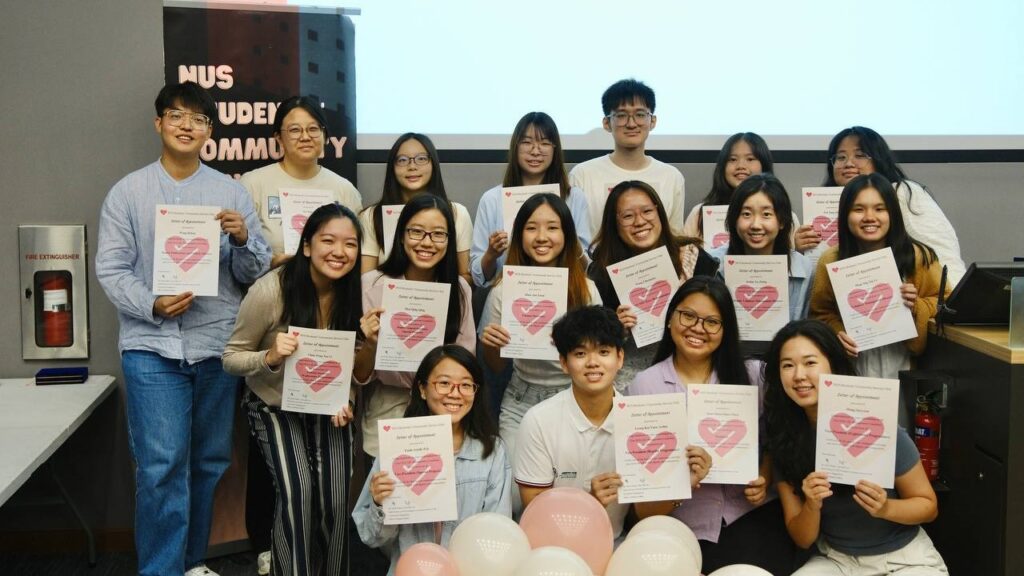
For those considering joining NUS CSC, Dewi encourages them to embrace the experience with an open mind and a willingness to learn. "It's all about stepping out of your comfort zone and discovering the impact you can make," she says, inviting new volunteers to share in the transformative power of community service.
Lim Si En: Painting lives, one home at a time
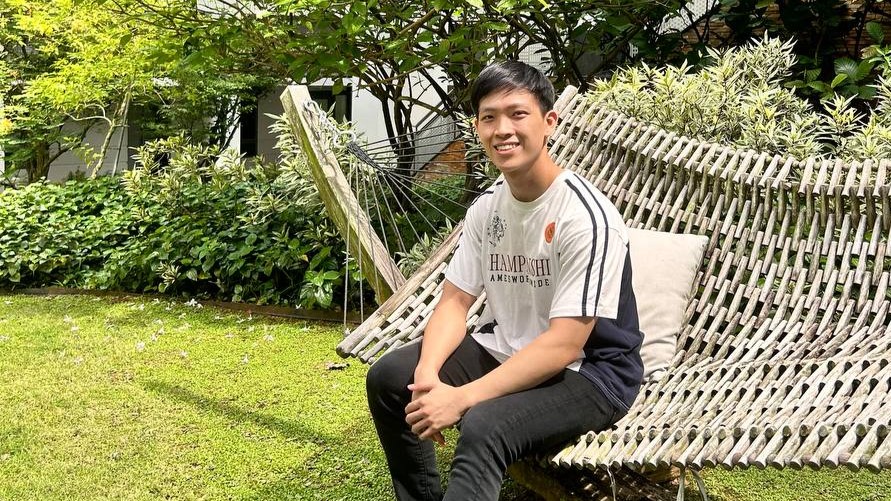
Like Dewi, Lim Si En, a Year 3 student at the NUS Faculty of Arts and Social Sciences (FASS), began his volunteering journey in junior college, tutoring primary school students and volunteering his time at national events like the National Day Parade. His passion for service led him to join NUS CSC in his first year at NUS. "Volunteering called out to me more than other CCAs," he recalled, highlighting the breadth and accessibility of projects that resonate with his desire to help others.
In his second year, Si En took on the role of Project Director for NUS CSC's annual Paint-A-Home initiative, pouring his heart into every detail of the six-month-long project, from recruiting committee members to collaborating with partner organisations. "Seeing our labour pay off was incredibly fulfilling," he says, reflecting on the tangible improvements made in the homes they painted.

For Si En, the initiative was more than just applying a fresh coat of paint; it was about building relationships with community members to understand their needs and preferences, ensuring that his team's work truly reflected the desires of those they served.
"The initial visit helped break the ice and build rapport," he explained. This rapport was crucial, as many of the community members they assisted were elderly or from low-income families, facing various challenges. As Si En and most of his team members had no prior experience with painting, they contacted an organisation for painting lessons. The team also held a practice run, painting the multipurpose hall at the PERTAPIS Centre for Women and Girls, which kindly offered them use of the space for a trial session.
"Once we finished painting, the visible improvement felt great. We knew we made a difference," he shared, acknowledging that their work wasn't perfect but was heartfelt and impactful.
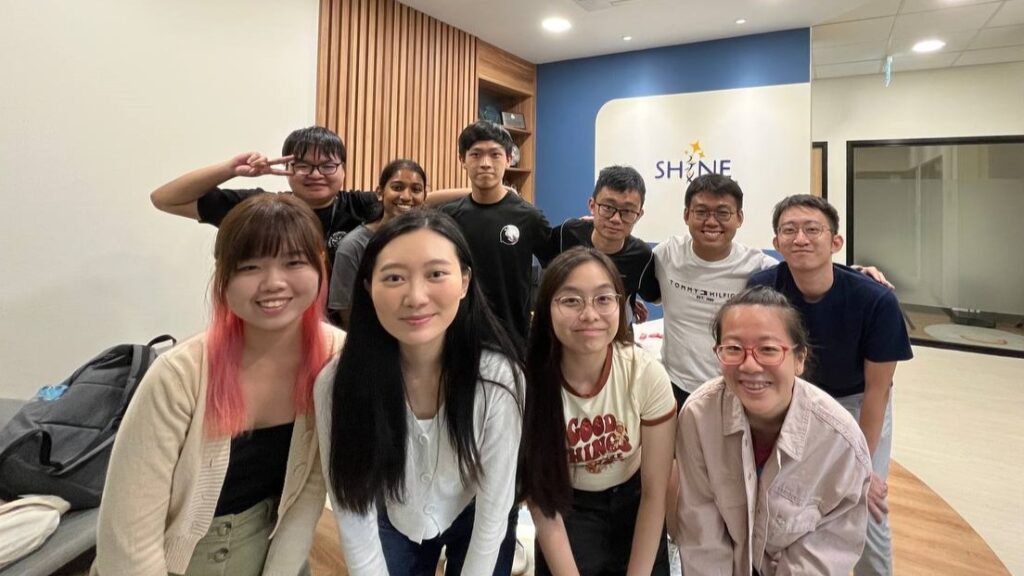
Si En's commitment to the community extends beyond NUS CSC. As a Volunteer Welfare Officer with the Ministry of Social and Family Development since 2023, he conducts check-ins with families at risk of child neglect. "It's an eye-opening experience," he admits. "Even as I help others, I learn so much about the challenges they face."
Hope Sng Xin Le: A heart for service

Taking over the reins from Si En at Clementi Youth Sparks this semester is Hope Sng Xin Le, a Year 2 NUS FASS student who embodies the spirit of service and compassion. Specialising in Social Work and Political Science, Hope's journey into the realm of social service is deeply rooted in her own experiences and the values instilled in her by her family.
Growing up, Hope faced some challenges in her childhood. "My grandparents helped me through that tough time," she recalled, citing this early experience as the spark that ignited her passion for social work.
Another source of inspiration was a documentary that highlighted how exposure to domestic violence can ripple through generations. "It's important to break the cycle of violence," she remarked.
Hope's academic pursuits complement her passion. Studying Political Science gives her insight into governmental structures and resource allocation, while her Social Work studies provide a ground-level perspective on societal issues. "Social work is where my calling is," she says, expressing a desire to join Child or Adult Protective Services upon graduation to safeguard vulnerable individuals and families.
Hope's commitment to volunteering blossomed at NUS, where she joined NUS CSC in her first year. At Ethelontêr, the NUS CSC's orientation camp for incoming NUS students, she was introduced to various volunteer opportunities, including Havenue, a programme supporting individuals with life-limiting illnesses. "Havenue is my happy place," she states with warmth, volunteering there two to three times a month.

Her work at Havenue holds a profound significance for her. Engaging with the elderly patients has reshaped her perspective on life and death. One particularly poignant memory is of Uncle Chew, a vibrant 90-year-old she befriended during his last days. His passing, along with that of another patient, reminded her of life's fragility and the importance of cherishing every moment. "These experiences have shown me how precious life is," she reflects, prompting her to be more expressive of her love and appreciation for those around her.
In Academic Year 2023/2024, Hope served the highest number of volunteer hours among all NUS CSC volunteers, staggering her time between seven projects throughout the year. Pulling off the 2024 edition of Ethelontêr as Assistant Project Director is something she is particularly proud of and she expressed her deep appreciation for her fellow organising committee members for being a strong support system during the five-month project where things were 'fast and furious'.

"Prior to university, I thought of volunteering as something that was part of the school requirements. But over the past year, I realised my deeper calling to serve the community. It has strengthened my desire to pursue social work as a major and has been a source of joy and meaning in my life," said Hope.
This story first appeared on NUSnews on 12 November 2024.
I never considered a career in the special needs sector until a life-changing internship opened my eyes
IN BRIEF | 10 min read
- By Jerelynn Ng, a third-year student from NUS Psychology, in TODAY (20 September 2024).
Click through image below to read this piece.
This story first appeared in TODAY and NUSNews on 20 September 2024.
Cognitive style and creativity: The role of education in shaping cognitive style profiles and creativity of adolescents
Teachers’ Day is celebrated annually on 30 August. Students present their teachers with tokens and cards to show their appreciation and thank them for their hard work. Teachers face the challenging task of having to accommodate different learning styles and needs simultaneously. There is a wide range of factors that can influence a student’s learning needs, from their personal preferences and abilities to the environments that surround them. While researchers have extensively studied the different cognitive styles (CSs) of students, limited research has been done with regard to the link between students’ CSs, their environments, and how they influence their development. In ‘Cognitive style and creativity: The role of education in shaping cognitive style profiles and creativity of adolescents’ (British Journal of Educational Psychology, 2023), Ms Ho Shuen and Associate Professor Maria Kozhevnikov (both NUS Psychology) explore these issues, looking into the nature of the CS construct, evaluating its predictive power, and understanding how the CS changes upon exposure to sociocultural influences. The study was conducted with data from 347 secondary school students, aged 13-16. Through different assessments and quizzes, the students were tested on their visual abilities, learning preferences, and artistic and scientific creativity. The data was evaluated through structural equation models, with the findings suggesting that CS, as a concept, had a matrix-type structure, with at least four orthogonal CS families representing the different types of environmental adaptation (Context, Rule, Integration and Locus). This structure showed how the concept of CS styles could detect environmentally sensitive individual differences in cognition in learners. The findings also emphasised the complexity of CS styles, and that researchers ought not to reduce or simplify the model to ensure that CS styles can be represented accurately. The findings also suggested that the CS profiles of the students surveyed, and by extension, that of Singapore students at-large, could have been influenced significantly by the environment provided by Singapore’s education system. Specifically, the researchers identify a stronger emphasis on scientific thinking in the students, which they attribute to education in Singapore being more skewed towards STEM subjects. Read the article here.
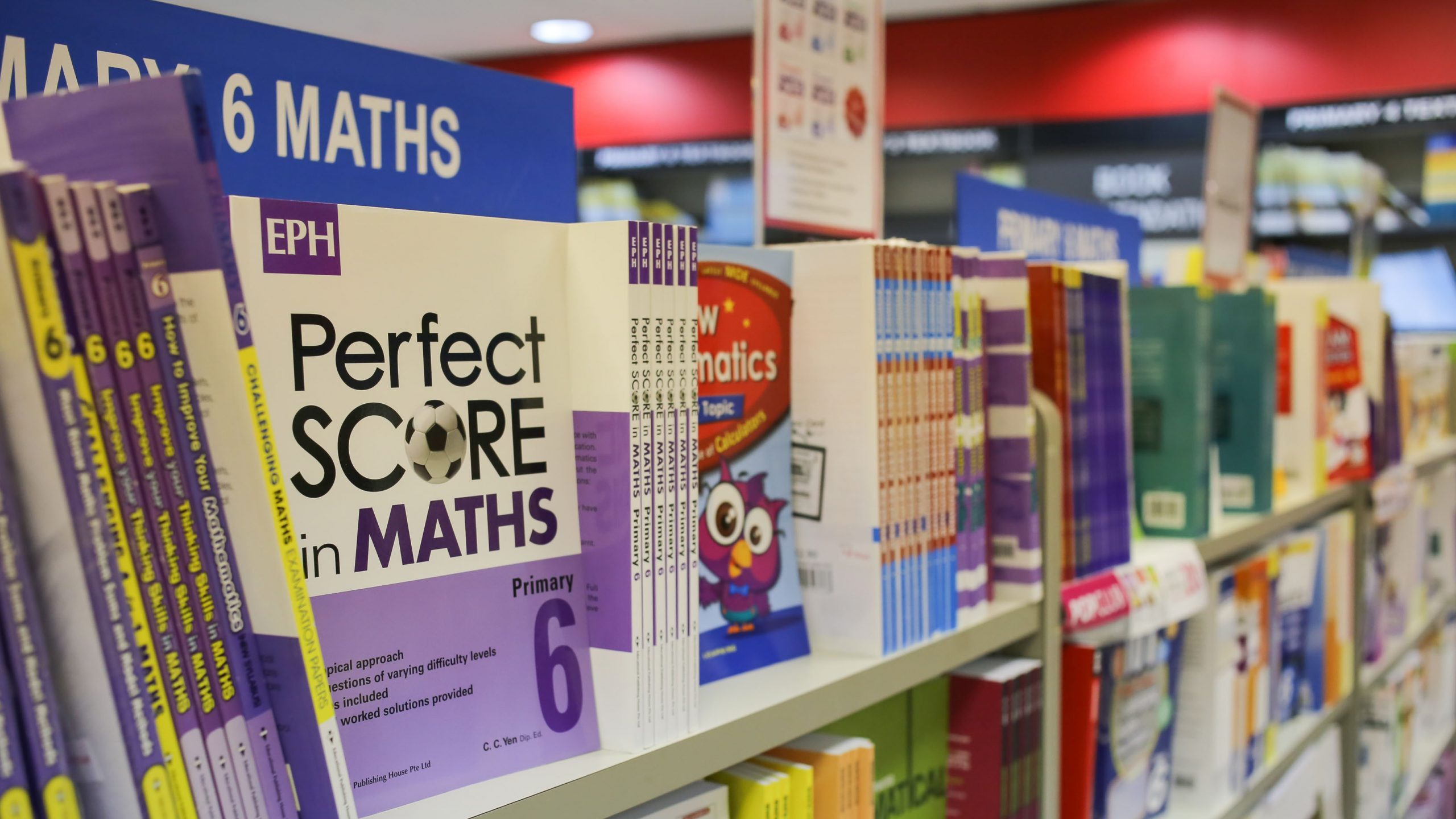
Unearthing the Mysteries of the Ocean’s Depths: NUS Students’ Aboard the OceanXplorer
IN BRIEF | 10 min read
- Ng Kao Jing, a second-year student from the NUS Environmental Studies Programme, and Rachel Ong, a third-year student majoring in Psychology, were among the 14 young explorers picked from thousands of applications around the world to participate in the OceanX Education Young Explorers Program (YEP), which was held from 10 to 15 July 2024.

Two NUS students recently enjoyed a once-in-a-lifetime experience of living and learning about ocean exploration on board a state-of-the-art research craft. Ng Kao Jing, a second-year student from the NUS Environmental Studies Programme, and Rachel Ong, a third-year student majoring in Psychology, were among the 14 young explorers picked from thousands of applications around the world to participate in the OceanX Education Young Explorers Program (YEP), which was held from 10 to 15 July 2024.
Kao Jing and Rachel spent five days on board the OceanXplorer, an advanced research vessel which helps to study reefs and deep-sea areas, sailing from Jakarta to Bali. The voyage offers college students the opportunity to learn from experienced scientists and explore the ocean through workshops, hands-on activities and independent study on board.
Answering the call to deep-sea adventure
YEP selects students aged 18 to 22 from across the globe for a week-long voyage of experiential learning aboard the OceanXplorer. Participants will apply online where they will need to provide a brief written response and submit a video demonstrating their passion for natural science through ocean leadership and conservation, marine operations, or creative storytelling. Shortlisted applicants will be invited to participate in an interview.
The expedition in July 2024 welcomed its first international batch of young explorers. Kao Jing and Rachel were joined by 12 other young explorers from countries such as Indonesia, the Philippines, the United States of America and Singapore, bringing with them a diverse range of expertise, such as screenwriting, ocean science, and geomatics engineering.
Known globally as the pinnacle of advanced deep-sea ocean exploration research vessels, the OceanXplorer was originally used for oil exploration. It underwent a significant transformation in 2010, with further updates in 2020, and is now equipped with cutting-edge research capabilities as well as media and technology.
Capable of exploring the most unreachable places on Earth (up to 6000m depth), the OceanXplorer hosts an array of sophisticated equipment, including submersibles and an ROV (Remotely Operated Vehicle), enabling scientists to study deep-sea marine life in their natural habitat. Additionally, it includes facilities like a helicopter for research deployment and filming, wet and dry labs for scientific endeavours, a dedicated dive centre and a media hub.
A day in the life of a young ocean explorer
Life aboard the OceanXplorer was a whirlwind of learning and adventure. The young explorers participated in a variety of activities - from classroom seminars, scientific laboratory work, job shadowing, and even snorkelling at the famous USAT Liberty Shipwreck in Bali! The holistic curriculum put together by YEP offers enriching experiences where participants developed knowledge and competency in both media and science.
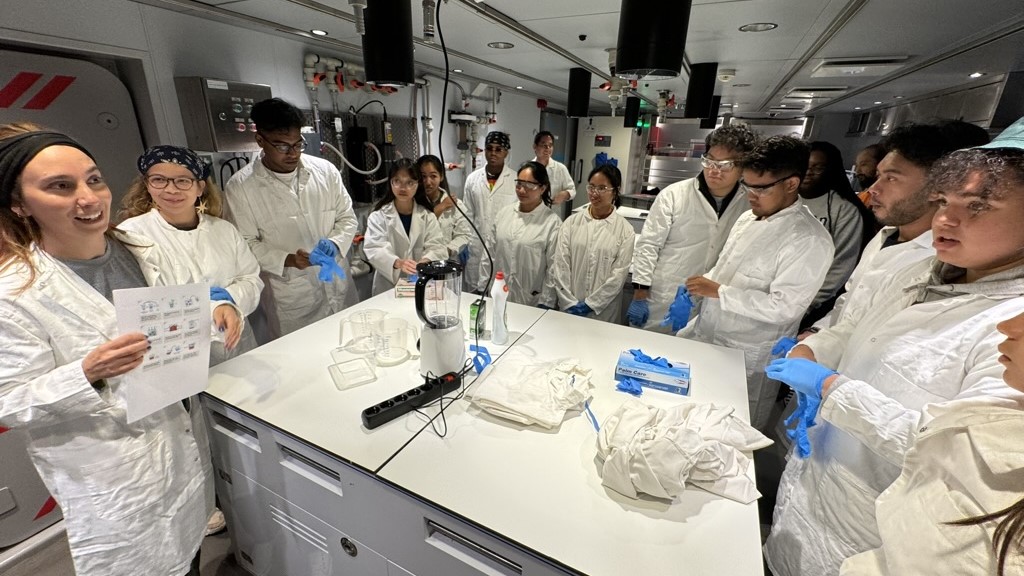
The young explorers also attended seminars on media storytelling, eDNA (environmental DNA), ocean justice, as well as oceanography and communications at sea. Held in a roundtable format, the seminars were eye-opening and informative, facilitating many insightful discussions.
Kao Jing remarked, "One memorable seminar activity was the extraction of DNA from a fish. The hands-on experiment helped us understand the procedure of DNA data collection, which involves extraction, sampling, and sequencing. It's interesting to know that such DNA data has enabled OceanX scientists to uncover new species of deep-sea creatures."
"We also conducted daily live streams on YouTube in small groups, discussing topics such as science and media, as well as the importance of ocean education. It was very exciting to see our friends, family, and even strangers from around the world tune in and comment on our live streams!" added Rachel.
Afternoons were reserved for job shadowing, where young explorers could shadow the crew on the vessel and carry out various shipboard roles in areas such as submersibles, bridge, kitchen, deck operations, media, wet and dry labs, and the scuba centre.
Kao Jing chose to shadow the bridge team, where he learned about navigation, operations and communications. He even had the exhilarating experience of steering the ship! Rachel, on the other hand, was eager to dive into a scientific discipline and shadow the Science Technology Officer. She learned to use the vessel's CTD (conductivity, temperature, and depth), a vital oceanographic tool for understanding the physical properties of seawater.
Both certified divers, Kao Jing and Rachel also shadowed the vessel's Dive Safety Officer, who eagerly imparted his knowledge on the decompression chamber onboard and demonstrated the vessel's advanced scuba diving equipment.

On top of academic seminars and job shadowing, the young explorers also acquired the most crucial survival skill aboard a vessel - firefighting. The surprise activity started off with a sudden alarm, catching the young explorers off guard. Under their mentors' guidance, they rushed to don firefighting suits, learned how to breathe from oxygen tanks and operate a firehose. For Kao Jing and Rachel, that was one of the many thrilling and unforgettable lessons in the programme.
Rachel commented, "Our batch of young explorers was very enthusiastic and inquisitive. Everyone came from diverse backgrounds and yet we shared a common love for the ocean - this allowed us to build a strong rapport with one another easily. The passion of the crew and education team for their work also inspired Kao Jing and me to learn and contribute as much as we could."
Kao Jing elaborated, "The YEP was a transformative adventure for both of us. It reignited our passion for ocean education and conservation - in line with OceanX's vision of 'explore the ocean and bring it back to the world'. The programme has empowered us to advocate for the wonders of the ocean and the threats our oceans are facing, and it has also helped us foster a deeper connection and understanding of our seas. We are now better equipped to protect our precious marine environment!"
This story first appeared on NUSnews on 22 August 2024.
Come In, Let's Talk
IN BRIEF | 10 min read
- Even as she helps the community improve their mental health, Dr Charmaine Lim (NUS Psychology '12) is also mindful about safeguarding hers.
"I would go home and just cry," recalled clinical psychologist Dr Charmaine Lim. "It was so heartbreaking to hear about the abuse and trauma that my clients at Boys' Town had faced, despite being so young." Those early experiences strengthened her resolve to make mental healthcare more accessible, especially to vulnerable communities. That is precisely what she has done with Talking Therapy, the mental health clinic she started with the aim of democratising mental health care. Dr Lim specialises in care for individuals, offering various forms of therapy. She also prides herself on being an LGBTQ-friendly counsellor.
"I got into psychology to help people, so these services are a way of making an impact," she said, explaining her decision to start Talking Therapy. But there are days when the 35-year-old needs to trade the psychologist's chair for the client's one. "Most days, I can get by with a cuddle from my dog Pumpkin or spending time with my family and friends, but there are days when I do benefit from the perspective of a psychologist," she said. "Helping myself helps me help others better too."
"A common misconception is that you have to have poor mental health to see a psychologist," she continued. But that's not always the case: for some, the process of psychotherapy - simply talking to a psychologist - can be a useful and routine way of understanding and managing your emotions. It is a misconception she tries to correct with the patients she sees. "Some of my clients are guilty about coming for therapy, because they feel that there are others who are worse off who would benefit from a session," Dr Lim shared. "But I remind them that you can drown in one inch of water." 2
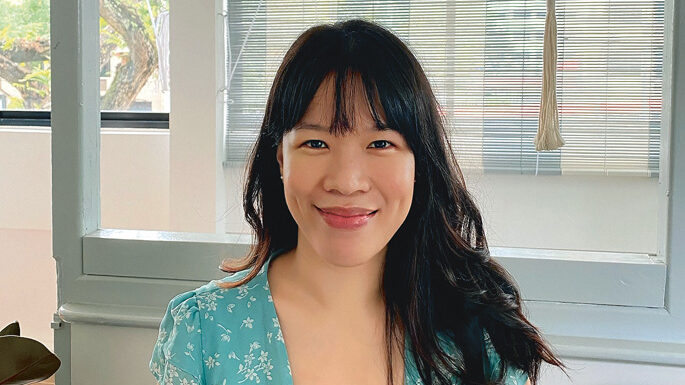
Singaporeans are becoming more aware of this, as evidenced by the findings of the 2022 National Population Health Survey. The survey found that although mental health had worsened, more are willing to seek help. "It's a welcome trend - because just a few years ago, people were afraid to speak about mental health at the workplace, for fear of ridicule, or worse, losing their job," Dr Lim observed.
Over her 11 years in the mental health space, Dr Lim has seen it evolve dramatically for the better. "There's a lot more awareness, especially among important stakeholders like corporates." She has been part of that change, serving as a wellbeing specialist partner for NUS staff during the COVID-19 pandemic. In this role, she supported lecturers, university administrators and researchers. "Having that avenue for employees to come forward and share their struggles in a safe space is so important," she explained. "We've seen how it improves team morale and overall satisfaction across the organisation." In 2023, she then served as Associate Director and Lead Clinical Psychologist in the University Counselling Services for students.
PSYCHOTHERAPY 101
WHAT IS PSYCHOTHERAPY?Psychotherapy, also known as talk therapy, provides support for individuals dealing with mental health, emotional or interpersonal challenges. ENHANCE SELF-UNDERSTANDING
From managing persistent feelings of sadness and anxiety to addressing relationship issues and enhancing self-esteem, therapy offers a safe and supportive space for exploration and healing. NOT JUST FOR SEVERE CHALLENGE
It is important to note that psychotherapy isn't solely for those experiencing severe challenges; anyone seeking self-understanding, behaviour pattern exploration or healthier coping strategies can benefit.
 Dr Lim on a volunteer trip to Cambodia.
Finding Her Calling
Dr Lim on a volunteer trip to Cambodia.
Finding Her CallingGiven her affable demeanour, Dr Lim's chosen career seems like an obvious fit. But this wasn't always the case. "Before NUS, I completed a diploma in hospitality and tourism," she explained, adding that she was part of the teams that put together massive events like the Youth Olympic Games and the annual F1 Singapore Grand Prix. "I even took a leave of absence during my time at NUS to work on F1." But she decided to give a career in psychology a shot after graduating from NUS. "I was excited by the chance to connect with others," she recalled, adding that volunteering stints with the Institute of Mental Health and migrant workers' welfare groups only cemented her decision.
Her first full-time stint as a counsellor at Boys' Town was an eye-opener. "It was there that I really began to contextualise the theories I had learnt in school," she said. "My team was great; I remember my supervisor telling me to put aside the theories for the first few sessions and just spend time to connect with the boys. That really made the difference." After all these years, Dr Lim still gets immense satisfaction from seeing her clients improve. "There's something deeply fulfilling about accompanying them through their struggles and triumphs, witnessing their resilience in the face of adversity, and ultimately seeing them emerge stronger and more empowered. The moments when clients recognise their progress and reflect on how far they've come is very rewarding."
This story first appeared in NUSNews on 21 July 2024, as part of a series covering Commencement 2024, and celebrating the achievements of NUS graduates from the Class of 2024.
Champions in the Making: NUS at the 21st ASEAN University Games
IN BRIEF | 10 min read
- Behind the University's rising student-athletes is a team of dedicated sports managers who strive to provide the best support, ensuring the athletes are ready to compete to their fullest.
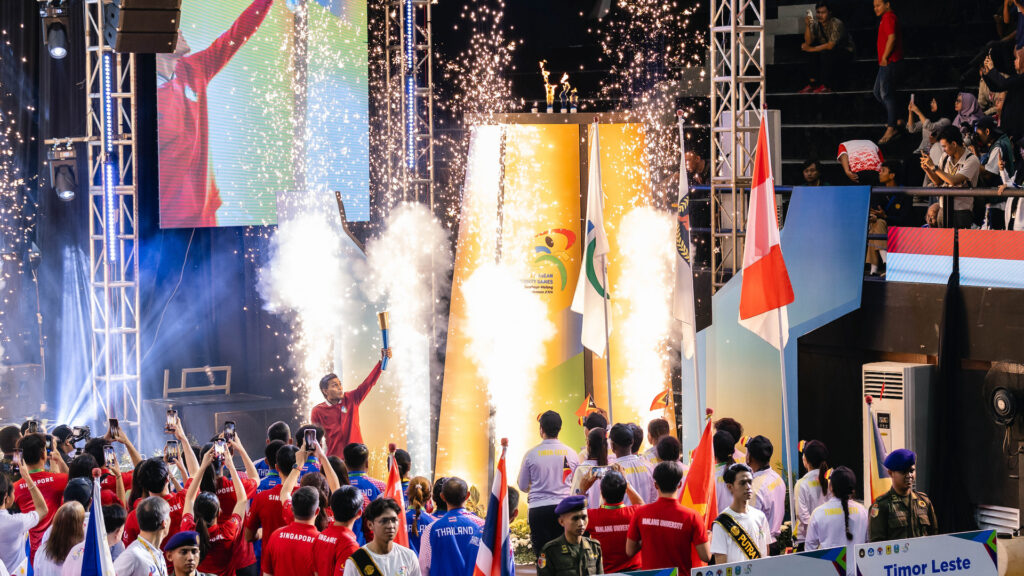
Eighty-five NUS athletes and staff took part in the 21st iteration of the ASEAN University Games (AUG), joining the 268-strong Singapore contingent from 25 June to 6 July in Surabaya and Malang, Indonesia. This year's AUG featured nearly 1,400 athletes and more than 600 officials from 11 ASEAN countries. These student-athletes competed across 21 sports, including Athletics, Archery, Badminton, 3x3 Basketball, Basketball, Beach Volleyball, Bridge, Chess, Futsal, Handball, Judo, Karate, Pencak Silat, Petanque, Sepak Takraw, Sport Climbing, Swimming, Taekwondo, Tennis, Volleyball, and Wushu, vying for a total of 250 medals.

A Transformative Experience for Everyone
Student life is an integral part of a holistic NUS education, with sports playing a crucial role in enriching the overall journey. Participation in the AUG certainly provides a wealth of sports opportunities, but it also offers a unique transformative experience for our NUS athletes.
Assistant Dean of Students Dr Kristy Fu, who attended the Games during the first week, said, "Our students faced challenges such as competing in diverse national teams alongside players from various institutes, navigating home crowd pressures in Indonesia, and adapting to environmental challenges like weather changes, different playing grounds, and limited equipment." Dr Fu continued, "Through competing with their ASEAN sports counterparts, our students come to embrace inclusiveness and diversity while staying competitive and upholding personal and team excellence, as well as national pride."

Dr Fu also highlighted the valuable learning opportunities for NUS staff at the AUG. For example, the NUS Office of Student Affairs Sports Section served as Sports Team Managers and Officials at the AUG, supporting the Singapore contingent and the ASEAN University Sports Council (AUSC). They learnt to collaborate with teams from other local and regional universities and schools to ensure that student-athletes were supported and inspired throughout the competition.
The power of belief and tenacity
For TeamNUS swimmer Nicholas Cheong, the men's breaststroke 50m was the highlight of the AUG. He explained, "My brother-my idol and source of inspiration-won the event with a meet record at the last AUG, so it provided extra motivation for me to match his achievement." Nicholas' brother is former Singapore national swimmer and NUS alumnus Christopher Cheong.

However, last November, the Year 2 NUS Business School undergraduate suffered a wrist fracture, breaking both his scaphoid and radius. Despite a typical recovery time of 6 to 9 months threatening his participation in the AUG, he displayed remarkable tenacity and committed fully to his rehabilitation. His dedication paid off with a stunning 28.96 seconds in the men's 50m breaststroke, earning him a silver medal!
"Considering the rollercoaster of events over the past eight months, winning silver and going sub-29 seconds for only the fourth time in my life feels nothing short of miraculous. It is truly a testament to the power of belief and tenacity in achieving the unimaginable," Nicholas shared. "I'm grateful for the results and hope to apply the lessons learnt in my next competition!"

Facing uncertainty and adapting
TeamNUS Silat exponent Nurul Irbah was one of NUS' top female competitors at last year's Tertiary Silat Championship in Singapore. However, recent rule changes for the sport at this AUG brought some uncertainty. "It's my first international competition in five years, and I had to learn and adapt to many new techniques and gameplay styles," she explained. Adding to that was the challenge of balancing studies and training as a Year 3 Faculty of Science student, which motivated her to improve her time management and efficiency in both school and sports.

Nevertheless, Irbah excelled, winning the AUG Women's Class A category, and securing a gold medal for Singapore in a thrilling finale against her Indonesian opponent. Her mother, Mdm Norrazlin Hamim, said, "This competition is the pinnacle of Irbah's Silat journey and I am beyond ecstatic that she has come this far. I am so proud of her!"
Still, the former NUS Silat captain remembers her teammates back home. She said, "Participating in this AUG allowed me to learn from athletes from other countries, and I hope to bring these new techniques and strategies back to my NUS Silat team. I also hope to inspire the current members to strive for the chance to represent Singapore in the next AUG."

One final hurrah
This AUG marked a significant achievement for the Singapore men's volleyball team, which secured a medal for the first time in a competition featuring an expanded field of more than three teams. In the bronze medal match against Malaysia, TeamNUS volleyball player Ajay Singh Shergill was the top scorer, earning 17 points for Singapore across four hard-fought sets. "Winning the bronze medal means so much to the team and me," Ajay shared. "I hope this inspires the next generation of volleyball players to believe we can achieve even greater things on the international stage."

Currently pursuing a double major in Psychology and Business Management at the Faculty of Arts and Social Sciences, the Year 3 undergraduate also revealed that this AUG will be his final international competition. "It's a bittersweet moment for me but it's a fitting way to retire," shared the veteran, who started playing volleyball in primary school and has represented the National Team since 2015.
But this is not the end of Ajay's journey with volleyball. In 2023, he became a registered, qualified volleyball coach and is now coaching at two primary schools and two open category teams. "What I loved most about the sport were the values that it instilled in me," he reflected. "When I started playing volleyball, it showed me that when I worked hard at something, I could achieve it, and that gave me confidence in other areas as well."
"That's why I believe it's important for young kids to play sports and develop these attitudes and values," Ajay emphasised.

Friendship over sport
TeamNUS Taekwondo exponent Valerie Kang clinched Singapore's second-ever Taekwondo gold medal in the history of the AUG. "I was in shock and disbelief, especially since this was my first AUG and I hadn't expected to win," the Year 2 Faculty of Arts and Social Sciences undergraduate exclaimed. "It's really the support and encouragement from my coaches, family, and friends that made this possible, and I'm immensely proud to have represented Singapore and NUS."
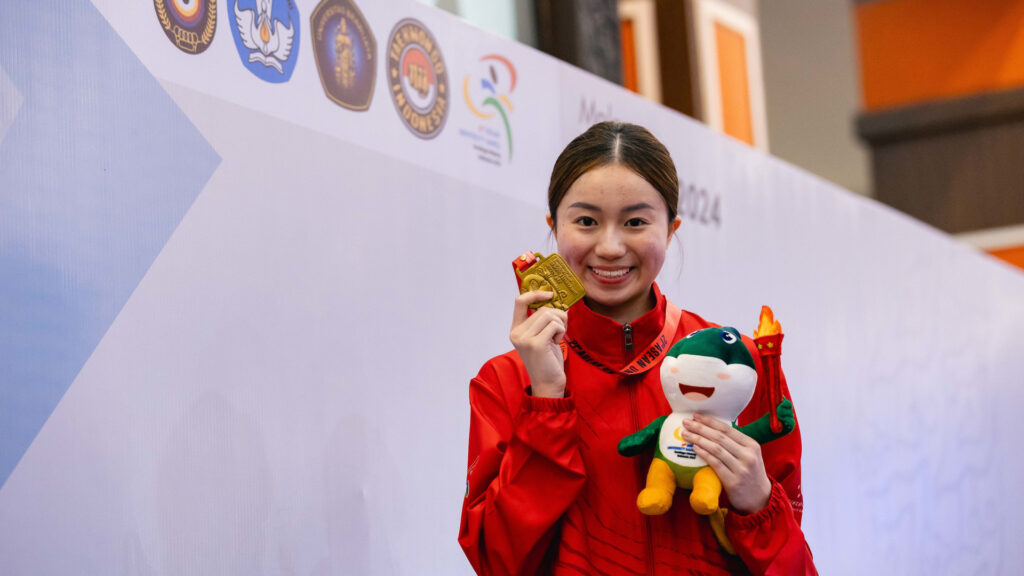
Valerie also reconnected with her Vietnamese counterpart, Le Ngoc Han from the Ho Chi Minh City University of Economics and Finance. The two had met briefly last year at another competition and connected on Instagram. They had agreed to try and meet at the next international event, which turned out to be this AUG. "It was a truly heartfelt moment! I am glad we kept our promise and finally had a chance to converse, despite the language barrier. I am really looking forward to seeing our progress in future competitions!"
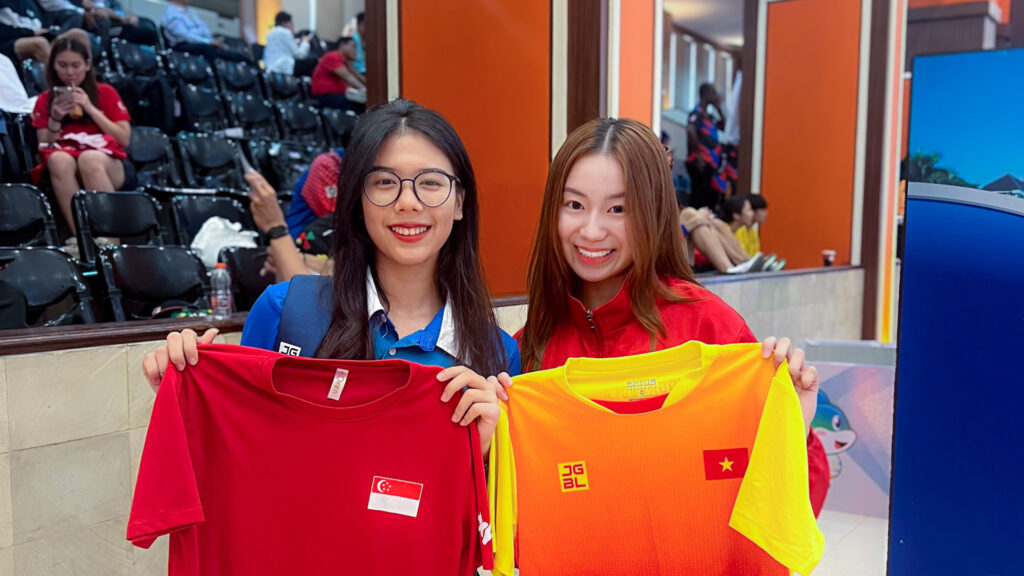
Supporting the AUG
NUS Office of Student Affairs Head of Sports, Mahrunisa Fathiyah, is no stranger to the AUG, having taken part in seven editions. She has held team manager roles for various sports over the years: Tennis in Chiang Mai (2010), Silat in Laos (2012), Wushu in Palembang (2014), Athletics in Nay Pi Taw (2018), and Fencing in Ubon Ratchathani (2022). In 2016, when Singapore hosted the AUG in NUS, she served as the secretariat of the organising committee and team manager for Water Polo.

This AUG marks her first time serving on the AUSC Technical Committee for the games. The committee's role was to ensure that the technical aspects of the games ran smoothly and met all necessary standards.
Additionally, she oversaw the accreditation process for the event, coordinating with local volunteers to manage over 2,000 athletes and officials. "This experience has been both challenging and rewarding, and I was fortunate to work alongside dedicated colleagues from both the AUSC and the organising committee," she said.

A Team Manager's experience
At the AUG, a Team Manager's roles are crucial. For NUS Sports Manager Farhana Rosli, it is all about providing the best support for the student-athletes under her charge, so they are ready to compete to their fullest.
She shared some of her responsibilities: "We cheer them on during their matches, ensure that all administrative and logistical requirements are prepared in advance, and most importantly, take care of the team's well-being."

Her Singapore tennis team's well-being took centre stage as they faced Surabaya's scorching weather and a packed competition schedule from early morning till late at night. As every player gave their all for Singapore, they pushed their bodies to the limit, making it crucial for Farhana to help them balance their expectations and safeguard their well-being. "As Team Managers, we need to remind them to stay healthy, happy, and enjoy the matches. After all, representing Singapore at the AUG shows they've reached a high standard, and I saw the immense effort our players put in on the courts. They should be proud."

Medal tally of TeamNUS participants
Team Singapore took home 11 Gold, 27 Silver and 36 Bronze medals. Our TeamNUS athletes proudly contributed 7 Gold, 14 Silver and 16 Bronze medals to this total. Congratulations to all our student-athletes and sports managers for representing Singapore!
Gold
1. Athletics (Pole Vault) - Low Jun Yu (National Record)
2. Bridge (Men's Pair) - Yang Junyan, Gao Heng
3. Bridge (Men's Team) - Gao Heng, Yang Junyan, Timothy Wu, Teo Xue Heng
4. Silat (Women's Match Class A) - Nurul Irbah
5. Sport Climbing (Men's Boulder) - Philus Tan
6. Taekwondo (Women's Individual) - Valerie Kang
7. Wushu (Women's Qiangshu) - Le Yin Shuen
Silver
1. Athletics (High Jump) - Jade Chew
2. Bridge (Men's Pair) - Timothy Wu, Jerald Kiew
3. Handball (Men's Team) - Joshea Koh, Vernen Lim, Ian Tay
4. Judo (Men's Under 66kg) - Zhou Yujie
5. Judo (Men's Under 73kg) - Melvin Loo
6. Judo (Women's Under 57kg) - Janelle Tan
7. Silat (Men's Artistic Double) - Kashyfi Bin Salleh & Mirza Nabil
8. Silat (Women's Artistic Team) - Rasyidah Binti Mudzzaffar, Nurul Helyna, Nur Sabrina
9. Silat (Men's Match Class F) - Muhammad Shuhada
10. Silat (Men's Match Class I) - Faiz Rusyaidi
11. Swimming (Men's 50m Breaststroke) - Nicholas Cheong
12. Tennis (Men's team) - Tiah Jeng Ern, Ho Cheuk Hei
13. Wushu (Women's optional Jianshu) - Le Yin Shuen
14. Wushu (Women's optional Taiji Jian) - Teo Yu Xuan
Bronze
1. Archery (Recurve Men's Team) - Tan Wei Chuen
2. Archery (Compound Men's Team) - Desmond Kwa Jun Liang
3. Athletics (Men's 10,000m) - Jon Lim
4. Chess (Men's team Blitz) - Tan Jun Hao & Bryce Tan
5. Chess (Men's team Rapid) - Tan Jun Hao & Bryce Tan
6. Chess (Men's team Standard Chess) - Tan Jun Hao & Bryce Tan
7. Climbing (Men's Lead) - Philus Tan
8. Judo (Mixed Team) - Yujie, Melvin, Janelle, Hui Xin
9. Judo (Women's Under 62kg) - Chua Hui Xin
10. Silat (Women's Artistic Solo) - Nurdianna Binte Sidek
11. Taekwondo (Men's team) - Tham Chun Hoe, See Wei Wen
12. Taekwondo (Pair) - Tham Chun Hoe
13. Tennis (Women's team) - Tammy Tan, Claire Chan, Lim Lerr Min
14. Volleyball (Men's team) - Ajay Singh, Avan Cheah, Edwin Lee, Jireh Tay, Kelvin Chua, Lee Zhan Hao, Nicholas Law, Wong Chang Wei
15. Volleyball (Women's team) - Astrid Lee, Ashley Goh, Natalie Lai, Chan Yao Yi, Chua Zi Tian, Tanya Phan
16. Wushu (Women's optional Chang Quan) - Kimberly Ong
This story first appeared in NUSNews on 8 July 2024.
A Marriage of Analysis and Abstract Concepts to Enrich the Learning Experience
IN BRIEF | 10 min read
- NUS College makes teaching and learning analytical skills more enriching through abstract but relatable concepts like emotions and relationships.
Keeping students engaged in a class when teaching technical subjects or abstract concept can be a challenge for educators. The right framework, however, can transform the learning experience from one of boredom to an 'eureka' moment that opens students' eyes to new possibilities.
At NUS College (NUSC), the honours college of NUS, where creative and innovative teaching methods are encouraged, some lecturers have found success in using abstract but relatable concepts to teach analytical skills.

Three courses employing this approach tap on common elements of the human experience - emotions, interpersonal relationships and personal identity - to both engage the students' interest and demonstrate how analytical skills can be applied to a variety of domains and not just to tackle purely scientific questions.
Identity, Death, and Immortality
What makes you who you are, what happens after death, and can we achieve immortality - these questions have confounded humanity for millennia, but students of Dr Jane Loo's writing course "Identity, Death, and Immortality" will try to answer them in their quest to learn the skill of academic writing.
The course starts with the concept of personal identity, which is teased out for each student through a series of thought experiments, and moves on to how their take on the concept affects each individual's views of death and immortality. Students take on an interdisciplinary approach as philosophy and science intertwine in the lessons, with equations used to map out cause-and-effect relationships and technologies such as artificial intelligence and cryopreservation weighed for their potential to facilitate life after death.

The humanities and sciences are both integral to the discussion of these topics, says Dr Loo, whose background is in metaphysics, a branch of analytic philosophy. "If you talk about personal identity without the science, it's not realistic. The psychological and physical theories of personal identity all have science and philosophy in them, going hand-in-hand."
The universal nature of the topics prompts lively discussions, since every student has a unique perspective to contribute, and highlights the importance of structuring and presenting one's argument well, said first-year computer science major Celes Chai. "Because everyone has encountered (each concept) and can talk about it, the difference is how we talk about what we think about it," she explained.
At the same time, the personal stakes turn the discussions and writing assignments into exercises in tact and sensitivity, as the students quickly realise that one person's basis for their theory of personal identity can be a sharp contradiction to someone else's beliefs.
Celes observed: "When we're talking about other people's writings - for example, poems, stories, films, or movies - people have their opinions, but they don't feel so strongly about them. But when you're talking about personal identity, the way you phrase something can be hurtful to someone else if you're not careful."
Nevertheless, the emotional threads running through the subject matter presented an opportunity for first-year student Emma Tan to employ pathos, or appeal to emotions - a persuasive device that she had not thought appropriate to use in an academic paper before.
"Initially, I wanted to remove all emotion and be as objective as possible, yet I found that some arguments that I truly believed and felt would be convincing were those that appealed to one's emotions," said Emma, who is pursuing a double major in psychology and business management. "As such, leaving it out would make the paper too objective and lacking in a human voice - or in a way, written by a bot."
Dr Loo hopes that her students will gain not just the skills to write solid and well-reasoned academic papers, but also a healthy appetite for exploring and debating anything that interests them, no matter how abstract it is.
"Be open to possibilities and things that don't happen in the real world," she said. "As long as there are no outright contradictions, nothing that is logically impossible, it's okay to talk about it."
Moral Emotions in Everyday Life
Emotions are often dismissed as incompatible with good decision-making, with objectivity and logic touted as the superior policy. While there is value in seeking a balanced view of any issue, the idea that decisions should not involve emotions begs the question: Is it even possible to divorce ourselves from our emotions and be truly objective?
Dr Bart Van Wassenhove's course "Moral Emotions in Everyday Life" challenges this notion and presents a methodical approach that treats emotions not as inconsequential and undesirable in decision-making, but fruitful for analysis, yielding insights into the morals and motivations behind our thoughts and actions.
"Even if you are committed to being objective, you need to be attuned to emotion to understand why people are disagreeing with you and why they feel strongly about an issue," said Dr Van Wassenhove.
"But I also think we are often fooling ourselves when we think we're being objective. There is emotion driving us and we often are not aware of it. I would always encourage people to think carefully about if things are actually devoid of emotion and impartial - and also whether impartiality has downsides, potentially."

The study of each emotion in the course starts with identifying their characteristics in a handful of categories, such as the factors that elicit the emotion and what actions it usually leads to. This enables students to differentiate related emotions like guilt, regret, and remorse, and compare psychological, philosophical, and personal perspectives of each one. Each topic is rounded out with a film that illustrates the emotion playing out in realistic situations - for instance, how anger is expressed in the racially tense events of Spike Lee's film Do the Right Thing.
Elren Chae, a second-year biomedical engineering major who wanted to better understand the many emotions she experienced when moving from South Korea to Singapore for university, said the course gave her a useful framework to guide her interactions with others and dive deeper into specific emotions that interest her.
"I don't have all the answers to what I'm feeling now, but I know how to ask questions that would help me organise my thoughts," she said. "And when I ask those questions, the goal is not to find an answer but to elucidate the situation and comprehend it in my own terms."
Dr Van Wassenhove's approach also validated how final-year student Rishabh Anand naturally thought of emotions as a computer science major - while abstract, they could still be broken down into simpler components that combine in various configurations to form complex emotions. His main takeaways from the course were the surprising realisations about human behaviour, including his own, that emerged along the way.
For instance, identifying an element of fear in his reactions to certain research questions and not to others, even though they all piqued his curiosity, helped him to realise when he was feeling awe or wonder and predict whether his interest would be sustained or fizzle out when he started researching a question.
"It was a very fun class, as a mind-bending sort of exercise. Sometimes it would reinforce the way I think and I'd walk out saying 'Ah, so I was correct all along.' But then there were other days where I learned something new and added it to my mental model," Rishabh said.
In Search of Soulmate
The course "In Search of Soulmate" teaches quantitative reasoning and analysis through the framework of the search for a romantic relationship. Students study existing research on questions of love and relationships, and then conduct their own research - from formulating the research question, to gathering the data, to analysing it and comparing their results to the existing literature.

When designing the course, instructor Dr Chan Chi-wang looked for a 'Trojan horse' topic - something exciting with enough scope that he could pack into it all the concepts and technical skills he needed to teach. Most people have a natural interest in seeking out and strengthening interpersonal relationships, making this topic an ideal choice.
Finding enough existing research to build out the course curriculum was challenging, but the dearth of research on the topic also provides plenty of opportunities for students to discover new insights, Dr Chan said. "I find it to be very interesting when we come up with questions that don't seem able to be answered in quantitative ways at the beginning - but at the end, we figure out some ways (to find answers) which are quantitative, and we can verify the results. That's the place where we find wonder."
Linking the analytical skills to a more relatable topic such as love made the course feel less daunting to Ronaa Ayesha Kong, a first-year chemistry major. "In other statistics modules, every lesson seemed so boring and dry, and I would get really stressed out studying for the tests because I didn't really understand the concepts and there was nothing that I could relate it back to," she said. "But when you study something that you like and you want to know more about, it changes the game completely."
Second-year business major Joanne Hu appreciated getting to pick a project topic, rather than just solving pre-set questions and finding trends in data. Her project group chose to study a purported relationship theory they came across on TikTok, and the process of gathering and analysing fresh data for the relatively unexplored question boosted her confidence in applying the skills she had learnt.
"Statistics can be quite boring if it's not put in the context of something interesting. I have seen friends taking pure statistics modules struggling a bit because it's quite theoretical," Joanne said. "For our module, I think many people had fun analysing a topic that we enjoy. The framework of searching for a romantic relationship makes it less dry."
This story first appeared in NUSNews on 21 June 2024.
We Need to Talk: Youth Mental Health Takes Centre Stage at the NUS SSR Conference 2024
IN BRIEF | 5 min read
- The hybrid conference, attended by 800 social work practitioners, healthcare professionals, policymakers and researchers, shone a spotlight on the various approaches to help youths cope with social media pressures - from digital initiatives to providing more support at school and at home.
With social media now a big part of daily life for youths, there has been growing concern about its negative impact on their mental health. But it can also be a force for good.
"The reality is that technology can play a powerful, positive, and useful role in our lives by connecting us with people," said Dr Janil Puthucheary, Senior Minister of State, Ministry of Communications and Information and Ministry of Health, at the annual Social Service Research Centre (SSR) Conference on 20 March.
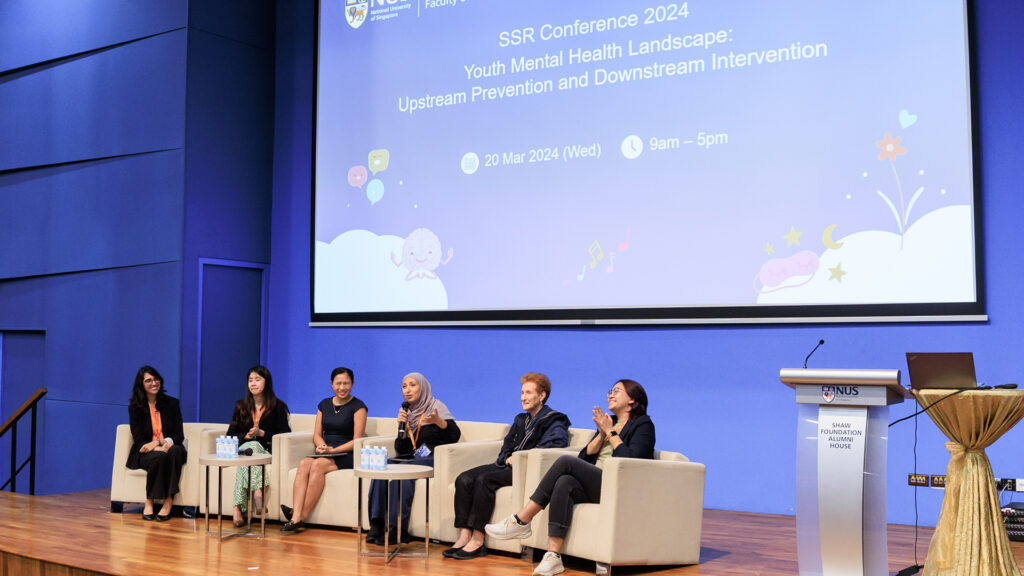
A key question, he noted, was how to "mitigate the issues" that arise from the negative influences of social media. It was a topic that was discussed at the conference, titled "Youth Mental Health Landscape: Upstream Prevention and Downstream Intervention", organised by SSR at the NUS Faculty of Arts and Social Sciences.
The hybrid conference, attended by 800 social work practitioners, healthcare professionals, policymakers and researchers, shone a spotlight on the various approaches to help youths cope with social media pressures - from digital initiatives to providing more support at school and at home.
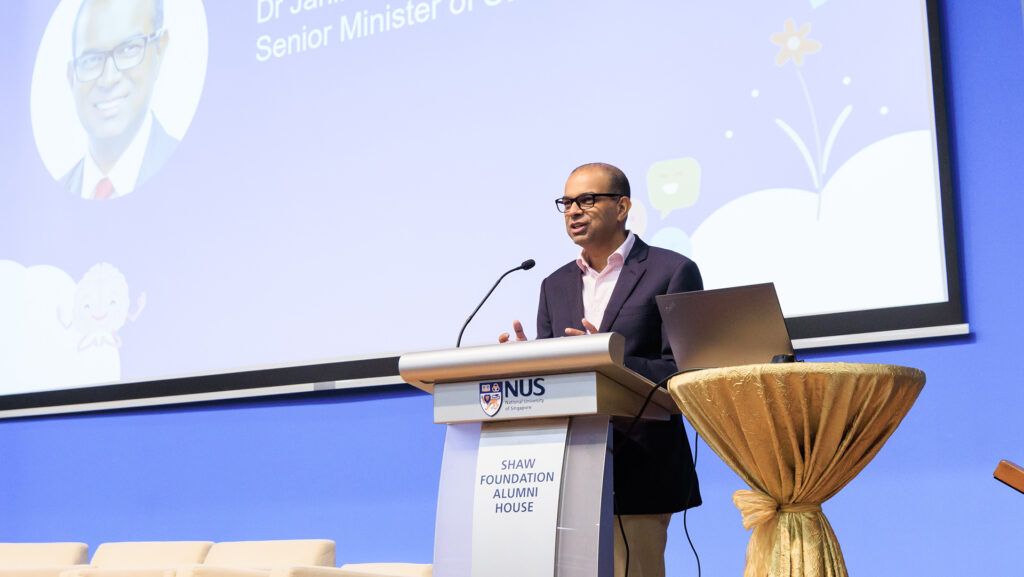
Online Engagement
As youths have built a strong social media presence across multiple online platforms such as Instagram, Reddit, YouTube, and TikTok, digital strategies such as online peer support development programmes and mobile-led mental health applications make for good outreach tools.
To reach out to these youths, apps such as mindline.sg by the MOH Office for Healthcare Transformation (MOHT) and Myloh by SHINE Children and Youth Services were created.
Fearing mental health stigmatisation, many youths prefer to remain anonymous. For example, MOHT found that many youths posted about their troubles anonymously on r/SGExams, a popular subreddit or forum hosted on the social network app Reddit.
This prompted MOHT to launch an anonymous discussion forum called "let's talk" on mindline.sg as an alternative platform that allows for youths to discuss their mental health issues and seek help. "We wanted to create a safer version of Reddit for our youths to get support and accurate information," said Ms Janice Weng, Deputy Director at MOHT.
All services provided by Myloh also provide user anonymity. "[Remaining anonymous] is what young people want," said Mr Eric Sng, Assistant Director at SHINE.
Connecting the Dots
Digital solutions aside, Dr Yeo Geck Hong turned to peer support training as an outreach tool to support youth mental health.
The research fellow at SSR ran an online peer support training programme evaluating 450 students across three local secondary schools. Bite-sized modules across four sets of skills-mattering (the extent to which we make a difference in the world around us), selfhood, compassion, and mindfulness-were taught over eight sessions lasting 45 to 60 minutes each, across three schools from 2020 to 2023
Preliminary findings revealed that students improved their grasp of the four skills, contributing to healthier peer relationships and in turn a more wholesome school environment.
Caring relationships between teachers and students and strong parent-child bonds were successful in promoting long-term mental health recovery in a study conducted by Mr Dennis Teo, Research Specialist at the National Council of Social Service.
Among 444 youths aged 13 to 19, those who improved in these two protective factors saw greater reduction in their behavioural issues over the course of two years.
Social work executive Rachel Reuben, who works with troubled youths, found the findings shared at the event very insightful. "It really helped us to make the connection with our youths," she said.
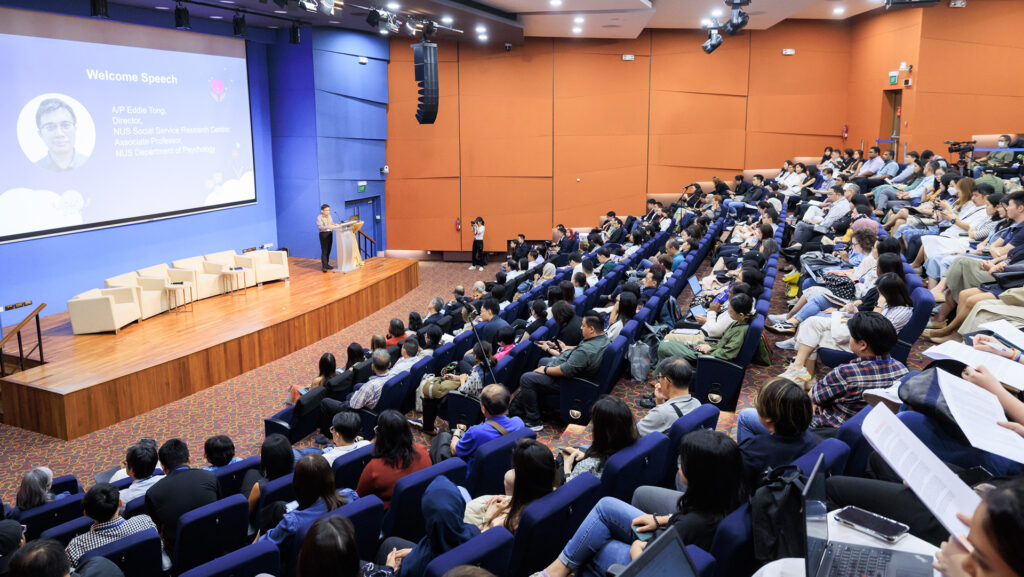
Identifying At-Risk Youths
While prevention is important, experts also call for more intervention for youths who risk falling through the cracks.
"Most of the time, we deal with issues that are at the end stage of the problem," said Dr S. Vasoo, Emeritus Professor at the NUS FASS Department of Social Work. "We need to develop a system that can identify the young people who are vulnerable."
These include individuals such as youth offenders and youth who are emotionally neglected at home.
Assistant Professor of Social Work at NUS Dr Lee Jungup shared findings from a childhood traumatic experiences study (that is currently under review) on 1,000 students from local universities aged 18 to 30. She found that 75 per cent of them said they had experienced emotional neglect in their formative years. Some 56 per cent had faced physical neglect, and around 37 per cent experienced physical abuse. Those with multiple trauma experiences were more likely to have conditions such as depression and anxiety, she observed.
"During the short period (from adolescence to adulthood), there are a lot of ways that things can change biologically, socially, and cognitively," she added.
Given such findings, it is imperative to have all hands on deck to improve youth mental health as a collective.
"The solution necessarily has to take the 'whole-of-society' approach with coordinated participation from various segments of society, including the community, government agencies, welfare organisations, healthcare, academia, schools, and workplace," said SSR Director Associate Professor Eddie Tong, who is also from the Department of Psychology at the NUS Faculty of Arts and Social Sciences.
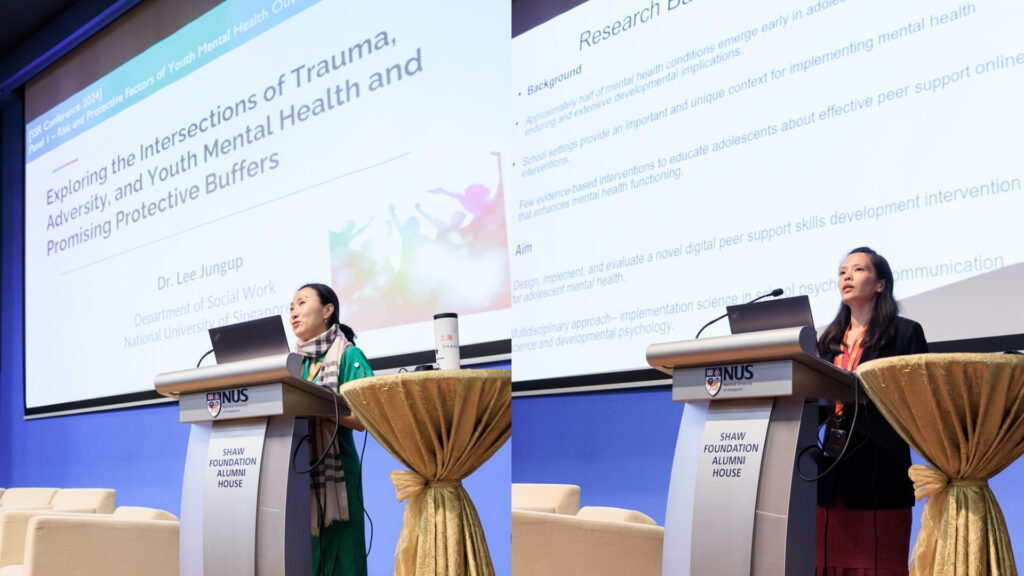
The ideas and findings presented at the conference left practitioners with much food for thought. "I appreciated the efforts made to translate the findings into practices," said conference participant and research executive Daryl Tan.
This story first appeared in NUSNews on 8 April 2024.
Equal Rights: From Workplace to Marriage
IN BRIEF | 4 min read
- Column in Lianhe Zaobao by Psychology undergraduate Li Zhijun.
Click through image below to read this piece.
This story first appeared in Lianhe Zaobao and NUSNews on 30 March 2024.
Older Adults Are More Approving of Blunt Honesty Than Younger Adults: A Cross-Cultural Study

The Importance of an Early Start
IN BRIEF | 4 min read
- Column in Berita Minggu by Adjunct Associate Professor Sharifah Mariam Aljunied (NUS Psychology).
Click through image below to read this piece.
These stories first appeared in Berita Minggu and NUSNews on 25 March 2024.
Mental Well-being App for Employees Claims Top Prize at Annual FASS Social Incubator Challenge
IN BRIEF | 10 min read
- A mobile app that seeks to transform workplace culture by fostering peer support and empathy was the winning idea that saw a multidisciplinary team of NUS students walk away with S$10,000 in seed funding and mentorship opportunities at the NUS Faculty of Arts and Social Sciences (FASS) Social Incubator Programme (SIP) Pitch Competition held on 2 March 2024.
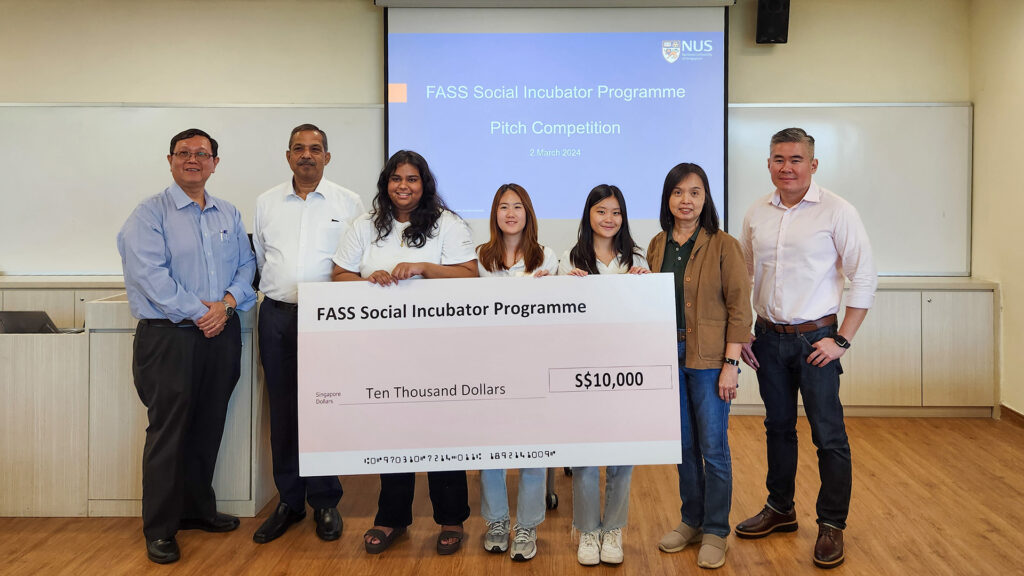
A mobile app that seeks to transform workplace culture by fostering peer support and empathy was the winning idea that saw a multidisciplinary team of NUS students walk away with S$10,000 in seed funding and mentorship opportunities at the NUS Faculty of Arts and Social Sciences (FASS) Social Incubator Programme (SIP) Pitch Competition held on 2 March 2024.
Organised annually and open to all NUS students with at least one FASS student in each team, the competition offers an exciting platform for students to gain first-hand experience in innovating and pitching impactful social innovations or practices. Some areas for which they can provide innovative solutions include healthcare, active ageing, at-risk youth, mental wellness, family care, as well as assistance for persons with disabilities and vulnerable communities.
Head of the FASS SIP Steering Committee Associate Professor Lee Geok Ling said, "I am really amazed that so many first-year students took part and displayed wisdom and bravery. I hope the students leave with some precious takeaways that will serve them for years to come, such as the spirit of social entrepreneurship, the creativity-practicality bi-focal perspectives, and the heart to serve."
Assoc Prof Lee noted how the SIP was established in 2019 thanks to former residents of Normanton Park who shared the University's vision of bettering society and set up the SIP with proceeds from the en bloc sale of the Normanton Park estate. The fundraising effort by the condominium's residents aimed to inspire other individuals and companies to make similar contributions to support the initiative.
To better prepare students for the competition, an SIP Networking Event was organised last September to help them hone their case competition skills and find potential teammates to bring their burning social entrepreneurship ideas to life. There, students also learnt about the different business functions in a company, examined their strengths in the different business roles, and were given guidance on ways to identify teammates with complementary skill sets.
Participants also had the opportunity to propose solutions in a mini case competition addressing social issues such as bridging the generational gap between the elderly and the youth, and promoting support for caregivers, particularly elderly caregivers of their disabled children.
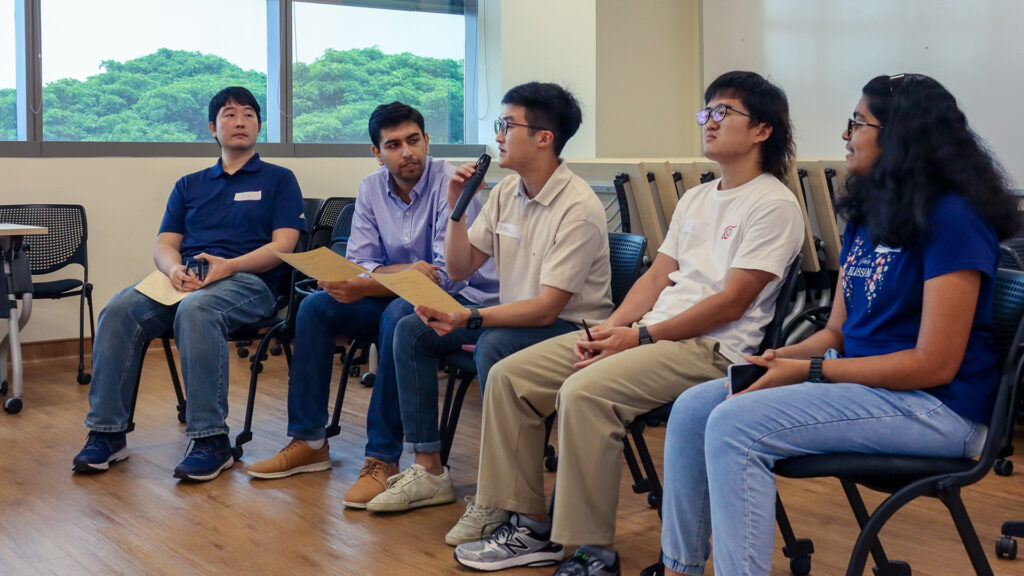
Innovative Solutions to Social Problems
Five teams were shortlisted for the finals and wowed the judges with their creative solutions to a myriad of salient social issues.
These included a neurodiversity-focused DEI (Diversity, Equity and Inclusion) consultancy to boost the career prospects of Persons with Disabilities (PWDs) by helping companies bolster disability inclusion in the workplace, virtual reality headsets designed with customised modules to help with holistic pain management for patients undergoing medical procedures, a deck of card strips comprising tasks for users to complete with friends to help address loneliness among university students, and pet food made from mushroom waste to reduce carbon and methane emissions.
Team I'm Friendly CO's pitch, however, stood out from the rest. The judges were impressed with the group's proposal to develop a mobile app that seeks to improve the mental well-being of employees in the workplace through daily check-ins and journalling, providing organisations with insights into employee mental well-being. In-app learning modules will also equip employees with peer support skills as users are assigned anonymous work buddies who can provide a safe space for vulnerability and emotional support.
Donor and businessman Mr I Y Sarma, who was part of the judging committee, was surprised and impressed with the high quality of ideas, as well as the skills of articulation and presentation he witnessed at the competition.
He remarked, "I'm Friendly CO won because they took a good idea, developed it to a tangible level, brought it to the SIP pitch competition well-prepared, and presented it impressively. They have an ambitious plan going forward which has a high possibility of success with support and mentoring."
The winning team will be given seed funding to further develop their business idea under the SIP programme for a year. They will also benefit from close mentorship by members of the FASS SIP Steering Committee who have rich experiences in social work and entrepreneurship.
Anishka Singh, a Year 3 NUS Psychology student from the team that emerged victorious, said the competition was an eye-opening experience and being in a room full of passionate founders with the desire to make a difference spurred her and her teammates on.
She added, "The diverse panel of experts gave us different lenses through which we re-examined our platform and impact. Their pragmatic feedback was like rocket fuel, reaffirming our mission and propelling us forward with actionable steps to finally get our platform off the ground! With this boost of confidence and a clear roadmap ahead, we're diving in all the way to create our dream platform, one that humanises organisations and fosters healthy communities for mental well-being."
This story first appeared in NUSNews on 20 March 2024.
NUS Researchers Honoured for Early Career Contributions by the Association for Psychological Science
IN BRIEF | 5 min read
- The four NUS Psychology researchers join other NUS faculty members who have been recognised by APS in the past including Associate Professor Eddie Tong (also of NUS Psychology), Professor Sam Yam and Assistant Professor David Peter Daniels from NUS Business School, and Assistant Professor Reuben Ng from the Lee Kuan Yew School of Public Policy at NUS.
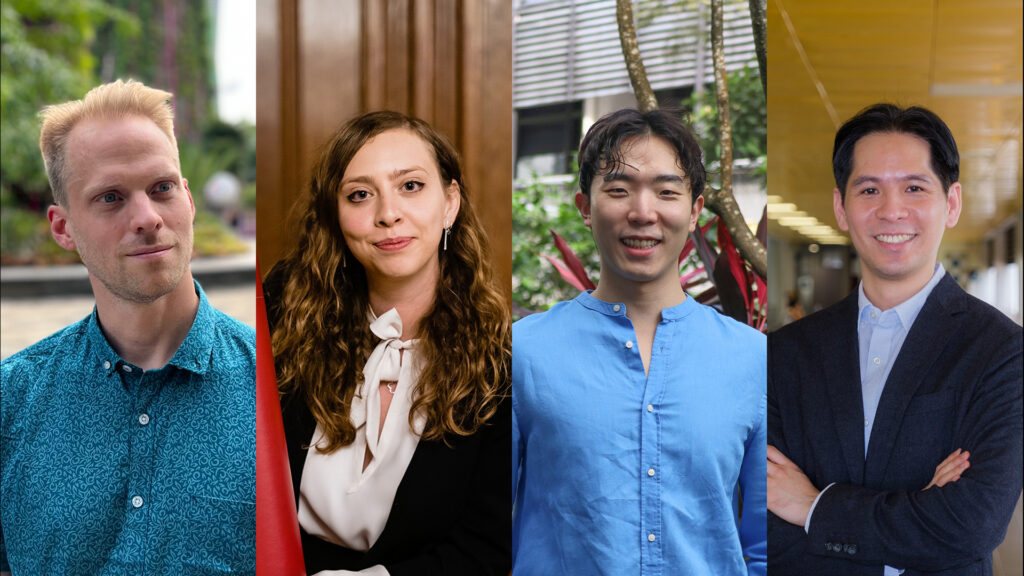
Four NUS researchers from the Faculty of Arts and Social Sciences (FASS) were honoured for their early career contributions to the field of psychology in the Association for Psychological Science's (APS) 2024 Awards.
Associate Professor Sacha Epskamp received the Janet Taylor Spence Award for Transformative Early Career Contributions, which honours particularly creative and promising APS members who embody the future of the field. As part of the win, Assoc Prof Epskamp will automatically receive APS Fellow status in the review cycle following his award.
Assistant Professors Adela Isvoranu, DongWon Oh, and Steven Pan were named APS Rising Stars, recognising outstanding APS members in the earliest stages of their research careers post-PhD. The designation is conferred on early-career researchers whose innovative work has already advanced the field, signalling great potential for their continued contributions.
The Association for Psychological Science is an international association headquartered in Washington, DC, with over 25,000 members globally. Its awards are conferred on members who have contributed significantly to the field of psychology at various stages in their careers, and recipients hail from a broad range of prestigious institutions including Ivy League universities.
The four Psychology researchers join other NUS faculty members who have been recognised by APS in the past including Assoc Prof Eddie Tong from FASS, Prof Sam Yam and Asst Prof David Peter Daniels from NUS Business School, and Asst Prof Reuben Ng from the Lee Kuan Yew School of Public Policy at NUS.
Janet Taylor Spence Award for Transformative Early Career Contributions: Assoc Prof Sacha Epskamp
Assoc Prof Epskamp said he was thrilled to receive the Janet Taylor Spence Award, noting: "APS is a world-leading association with thousands of members, active in every subdiscipline of psychological science. To this end, this is a very prestigious and highly selective award to receive. It is a great honour to have my early career contributions recognised as such."
The award recognised Assoc Prof Epskamp's contributions to transforming network psychometrics, which involves exploring relations in large psychological datasets through the use of network models. He laid the foundations for this new methodological framework by researching novel statistical methods, developing free software programs, and making educational materials available to increase accessibility for applied researchers.
Seeing his work applied in both psychological research and clinical practice inspires him to continue with his research. He explained: "A strong motivating factor behind my work is that I believe methodological innovation should be paired to empirical and practical applications. That is, I aimed for my work to be translational and not merely academic."
Assoc Prof Epskamp has set up a lab on psychological methods in FASS, which he hopes will become "a hub for methodological innovation in psychological research and other social sciences." He describes the Department of Psychology as an "exciting and stimulating environment" to continue his work to improve methods and set up collaborations that will lead to new empirical insights in diverse fields of study.
APS Rising Star: Asst Prof Adela Isvoranu
A long-held interest in well-being and mental health was what led Asst Prof Isvoranu to pursue psychology as a degree and continues to motivate her today, as she aims to improve well-being and clinical practices in mental health through her research.
On receiving the APS Rising Star designation, she said, "I am very humbled, happy, and grateful to be listed alongside such extraordinary and talented young researchers worldwide, and I am highly encouraged by the award to continue pursuing my early career research goals."
Employing a multidisciplinary approach that straddles psychological methods and clinical psychology, Asst Prof Isvoranu's line of research investigates risk and protective factors for mental health, with a focus on a symptom perspective as opposed to a syndrome perspective. The many stimulating collaborations she has set up and enjoyed as an early career researcher have proved especially inspiring to her, and she sees NUS as an excellent base for pursuing her interests and goals.
APS Rising Star: Asst Prof DongWon Oh
The intricacies of first impressions and how people respond differently to social stimuli have been a lifelong fascination for Asst Prof Oh. His research on social perception explores the influence of individuals' biases and experiences on how they recognise and try to understand others. Ultimately, his goal is to mitigate the impact of initial biases and improve interpersonal relations, as these factors have great potential to foster a positive change in society.
"This work is crucial for understanding and enhancing group harmony and interpersonal interactions, particularly in diverse and multicultural contexts like Singapore," said Asst Prof Oh. "It aims to contribute to a more equitable and understanding society by dissecting the dynamics of social biases."
To him, the APS Rising Star designation validates his dedication to his research and reinforces his commitment to excellence in his field as a mentor and researcher. He said: "Receiving this award is both an honour and a humbling experience… Sharing this recognition with two esteemed colleagues from our department underscores the exceptional environment at NUS Psychology. This makes this moment even more significant for all of us."
Asst Prof Oh's future research will investigate the origins and development of variability in social perception. Specifically, he is collaborating with peers at NUS and beyond to study the cultural (such as personal values) and developmental factors (such as early life growth) that impact how our perceptions of others form and evolve.
APS Rising Star: Asst Prof Steven Pan
Echoing the sentiments of his colleagues, Asst Prof Pan said he was "very honoured" by the APS recognition and added: "Being named an APS Rising Star alongside a select group of talented and successful researchers from around the world - including two wonderful colleagues from the Department of Psychology here at NUS - is very humbling."
His research programme was inspired by observations from his teaching and life experiences of certain strategies or approaches that enhance learning outcomes. "These strategies can yield longer-lasting memories, better understanding, and/or higher levels of skill. In some cases, they are transformative for one's learning," he explained.
Currently, Asst Prof Pan is investigating a series of promising learning strategies like prequestioning or pretesting, where a learner makes guesses about information before learning it formally. In future, he plans to explore the conditions where such strategies would be beneficial for learning and the cognitive mechanisms they engage, providing insights into how learning occurs in the human brain.
This story first appeared in NUSNews on 23 February 2024.
Suiting Up for an Ageing Society: Students Walk a Mile in the Shoes of the Elderly
IN BRIEF | 10 min read
- Dr Kuan Yee Han (NUS Tembusu College) created the Elderly Life Simulation Attire (ELSA) - a body suit with earmuffs, a hydration backpack, weights, gloves and goggles - to help students of his Technologies and Ageing in Singapore course understand the needs of the elderly.
To attend Dr Kuan Yee Han's class, students have to suit up - like Iron Man. But instead of becoming a superhero with special powers, the effect is quite the opposite.
Consisting of earmuffs, a hydration backpack, weights, gloves and goggles, the body suit - named the Elderly Life Simulation Attire (ELSA) - was created by Dr Kuan for his Technologies and Ageing in Singapore course to help students understand the needs of the elderly.
"For students who are in their early 20s, imagining what it feels like to be old is very challenging," explained the Senior Lecturer at NUS Tembusu College.
"They can only observe the elderly around them, but to feel (what it's like to be elderly) will be very difficult."
The suit aims to bridge the empathy gap by limiting students' ability to move and flex their limbs. It also muffles their hearing and blurs their vision. This, Dr Kuan hopes, will help them produce more effective and feasible solutions to help seniors live better.
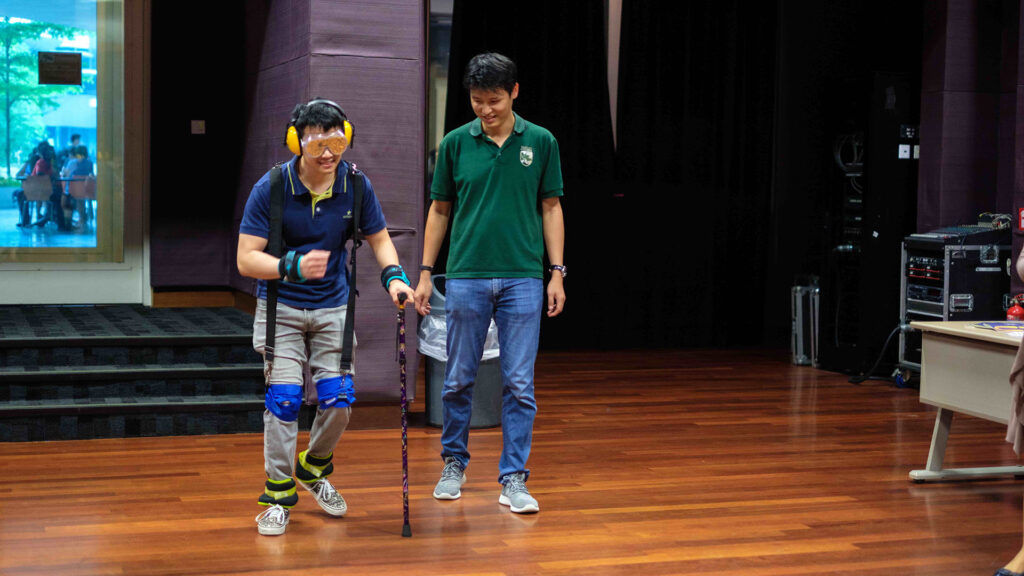
He spent a year conceptualising the course before its rollout in 2018 at Tembusu College. Over a semester, students from the college delve into how technology can be used to strengthen elderly people's ties to their community and improve their social life, especially in Singapore's fast-ageing society.

Bridging the Empathy Gap
When he was a student enrolled in the NUS Overseas College Programme in 2007, Dr Kuan spent a year in Silicon Valley at a medical device start-up. It was his time there that shaped his interest in pursuing medical technology engineering.
But graceful ageing did not become an area of passion for the NUS alumnus, who holds a BEng in Mechanical Engineering and a PhD in Biomedical Engineering, until several years later.
Seeing how his parents were growing older - developing wrinkles, losing hair, and becoming frail - made him realise that it was a topic he wanted to explore. He also interacted with the "aunties" working in the dining halls of the college, and wished that people would "not just see them as a group of elderly but as people with individual stories to share".
Dr Kuan did not recall seeing any ageing-related courses during his time as a student. So as an educator, he decided to design his own.
In its first iteration, he replicated a two-room Housing and Development Board flat in the college's reading room. The goal was to simulate daily living and allow students to understand what the elderly need to live independently and safely.
However, the learning outcomes were limited as students could not experience first-hand the physical struggles of the elderly.
To address the gap, Dr Kuan worked with former student Lai Jiongrui to build the ELSA bodysuit. Consisting of weights from Decathlon, earmuffs from Mustafa Centre, and hydration backpacks, each bodysuit costs below $100 - significantly cheaper than alternatives on the market that are used for education and research and could cost thousands of dollars.
While wearing the bodysuit, students enter the simulated flat and complete tasks such as cooking a meal and changing bedsheets.
ELSA may be the most memorable part of the course for most students, but fourth-year Chemistry major Tan Eu-Hsuan Chloe noted that the course explores more than just the physical process of growing old. It opened her eyes to the "different perspectives and dimensions" of ageing by covering the emotional aspects as well.
"The course really helped us to understand the negative feelings towards slowly losing your ability to conduct daily activities," she added.
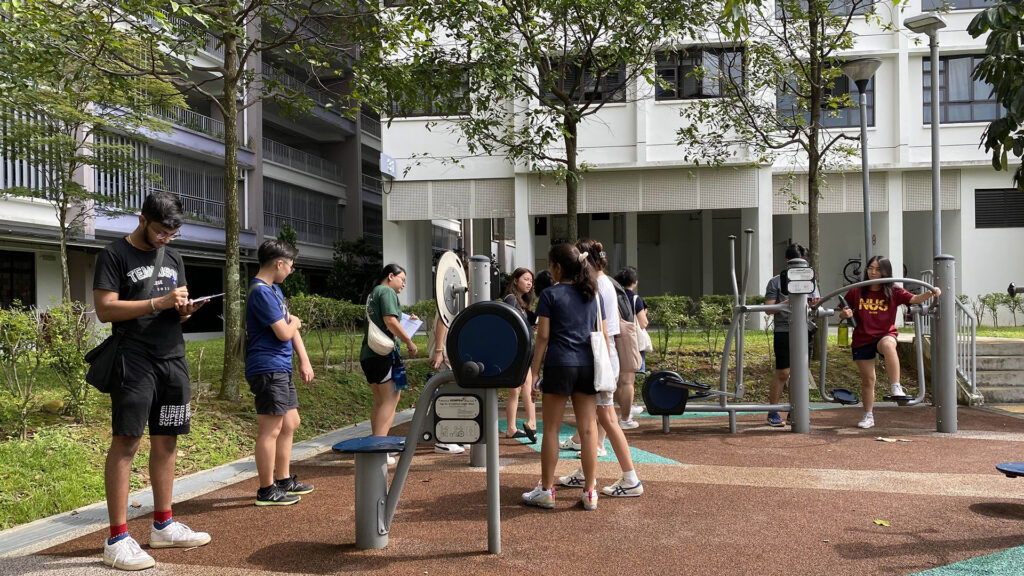
Learning Outside the Classroom
By incorporating experiential and authentic learning in his teaching pedagogy, Dr Kuan enables his students to gain first-hand experiences and develop new perspectives. This also helps them see the connections between real life and what they are learning.
As part of the course, he also encourages his students to have end-of-life conversations with their parents and the other elderly people in their lives.
While this is a taboo topic for some people, he believes the conversation is necessary to ensure clarity on critical matters such as lasting power of attorney and advanced care planning. He prepares students by conducting role-play sessions where they brainstorm various ways to strike up the conversation.
Dr Kuan also gets his students to organise activities for the elderly during their visits to day-care centres such as St Luke's ElderCare and Lion Befrienders. Afterwards, they assess if their activities were successful in engaging the seniors.
For instance, some students coordinated an origami session during one of their visits. But they later learnt that many of the seniors found the activity frustrating. Dr Kuan explained: "(The elderly people) did not know what was happening. And when they folded, they did not know whether it was correct or not."
On the other hand, an activity that involved guessing the prices of different items was a hit. "We got to see a very different atmosphere. It was more collaborative," Dr Kuan recalled.
The students often have a good time, too. "We really enjoyed going for (Dr Kuan's) lessons," said Titus Hutch Jr. Yim Yi Zheng, a second-year undergraduate majoring in Psychology who took the course in 2023. "It's not just sitting down and learning about the statistics of how many elderly people there are."
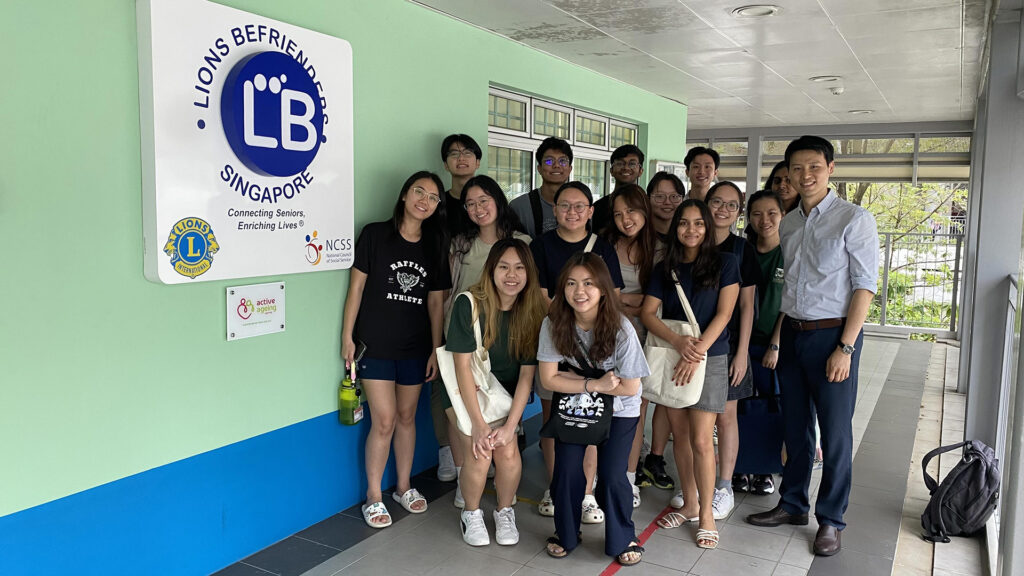
Ageing Like Fine Wine
Six years after its launch, the course is still a work in progress. Dr Kuan often collaborates with course alumni - such as Jiongrui, who helped design the ELSA bodysuit - as he seeks ways to improve the learning experience.
Next on his agenda? Coding a Telegram bot to help him run self-guided field trips.
"It will be a treasure hunt in which students have to solve puzzles related to the elderly," he said, adding that the bot would help him communicate with students efficiently while allowing them to learn at their own pace.
"I'll see if I can code the bot myself. If not, I'll work with a student researcher or a computer science student," he added.
The course is ageing like fine wine as it continues to develop, encouraging more youth to engage with a topic that is often glossed over.
As Chloe pointed out: "People often talk about ageing like it's a simple process, but there are actually so many aspects to it."
This story first appeared in NUSNews on 8 February 2024.
Effects of face masks on language comprehension in bilingual children
Singapore saw a surge in the rate of COVID-19 infections towards the end of 2023 and residents were encouraged to start wearing masks again in crowded places to prevent the spread of the disease. Mask-wearing has normalised in the past few years, becoming commonplace in schools and workplaces. As a result, children have had to approach language-learning while wearing masks. Although limited research has been conducted on the impact of face coverings on children’s language comprehension abilities, previous research suggests that the kind of face masks used has different implications on the children’s language-learning. Associate Professor Leher Singh (NUS Psychology) studies how various face coverings (surgical masks and transparent face shields) affect language comprehension in bilingual children in the article 'Effects of face masks on language comprehension in bilingual children' (Infancy, 2023). A/P Singh conducted the research in Singapore, studying a group of 28 three-year-old English-Mandarin bilingual children. The research showed that the children had no issues recognising English words when speakers spoke through a surgical mask or without a mask, whereas, the children struggled to recognise the words when speakers spoke with transparent face shields. On the other hand, the children could recognise Mandarin words when presented without a mask, through a surgical mask, and even through a transparent face shield. This suggests that there are distinct characteristics of both English and Chinese that lead to different effects when spoken through a transparent face shield. This also reveals that face coverings like surgical masks do not significantly impede spoken word recognition in young bilingual children. Read the article here: https://doi.org/10.1111/infa.12543

NUS Faculty and Alumni Honoured at 2023 Outstanding Social Worker Awards
IN BRIEF | 9 min watch
- This year saw NUS Social Work's Deputy Head Associate Professor Peace Wong receiving the Outstanding Social Worker Award, and alumni Ms Nisha Sanjay Verma (NUS Social Work and NUS Psychology) and Ms Flora Tan (NUS Social Work both conferred Promising Social Worker Award honours.
Click through image below to read this piece.
This article first appeared in The Straits Times and NUSNews on 17 and 18 November 2023, respectively.
Thriving in Best Form
IN BRIEF | 20 min read
- Creating - and maintaining - a safe, caring environment for the students and staff of NUS is a collective effort undertaken at all levels of the University..
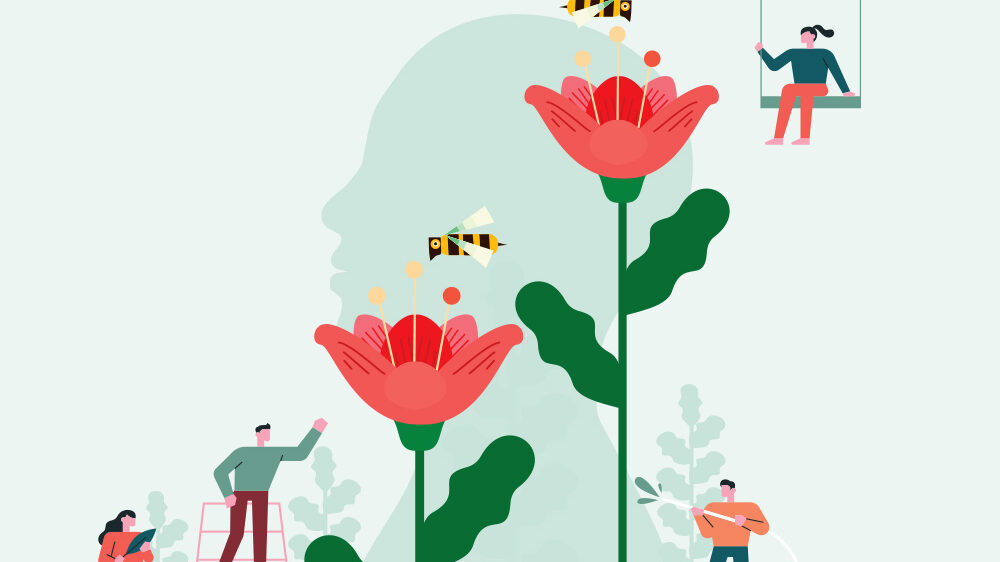 How do you remember your days at the National University of Singapore (NUS)? For many, it was a season brimming with youthful optimism; an exciting time of intellectual exploration and self-discovery. Yet for some others, it might have been a low period of feeling uncertain about future prospects, and being anxious over performance.
How do you remember your days at the National University of Singapore (NUS)? For many, it was a season brimming with youthful optimism; an exciting time of intellectual exploration and self-discovery. Yet for some others, it might have been a low period of feeling uncertain about future prospects, and being anxious over performance.Ms Tasneem Abdul Majeed (NUS Psychology '23) recalls navigating university life as a freshman. Moving to a new campus, meeting new peers and adapting to a new way of learning all increased her anxiety levels. As a member of the University Scholars Programme, Ms Abdul Majeed was also required to stay on campus during her first year of undergraduate study. Immersed in an extremely social environment, and dazzled by myriad extra-curricular activities, the self-professed introvert found it a challenge to set boundaries. "I felt guilty about declining invitations to floor or house bonding events. I also struggled with overcommitment," she recalls. "My parents, who were NUS students during the 1990s, were active in various student interest groups. I was inspired to do the same and enrolled in four interest groups - without considering the impact it would have on my mental wellbeing and academic performance."
With high expectations of academic performance and commitments to co-curricular activities, and their own set of social dynamics - which are different from those of junior colleges or polytechnics - universities can be stressful environments. As a congregating ground for the brightest minds, a university environment presents an intense level of competitiveness on a high-calibre playing field. As one of the top universities in Asia, and placed eighth in the 2023 Quacquarelli Symonds World University Rankings, NUS certainly attracts the best: not just a global pool of academically-driven students vying to be accepted, but also top performers in different areas of work applying for job positions within the organisation. This means that the stressors are felt not just by students, but also by staff.
Studies from around the world, from Australia1 to the United Kingdom2, have shown an increasing proportion of members of university communities experiencing mental health issues. The social disruption caused by COVID-19 certainly took its toll. In 2022, it was reported in an National University Health System (NUHS) study that three in four NUS students were at risk of depression as a result of the pandemic. The findings echoed global reports on escalated feelings of depression among student populations who were abruptly cut off from campus community life during lockdowns - as well as similar feelings experienced by university workers.
While the world might have moved on from the pandemic, a newfound awareness of mental health issues has emerged. Mental health leave days and even counselling apps have been rolled out by employers to help staff manage their wellbeing. Some companies even offer flexi-work schedules and four-day workweeks in response to the masses' call for better work-life balance.
Addressing the wellbeing of the working community is also a matter of economic importance. In April 2023, a study by Duke-NUS Medical School and the Institute of Mental Health found that anxiety and depression could cost Singapore around $16 billion yearly, with those affected missing an additional 17.7 days of work a year on average, and being 40 per cent less productive while at work.
Yet, initiatives and resources do not in themselves make a healthy environment. A four-day workweek on paper would be of little benefit if employees are still expected to respond to work messages and emails after office hours. The provision of 'mental health leave days' would lose its effect if a person still feels pressured by peers to forsake downtime for productivity. This is certainly a pertinent issue in Singapore, where the local culture still places value on visible, outward signs of industriousness, be it among working adults or the student population.
Creating a truly healthy work environment takes meaningful engagement, sustained efforts and a genuine culture of care. At NUS, these come naturally. After all, universities have more than a duty to educate - they also have a duty of care.
Caring from the CoreAs a world-class organisation, NUS has been putting conscientious effort into creating and promoting a supportive and caring culture and community for both its student and working population - and this starts right from the university's leadership core.
One of NUS' strongest advocates for mental health is the Chairman of the NUS Board of Trustees, Mr Hsieh Fu Hua (Business '74). Together with NUS President Professor Tan Eng Chye (Science '85), they ensured that mental health became a strategic leadership priority within the University. They drove the formation of the NUS Health and Wellbeing (HWB) team, established under the Office of the President, in 2020. This was followed by the creation of the NUS Steering Committee on Mental Health & Wellbeing in June 2021. Chaired by the Deputy President of Administration, Mr Clarence Ti, the committee serves to provide oversight and guidance on the implementation of the University's mental health strategy. Together, HWB and the committee look at consolidating and organising mental health resources and approaches to enhance the mental health and wellbeing of the NUS community. This is achieved via various modes, ranging from psychological clinical services, training, outreach and research to even the standardisation of measurement scales to assess the wellbeing of the NUS population.
While there have been siloed wellness initiatives that predate it, the setting up of HWB demonstrates a concerted effort to drive a holistic health and wellbeing strategy. Its formation cements the University's commitment to enhancing the mental health and wellbeing of the entire NUS community, staff and students alike. "Universities, in general, focus on the wellbeing of students. NUS is one of the few that goes above and beyond this, and is kickstarting the journey to improve the wellbeing of academic, research, administration and executive staff," shares Dr Andrew Epaphroditus Tay (Medicine '05), Head and Director of the HWB team.
NUS has been recognised for its efforts. At the WorkWell Leaders Awards 2023, the university clinched the Wellbeing Organisation of the Year Award, while Prof Tan - who regularly invites staff from all levels to join him for casual chats during his daily morning walks - was bestowed the Wellbeing Leader Award for setting the tone and culture for building a mentally healthy workplace.
Further demonstrating their commitment to the cause, NUS senior leaders are also personally involved in two major health and wellbeing committees. These are the Mental Health Steering Committee that develops the University's mental health strategy and ensures allocation of sufficient resources and budget; and the Healthy Campus Initiative that promotes a healthier lifestyle for the NUS population through changing eating habits and engagement in physical activities. Such involvement has contributed to regular and meaningful discussions on health and wellbeing matters at high-level meetings.
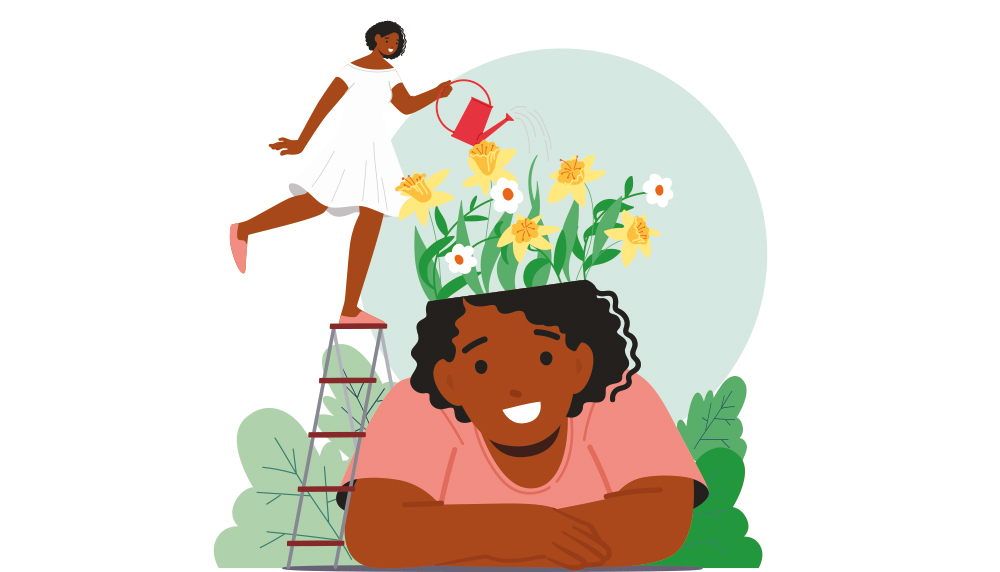
Taking a systematic approach to promoting mental health, the WellNUS framework was devised in 2021. It encourages organisations to start methodically plotting in each programme, initiative and wellbeing effort that caters to the needs of employees across the wellbeing spectrum: from a state of wellness to be maintained, and states that could be better managed through intervention and support, to recovery and back-to-work transition stages. This framework also serves as a gap analysis tool to identify areas for improvement and key stakeholders in charge of implementing change.
Dr Tay highlights that the framework is designed to ensure accountability in three areas: Culture and Leadership; Systems and Infrastructure; and Support Services and Resources. With this tool, NUS has been able to review organisation-wide programmes - a complementary package of long-term initiatives and ad hoc activations - to minimise duplication of efforts across stakeholders. "This has resulted in a much more unified, holistic, structured and sustainable approach to supporting employee wellbeing," shares Dr Tay.
This translates to a 360-strategy, executed with high levels of professionalism. Tapping into the University's in-house experts, Wellbeing Specialist Partners (WBSP) is a clinical arm that provides staff with evidence-based psychological services spanning counselling, free internal psychological support from a dedicated team of in-house NUS clinical psychologists, and group therapy. Based on their individual comfort level, staff also have the option of consulting with staff within the campus community, or seeking support through NUS' external vendor.
HWB also encourages staff to maintain and manage their wellbeing through additional forms of support and tools that help to build resilience. The latest iteration of NUSHeart (Help Employees with Advice, Resources & Therapy) - an Employee Assistance Programme by the NUS Office of Human Resources, and supported by HWB - is a perfect example of this approach. As of April 2023, the updated NUSHeart has contracted an external vendor to provide an engaging mobile app that covers a wide range of uses. Built into the app are personalised self-care and skill-building programmes, alongside a wealth of bite-sized wellness tips that make it an informative tool for everyday use. It also features functions such as booking face-to-face and virtual counselling appointments, alongside coaching sessions, helping to make periodic wellness check-ins hassle-free.
The NUSHeart app also demonstrates an effort taken to make information and resources as accessible as possible - a critical factor in the effectiveness of any programme. HWB's mental health destigmatisation campaign was thus launched. Now into its third year and known as the (kind)mind campaign, it drives resource awareness and sets the tone for a culture of psychological safety and empathy on campus. This is done through panel discussions - with speakers including NUS alumni, senior leadership, students and staff - workshops and even a campus-wide digital game with prizes to be won.
Based on NUS' 2022 Wellbeing Survey, the effect of the annual outreach campaign has seen an almost five-fold increase in the number of requests to utilise counselling services. The survey showed that - compared to those unaware of the campaign - staff and students who have been exposed to the campaign messages are increasingly willing to support people with a mental health issue. They also cited lower levels of distress and are more favourable towards using mental health resources and services. Since the destigmatisation campaign's launch in 2021, there has been a decreasing trend in staff reporting extremely severe (from 4 to 3.79 per cent) and severe (8.3 to 6.9 per cent) signs of distress.

While campaigns are highly visible and attention-grabbing, normalising conversations on wellbeing takes constant effort, and multiple events have been organised to engage the campus population all year round, through different entry points. Not about to book a counselling session? How about a complimentary and confidential Health and Wellbeing Check-in to talk about what's on your mind? If that's not within your comfort zone, then consider an invigorating round of yoga to learn about ergonomic health instead. Or a "Paws-itive Mood Booster" session cuddling with felines and canines from Animal-Assisted Interactions Singapore while gaining actionable wellness take-aways. This year, HWB even collaborated with the Society for the Prevention of Cruelty to Animals (SPCA) for mindfulness and stretching sessions - while interacting with cats and kittens. While the main focus was on mindfulness and physical wellbeing, HWB also took the chance to get the SPCA to raise awareness about responsible pet ownership as a bonus.
Another initiative is the NUS Wellbeing Day. Launched in 2021 as an annual day-off for the whole campus to shut down to recharge as a community, it is now a twice-a-year event that sees staff and students getting that extra time away from school and work. "The idea behind NUS Wellbeing Day is that employees tend to shut down much better when they are doing it collectively," shares Dr Tay. "The impact of the NUS Wellbeing Days were huge, with data showing that employees were able to rest more than two times more effectively, compared to vacation days and weekends. This has been demonstrated by the precipitous drop of individual electronic traffic during NUS Wellbeing Days."

For those ready to deep-dive into mental health issues - not just for their own benefit, but also to help others - NUS offers a full spectrum of education and training programmes. These range from hour-long awareness workshops held monthly, to two-day programmes for Peer Staff Supporters (PSS) Training.
The PSS system gives NUS staff with a passion for helping others the relevant training to help keep a lookout for colleagues in distress and offers them basic emotional support. PSS members also play the role of directing colleagues to the appropriate services and resources. A similar scheme - the PSS system by the Office of Student Affairs (OSA) - is mirrored for the student body.
Mr John Chng, Senior Associate Director, Student Wellness unit, OSA, shares the importance of having these "wellness agents" on the ground. "Through surveys, we have found that the first people a person in distress turns to are often their peers," he reveals. "While there is much more mental health awareness today, there is still stigma among local and international students, who might have been brought up thinking that having such issues is a sign of weakness or even a matter of bringing shame to the family." While neither counsellors nor mental health professionals, peer supporters play that first line of defence in safeguarding the wellbeing of the NUS community, simply by being that friend-next-door, or colleague that one can turn to. "We take mental wellness literacy training in students very seriously, and have been implementing such programmes since 2019," says Mr Chng, who also shares that more than 700 students go through various forms of training each year to learn how to recognise distress signs among peers.
Ms Abdul Majeed was a Peer Student Supporter from 2022 to 2023. She says, "We underwent a rigorous six-month training programme on counselling techniques, peer support and crisis management to ensure that we were well-equipped to support students in distress. We were also well-supported by a team of experienced OSA staff, who helped address any concerns we had and made sure we had time for self-care to better support the student community."
Besides the PSS initiative, there is also a full suite of health and wellbeing services and programmes aimed at the student population. University Counselling Services (UCS) under HWB ensures that students in distress have easy access to professional mental health support. In view of the students' busy schedules, UCS even runs office hours sessions, and has streamlined services to the effect of reducing the waiting time for the first appointment by 60 per cent - so that help can be delivered sooner to those who need it.

A Year 3 Business NUS student, who declined to be named, visited UCS in October last year. He was searching for NUS counselling services online, chanced upon UCS and booked an appointment. "I had a 1-to-1 consultation with a counsellor for about an hour and it was very helpful," he says. "The counsellor was professional and reassuring. They even checked in with me a month after my appointment to make sure I was okay, and told me that I could always visit them again if I had any concerns."

Also part of the support infrastructure are Faculty Student Support Managers (SSMs). Since 2017, some 40 to 50 SSMs who are trained to provide social and emotional support to students have been appointed. "They serve as a port of call for students who are facing mental health issues and could help to facilitate certain academic arrangements, such as the pushing back of deadlines or reducing workloads by delaying modules," explains Mr Chng.
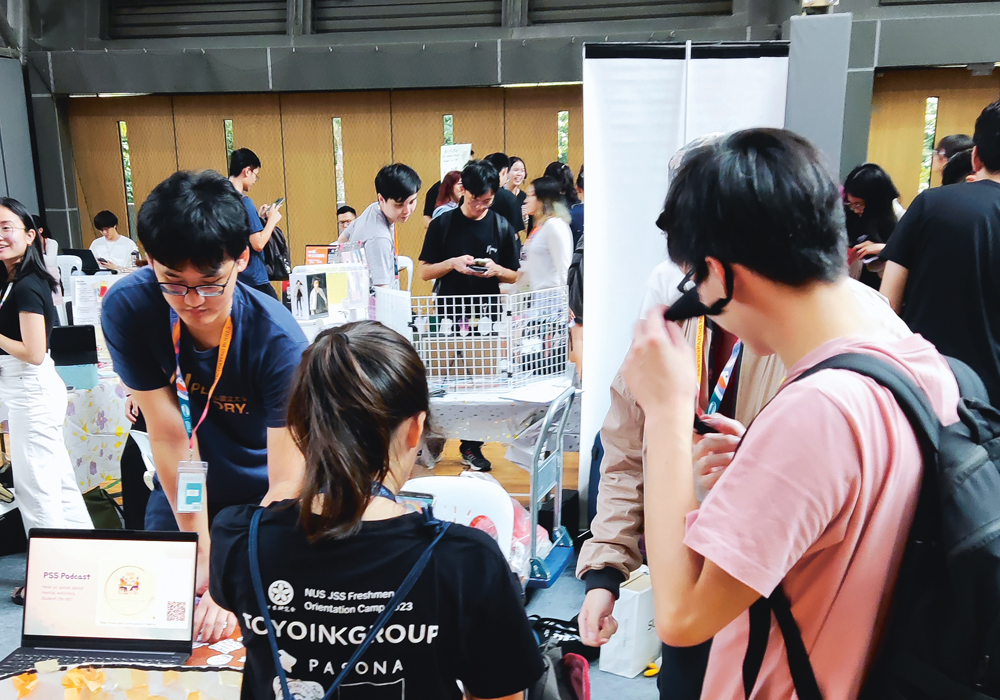
As of 2019, NUS has also appointed trained counsellors and social workers as Student Wellness Managers (SWMs) on campus and Residential Wellness Managers (RWMs) in hostels from mid-2022. SWMs complement SSMs in identifying students at risk, and connect them to appropriate services such as UCS for further assistance if needed. "Whether it be relationship problems or mental health conditions, students from faculties and hostels are appreciative of the help and support rendered by the Wellness Managers," says Mr Chng.

The Wellness Managers are positioned close to student life to build trusting relationships and to "brand mental health as something approachable and accessible," shares Mr Chng. "While we are all trained counsellors and social workers, we do not take our interactions with students as a 'counselling' session. We are just there as somebody who they can talk to, and we kind of do an initial assessment. If a student presents severe symptoms, we try to build a relationship with them in the hope that we might be able to encourage them to go for the University's professional counselling services."
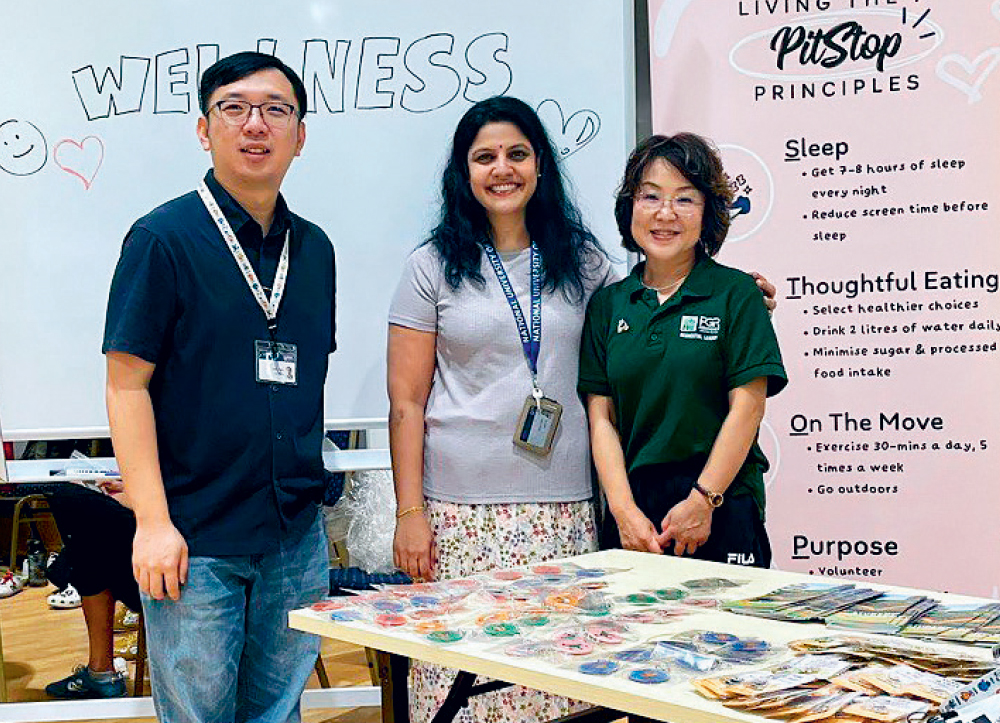
Moving beyond providing students with essential services, the Student Wellness unit takes things upstream with the WellNUS Festival, co-organised with the University Health Centre and in partnership with HWB. First launched in 2020, this month-long event held in conjunction with World Mental Health Day on 10 October is a campus-wide activation packed with interest-based activities and informative virtual talks. "For that whole month, we would collaborate with student clubs and faculties alike to conduct activities such as kayaking, music box making, and latte art. The focus, however, is on wellness," details Mr Chng. "Many students do know the importance of mental health as part of the whole NUS journey. However, we want to encourage them to prioritise their mental wellbeing, rather than start thinking about it only when they face issues." These craft workshops and fitness sessions are a reminder for them to engage in activities that can help them reset and recalibrate body and mind.
Kenric Tan (Year 4, Nursing) participated in the WellNUS Festival last year. He says, "It was an opportunity to explore crafts and practices that I had never tried before and take a short break from school to recharge!" He also believes in OSA's "7 PitStop Principles" - Personal Skills, Interactions, Time Out, Sleep, Thoughtful Eating, On the Move and Purpose - positive practices that students can adopt to help with stress management and improve self-care. "I would encourage [my friends] to practice the Pitstop Principles or to even regularly share their thoughts and feelings so they will not be bottled up," he adds.
Ms Abdul Majeed adds that wellness reminders were apparent throughout the NUS campus. "Taking the campus bus, I would pass banners advertising the University's free counselling services and events promoting mental wellness on campus such as mindfulness workshops."
Beyond Happiness - Helping Students Build ResilienceIt's not just all good vibes and sunshine though. Pointing to "happiness rankings" among universities, which one might find online, Mr Chng stresses that a "happy" student body doesn't necessarily translate to wellness. "Wellbeing is a lot of things, from a sense of belonging and feeling of security, to being appreciated. It is not just about staying happy all the time," he opines. While some might argue that a more relaxed teaching structure - as opposed to an intensely rigorous education system - could significantly reduce the stress students experience, Mr Chng differs. "Indeed, a competitive culture can have an impact on our students' wellbeing, to the point where they might be unable to perform at their optimal level. However, academic excellence and wellness are not at opposite ends." Having spoken with peers from top universities such as Oxford and King's College, he found that the more highly-ranked a university is, the stronger the support structure for students who are distressed. "More importantly, it's also about having the mental resilience to pick oneself up after failure, or a period of feeling down," says Mr Chng. He opines that what is more critical is a university environment that allows students to flourish in their own way by allowing them to fail, and by celebrating different successes.
Mr Chng's sentiments echo what Prof Tan shared in a July 2023 interview with Channel NewsAsia3: "We feel that in a university, we should allow our students to experience failure, hopefully in a more controlled environment… and they learn from it, pick themselves up, and continue to push forward." The flagship NUS Overseas Colleges programme alongside internships all serve to expose students to experiential routes of learning outside of the classroom. "They might see the startup (that they are attached to) doing extremely well in the first half of the year, and in the second half, see it collapse," adds Mr Chng. "It makes them think about how things might be if they were actually working there, and suddenly found themselves without a job." Witnessing and going through such real-world failures can help students mentally steel themselves against such experiences in the future.
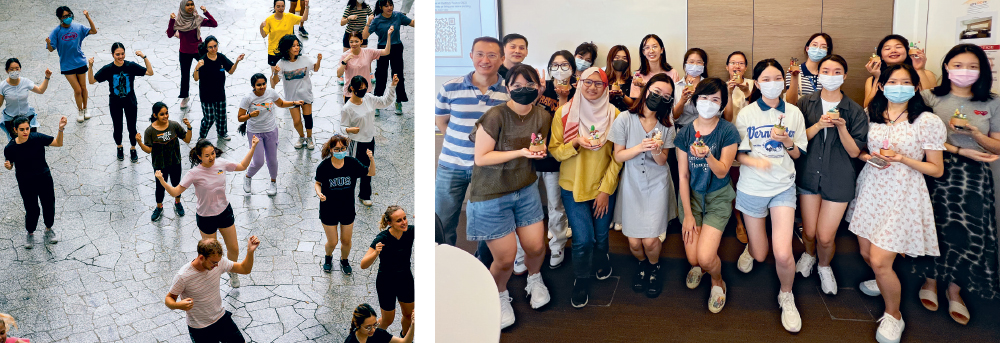
Mr Chng shares that the 2023 Student Life survey showed that rates of anxiety, depression and perceived stress have fallen as compared to the years before, indicating that mental wellbeing is better among the student population. "There are a lot of factors that contribute to this - one of it being the resumption of face-to-face sessions post-pandemic, leading to positive social interactions," he shares. "I like to think that our proactive approach in reaching out has also helped."
Apart from university-directed efforts, there are also ground-up movements with considerable impact. Under the Healthy Campus Initiative (HCI) administered by HWB, undergraduates can apply for funding and mentorship for health and wellbeing projects. Mr Chng also shines the spotlight on projects such as Spectrum, a student-led mental health movement that centres on the belief that mental health falls on a continuum, which won the 2020 NUS Public Health Challenge. This competition invites NUS students across faculties to propose ground-up solutions that can improve the health of the NUS community. Other initiatives have even attracted the attention of those beyond NUS. One example is I am Friendly Co, an anonymous platform where any youth or young adult can seek emotional support from trained listeners, which was started by NUS undergraduates. The platform is supported by NUS Enterprise and the People's Association Youth Movement, among other organisations.
Beyond these headline-grabbing projects, there are also myriad student groups - be it mental health advocacy groups within hostels, or student committees - coming together to create awareness events. At the end of the day, just as managing and maintaining one's physical and mental wellbeing lies on a continuum, so does NUS' journey in building a healthy and kind campus community. "NUS is a large community with a long legacy - it will take time to change the mindset and culture university-wide, inside out," says Dr Tay. "However the NUS community has been open-minded and many have embraced change. As a whole university, we are working together to make bigger strides for a more supportive and caring environment."
References:1 blog.aare.edu.au/the-kids-arent-all-right-neither-are-staff/
2 www.frontiersin.org/articles/10.3389/feduc.2022.929335/full
3 www.channelnewsasia.com/listen/work-it/leaders-chair-nus-president-tan-eng-chye-university-rankings-and-morning-walks-staff-3665686
This story by Koh Yuen Lin and the NUS Office of Alumni Relations appeared in AlumNUS in October 2023.
NUS Alumni Awards 2023: Celebrating Outstanding Changemakers and Trailblazers
IN BRIEF | 8 min read
- NUS honoured the achievements of 21 outstanding alumni and three alumni teams comprising another 14 alumni, at the prestigious NUS Alumni Awards 2023.
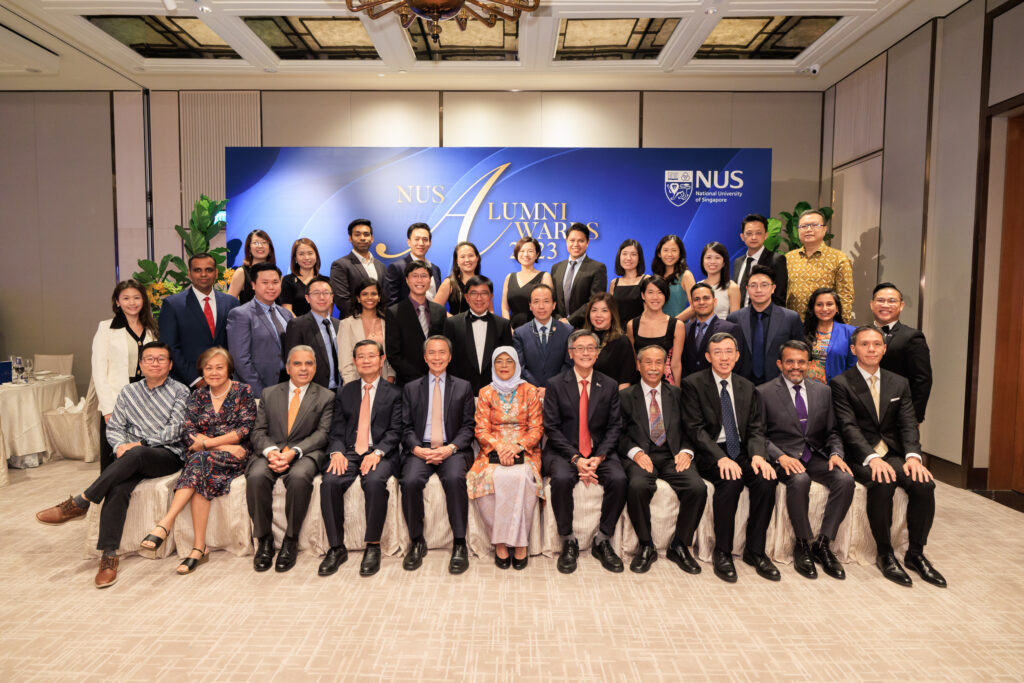
Twenty-one individual alumni and three alumni teams, comprising another 14 individuals, were honoured at the NUS Alumni Awards 2023 on 2 November.
Now in its 10th edition, the biennial NUS Alumni Awards recognise alumni who have distinguished themselves through significant and impactful contributions to their alma mater, society and the world.
Speaking at the celebratory event, NUS President Professor Tan Eng Chye noted that the award recipients have, “not only found success in their respective fields, but elevated what it means to be an alumnus or alumna of our institution: their achievements have enriched our culture, advanced our science, deepened our humanity, and bettered our society”. Read Prof Tan's speech here.
Eminent Alumni AwardThe Eminent Alumni Award was conferred on Mdm Halimah Yacob, former President of the Republic of Singapore, for her achievements in public service, as well as her exemplary service to the University as the former Chancellor of NUS from 2017 to 2023. Mdm Halimah Yacob
Mdm Halimah graduated in 1978 with a Bachelor of Laws from the University of Singapore and obtained her Master of Laws from NUS in 2001. She spent 33 years with the labour movement, rising to become Deputy Secretary-General of the National Trades Union Congress (NTUC). In 1999, she became the first Singaporean elected to the International Labour Organisation (ILO), where she served for 12 years, representing workers globally. She entered politics in 2001, serving as a Member of Parliament until 2017. In a career filled with firsts, she became the first woman appointed Speaker of Parliament in 2013; and the first woman to be elected President of Singapore in 2017, a role she held until 2023. For her service, she was conferred the Order of Temasek (With High Distinction), the nation’s highest civilian honour, this year.
As Chancellor of the University, Mdm Halimah conferred close to 76,000 undergraduate, master’s, doctorate and honorary degrees over six years, and presided over the Main Commencement ceremonies for graduates and honorary graduates. She also graced various NUS events, including NUSSU Rag & Flag Day 2018, NUS Bizad Charity Run 2020, the Bukit Timah Homecomings of 2018 and 2022, the Institute of Policy Studies’ Women’s Conference in 2021, and the 52nd UM-NUS Inter-University Tunku Chancellor Golf Tournament in 2023.
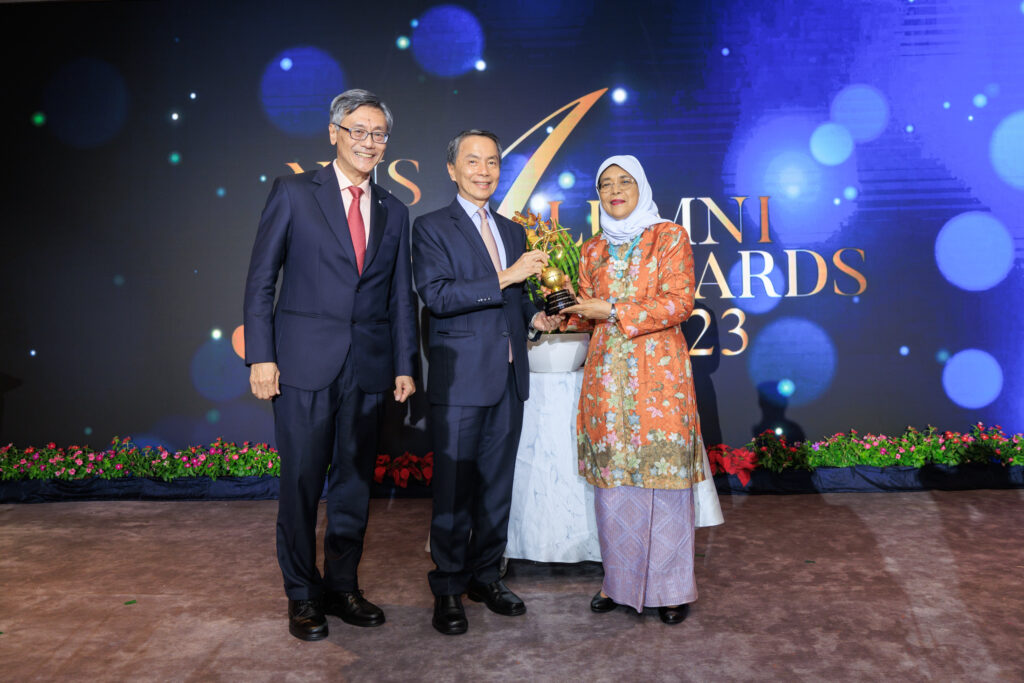
Delivering the citation for Mdm Halimah’s conferment, Prof Tan commended Mdm Halimah as an “inspiring leader” and “trailblazing alumna”, noting her “unwavering dedication to advancing the lives of individuals and communities, particularly the underprivileged”. Read the citation here.
“I am deeply honoured to receive the Eminent Alumni Award from my alma mater. NUS has played a formative role in my life, shaping not only my academic development but the values I have carried throughout my career,” said Mdm Halimah.
Watch this tribute video on Mdm Halimah’s contributions to the University and Singapore.
Distinguished Alumni Service AwardEight NUS alumni were conferred the Distinguished Alumni Service Award for their achievements in their chosen fields, as well as their excellent volunteer service to NUS, its predecessor institutions and/or the community.
These award recipients were:
- Professor Kishore Mahbubani (NUS Philosophy '71), Distinguished Fellow at NUS Asia Research Institute
- Mr Kok Heng Leun, founder of the Drama Box theatre group
- Ms Janet Lim Yuen Kheng (NUS Sociology, 75), former Assistant High Commissioner (Operations) at the United Nations High Commissioner for Refugees (UNHCR)
- Justice Andrew Phang Boon Leong, Senior Judge of the Supreme Court of Singapore
- Mr Ravi Menon (NUS Economics '87), Managing Director of the Monetary Authority of Singapore
- Mr Brian Tan Kai Piang, Regional President of Applied Materials Southeast Asia
- Mr Wong Kan Seng (NUS History and English '70), former Deputy Prime Minister of Singapore
- Mr Yatiman Bin Yusof (NUS Geography and Malay Studies '72), High Commissioner of Singapore to Kenya and Malay language champion
Twelve young NUS alumni were honoured for their achievements and outstanding contributions to their chosen fields.
These award recipients were:
- Dr Aishwarya Bandla, Regional R&D Manager at Paxman Coolers
- Ms Akanksha Batura Pai, Head of Strategy and Growth at Sinoda Shipping Agency
- Dr Rena Dharmawan, Assistant Dean and Assistant Professor at Duke-NUS Medical School
- Mr Faris Bin Ridzuan (NUS Sociology '15), academic tutor at the National University of Singapore
- Dr Izzuddin Bin Mohd Aris, Assistant Professor at Harvard Medical School and Harvard Pilgrim Healthcare Institute
- Mr Khoo Yi Feng (NUS Southeast Asian Studies and Psychology '17, Social Work (postgraduate diploma) '20), social worker and mental health advocate
- Mr Kwok Ka Ming Andre, founder of Good City Foundation
- Mr Samson Leo, Chief Legal Officer of Fazz
- Mr Raghuram Natarajan, Chief Executive Officer of Blueleaf Energy
- Mr Seah Li Song Shawn (NUS Economics '10), local history author
- Dr Shravan Verma, Co-founder of Speedoc
- Ms Frances Tho Siao Ting, Vice President of Sales at Numerix
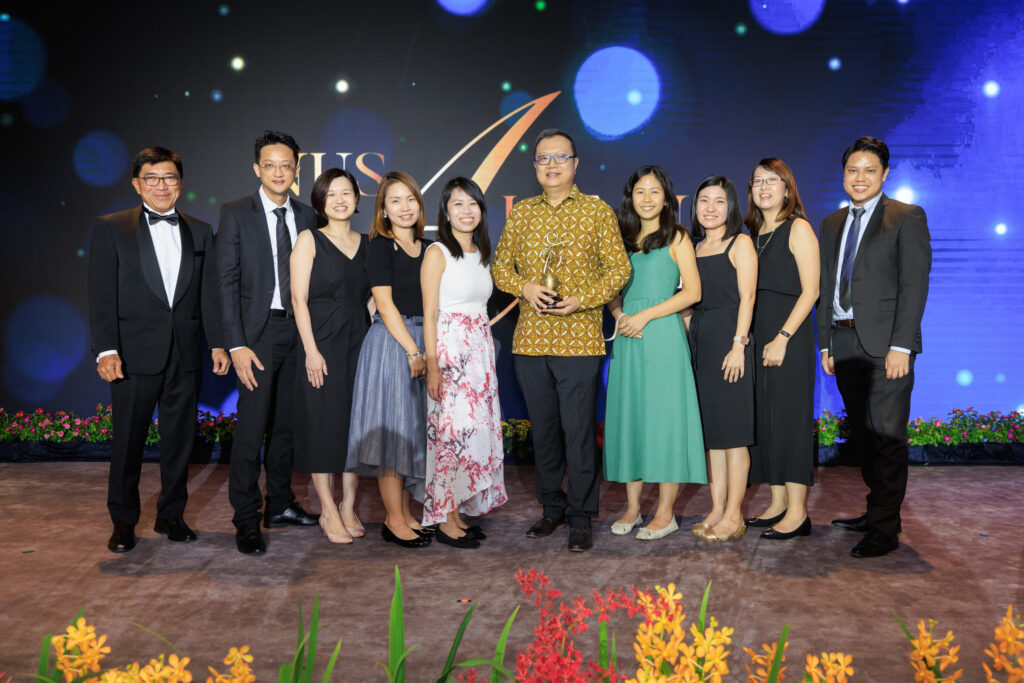
Team (Alumni) Award Recipients
The Team (Alumni) Award recognises the outstanding achievements of alumni teams who have collectively distinguished themselves in their chosen fields.
Three awards recipients were:
- Co-founders of Growthbeans: Ms Shamantha Yan Shiya (NUS Sociology '09) and Ms Shane Yan Shiyan (NUS Psychology '09)
- Co-founders of Janio Asia: Mr Ng Jun Kai and Mr Nathaniel Asher Yim
- REACH (Response, Early Intervention and Assessment in Community mental Health) Team, Institute of Mental Health: Ms Esther Chew Yuki (FASS '14), Dr Daniel Fung Shuen Sheng, Mr Ho Weng Siong (FASS '16), Ms Li Jiaying Grace, Mr Ong Guo Xiong Jeffrey (FASS '09), Ms Ong Tze-I Cheryl (FASS '08), Ms Sim Si Lin (FASS '12), Ms Tan Ke Jia (FASS '03), Mr Tan Zheng Xin, Jason (FASS '08) and Ms Kelly Yeo (FASS '07)
Read more about the NUS Alumni Awards 2023 recipients here and here.
This story by the NUS Office of Alumni Relations first appeared in NUSNews on 2 November 2023.
Coming Together in a Whole-of-Society Approach to Address Singapore's Ageing Population Challenges
IN BRIEF | 5 min read
- The profiled alumna Ms Siti Adriana Muhamad Rasip is the co-founder of Empowered Families Initiative, which seeks to harness the strengths and abilities of low-income families by investing in their aspirations, and took home the top honours at the inaugural =Dreams Asia Breakthrough Prize Competition, a nationwide contest of ideas to eradicate poverty.
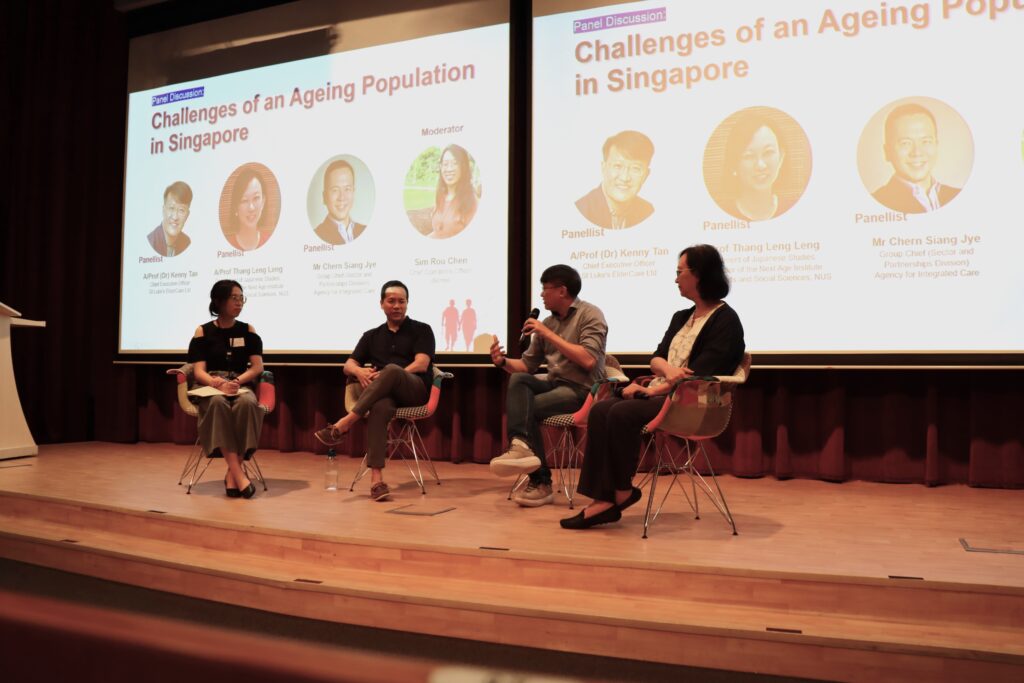
How can the whole of society be mobilised to tackle the challenges of an ageing population in Singapore? As the Singapore population demographic greys progressively, this question was at the centre of discussion at the annual symposium of the NUS Chua Thian Poh Community Leadership Centre (CTPCLC).
Held on 30 September at NUS University Town, the symposium gathered more than 120 attendees consisting of NUS students, staff and alumni, as well as stakeholders from the public and social sectors. Now in its 11th iteration, the in-person event saw changemakers, community leaders, and thought leaders discussing the issue of 'Challenges of an Ageing Population in Singapore', and how different organisations and individuals are doing their part to tackle this challenge.
The event was graced by Guest-of-Honour Mr Tan Kiat How, Senior Minister of State for Ministry of Communications and Information and for National Development, and Adviser to East Coast GRC Grassroots Organisations.
Noting that Singapore is home to some of the world’s longest living persons, Mr Tan highlighted the importance of closing the gap between life span and health span, adding that this is where everyone has a role. Mr Tan also reflected on his experiences of encountering seniors forming social networks and actively volunteering in the community, to overcome social isolation.
Expressing his delight that the CTPCLC curriculum has offered undergraduates a path to support these initiatives with their research and involvement in the community, Mr Tan expressed that this would bode well for our community, as it takes an all-of-community approach to tackle the challenges of an ageing society like Singapore.
Holistic Approaches to AgeingAttendees at the symposium delved into a thought-provoking hour-long panel discussion elaborating on efforts and plans to address the challenges of the ageing population in Singapore. Moderated by CTPCLC alumna Ms Sim Rou Chen, Chief Operating Officer of WeHiro, panellists Mr Chern Siang Jye, Group Chief, Sector and Partnerships Division, Agency for Integrated Care; Associate Professor (Dr) Kenny Tan, Chief Executive Officer of St Luke's ElderCare Ltd; and Associate Professor Thang Leng Leng from the NUS Japanese Studies and Co-Director of the Next Age Institute, NUS Faculty of Arts and Social Sciences), exchanged stories, insights, and recommendations on effectively addressing the challenges posed by an ageing population.
The discussion explored topics such as healthcare management, social support systems, and policy interventions, all designed to address key challenges faced by the elderly in our community. Assoc Prof (Dr) Kenny Tan captured the challenges succinctly in three words: helplessness, loneliness and boredom.
These thoughts were also echoed by Assoc Prof Thang Leng Leng, who spoke about loneliness and social isolation, even for elderly parents who may be living with their children, when conversations within the home could be limited to routine check-ins such as “Have you taken your medicine today?”
The discussion underscored the real need for elderly among the community to be actively engaged – and that the community can play a part through raising awareness of the former’s needs and supporting befrienders’ programmes, in ensuring that seniors can age amidst a strong social support network.
From Engagement to EffortSince its establishment in 2011, CTPCLC has continually challenged and empowered its students to explore the many facets of Singapore society and consider solutions to alleviate and address societal issues. CTPCLC students’ thoughtful analyses and implementations were showcased at the symposium through presentations, demonstrations and poster displays.

CTPCLC students and project partners Charmaine Song (Business, Year 4) and Tong Hui Yi (Social Work and Sociology, Year 4) took to the stage to elaborate on a year-long project they had embarked on in partnership with Thye Hua Kwan Moral Charities Limited.
During their project, which was titled ‘Reimagining the Active Ageing Centres (AACs) of Thye Hua Kwan’, Charmaine and Hui Yi interacted with seniors who were service users at Active Ageing Centres (AACs) in Ang Mo Kio. From the conversations, they gathered the seniors’ various opinions and hopes on how the AAC could further develop to serve Singapore’s ageing population.
Adopting a mixed methods approach that incorporated the use of observation work, semi-structured interviews, focus group discussions and online surveys, their study revealed that future AACs can play a vital role in serving as important sources of social, cultural and spatial capital for seniors: AACs provide social capital through important networks and social support among seniors; cultural capital by being a hub for acquiring new knowledge that will empower them; and spatial capital by being a potential ‘home away from home’, enabling seniors’ access to additional spaces of emotional and physical comfort.
The study also put forth key recommendations that highlighted how AACs can be further developed as a space for intergenerational communal socialisation, while serving as a rallying site for proactive seniors to engage in community-related volunteerism.

Beyond talks and discussions, attendees at the symposium also engaged with passionate CTPCLC alumni and students at a series of live demonstrations and poster displays detailing their various engagements with the community.
Amongst these was a demonstration by CTPCLC alumnus Mr Willoughby Niki Lee (College of Design and Engineering, Class of 2022) of his brainchild BoomBox - AI-based gamified activities innovated to help in seniors’ wellbeing, inspired by his love for the community and his engineering knowledge.

Ms Sim Rou Chen (Social Work and Psychology '22) also led an ageing simulation demonstration which allowed participants to experience what ageing could feel like, through the use of props and equipment like goggles, walking sticks and sandbags which hinder physical movement. Through this, participants developed a greater understanding and empathy of the physical, and thereafter, social and emotional, encounters and challenges that seniors could be facing in their daily lives.
Celebrating Tomorrow’s ChangemakersA ceremony was also held at the symposium to honour the achievements of CTPCLC’s Class of 2023, acknowledging their completion of the community development and leadership programme in NUS and celebrating their achievements in driving positive change within communities in Singapore.

“The Symposium has come at an opportune time as I begin my career in the community care sector,” said CTPCLC alumni Mr Kho Yong Xiang (Communications and New Media '23).
“CPTCLC has once again proven to be an invaluable platform for addressing the priorities of today. I heard peers discussing their ground-up research as well as connecting with partners and experts in the eldercare space. I am thankful for my time at the Centre and hope for more students to embrace the opportunities offered by CTPCLC,“ he added.
Beyond academics, the annual CTPCLC symposium provides a platform for like-minded individuals to share knowledge, foster collaboration, and inspire future leaders to address pressing community issues, making a difference to those around them. From their first tentative steps of taking courses at CTPCLC, the symposium also documents how students have been empowered to develop themselves further into passionate community builders and future leaders.
“In addition to the good work our alumni and students are doing in the community, it is really heartening that they continue to engage the Centre at an event like this one,” said Associate Professor Chng Huang Hoon, Director of CTPCLC. “I feel very proud to have been a part of their wonderful journey."
This story by NUS Chua Thian Poh Community Leadership Centre first appeared in NUSNews on 16 October 2023.
Recent NUS Graduate Delivers Valedictory Speech at 32nd Sinda Excellence Awards
IN BRIEF | 5 min read
- Ms G. Suthershinii (NUS Life Sciences and Psychology, '23) is now a research assistant in the Infectious Diseases Department of the Duke-NUS graduate medical school, and plans on using science to benefit mankind in her career.
Click through image below to read this piece.
This article first appeared in Tabla and NUSNews on 6 October 2023.
The Role of Visual Abilities and Cognitive Style in Artistic and Scientific Creativity of Singaporean Secondary School Students
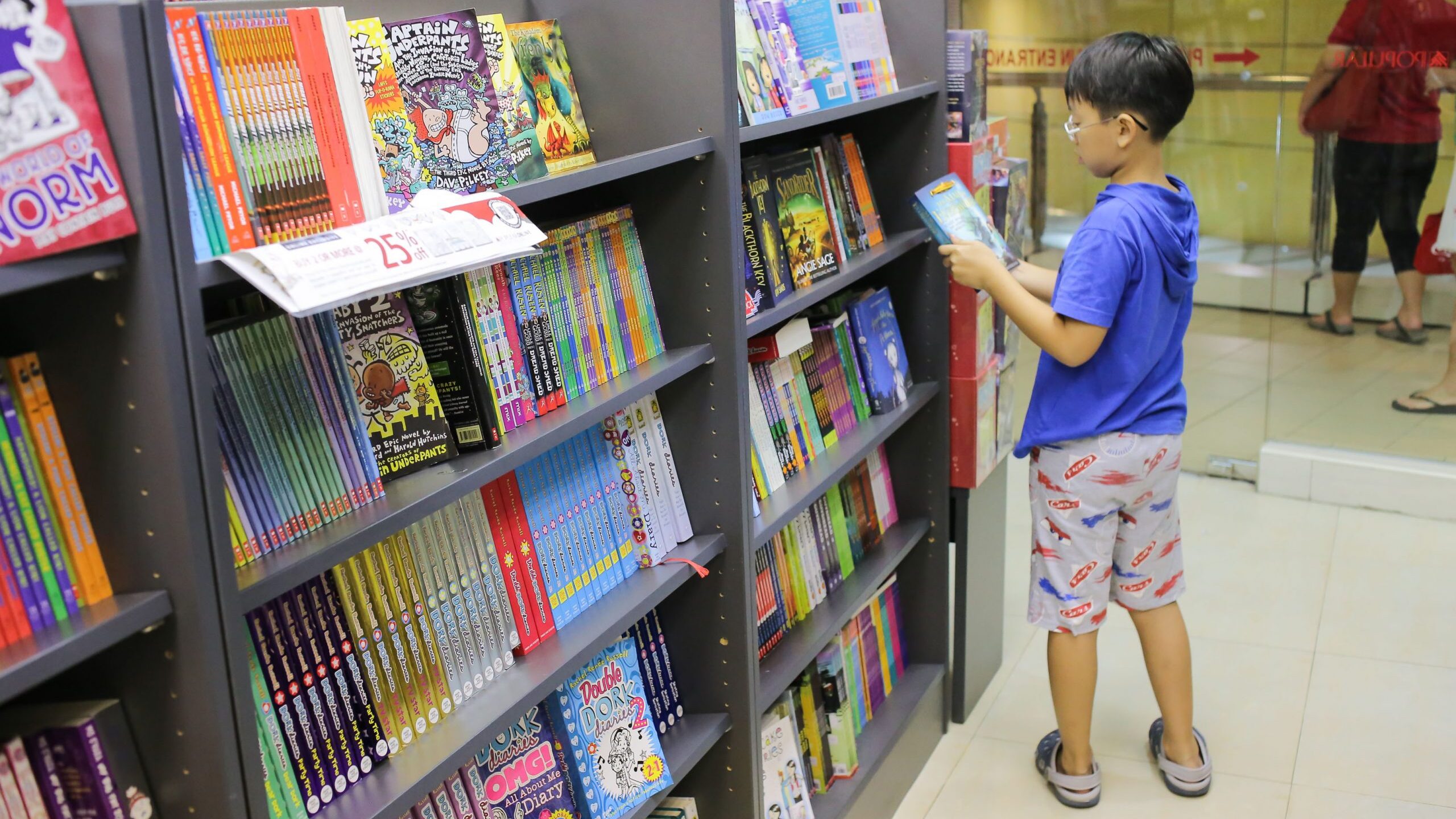
Expert Urges Caution as More Youth Take Personality Tests Online
IN BRIEF | 5 min read
- Dr Hsu Fang-Tze (NUS Communications and New Media) and Associate Professor Ryan Hong (NUS Psychology) weigh in on the discussion about the popularity of online personality tests based on the Myers-Briggs Type Indicator (MBTI) framework among young people in Singapore and Asia.
Click through image below to read this piece.
This article first appeared in The Straits Times and on NUSNews on 31 July 2023.
Charting New Experiences: The Anambas Odyssey Continues for the NUS Seafarers
IN BRIEF | 15 min read
- As their journey continues in this second instalment of the two-part series, the voyagers learn more about the local industries and explore the urban sights of the archipelago.
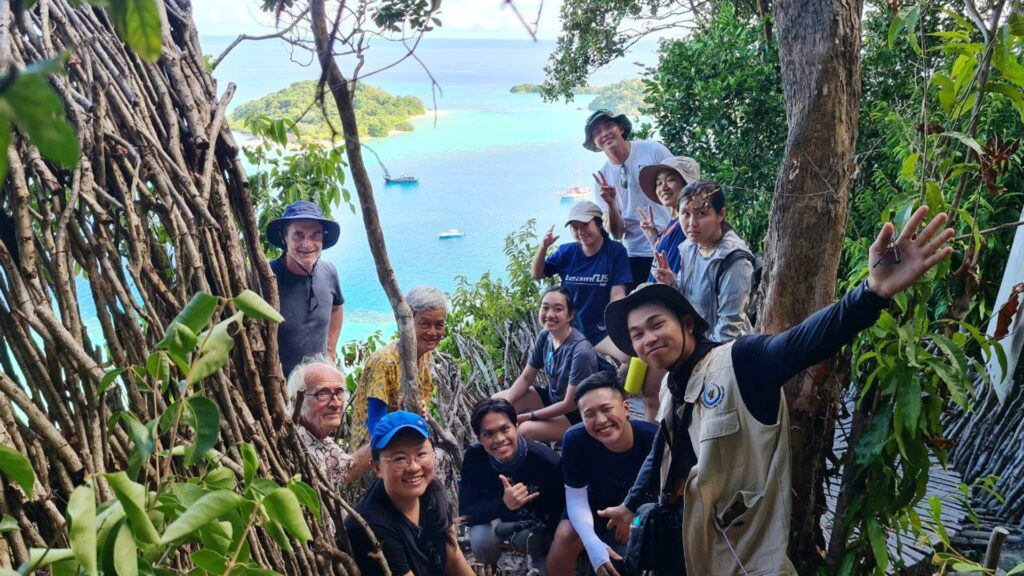
“The fair breeze blew, the white foam flew,
The furrow followed free;
We were the first that ever burst
Into that silent sea.”
– Coleridge, “Rime of the Ancient Mariner”
They may not have been the first to traverse that stretch of ocean, but for many of the students embarking on the 12-day voyage with the NUS Seafarers to Indonesia’s Anambas Islands, the experience of sailing was a first that opened their eyes to the thrill of being out at sea.
Read about the voyagers’ experiences picking up nautical skills, visiting local communities, and exploring the marine biodiversity in Part 1 here.
As their journey continues in this second instalment of the two-part series, NUS News tags along to chronicle the voyagers’ adventures learning about the local industries and exploring the urban sights of the archipelago.
The green economy: Investigating the ecotourism industry
Sailing onwards, the voyagers got a comprehensive view of an increasingly dominant form of economic activity in the region—ecotourism. They visited Bawah Reserve, an eco-island resort located in the southern islands, to learn how ecotourism, a relatively new, up-and-coming niche in tourism, offers a more sustainable alternative to the high levels of consumption associated with luxury tourism.
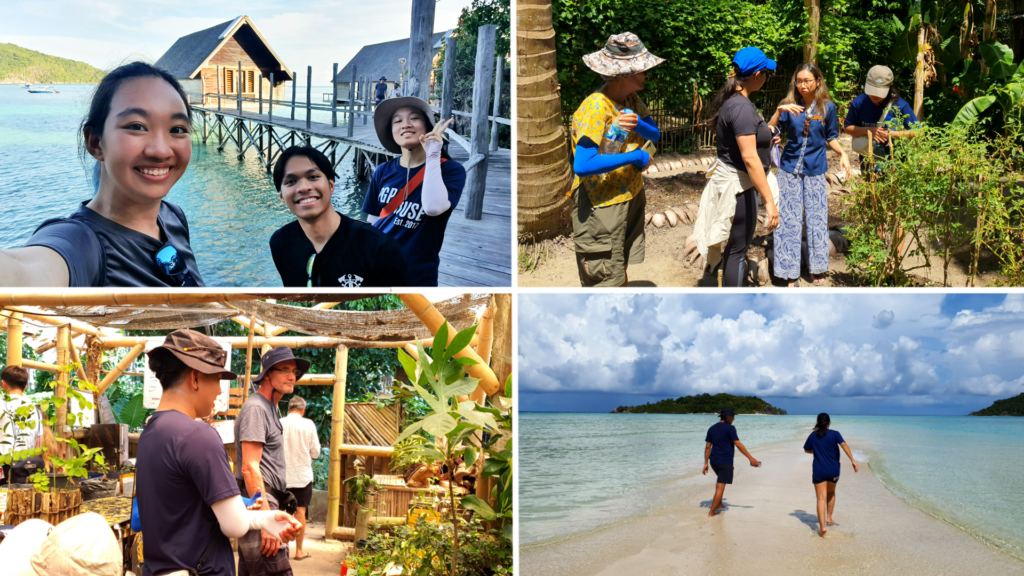
Receiving a behind-the-scenes tour of the efforts made towards Bawah Reserve’s eco-philosophy, the voyagers were acquainted with features such as lodgings constructed using bamboo and locally sourced natural building materials, a permaculture garden that supplies fruits, crops and herbs to the kitchens, solar panels that keep the island running on a greener source of energy, and a waste management programme predicated on a recycling policy, with the profits going to local communities in Batam. A marine conservation area with coral nurseries also protects the natural habitats of the sea turtles, eagle rays, and blacktip reef sharks that frequent its waters.
By offering nature-based tourist attractions and activities such as hiking, snorkelling, and paddleboarding, the resort not only creates jobs for locals and raises awareness of sustainability issues, but incentivises local populations to become environmental stewards in order to attract tourist dollars, a win-win situation that marries the twin goals of economy and sustainability.

They also had the opportunity to visit an ecotourism establishment at the other end of the spectrum, Ecosymbiosis, in Sagudampur. Run by founder Antje Spors and her daughters, with the help of the Orang Laut people and some local employees, the survival ecotourism concept aims to bring visitors back in harmony with nature, to lead a sustainable, minimalist hunter-gatherer existence integrated seamlessly into the wider ecosystem.
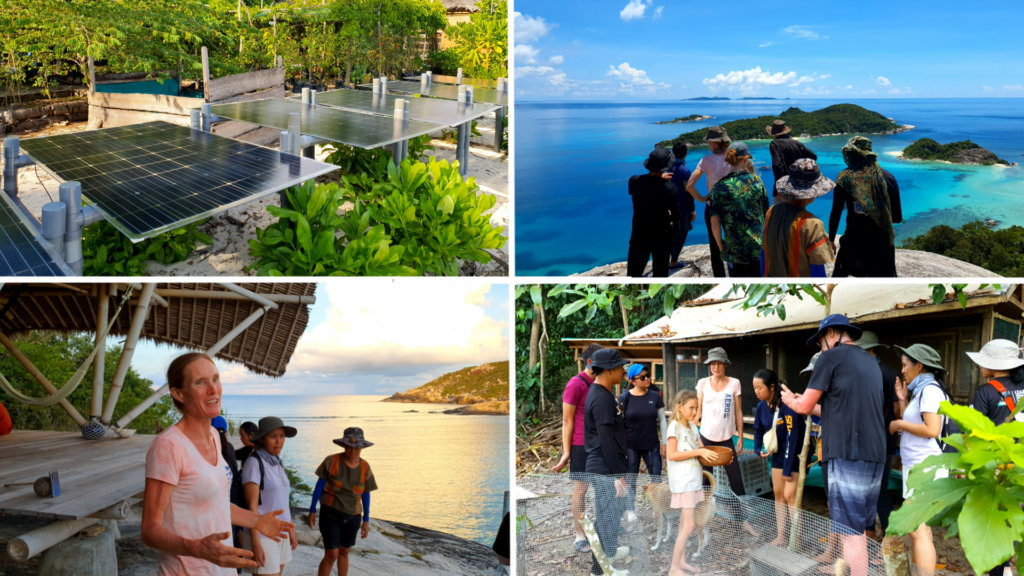
The voyagers experienced the model of zero-trace, non-pollutive tourism, witnessing a self-sufficient way of life in close connection with nature—from the rearing of chickens, ducks and rabbits as livestock, and groundwater wells that tap on the island’s natural water resources, to solar panels that supply electricity at night, and composting toilets that repurpose human waste as fertiliser for the crops and indigenous fruit trees on the island. They also got their hands dirty creating charcoal from rabbit manure and coconut husks, and learnt the art and science of living off the land.
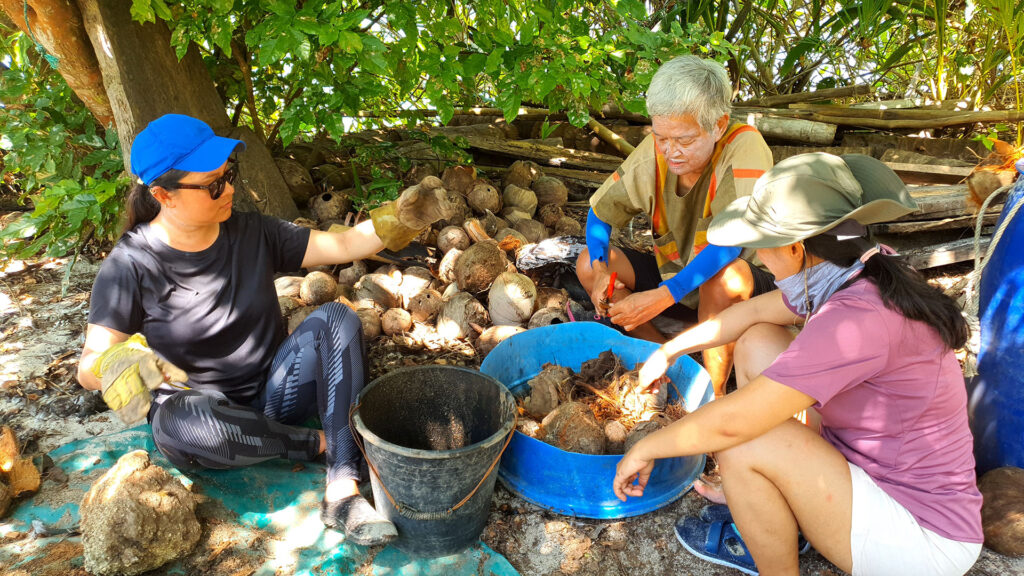
“One of my greatest takeaways from this experience was witnessing the dedicated efforts of these individuals and communities in their pursuit of sustainable living,” Tong Xinyao, a Year 1 Computer Science major, said. “Through small but meaningful steps, such as responsibly managing waste and reducing consumption, we can actively protect and preserve the environment.”
Partaking in an Urban Cultural Experience
After ten gruelling days at sea, the voyagers made their final landfall at Tarempa City, the vibrant, fast-growing capital of the Anambas Regency on Siantan Island, steeped in heritage and industry.
Going onshore at the crack of dawn, the buzz of trade and traffic carried on the morning breeze, they explored the bustling streets, negotiating the omnipresent motorcycles plying the roads and visiting the numerous provision shops, street hawkers, and other small businesses along the way.
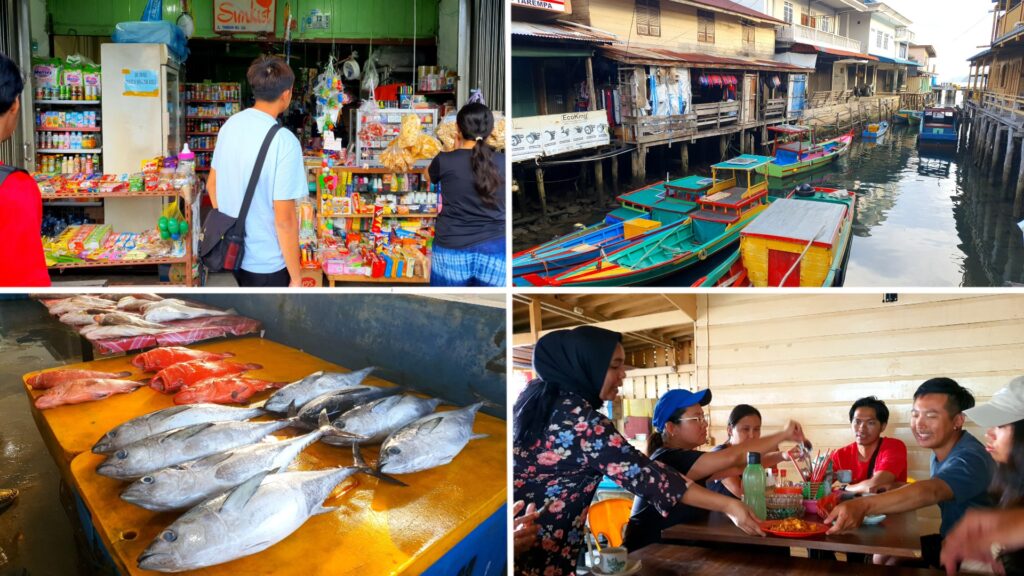
Immersing themselves in the sights, smells, and sounds of Tarempa City, they dug into hearty local dishes like Indonesian mie bakso and Indomie goreng at traditional eateries, and witnessed the local fishing economy in operation at a lively morning fish market selling seafood like squid, red snapper, grouper, and tuna.
The cultural experience also included a comprehensive tour of the newly built Masjid Agung Baitul Ma’mur mosque overlooking Tarempa Bay, a central facet of religious life for the Muslim demographic in Tarempa City.
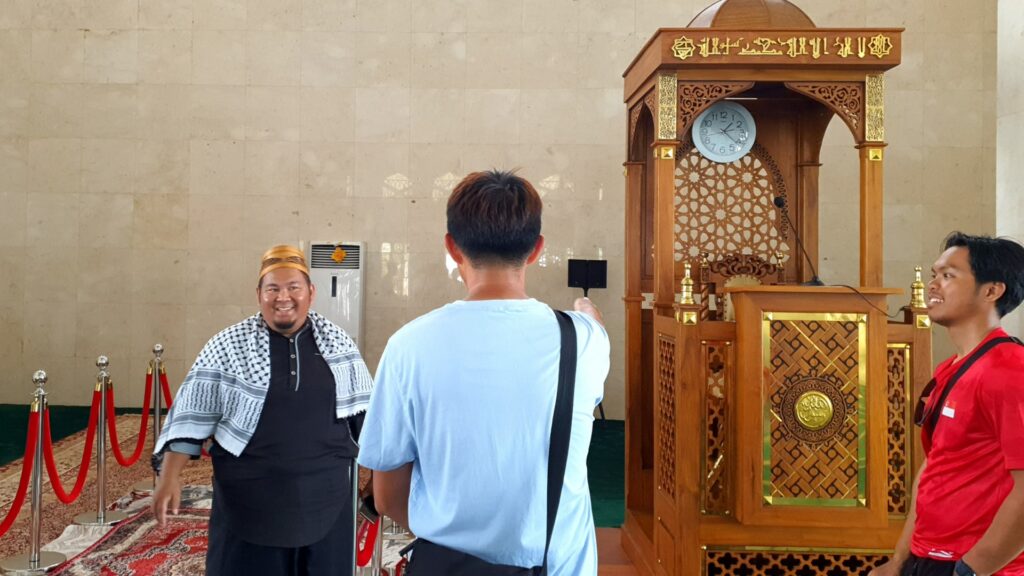
Besides elucidating its religious and cultural significance to the region, the imam delivered a sonorous rendition of the azan, the Islamic call to congregational prayer. The voyagers also learnt about the symbolism behind the mosque’s striking architectural features, such as the distinctive green dome and golden doors reminiscent of the Al Masjid an Nabawi in Medina, Saudi Arabia, one of the most important mosques in the Islamic tradition.
In good company: An enduring community of learners
For the crew, the journey itself, as well as the human connections made along the way, was as valuable as the various destinations. Living in the moment, the voyagers gained a profound sense of peace and mindfulness, getting in tune with their surroundings and each other.
“We didn’t use our phones as much and instead relied on our senses, and each other to live,” Ethan Leong, a Year 4 major in Psychology, said. “We woke to the dew of the morning and the morning sun at dawn. We slept to the waves and the moon rising over the horizon, and saw the stars move around the night sky. We slowed down enough to listen.”

“Away from the hustle and bustle of city life, we were presented with a rare opportunity to embrace an alternative way of existence,” Xinyao echoed.
The company also enhanced the entire experience—what started out as a ragtag band of strangers from all walks of life quickly coalesced into a tightknit community that cared for and brought out the best in one another, bound by a sense of rapport, camaraderie, and trust in each other.
“Our efforts in cultivating a safe and pleasant space to share our ideas were rewarded as everyone began to truly enjoy themselves, sharing opinions, helping others and creating memorable moments together,” Muhammad Harriz Adry Bin Ridzuan, a Year 4 major in Mechanical Engineering, reminisced.
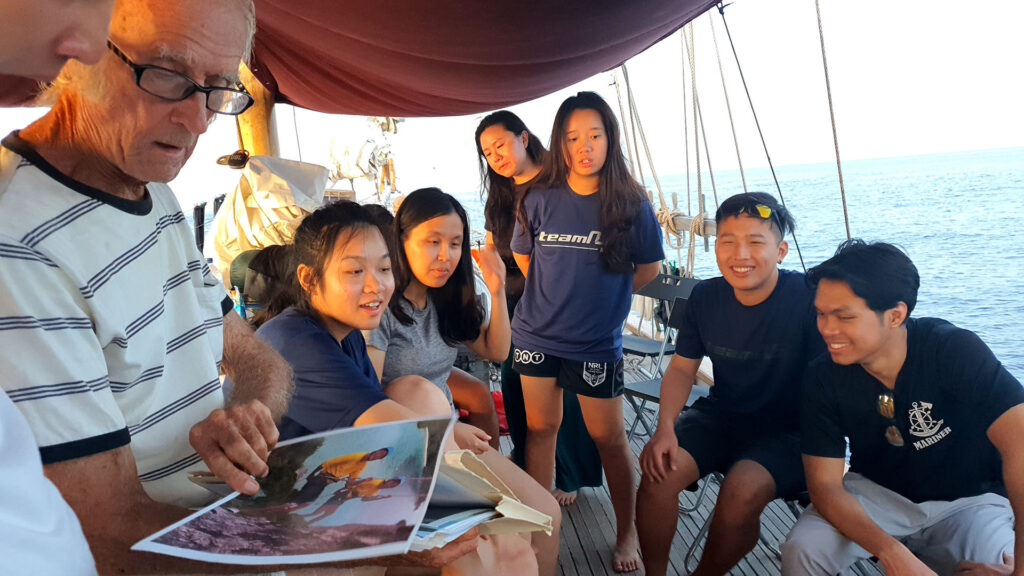
Even more remarkable was the immense value that every individual brought to the table, enriching the whole. Possessing diverse skillsets, talents, and interests, each member of the crew quickly found a niche in which to contribute, from a Nursing student who volunteered as Chief Safety Officer and the 73-year-old artist-in-residence who gave the voyagers art lessons onboard, to an NUS sailor who taught the novices the ropes and a Southeast Asian Studies minor who took it upon himself to share fascinating nuggets of information about local Indonesian art, architecture, religion, and culture.
“Living on a sailing boat together for ten days fostered a greater understanding and cultural consciousness among us, with our diverse backgrounds in nationality, religion, academic pursuits and life stages bringing unique perspectives to our discussions,” Xinyao shared.
“Through daily interactions and shared challenges, we developed a deeper appreciation for one another’s backgrounds and beliefs, gaining insight into different cultures and learning to navigate cultural differences with respect and understanding. I am delighted that I had the opportunity to learn some Bahasa Melayu and about Southeast Asian cultures from my friends!” she added.

Reflecting on the rich experiences on the voyage that have broadened his worldview, as well as how he has grown both as an individual and as part of a community, Harriz said, “Even now, weeks after the trip, the crew has left a mark on me. Of all the experiences I have had in NUS, this was the one that left something indelible and made me feel so much more well-rounded and ready to approach anything out there in the world.”
The voyage may have come to a close, but for the intrepid voyagers, it is the sum of all these memories and experiences, unmoored from the trappings of a frenetic urban existence, that they will carry with them for a lifetime.
This second instalment of a two-part series on the NUS Seafarers “Understanding Anambas” STEER voyage and first appeared in NUSnews on 24 July 2023. Read more about the NUS Seafarers, or check out their YouTube channel!
32 Pages – Co-authoring Stories of Possibilities with our Children
IN BRIEF | 5 min read
- Fresh graduates Chloe Ng (NUS Geography '23) and Tamara Tan (NUS Psychology '23) tell us why they established 32 pages, an organisation aiming to improve the emotional resilience of children through literacy
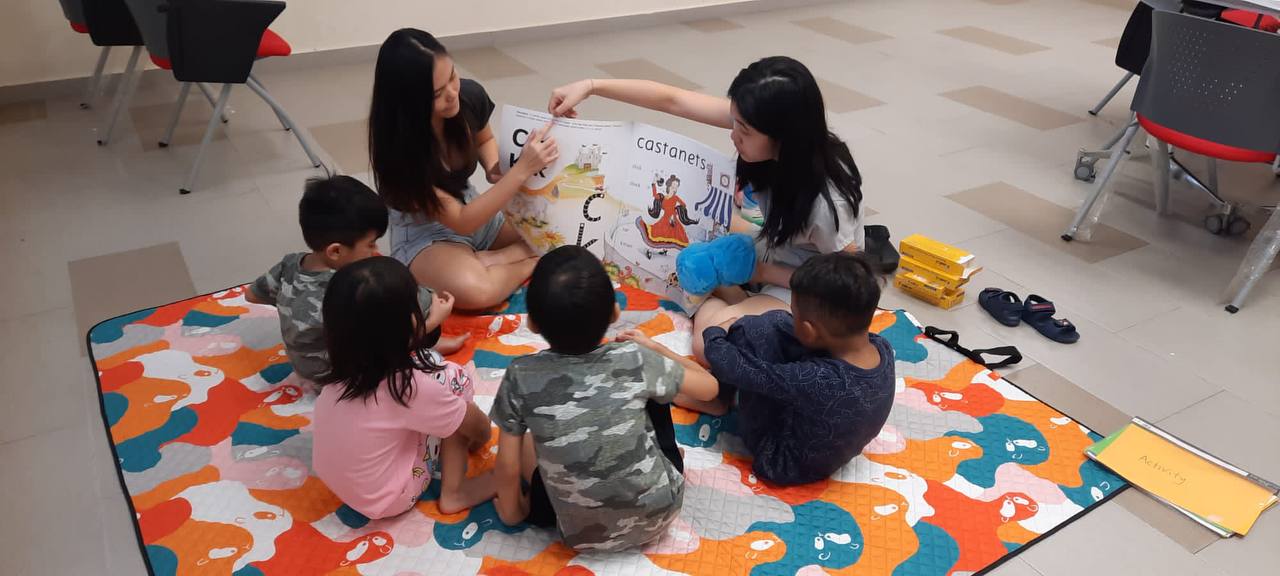 Chloe and Tamara leading a book-reading session
Chloe and Tamara leading a book-reading session
Thirty-two (32) is the average number of pages in a children’s picture book. And that is how long co-founders Chloe Ng (NUS Geography ’23) and Tamara Tan (NUS Psychology ‘23) think it takes to gift a lesson on resilience, friendship, and passion. Inspired by the stories of rental flat child residents, the pair kick-started their preschool literacy programme Little Readers, Big Dreams to nurture the strengths of less privileged children in our midst. At the heart of it, 32 Pages aims to show what an inclusive Singapore can look like and how we can contribute to that vision. To understand the ground-up organisation’s heart- and hard-ware, FASS interviewed Chloe and Tamara about their organisation’s goals and visions.
Li'l Readers, BIG Dreams: Rethinking Access in Singapore

One of Chloe and Tamara's students proudly showing off his knowledge on the sound ‘Ck’ with Tigger's help
Inclusivity begets a removal of barriers to entry. Access for 32 Pages, however, encompasses more than the availability of learning materials or affordable education. In the co-founders’ experience, less privileged preschoolers miss out on opportunities because of the fears they (and their parents) have regarding learning and formal education. Emotional hurdles to productive classroom participation, as now Associate Psychologist Tamara Tan shares, fester when unaddressed since the children can grow unaccustomed to structured learning and group activities. Reflecting on her own learning as a child, Chloe shared how her own childhood difficulties and stresses have inspired her to take seriously the social and emotional wellbeing of the students under their care. She adds, ‘the children and parents we work with want to do well but they’re afraid of the classroom and don’t really see learning success as something attainable for them”.
Expanding access, Little Readers, Big Dreams has been 32 Pages’ effort at supporting diverse aspirations. The programme aims to cultivate a love for learning in children by seeding interest and providing 'scaffolds'. The team uses a variety of resources – toys, art mediums, storybooks – to work around the children’s dislikes and difficulties. All in a bid to make learning fun and much more than the confines of phonics worksheets. Complementing their sensory-based phonics, Social and Emotional Learning sessions are incorporated to nudge their students to better understand, manage, and express themselves. In this vein, Tamara has incorporated her learnings from Psychology to foster an empathy-based environment at 32 Pages. This has looked like highlighting the children’s strengths, listening to their concerns, and reinforcing more positive behaviours.
Communities of Holistic Care for Our Children
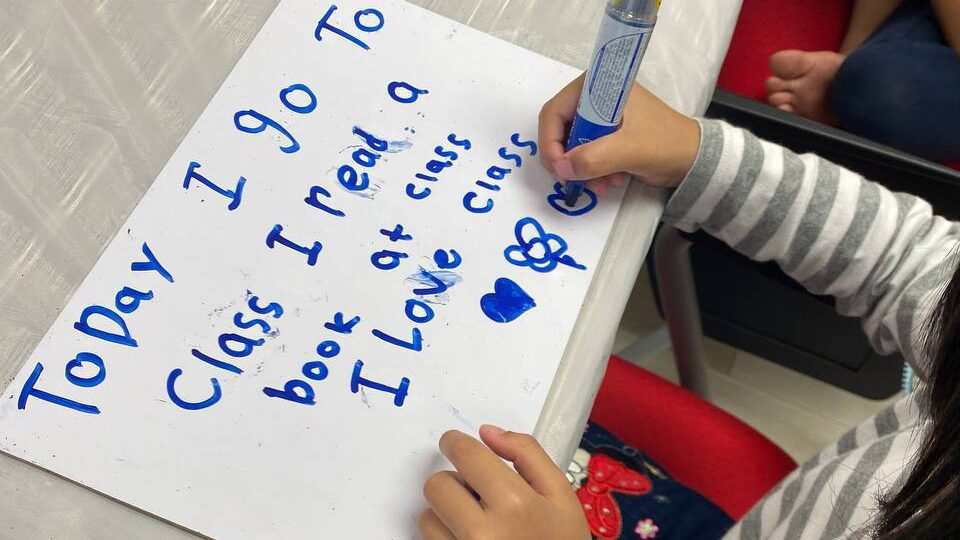
Another student expresses her love for writing and love for the class
Importantly, as the co-founders often stressed, English learning is a rallying point and a means to build a system of care for the lower-income families they serve. Literacy, as Chloe puts it, is not so much a poverty alleviation tool for 32 Pages but a platform for different stakeholders to address the needs of the community so that they can better pursue their dreams. This has looked like giving space for creative exploration and expression with puppets, musical instruments and physical activity that may lie outside the remit of English Learning. More importantly, an insistence on an all-hands-on-deck problem-solving orientation has allowed the ground-up initiative to build a community that takes seriously the logistical and practical concerns of the families.
Committed to a participatory approach, 32 Pages co-authors stories of new possibilities with the children, parents and partners they serve and work with. Beyond equipping children with words and sentences, learning includes understanding and managing how we feel about ourselves as learners, friends, and people.
Want to co-author new stories? Find out how you can be part of a growing community @ 32pages.sg.
People of FASS is a content series that emphasises on the human element, our people, their accomplishments and journey, as well as what inspires them. The series is curated primarily to focus on featuring exemplary students, alumni, researchers, faculty and staff.
NUS Open House: More than 7.7M Visitors Drawn to Action-Packed Showcase over 10 Days
IN BRIEF | 25 min read
- NUS Open House 2023 saw a strong showing by visitors eager to find out about the University’s academic programmes, as it returned in from 25 February to 6 March. Some 7.71 million visitors attended the physical and online showcase which involved 3,071 faculty and staff, students and alumni.
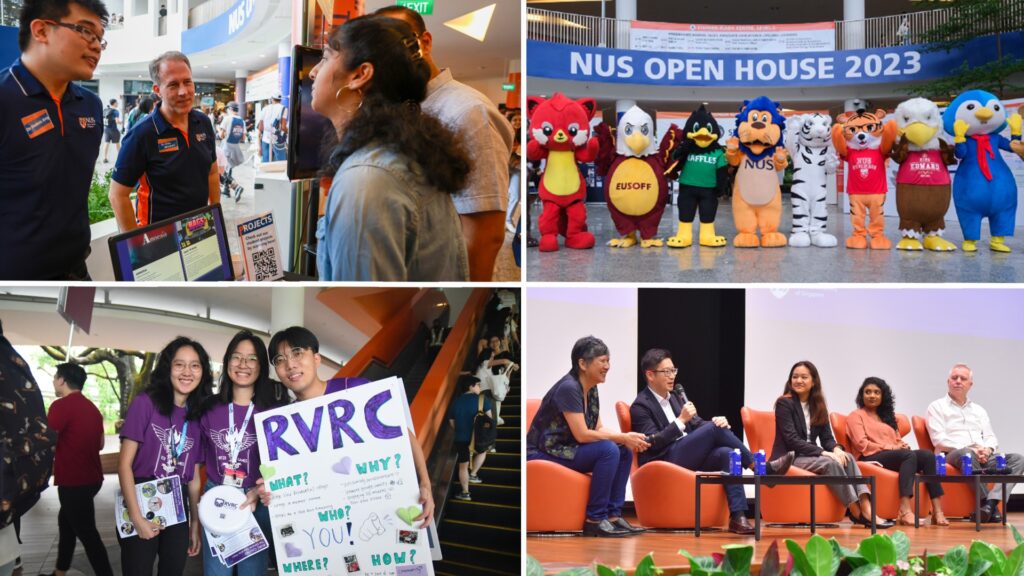
NUS Open House 2023 saw a strong showing by visitors eager to find out about the University’s academic programmes, as it returned from 25 February to 6 March. Some 7.71 million visitors attended the physical and online showcase which involved 3,071 faculty and staff, students and alumni.
Kicking off the 10 action-packed days were the informative virtual talks, webinars, and social media sessions. The on-campus event on 4 March saw packed crowds at the programme booths, talks, special classes, campus tours, student life performances and residential venues despite the heavy downpour. Prospective students gained valuable insights from faculty members, explored the University’s extensive global opportunities, as well as its diverse entrepreneurship platforms and lifelong learning courses, giving them a comprehensive overview of what NUS has to offer.
“I really enjoyed meeting the professors and students who are from the courses I'm interested in as I gained many insights from them on life in NUS and the various possibilities that are open for exploration,” said prospective student Karthika Warrier, an alumna from Raffles Institution who is considering applying to NUS Computing or the College of Humanities and Sciences (CHS).
Jasmine Chiam, an alumna from Nanyang Junior College (NYJC) who is interested in applying to CHS and NUS College, agreed. “The programme was well-run despite the fact that it was raining,” she said. “I felt that it was well-curated for students with different interests.”
A draw for many prospective students were CHS, the newly launched NUS College, and the College of Design and Engineering (CDE) – the University’s recent interdisciplinary pathways aimed at meeting the evolving demands of the workforce.
Addressing Shared Challenges with the Humanities and Sciences
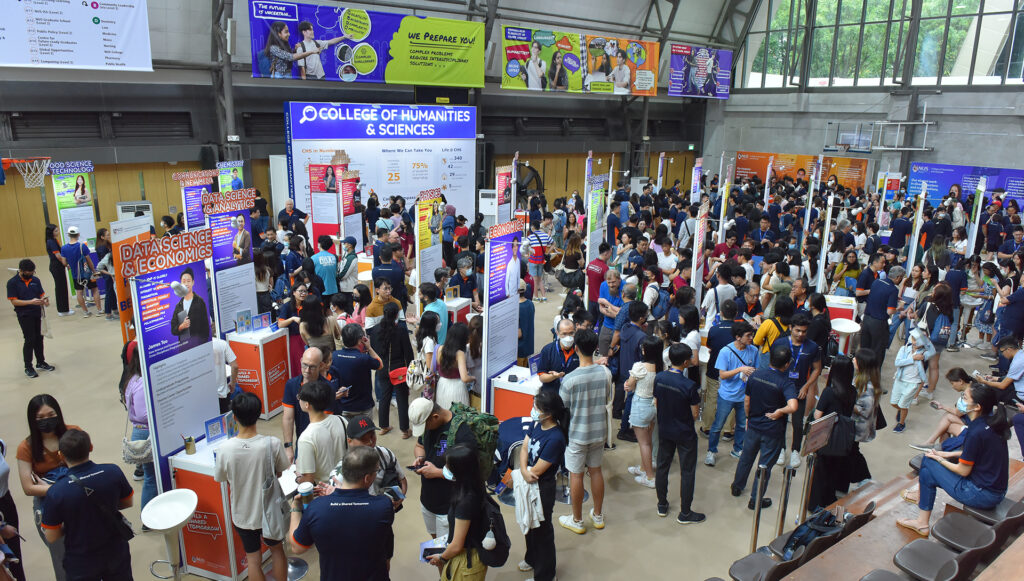
CHS, which provides an enhanced undergraduate experience for students of the Faculty of Science (FOS) and the Faculty of Arts and Social Sciences to pursue breadth and depth across academic disciplines, showcased its Common Curriculum throughout the Open House.
Currently accepting its third intake, it held talks on hot topics such as sustainability, food science and technology, and mental health to demonstrate how students can apply various perspectives to address complex real-world issues.
The panel entitled “Why Sustainability and Climate Change Matter” saw speakers from the Geography, Japanese Studies, Anthropology and English, Linguistics and Theatre Studies departments weighing in on the topic from their respective disciplines. Another session by the Department of Food Science and Technology explained how its programme applies principles from chemistry, biology, engineering and nutrition to address issues such as food safety and security, as well as the careers its graduates can pursue.

In the same vein, the panel “What Mental Wellness and Health Means in the 21st Century” saw speakers from the Social Work, Sociology and Psychology departments discuss perceptions of mental health in society. Dr Lee Jungup, an Assistant Professor in Social Work, pointed out the close relationship between social work and psychology. “Many of our Social Work students consider a double major with Psychology,” she said, noting that social work emphasises the practical while psychology is more theoretical and clinical in nature.
Jasmine, the NYJC alumna, said the various informative talks reaffirmed her decision to apply to NUS. “The NUS College tour as well as the CHS Common Curriculum sharing were particularly informative. They made the programmes seem quite appealing and I am looking forward to applying for both,” she said.
For some like Christian Chua, an alumnus from the NUS High School of Math and Science, attending the Open House talks helped clarify the career options available for the different programmes.
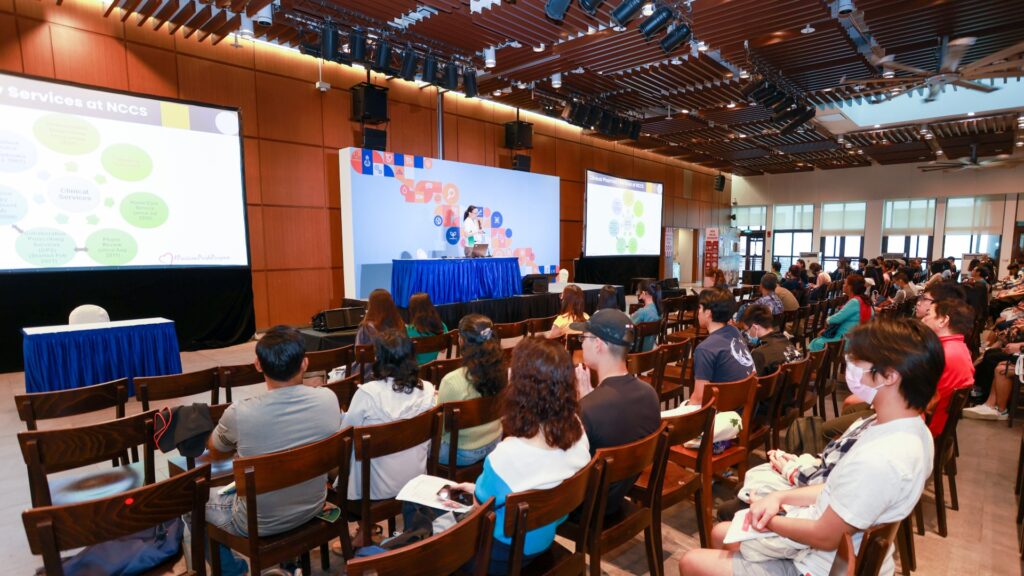
Christian, who is currently considering the Medicine, Pharmacy, and Pharmaceutical Science programmes, attended the Pharmacy talk and booth, where faculty members of different specialisations touched on the various career pathways and the collaborative practices of the discipline.
“It was useful that they discussed the different careers that Pharmacy graduates had gone into so I knew a degree in Pharmacy wouldn't just limit me to community or hospital pharmacy but also to the R&D, drug approval side, or the business side as well,” he said.
Shaping the Future of Design and Engineering
Meanwhile, there was action aplenty over at both the online and in-person Open House by CDE, which is accepting its second intake. Officially launched in November 2021, CDE was a merger of the Faculty of Engineering and the School of Design and Environment, ramping up the distinctive interdisciplinary experience at NUS.
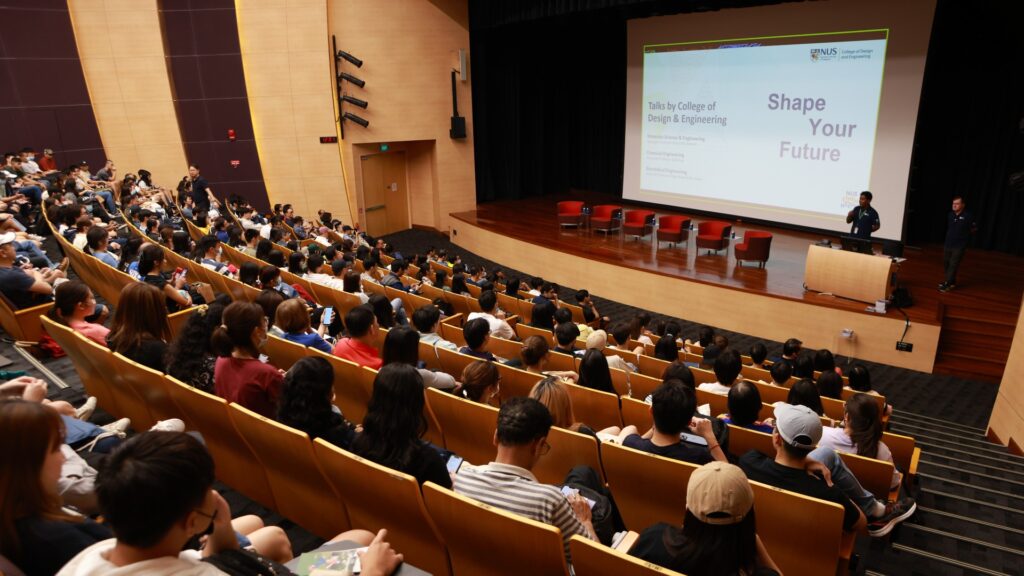
From the Common Curriculum and the multidisciplinary education model, to the Student Exchange Programme and future career prospects, CDE faculty and students shared their insights on a plethora of topics with prospective students.
The talks, such as the one on Biomedical Engineering, Chemical Engineering and Materials Science & Engineering, also provided valuable information. Prospective students learnt how undergraduates are exposed to a range of interdisciplinary topics with global-scale applications in class, and how NUS engineers are taking on the world’s biggest challenges, such as clean energy.
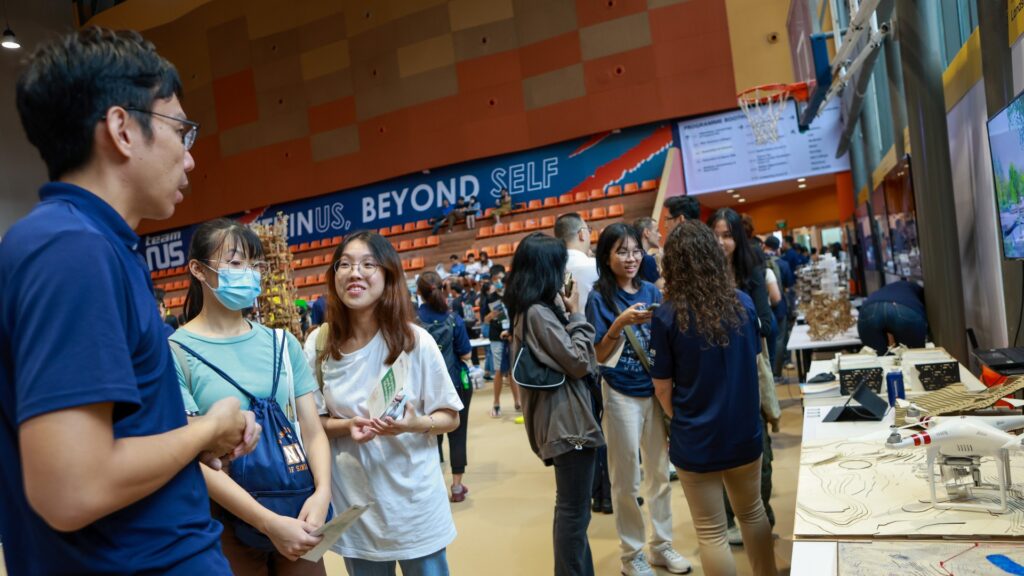
The talk on Architecture, Industrial Design and Landscape Architecture also saw a large turn-out. Discussing the breadth and depth of CDE’s curriculum, it touched on how students will be equipped to face the 21st-century challenges through their education in CDE.
Kaisyn, who is graduating from Nanyang Polytechnic this year, said, “I appreciated that they covered the basic skills and activities done throughout the curriculum. It allowed me to confirm that the Industrial Design course is relevant to my study and career plan.”
The in-person Ask-Me-Anything sessions with student panels also allowed participants to get their burning questions answered.
Tee Jia Hong, a graduate of Anglo-Chinese Junior College who intends to apply to Industrial and Systems Engineering (ISE) and attended the student sharing, said, “By listening to the experience from the ISE senior, I am able to get the hang of the academic and co-curricular prospect of being an ISE student.”
Over at CDE’s Rise of the Robots campus tour, participants were given a look at the Advanced Robotics Centre, which displayed projects such as an autonomous wheelchair, an artificial robotic arm, and a haptic feedback machine.
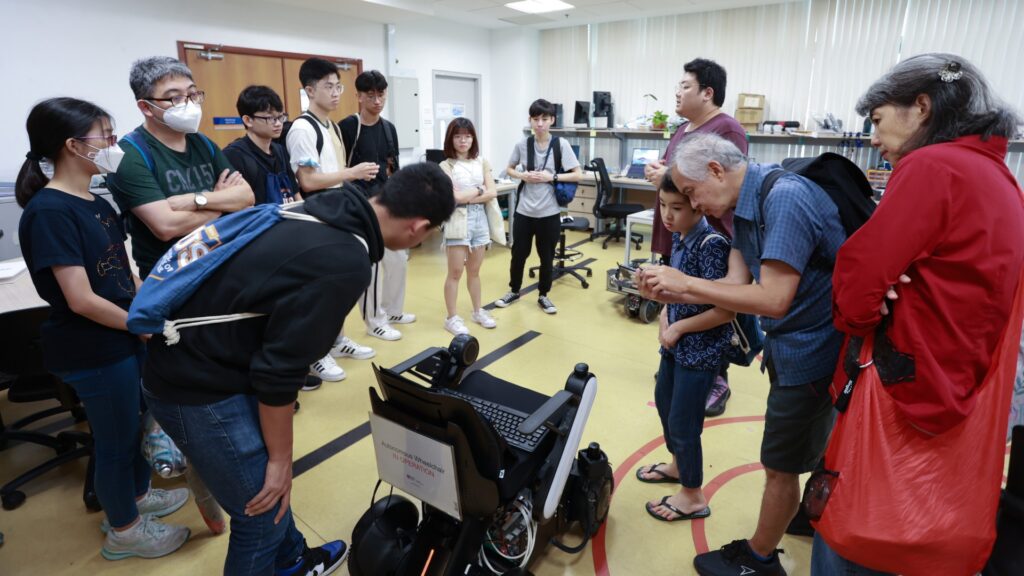
Robert Lim from Singapore Polytechnic, who attended the tour, said, “It was a memorable experience . . . I was able to learn more about what the courses have to offer and what undergrad students have accomplished in NUS.”
Exploring experiential learning
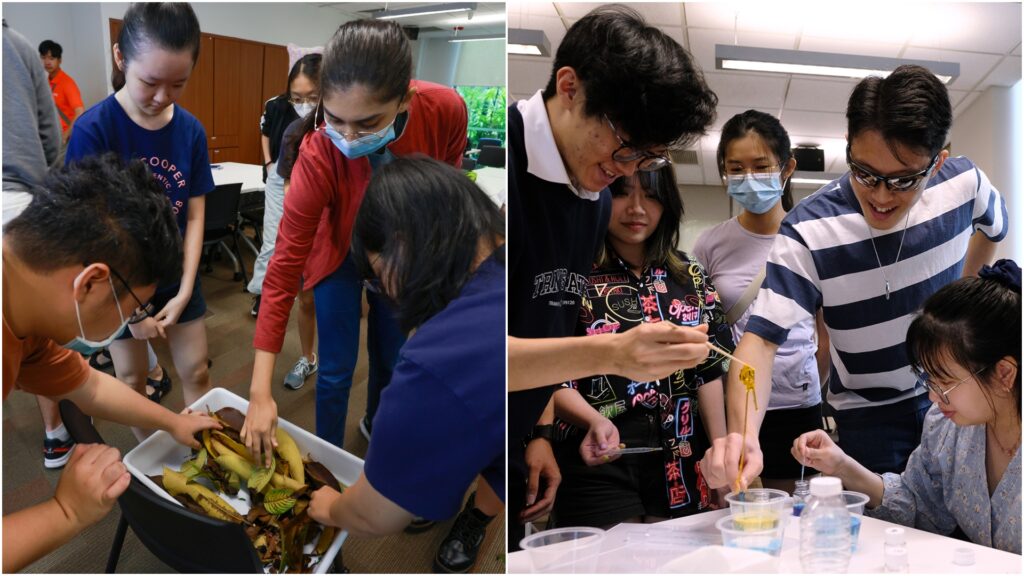
NUS College, Singapore’s first honours college, offered a glimpse of its flagship experiential learning programmes during its online and physical showcase. Faculty members highlighted the Impact Experience programme, where students develop solutions to real-world issues with community partners, and the Global Experience programme, which immerses them in global cities for specially curated courses and field visits based on specific themes.
The college, which is accepting its second intake, also held special classes for prospective students to get a feel of its small-group seminar-style lessons. Dr Ang Yuchen’s special class introduced his field course Biodiversity and Natural History in Singapore, which combines scientific concepts with the visual and language arts and environmental philosophy.
“I found the sample lessons useful in helping me not just get a sense of how lessons are conducted over at NUS College, but also how my potential Profs are like as teachers and facilitators,” said Eugene Teo, an alumnus of Raffles Institution, explaining that small, collaborative discussions was better suited to his learning style. Attending the Open House “also gave me a better understanding of the people I will be interacting with and the environment in which I would be studying in upon entering university life”, he added.
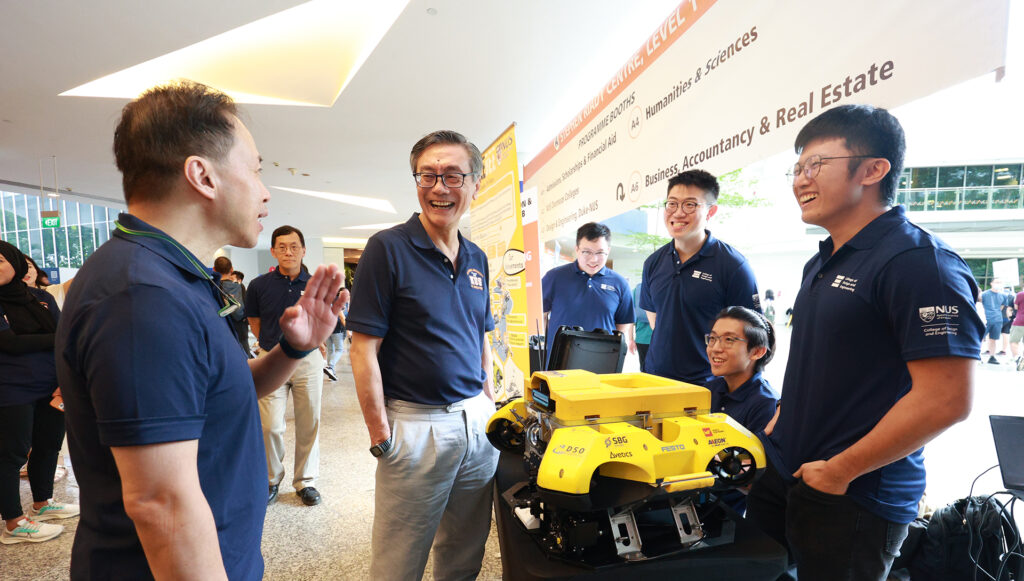
Interactivity was a prominent feature of the Open House. NUS Nursing offered visitors a chance to try basic wound treatment and resuscitation, while NUS Law held moot demonstrations at its Bukit Timah Campus.
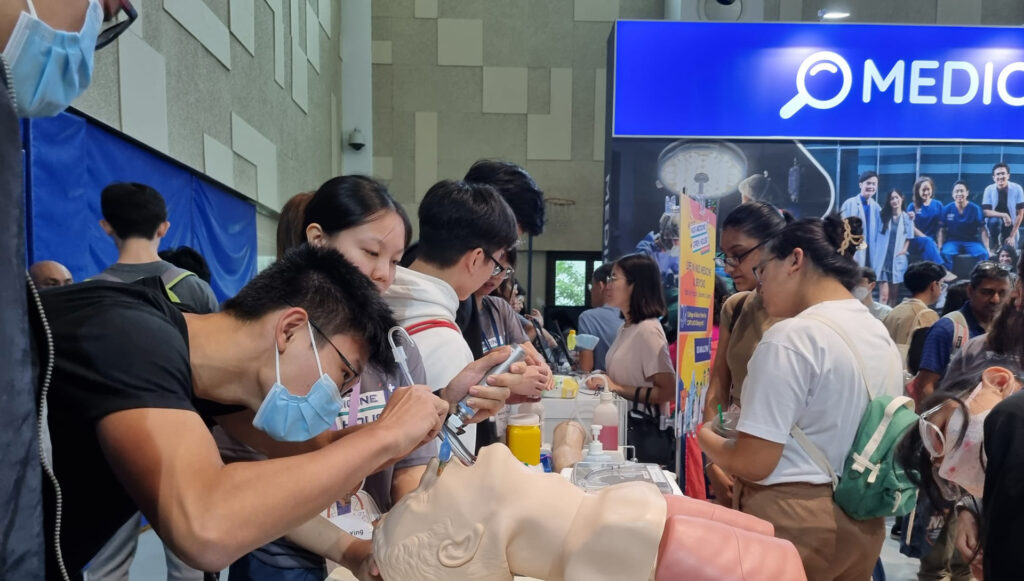 |
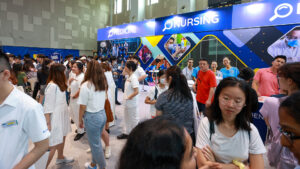 |
Aqirah Bte Azam, who will be graduating from Temasek Polytechnic in May, had the chance to see the Nursing students in action and attended a talk by its alumni. “Hearing their experiences in NUS and their careers have given me the courage to pursue my aspirations in nursing”, she said.
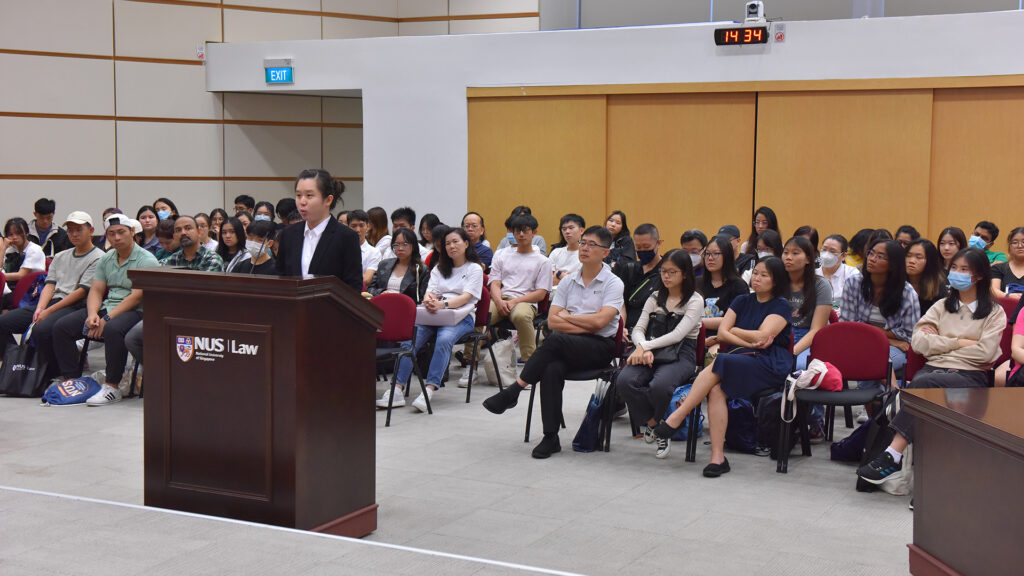
Smorgasbord of Student Life
Visitors also got a taste of the vibrant NUS student life on display. Student clubs and societies, as well as the Hall and Residential College (RC) interest groups, put their best foot forward at the Student Village.
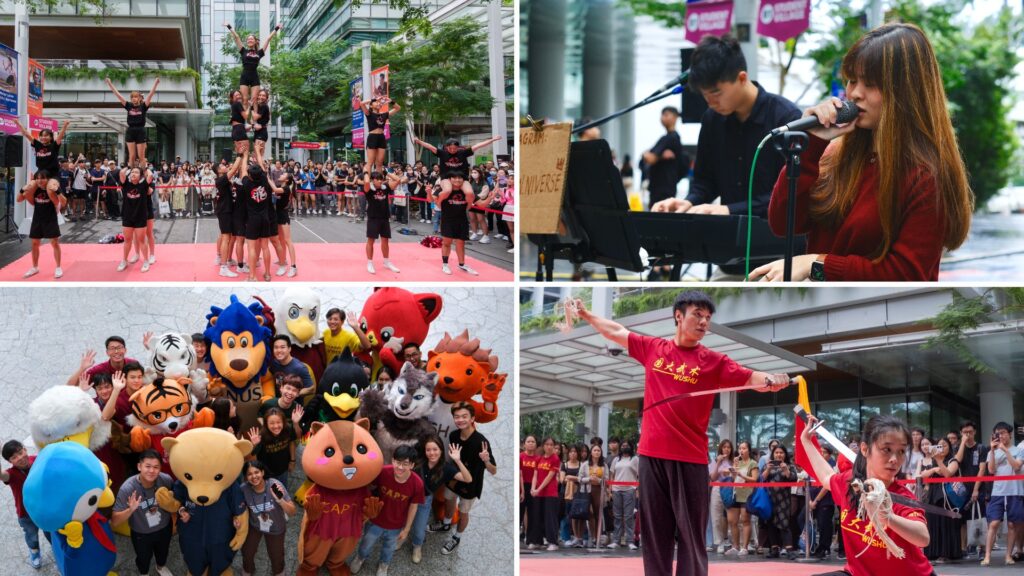
Visitors were wowed by the striking moves of NUS Wushu, the energetic cheerleading displays of King Edward VII Hall’s KE Titans, and the snazzy K-pop dance moves of the Korean Cultural Interest Group. They were also treated to renditions of catchy tunes from Mandopop group NUS CAC Voices, acapella group NUS Resonance, Raffles Hall rock and jazz band RHockerfellas, and many more.
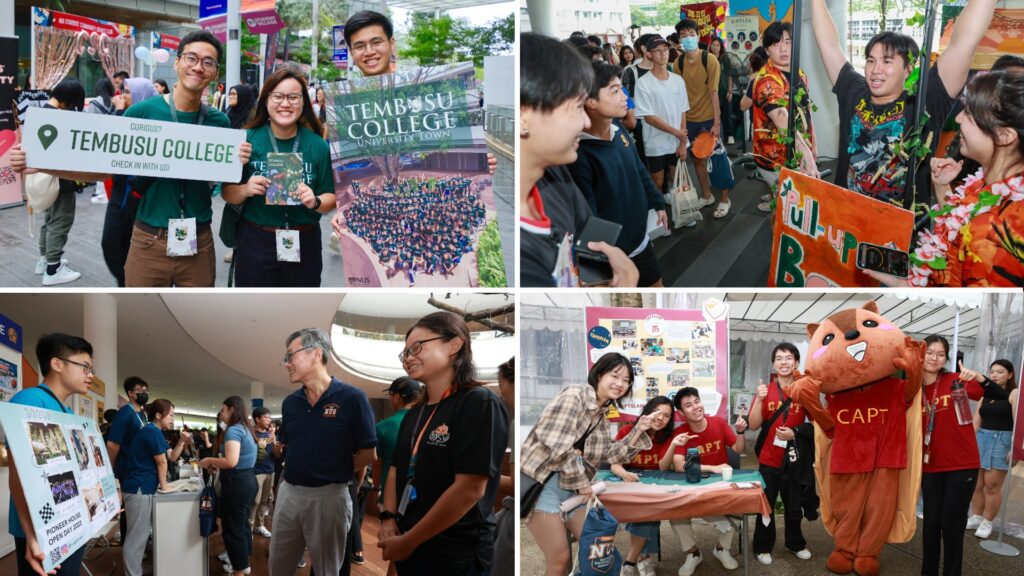
Representatives from the RCs, halls, and houses were present to offer prospective students the inside scoop on the on-campus experience. Complemented by A-Day-in-the-Life videos and 360° virtual tours, the booths, talks, and Ask-Me-Anything panels by student leaders gave participants a sense of the residential options at their fingertips.
“The House Life talk was the most enjoyable and informative event to me since the masters and students really explained to me what living in houses was like, while keeping us engaged through jokes and videos,” said Jia Hong.
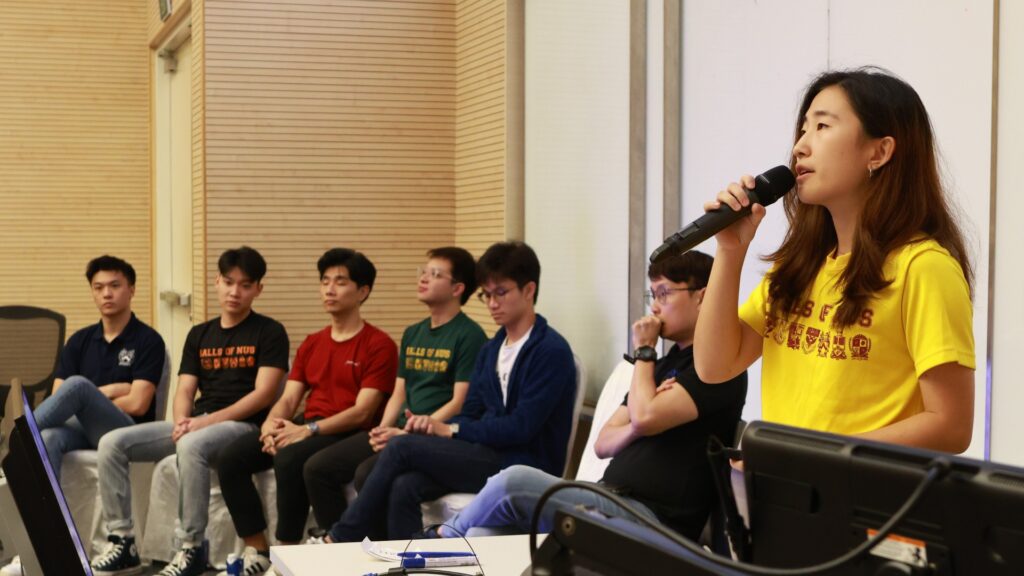
Charlotte Toh from Singapore Polytechnic, said the Halls talk helped her better understand the hall culture and admission criteria.
Guided in-person tours of the various halls and residences, such as King Edward VII Hall, Tembusu College, Ridge View Residential College, and Residential College 4, opened a window to the close-knit community of residential life.
Samuel Liu, who graduated from National Junior College, said, “The well-guided tours and booths set up for each RC that I visited gave me a good indication of which RC would be most suitable for my character and goals.”
This story first appeared on NUSnews on 9 March 2023.
FASS Inspiring Mentor 2022 Award Winners Announced

The NUS Faculty of Arts and Social Sciences is proud to announce the winners of the 2022 FASS Inspiring Mentor Awards.
Congratulations to:
- Assoc Prof Melvin Yap Ju-Min, Associate Professor, Department of Psychology
- Assoc Prof Robin Loon Seong Yun, Associate Professor, Department of English Language and Literature
- Dr Amazaki Osamu, Senior Lecturer, Centre for Language Studies
- Dr Natalie Pang Lee San, Senior Lecturer, Department of Communications and New Media
- Dr Kamalini Ramdas, Senior Lecturer, Department of Geography
The NUS Career Compass 2023
IN BRIEF | 5 min read
- Find out how the University has developed and broadened our curriculum to better prepare our graduates for the swiftly evolving workplace, and how interdisciplinary learning can help students solve complex issues in our society.

In collaboration with CNA938
How does NUS cultivate highly sought-after talents in the workforce of the future?
Find out how the University has developed and broadened our curriculum to better prepare our graduates for the swiftly evolving workplace, and how interdisciplinary learning can help students solve complex issues in our society.
This story first appeared on NUSnews on 23 February 2023.
Four NUS Faculty Members Recognised by the Association for Psychological Science
IN BRIEF | 5 min read
- Four faculty members from NUS Business School, NUS Faculty of Arts and Social Sciences (FASS) as well as the Lee Kuan Yew School of Public Policy (LKYSPP) at NUS, have been recognised by the Association for Psychological Science (APS) for their research and academic contributions. APS represents more than 30,000 researchers from over 80 countries.
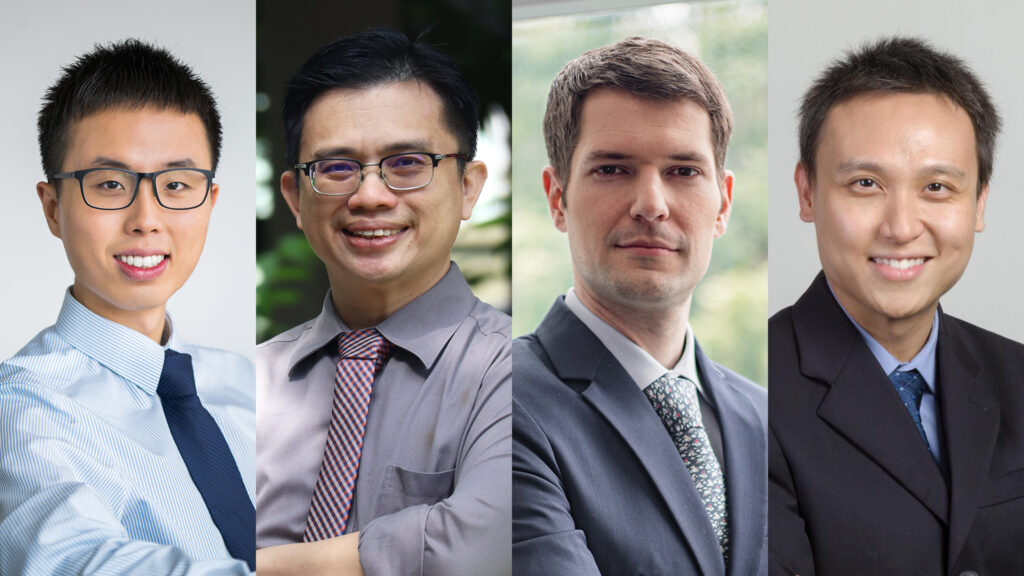
Four faculty members from NUS Business School, NUS Faculty of Arts and Social Sciences (FASS) as well as the Lee Kuan Yew School of Public Policy (LKYSPP) at NUS, have been recognised by the Association for Psychological Science (APS) for their research and academic contributions. APS represents more than 30,000 researchers from over 80 countries.
Professor Sam Yam Kai Chi, Head of Department of the NUS Business School and Associate Professor Eddie Tong from FASS’ Department of Psychology have been appointed as APS Fellows for their sustained outstanding contributions to the science of psychology in the areas of research, teaching, service and/or application.
Assistant Professor David Daniels from NUS Business School and Assistant Professor Reuben Ng from LKYSPP have also been named APS Rising Stars. This award honours researchers whose innovative work has already advanced the field and signal potential for their future contributions.
This story first appeared on NUSnews on 22 February 2023.
CHS at NUS Open House 2023: Download the FASS Essentials on 27 February 2023
IN BRIEF | 10 min read
- On 27 February, get the full download on the essentials of academic programmes, student life, career preparation, overseas opportunities and financial aid at CHS via Zoom in the ‘virtual’ edition of CHS@NUS Open House 2023.

If you have not already marked your calendars for two dates with the NUS College of Humanities (CHS) during NUS Open House 2023, do it now!
On 27 February, get the full download on the essentials of academic programmes, student life, career preparation, overseas opportunities and financial aid at CHS via Zoom in the ‘virtual’ edition of CHS@NUS Open House 2023. Go to https://bit.ly/CHSatNUSOH2023-Virtual for the full 27 February programme.
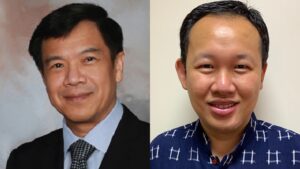
Then prepare to come on-campus on 4 March to engage with our award-winning faculty members, advisors and students to experience interdisciplinary education and explore your future vocation. Go to https://bit.ly/CHSatNUSOH2023-OnCampus for the full 4 March programme.
To help you plan your way through the lineup of FASS-specific talks and activities, read on for some of our highlights on 27 February 2023 that ought not to be missed.
Academics at the Forefront
The online edition of CHS@NUS Open House is meant to provide you with as comprehensive a briefing of what CHS, and its component Faculties of Arts and Social Sciences, and Science, have to offer students.
Academics is at the forefront and the day starts with a session devoted to the CHS Core Curriculum (9:00 – 11:00 am), a specially curated interdisciplinary programme that provides unprecedented freedom to choose the pursuit of breadth and depth across a broad spectrum of disciplines. This session will be led by Professor Sow Chorng Haur, Vice Dean (Outreach & Admissions), NUS Faculty of Science (FoS), and Dr Noorman Abdullah, Assistant Dean (External Relations & Student Life), FASS.
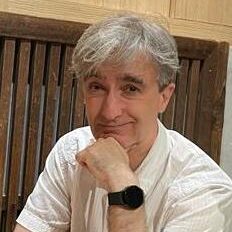
Associate Professor Luke O'Sullivan
The CHS Cross-Disciplinary Programmes
Three one-hour talks devoted to introducing Cross-Disciplinary Programmes (XDPs) offered by CHS will be running concurrently from 11:00 am. One programme FASS offers that embodies the concept of interdisciplinarity is the Philosophy, Politics, and Economics XDP, and the session for that will be led by Associate Professor Luke O’Sullivan (NUS Political Science) in discussion with fellow PPE Joint Programme Committee member, Dr Joel Chow (NUS Philosophy).
"This session is an opportunity to ask questions about the PPE-XDP. Philosophy, Politics, and Economics is a classic combination of disciplines that was first taught in Oxford and has spread globally because of its proven effectiveness. It brings together the ability to think about ideas in abstract and analytical terms, explore their practical implications for society, and model their costs and benefits in quantitative terms,” says Assoc Prof O’Sullivan. “PPE students can expect to develop a unique knowledge base and set of skills that leaves them suited for a wide range of careers in today's complex and fast-changing world."
Attendees are required to come prepared, because in addition to providing an overview of the PPE-XDP, Assoc Prof O’Sullivan expects audience engagement. Join the PPE-XDP session on 27 February at 11:00 am here.
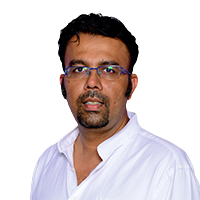
Associate Professor Rajesh Rai
Asian Studies @ CHS
NUS is recognised as a global centre of excellence in Asian Studies, where a multidisciplinary and comparative approach to the study of Asia and its regions is adopted. The session on programmes by the various Asian Studies departments at NUS (2:00 – 2:50 pm) will feature Associate Professor Rajesh Rai (NUS South Asian Studies), Dr Faizah Zakaria (NUS Malay Studies), Associate Professor Tham Shiao Wei (NUS Chinese Studies), Dr Clay Eaton (NUS Japanese Studies) and Dr Mohamed Effendy Abdul Hamid (NUS Southeast Asian Studies).
“You probably hear a lot about how Asia is the largest continent in the world, with the greatest diversity of cultures, philosophies, political thought and economic might, as well as scientific and technological advancement,” says Assoc Prof Rai, offering up a brief on the discussion he will be leading as moderator. “This session will take you through an interdisciplinary journey through history and current affairs to show you just how influential Asia has been a force for change, both positive and negative, on the world’s stage.”
Join this session by clicking here.
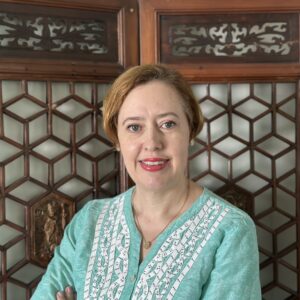
Humanities @ CHS
Learn more about the academic disciplines that focus on studying different aspects of the human condition from: Dr Donna Brunero (NUS History); Associate Professor John Whalen-Bridge, Associate Professor Graham Wolfe and Dr Leslie of NUS English, Linguistics and Theatre Studies; and Dr Zachary Barnett (NUS Philosophy).
“Do you: Ponder big questions regarding life, society, and culture? Wonder how language develops? Hold theatrical ambitions? Find yourself curious about connecting the past and present, the local and global?” session moderator Dr Brunero asks rhetorically. “If so, join us as we answer questions regarding our disciplines and share insights into how studying with us at NUS can broaden your horizons.”
To join Dr Brunero and her fellow speakers in this 3:00 - 3:50 pm session click here.
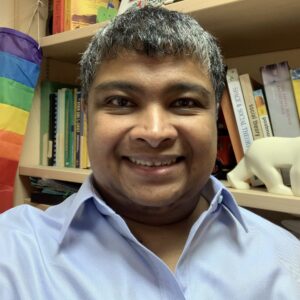
Social Sciences I: Same, Same but Different
This session features Dr Kamalini Ramdas (NUS Geography), Associate Professor Feng Qiushi (NUS Sociology and Anthropology), Dr Elaine Tan (NUS Political Science) and Dr Georgios Georgiou (NUS Economics), and will delve into their respective programmes as well as approaches toward forging a “collective identity”.
Session moderator Dr Kamalini explains. “This panel brings together social scientists from Economics, Geography, Political Science and Sociology to discuss what it takes to develop a collective identity as social scientists,” says Dr Kamalini, who will be working with her fellow speakers toward answering questions such as, “What are the benefits and challenges of a collective approach to learning and research? How might our students benefit from our commitment to engage?”
Click here to join the Social Sciences I (4:00 – 4:50 pm) session.
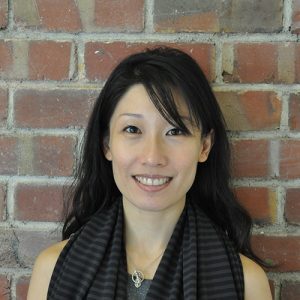
Social Sciences II: Understanding Social Complexity
Dr Adelyn Lim (NUS Sociology and Anthropology), Associate Professor Irene Ng (NUS Social Work), Dr Nina Powell (NUS Psychology) and Dr Alex Mitchell (NUS Communications and New Media) will be introducing the disciplines offered by their respective Departments, and show how they can each be applied to enable a deeper understanding of our world.
“The world we live in today can feel exciting but also downright contradictory. Global friendships are in many ways easier to make than in the past, yet we see terrorism, violent crime, wars, and enduring social inequality,” says session moderator Dr Lim, who will be discussing in detail with her fellow speakers complex issues thrown up by questions such as, “How did this world come about? Where are we heading in the future?”
To join the Social Sciences II (5:00 – 5:50 pm) session, click here.
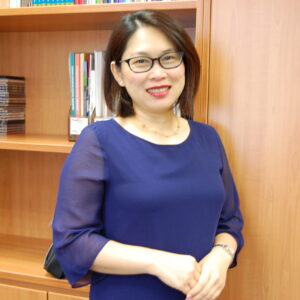
Ms Sasiwimol Klayklueng
Foreign Language Studies: Passport to the World
Meet leading Language instructors Ms Sasiwimol Klayklueng (Thai), Dr Sandhya Singh (Hindi and Tamil), Ms Indianti Tjan (Indonesian), Ms Rungnapa Kitiarsa (Thai) and Ms Sophie Undorf Bouvier (French), who will elaborate on the Minor in Language Studies and Proficiency Certificates conferred by the NUS Centre for Language Studies, which are very much sought after by students looking to enhance their career prospects.
Student-led Green Action Week: Taking Small Steps Towards a More Sustainable Lifestyle
IN BRIEF | 15 min read
- During NUS SAVE’s inaugural Green Action Week, over 140 NUS students discovered different fun and fulfilling ways to incorporate climate-conscious behaviours into their day-to-day lives.
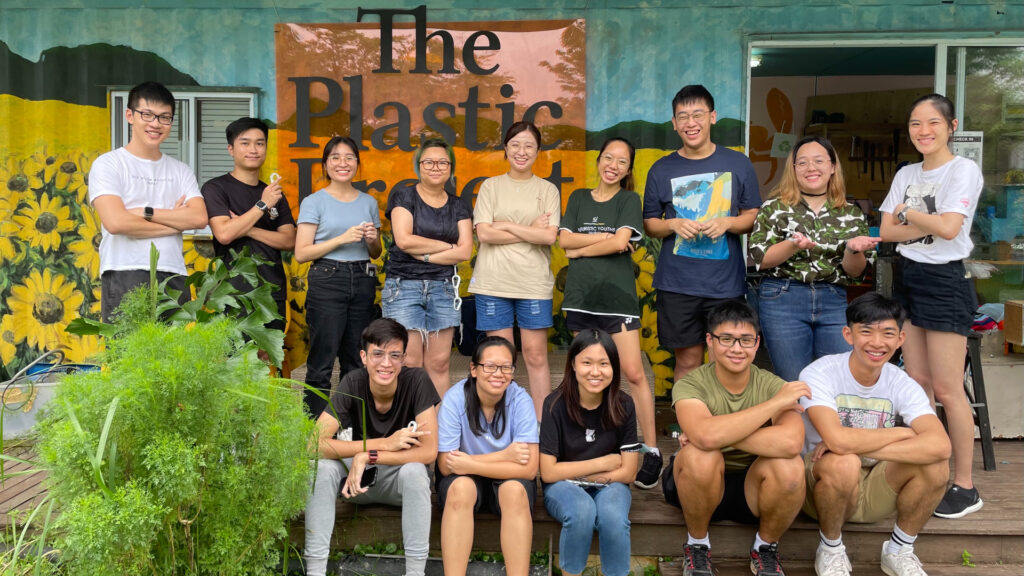
From cleaning beaches and redistributing unwanted food, to repurposing old clothes and plastic waste, over 140 NUS students learnt that there are many different ways to do their part for the environment, during NUS SAVE’s (Students’ Association for Visions of the Earth) inaugural Green Action Week held in December 2022. NUS SAVE, which recently celebrated its 30th anniversary, is an environmental student group that seeks to work with fellow students, the University administration, and other NUS stakeholders to inspire a more sustainable culture on campus.
Third-year FASS student Vania Xu (NUS Economics and NUS Psychology) who is the current Co-President of NUS SAVE (Students' Association for Visions of the Earth), shared that the diverse line-up of activities for Green Action Week – from volunteering sessions and workshops to guided tours – were planned with the aim of exposing the NUS community to the myriad of ways that individuals can incorporate sustainable practices into their everyday lives.
“With our very first Green Action Week, we wanted to show people that there isn’t only one way to lead a more sustainable lifestyle. You can engage in activities that suit your own personal habits and interests, and that also happen to be good for the environment,” Vania said.
“It was heartening to meet so many like-minded individuals who are passionate about sustainability during the course of the week,” she added.
Volunteering for the Good of the Environment
Thirty-seven student volunteers led by NUS SAVE’s Biodiversity team set out on a clean-up activity at Pasir Ris beach –– and ended up collecting a staggering 270 kg worth of trash ranging from plastic food packaging, drink bottles, and even huge signboards. For many of the volunteers, it was a sobering reminder of the impact that marine litter can have on local wildlife and biodiversity.
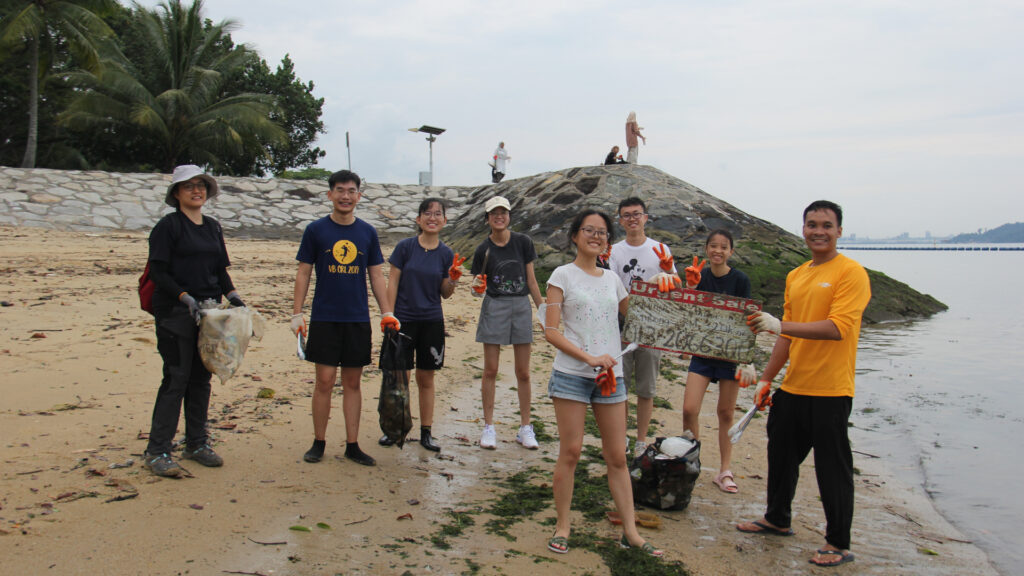
Another 25 student volunteers also helped to redirect and redistribute food that would otherwise have been wasted or thrown away, during an afternoon at MoNo Foods’ warehouse in Chinatown. MoNo Foods is a company that takes unsold food items from suppliers and resells them at lower prices to prevent food wastage. These unsold food items are still edible and safe to consume, but need to be taken off shelves and discarded by suppliers for various reasons – for example, damages to product packaging during transportation or changes in product branding labels.
Chee Koi Jun, a first-year student in the Faculty of Science, was one of the volunteers who helped to sort through the large amount of food donations received by MoNo Foods from various suppliers. He shared: “It was an eye-opening experience because I could actually see the impact of my efforts – in just one afternoon, we sorted through six pallets of food donations that would otherwise have been headed for the incinerator.”
Breathing New Life into Old Clothes and Plastic Waste
Apart from encouraging students to volunteer their time to support sustainable causes, NUS SAVE also sought to promote the ethos of sustainable consumption during Green Action Week. The group organised several workshops on upcycling and repurposing old and used items, so as to help their peers in the NUS community pick up functional tips on reducing waste and living more sustainably.
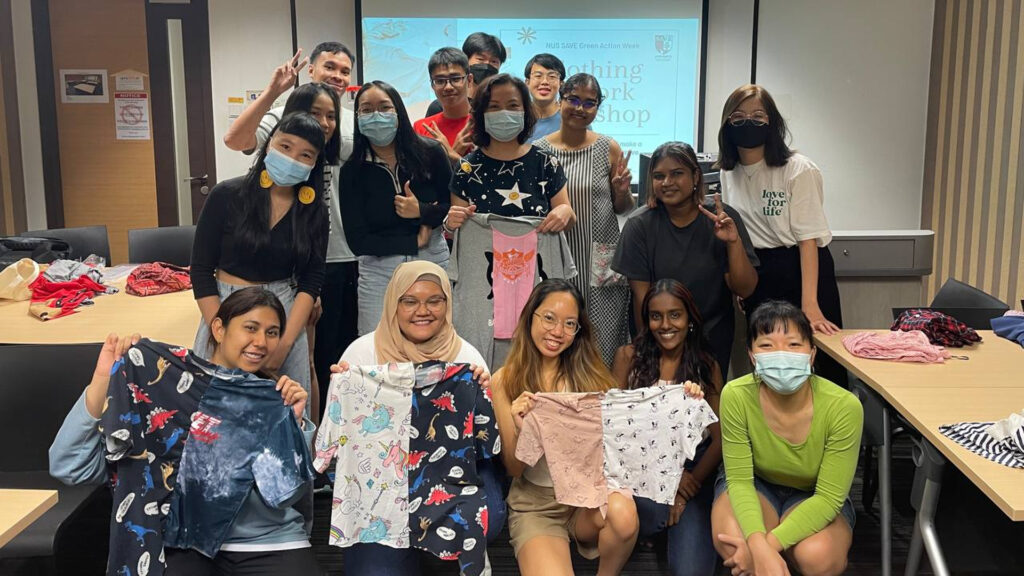
For example, at a ‘Half-and-Half’ workshop conducted by Alt.Native – a company founded by NUS Business School (Class of 2021) alumna Amanda Lim – 15 participants learnt how to refashion two old clothing items into a unique half-and-half shirt. Alt.Native’s reputation for reworking preloved clothing items into new bespoke pieces impressed participants like first-year Business School student Ramesh Babu Poornima, who shared that she signed up for the workshop because she wanted to find a creative way to reduce her fast fashion footprint while still maintaining a fashionable and trendy wardrobe.
“It was also useful to learn new stitching techniques – they will come in handy if I want to mend or alter clothes on my own in the future,” Poornima added.
To further promote the idea of sustainable fashion, NUS SAVE’s Green Wardrobes team also organised a tour of six different thrift stores in Lucky Plaza. For many on the tour, it was their first foray into “thrift shopping” – that is, buying second-hand items (usually clothes) at discounted prices – and a welcome way to kickstart their sustainable fashion journeys.
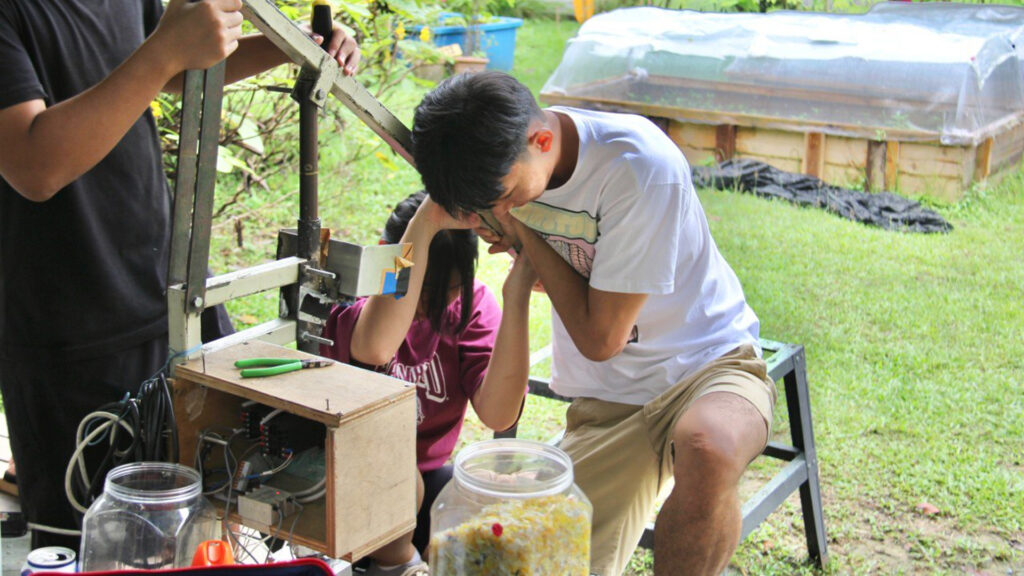
At another workshop conducted by The Plastic Project, 14 NUS participants got a taste of how the volunteer-run environmental organisation tackles plastic pollution by repurposing plastic waste into new products, such as earrings, Christmas ornaments, keychains and coasters – and even churned out some 40 brand new carabiners. All of the organisation’s signature products are made of recycled plastics of Type 2 (HDPE) and 5 (PP), collected from community donations and beach clean-ups.
Volunteer Chelsea Ooi, who has helped out at The Plastic Project for over half a year, said that more experienced volunteers usually target to make 40 to 50 carabiners per hour. The first-year Business School student added that she was drawn to The Plastic Project because she shares its vision for creating a circular economy and promoting mindful consumption.
“I also like that they came up with a creative solution to reduce plastic waste, by upcycling it into new products,” commented Chelsea.
This story by NUS SAVE first appeared on NUSnews on 6 February 2023.
Asst Prof Steven Pan: Studying Smarter by Harnessing the Science of Human Learning
IN BRIEF | 10 min read
- Cognitive psychologist Assistant Prof Steven Pan (NUS Psychology) studies the science of human memory and learning patterns for effective learning.
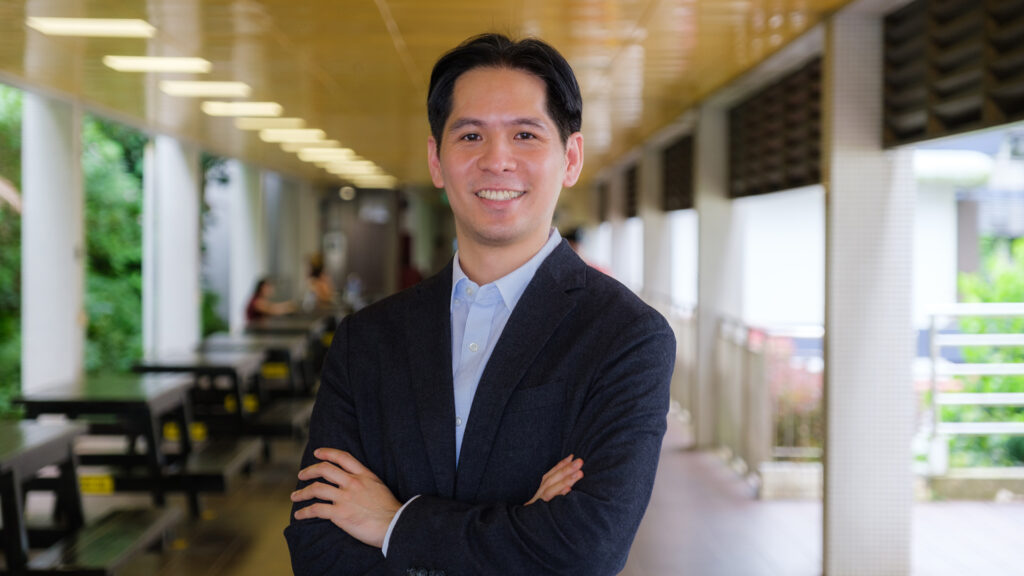
The secret to studying less and scoring higher – this has been the holy grail that students seek in their academic journeys.
It is also what informs the research of Assistant Professor Steven Pan, Director of the Learning Sciences Laboratory at the NUS Faculty of Arts and Social Sciences’ Department of Psychology. Recently ranked among the top 40 most prolific early career scholars in the influential Educational Psychology Review, Asst Prof Pan’s work revolves around harnessing the science of human memory and learning patterns to empower students to become more effective learners.
The young scholar’s early passion and flair for the field is evident. At California State University, Los Angeles, he graduated summa cum laude with a degree in Psychology and a minor in Biology through the University's early entrance programme for gifted young students, and later completed his Master's degree and PhD in Experimental Psychology at the University of California, San Diego.
Asst Prof Pan continues to chalk up strong academic credentials. His work has earned him highly competitive research fellowships and accolades such as the University of California President’s Postdoctoral Fellowship Programme, the National Science Foundation Graduate Research Fellowship in the US, and the American Psychological Association Early Graduate Student Researcher Award.
In an interview with NUS News, the cognitive psychologist spoke about his passion and research, and how efficient learning techniques and technologies are shaping the future of education.
Your research interests lie in the fields of cognition and education, i.e. educational psychology. Can you briefly explain what educational psychology is about?
Assistant Professor Steven Pan: Educational psychology is a branch of psychology that addresses how people learn, and educational psychologists represent a plethora of perspectives, including cognitive, developmental, neuroscientific, social, and more. I am a cognitive psychologist by training and my research bridges the fields of cognition and education, with a focus on the mental processes that subserve the acquisition, retention, and application of knowledge and skills. The overall goal of my research laboratory, the Learning Sciences Laboratory at NUS, is to identify and investigate conditions that make the learning process more efficient and effective. You have an interest in how people learn and retain memory. What sparked your interest in this field?
I have long been fascinated by a recurring phenomenon: A student may spend less time studying for an exam than another student, yet score substantially higher on that exam. Assuming that the higher-performing student did not have some special advantage that the other student could not possibly possess, that result implies that the amount of time that one spends studying is not necessarily commensurate with the amount of learning that occurs or how well that learning is retained over time. Rather, it is what one does while studying – and especially the learning strategies that are used – that can be crucial. That observation led me to investigate more efficient and effective ways to learn. You developed a series of YouTube videos called ‘How to study less and remember more’. What motivated you to come up with the series?
Survey data reveal that most undergraduate students do not receive expert guidance on effective ways to learn. Consequently, they tend to use techniques that, whilst popular, are often the least effective for generating comprehensive, long-lasting learning. The video series on “How to study less and remember more” grew out of a series of workshops that I had developed in the US to teach undergraduate students about effective learning strategies. The videos were designed to reach an even wider audience than the students that were able to attend the workshops. Are you currently carrying out similar workshops here and what has the response been like?
At NUS, I have incorporated lessons from my workshops into the course content for a large core module that I regularly teach in the NUS Psychology Department called Cognitive Psychology (PL3103). My discussion of effective learning strategies occurs in the context of lessons pertaining to learning and memory processes as well as metacognition (our thinking about our own thought processes and other aspects of cognition). Last year, I also developed an online tutorial that is now being used to teach effective learning strategies to secondary school students in Singapore.
Now, after years of investigating different learning strategies, I can make evidence-based recommendations. In more than one instance, I have had students approach me after a mid-term exam, frustrated with their performance, asking for advice on better ways to study. I always offer guidance on how they can incorporate effective learning strategies into their exam preparation. These discussions usually lead to changes in study habits, and in turn, improved exam performance. In fact, I have had students transition from struggling in the class to achieving the top grade in the entire class. That impressive result can be attributed both to their efforts and their adoption of more effective ways to learn.
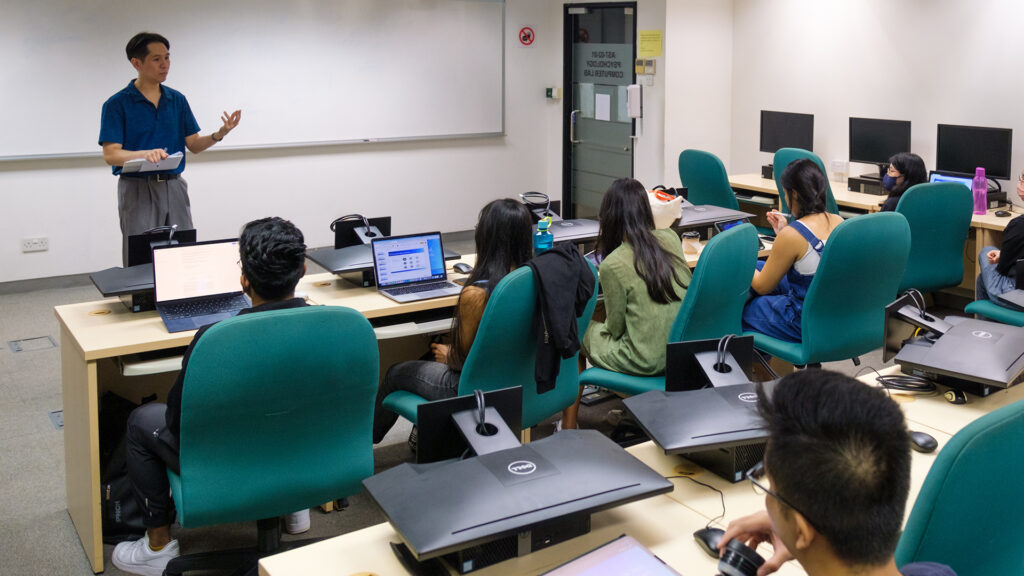
What research projects are you currently working on?
My research lab is currently focused on several learning strategies that show considerable promise but have yet to be investigated thoroughly.
One of them is prequestioning or pretesting, which involves attempting to answer questions about subjects or topics that one has yet to learn. Doing so typically involves a substantial amount of guessing that often ends up incorrect. Remarkably, engaging in such prequestioning can improve learning and memory, provided there is the opportunity to study the correct answers afterwards. My research team and I are currently investigating the efficacy of prequestioning for learning across different educational contexts, the cognitive mechanisms that prequestioning engages, and how students and instructors might adopt prequestioning in their own learning and instructional activities.
Another strategy of interest is interleaved practice or interleaving. It involves learning in a manner that repeatedly switches, or alternates, between different concepts, topics, or skills during one or more learning sessions. Interleaving is the opposite of the traditional, one-topic-at-a-time approach that is favoured throughout much of education. In some cases, the use of interleaving can substantially improve memory and the ability to apply learning to new situations. As with prequestioning, my lab’s investigations of interleaving are addressing its efficacy, its underlying cognitive mechanisms, and how it might be implemented in real world situations.
A third area of interest involves how engaging in everyday tasks, such as writing, can improve learning. We’ve found that if the writing activity does not merely involve transcribing information from a readily available source, but rather, organising one’s own thoughts, generating new ideas, and/or retrieving information from memory in order to write it down, then memory performance is likely to improve. Those patterns are consistent with a recent study of flashcard learning in which we found that the manner in which one writes down information can affect how well that information is remembered. Of the three potential ways in which writing can help learning, I would argue that retrieving information from memory – a strategy that learning scientists call retrieval practice – is the most beneficial.
Our research findings are shared in many different ways like published commentaries or even instructional guides so that more and more people can benefit from these various learning strategies.
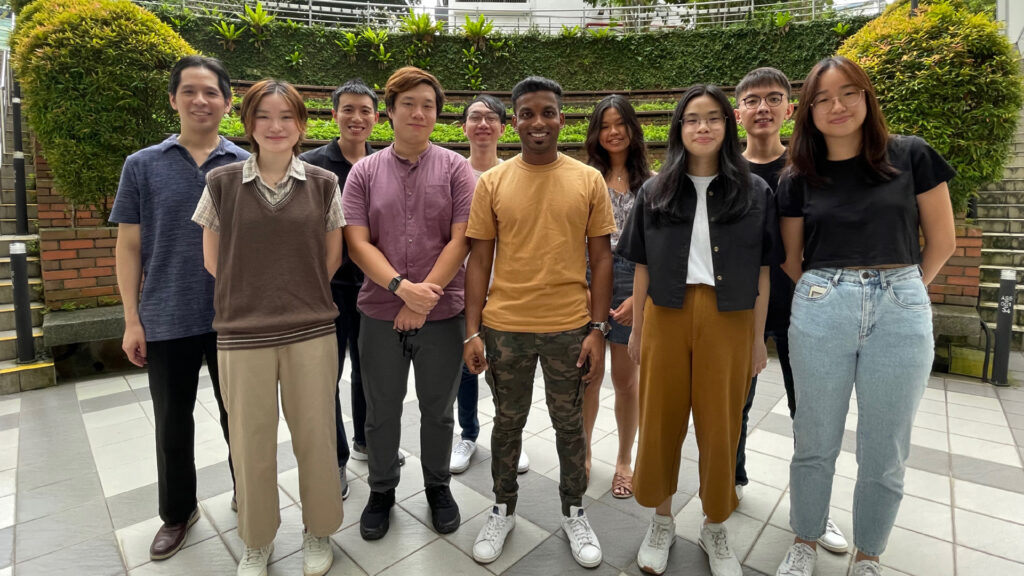
What’s the most interesting thing you’ve learnt in your research?
So many of the learning strategies that I investigate reflect an underlying principle about how memory works in the human brain. Specifically, accessing memories (or stored knowledge and skills) can strengthen those memories and make them more detailed and/or longer lasting. In that sense, the human brain is quite unlike a computer. In most computers, retrieving a file typically leaves that file unchanged, whereas in human beings, the act of retrieving a memory can have profound consequences for the memory itself. Some of the most effective learning strategies are effective precisely because they take advantage of that principle of human memory.
Several colleagues and I recently published an in-depth review of the literature on effective learning strategies. In that review we catalogued evidence showing that some of the most promising strategies can be effective for learning with individuals as young as just a few years old to well over retirement age. That finding shows that there are ways to learn more efficiently and effectively at any age, which is fantastic news indeed.
This article first appeared in NUSNews on 1 February 2023.
Celebrating the Rhythm of Life: NUS Student Life Awards 2022
IN BRIEF | 10 min read
- After months of deliberation, 21 award recipients earned nods in seven different award categories, namely, Community Engagement, Community Service, Competition (General), Competition (Sports – Sportsman of the Year), Competition (Sports – Sportswoman of the Year), Competition (Sports – Sports Team of the Year), and Leadership. Institution-wide events that have made a tangible impact on community cohesion, social integration and community outreach were also presented with the Campus Vibrancy Award.
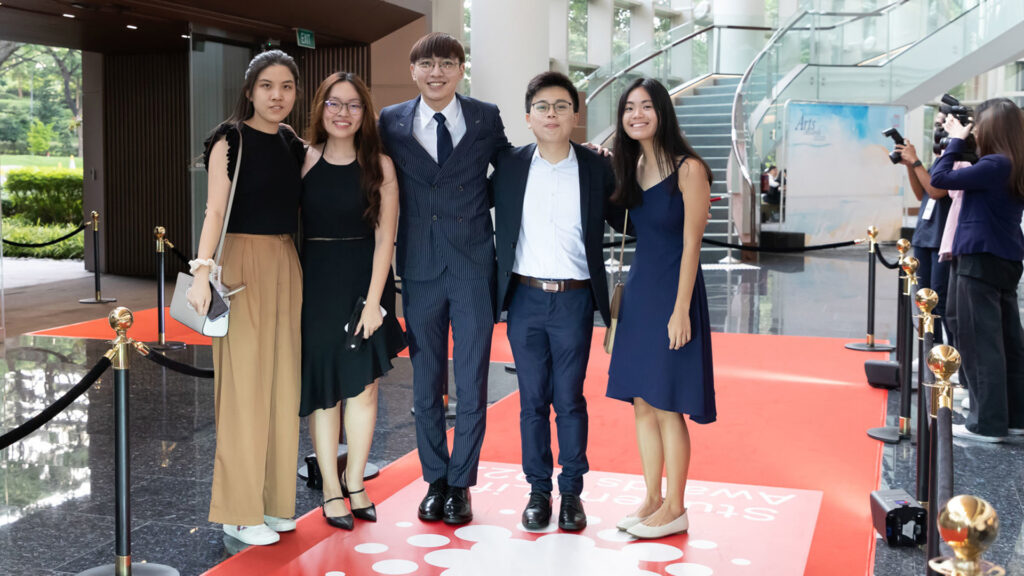
Students who continue to keep the NUS campuses vibrant and upbeat with their multifarious talents and passions, undampened by pandemic restrictions, were lauded at the NUS Student Life Awards 2022 on Oct 29 at a red-carpet celebration attended by more than 300 guests held at the University Cultural Centre. The annual awards recognise exceptional students and student groups who have made outstanding contributions to the University beyond their academic pursuits.
After months of deliberation, 21 award recipients earned nods in seven different award categories, namely, Community Engagement, Community Service, Competition (General), Competition (Sports – Sportsman of the Year), Competition (Sports – Sportswoman of the Year), Competition (Sports – Sports Team of the Year), and Leadership. Institution-wide events that have made a tangible impact on community cohesion, social integration and community outreach were also presented with the Campus Vibrancy Award.
True to the theme, “Rhythm of Life!”, the Awards recognised students who have helped to create a thriving and engaging campus culture and encouraged others to be involved in various aspects of student life, such as participating in the arts, community service, sports, and other co-curricular activities, or even taking up leadership positions.
Campus life beyond grades
Speaking at the ceremony, NUS alumna (Psychology, NUS Faculty of Arts and Social Sciences, 2007) and Guest-of-Honour Ms Tin Pei Ling encouraged students to “try new things” and have the tenacity to learn from failures.
“What is important in NUS’ education is not just the grades, but the development of strength in character and leadership qualities. Academic grades give you the foundational knowledge and skills to do your jobs,” she said. “But what determines success is not the class of honours that you graduate with. It is the intangibles such as knowing how to navigate difficult personalities or situations, finding novel ways of solving problems, thinking several steps ahead and leading your team out of uncertainties that will set you apart.”
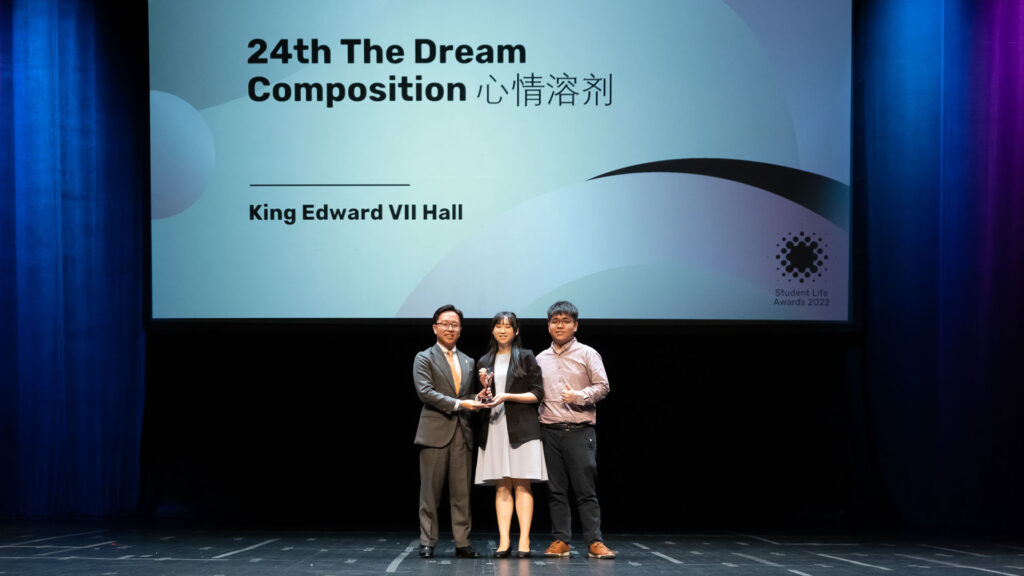
Taking home Merit Award in the Community Engagement and Campus Choice (Group) category was the team behind the “24th The Dream Composition”, an annual bilingual song-writing competition created by students of King Edward VII Hall.
Recounting their experience, Year 3 students from the NUS Faculty of Science, Wong Wei Ting and Mah Shian Yew Brendan, who were Head and Vice-Head of the competition, said, “At the start of our journey, we were very scared and overwhelmed with the daunting task of executing a large-scale event.” It was through the difficulties they faced, along with their engagements with one another, that they learned the “importance of teamwork and communication”.
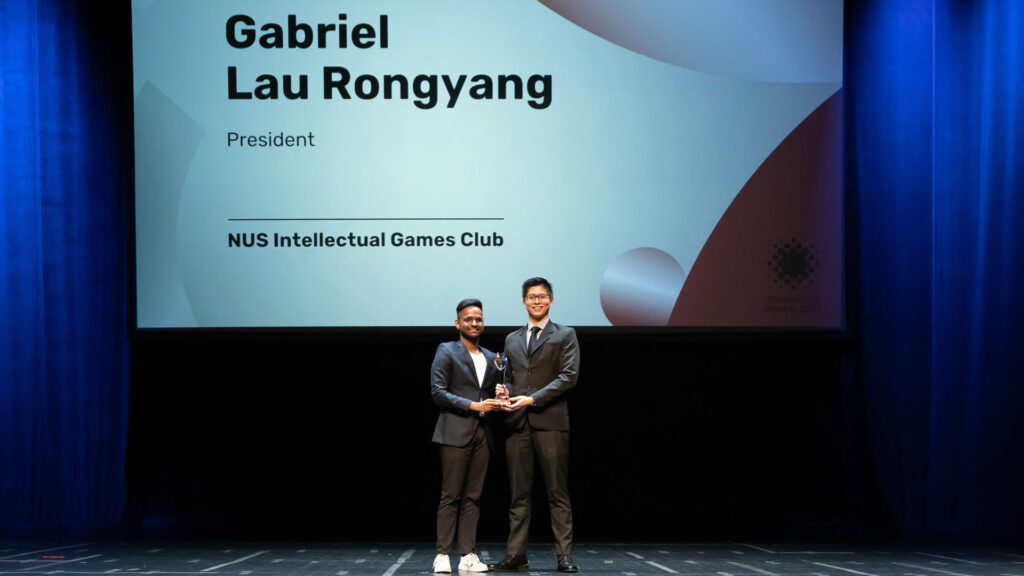
Gabriel Lau Rongyang, who recently graduated from the NUS Concurrent Degree Programme, bagged the Campus Choice Award (Individual) and the Distinction Award in the Leadership category. A believer in living life to the fullest on campus, the former President of the NUS Intellectual Games Club said, “University education is transient and ephemeral. Let’s make the most out of the high-quality education NUS offers to flourish holistically and lead a well-balanced student life while making a positive impact on the NUS community and beyond.” “I look forward to giving back all that I have received,” he added.
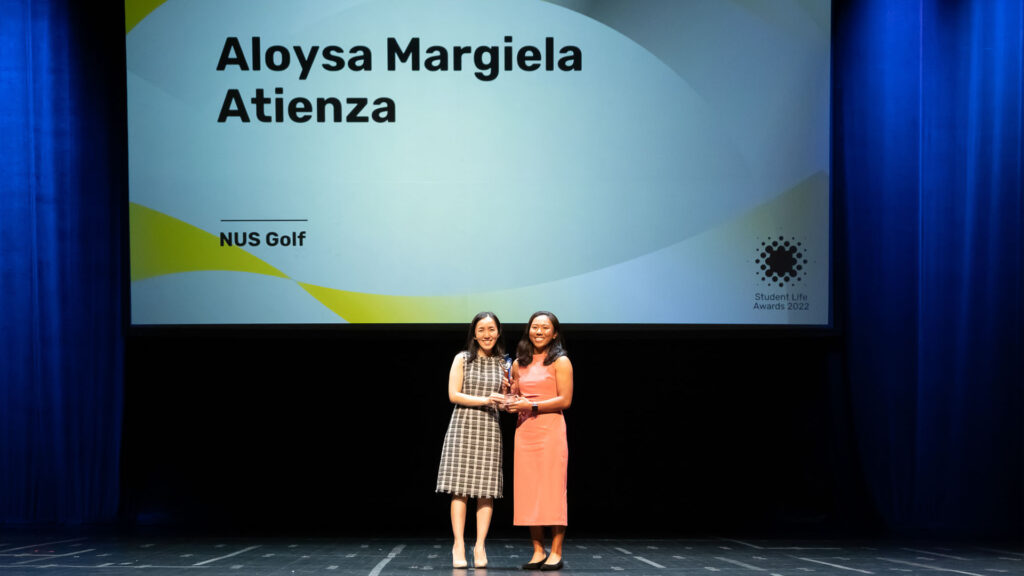
The Sportswoman of the Year Award went to Aloysa Margiela Atienza, who is currently pursuing her dream of becoming a professional golfer. Aloysa, a former captain of NUS Golf and recent Civil Engineering graduate, said she was honoured to have received the award to cap off her undergraduate journey in NUS. Sharing a word of advice with future student athletes, she said, “Juggling sports with school was never an easy task. As cliché as it sounds, managing your time and knowing your priorities are the most important. Sacrifices have to be made. It’s also a good practice to celebrate the small wins in both academics and your sport so that it keeps you motivated.”
View the full list of awardees here.
Recognising our passionate staff advisors
This year, a new award category was introduced to pay tribute to NUS staff advisors who have made a positive impact on students and paved the way for them to pursue their projects and activities. Two staff advisors – Dr Helen Chai from the NUS Students’ Business Club, and NUS Communications and New Media lecturer Dr Shobha Avadhani (NUS Communications and New Media) from NUS Comedy Club – were presented with the inaugural Staff Advisor Recognition Award. Nominated by students, they were appreciated for their significant contributions to the clubs and their unwavering support to the students.
“Dr Shobha has played a pivotal role in shaping the NUS Comedy Club,” Alec Singh, President of NUS Comedy Club, said. “It is with her caring guidance and thoughtful personality that the Club has become a student organisation that is not only fun and engaging, but also purposeful and meaningful for students.”
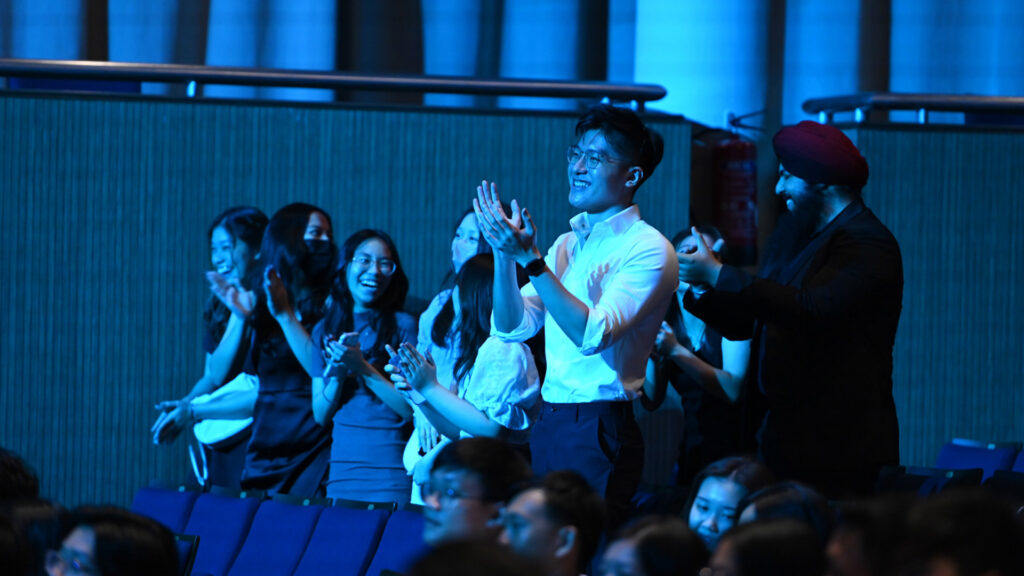
NUS Forever music video premiere
This year, the Office of Student Affairs also teamed up with students and staff for a new production of the “NUS Forever” song. Originally written for the 2005 NUS Centennial Celebration by Associate Professor Ho Chee Kong from the Yong Siew Toh (YST) Conservatory of Music and Professor Robbie Goh, former Dean of the Faculty of Arts and Social Sciences, the remade “NUS Forever” music video was a labour of love. Made possible by the efforts of many in the NUS community, it features NUS alumnus and accomplished local singer-songwriter Marcus Lee as the lead vocalist, musicians and audio engineers from YST, and student film director-producers from Raffles Hall Media. The reconstructed music video premiered at the award ceremony, bringing the celebrations to a rousing and memorable close and heralding many more years of vibrant campus life to come.
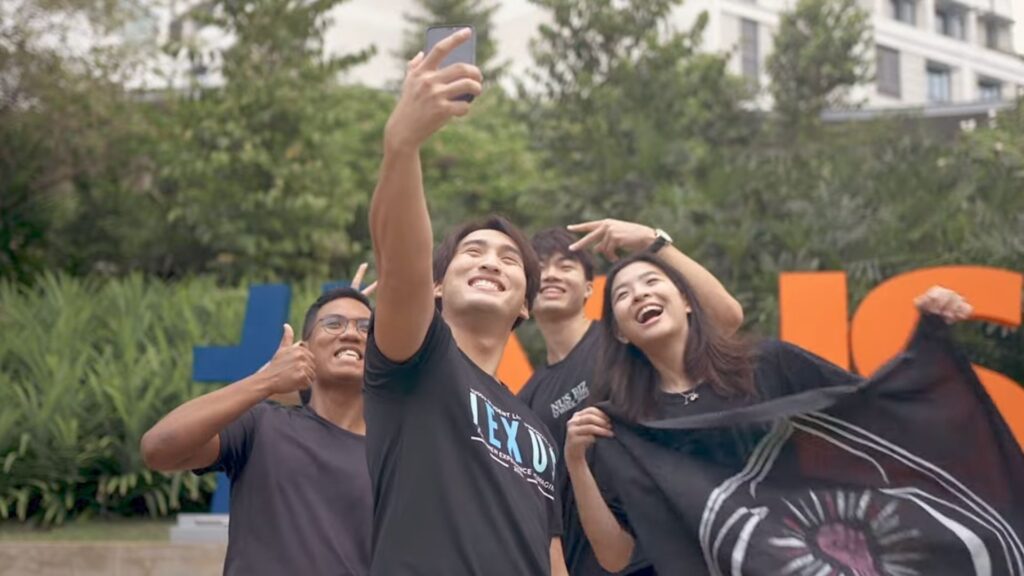
This story by the NUS Office of Student Affairs first appeared in NUSNews on 3 November 2022.
The Half-life of Knowledge
IN BRIEF | 10 min read
- There is now an indisputable requisite to equip graduates with interdisciplinary knowledge and skillsets. We need both the agile lenses of interdisciplinarity as well as the deep-cutting laser of deep domain expertise. The former trains us to aim and focus the laser, while the latter allows us to cut to the heart of a problem.

| By Professor Tan Eng Chye |
“Teach a person to fish, and you may feed them for three-and-a-half years” may sound less inspiring than “Teach a person to fish, and you feed them for a lifetime”, but the former more accurately reflects the current realities of tertiary education.
Breaking news travels at warp speed, accelerated by social media and instant messaging. In a matter of minutes, news can reach the four corners of the world. Such interconnectedness highlights the leaps made in information technology over the years while underscoring a persistent and inexorable phenomenon – the reduction of the half-life of knowledge.
The half-life of knowledge, coined by Fritz Machlup in 1962, refers to the amount of time elapsed before half of the knowledge in a particular field is superseded or becomes obsolete. Given the speed with which knowledge develops and is shared, it is perhaps not surprising that this value is ever decreasing in many fields.
This phenomenon raises fundamental questions about our university degree programmes. How should a fresh graduate, filled with aspirations to change the world, deal with the harsh reality that a significant portion of their undergraduate training may be rendered irrelevant by the simple passage of time?
Distilling a degree programme is one possible, albeit drastic approach. We can consider equipping students only with evergreen core domain concepts. This training should take less time than our current degree programmes. As and when students require specific new knowledge, or need to upgrade existing knowledge, they can take short courses to bridge knowledge gaps and meet their professional needs. This type of “just in time” learning, also known as micro-credentialing, helps to circumvent the shortened half-life by injecting cutting-edge knowledge at just the right time.
Another less disruptive approach is revitalisation. We can maintain the current degree programme structure, but provide avenues for graduates to return to university in the future. Such short stints of study can follow existing models for bite-sized, self-contained courses, or semester-long study periods undertaken with the support of employers.
One certainty is that university study will cease to be just one stage of life. Instead, “university studies” will become the de facto way of studying, with a person continually refreshing and renewing their knowledge in tandem with or in anticipation of developments in industry, society and the world.
In anticipation of this, we created the NUS Lifelong Learners Programme (or NUS L3), which promises a 20-year period of student enrolment, from the point of undergraduate or postgraduate admission. In other words, a graduate of NUS can choose to come back to campus to take courses for at least 20 years from the day of matriculation.
Interdisciplinarity
Beyond the way knowledge is acquired, we are also grappling with working in an increasingly VUCA (volatile, uncertain, complex, and ambiguous) world. In such a context, can we continue to hold a siloed view of domain disciplines? In training law students, for example, we would be remiss not to show them basic programming, which can allow them to create customised commands to quickly and easily trawl through databases, with millions of legal records, to identify precedents.
Deep domain expertise is like a laser – a focused beam of knowledge that can cut through dense problems. However, real-world issues are increasingly multifaceted and ill-defined, often lacking a clear vulnerable spot at which a laser beam can be aimed.
As a mental experiment, consider the challenge of introducing autonomous electric vehicles to a city. This proposition involves urban design, city planning, the law, and engineering for accessibility. We can form a multidisciplinary team of experts, where each member is a domain expert, to tackle the issue. However, in all likelihood, we will encounter misalignment between domains, simply owing to differences in problem-solving methodology, thinking models or even nomenclature.
If we liken domain training to equipping students with specific lenses through which they can see and focus on information to solve a problem, then interdisciplinarity suggests that we should train students to operate across more than one domain. By educating them in core ideas from multiple domains and providing opportunities to apply their knowledge in authentic settings, students with interdisciplinary training can switch domain lenses as needed, solving problems using novel and unorthodox approaches that transcend domains.
To be clear, we are not advocating for dismantling deep domain training. Rather, we recognise that there is now an indisputable requisite to equip graduates with interdisciplinary knowledge and skillsets. We need both the agile lenses of interdisciplinarity as well as the deep-cutting laser of deep domain expertise. The former trains us to aim and focus the laser, while the latter allows us to cut to the heart of a problem.
NUS strongly believes in providing interdisciplinary pathways for our students. In 2020, we created the College of Humanities and Sciences (CHS) to provide an enhanced interdisciplinary undergraduate experience for students of the Faculty of Science and the Faculty of Arts and Social Sciences. CHS undergraduates can choose between deep domain training or the flexibility of interdisciplinary training of varying breadth and depth in modules offered by both faculties. Continuing our efforts to pave more interdisciplinary pathways for students, in 2021, we merged the School of Design and Environment and the Faculty of Engineering to form the College of Design and Engineering. More recently, NUS launched NUS College, Singapore’s first honours college offering pathways to more than 50 majors across a half dozen degree programmes. The aim of NUS College, as explained by its inaugural dean, Professor Simon Chesterman, “[is to offer] broad, interdisciplinary competencies that equip students for life, along with the opportunity to dive deep into areas in which you are passionate.”
To quote Charles Dickens, “It was the best of times, it was the worst of times, it was the age of wisdom, it was the age of foolishness.” Indeed, our experiences with the global pandemic and its effects on education over the past two years have given us the rare opportunity to engage in deep reflection and introspection. Witnessing the breakdown of resistance to adopting and adapting technology for teaching and learning during this time, we should be emboldened to re-examine and revolutionise some of our established, and perhaps outmoded, notions of how to offer higher education.
About the Author
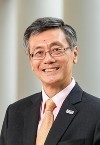 Professor Tan Eng Chye is President of the National University of Singapore. A passionate academic and educator, Prof Tan is a member of the World Economic Forum’s Global University Leaders’ Forum, as well as Singapore’s Future Economy Council, which is tasked with driving the growth and transformation of the country’s future economy.
Professor Tan Eng Chye is President of the National University of Singapore. A passionate academic and educator, Prof Tan is a member of the World Economic Forum’s Global University Leaders’ Forum, as well as Singapore’s Future Economy Council, which is tasked with driving the growth and transformation of the country’s future economy.
This article was first published in the Times Higher Education World University Rankings 2023 supplement and first appeared in NUSNews on 4 November 2022.
NUS Study: Meditative Practices that Produce Different Effects from Mindfulness-Related Meditation
IN BRIEF | 10 min read
- The practices lead to above-normal levels of physical and cognitive performance and pave the way for a range of potential medical and behavioural interventions.

Mindfulness studies have long dominated our understanding of the neurobiology of meditation, with practitioners of mindfulness-related meditation taught to be vigilant of the content of their thoughts so as to experience relaxation and stress reduction to improve attention and focus.
A recent study led by Associate Professor Maria Kozhevnikov from the Department of Psychology at the National University of Singapore (NUS) Faculty of Arts and Social Sciences, has discovered a different class of meditative practices that seeks to employ and regulate the state of stress that an individual experiences - rather than to reduce it - to achieve an even more heightened state of focus and attention.
The study is the first to propose a scientific taxonomy of meditative practices that accommodates not only mindfulness-based meditations but also this new class of meditative practices that produces a heightened sense of alertness by stimulating the brain, which is referred to by practitioners as 'arousal-based' meditations. It reveals that the latter actually covers a large class of meditative techniques, such as those employed within Vajrayana (Tantric Buddhism), by Sufis of the Islamic tradition ("whirling dervishes"), and by many other traditions, including Hindu Tantra and East Asian martial arts. Prior to the study, the mechanisms of these techniques were unknown.
Assoc Prof Kozhevnikov said that the results of this study also demonstrate, for the first time, that it is possible to stimulate the brain, rather than relax it, to achieve a level of voluntary control over our stress or 'fight or flight' response to maximise physical and cognitive performance.
She explained, "These practices push practitioners to their limits, so they can stay focused on the task, being free from any distracting thoughts, even in the most threatening situations. The findings open up a wide range of potential medical and behavioural interventions that not only allow meditation practitioners to regulate stress but also boost physical and attentional capacities upon demand, and even access latent brain resources to prevent cognitive decline."
The groundbreaking findings have just been published in Current Research in Neurobiology, a leading research journal on neural science.
About the study
The study focused on 16 nuns and monks who are highly experienced practitioners of Vajrayana from long-term retreat centres in Eastern Bhutan. Of these, ten are experts in a legendary and mysterious Tummo ("inner heat") practice known for its alleged capacity to generate significant body heat in the frigid cold of the Himalayas.
The researchers collected and compared electrocardiographic and electroencephalographic data of the practitioners as they performed a meditative practice known as non-Tantric Mahamudra (Mahamudra performed after rest) and another known as Tantric Mahamudra (Mahamudra performed after self-visualisation as a deity). Ten of them also performed Tummo.
They found that similar to mindfulness-related practices, non-Tantric Mahamudra led to relaxation, alertness and monitoring of thoughts. However, the practice of self-visualisation as a deity and Tummo which used emotionally charged concentration and visualisation accompanied by specific breathing techniques, allowed practitioners to achieve the state of brain stimulation that led to significant enhancement of their attentional resources. It demonstrated that these meditative practices can be seen as methods for transcending the normal limitations of the human condition, specifically attaining higher levels of performance and cognitive capacities than are ordinarily available.
Moreover, Tummo practice led to a certain level of voluntary control over their sympathetic nervous system (a network of nerves in the body which activates its stress/'fight-or-flight' response) - something previously considered to be impossible by medical science. This control of the sympathetic nervous system allowed the practitioners not only to manipulate the level of their attentional resources, but also to achieve the state of mental salience (mind-emptiness) during the final practice of Tantric Mahamudra.
Assoc Prof Kozhevnikov suggested that such control of the sympathetic nervous system is likely to explain a legendary capacity of Tummo practitioners to generate body heat and raise their core body temperature to feverish levels.
Sharing an example to illustrate the benefits of these meditative practices, Assoc Prof Kozhevnikov said, "This form of meditation would be useful for individuals in situations that do not allow for mindfulness-related meditation for stress reduction, such as a pilot flying a plane in a battlefield. He would need to regulate his stress and stay focused, and as such, this form of meditation will allow him to stay super alert and to execute his mission well in a state of high stress."
She added, "For a variety of reasons, these advanced Vajrayana practices are currently on the verge of disappearing. I hope this study will help attract scientific attention to these practices by uncovering their potential to enhance human cognition on the one hand and contribute to preserving their intangible heritage on the other."
Moving forward, Assoc Prof Kozhevnikov and her team hope to build on the findings to understand the ways in which the body reacts to different meditation practices for medical and behavioural interventions purposes. This includes using meditation to achieve a state of heightened alertness in the prevention of various cognitive impairments and age-related cognitive decline, associated with the loss of attention and memory functions (e.g., Alzheimer's disease, multiple sclerosis and dementia) on the one hand, and training members of creative professions (arts, sciences and music) to achieve undented levels of creativity in their fields on the other hand by teaching them to access the state of brain arousal and boost physical and attentional resources upon demand.
This story first appeared in NUSNews on 7 October 2022.
Call for Nominations | FASS Inspiring Mentor Award 2022
IN BRIEF | 3 min read
- We invite NUS FASS members of staff to nominate the colleagues who have served as their truly inspiring mentors - who have gone beyond the call of duty to positively impact their work and life - for FIMA 2022 honours.
Click through image below (or just write to fassmentoraward@nus.edu.sg) to file your nomination.
FASS Establishes LBKM Social Sciences Scholarship to Nurture Top Talents in the Social Sciences
IN BRIEF | 5 min read
- The scholarship was established through a S$300,000 gift from Lembaga Biasiswa Kenangan Maulud, LBKM (Prophet Muhammad's Birthday Memorial Scholarship Fund Board).
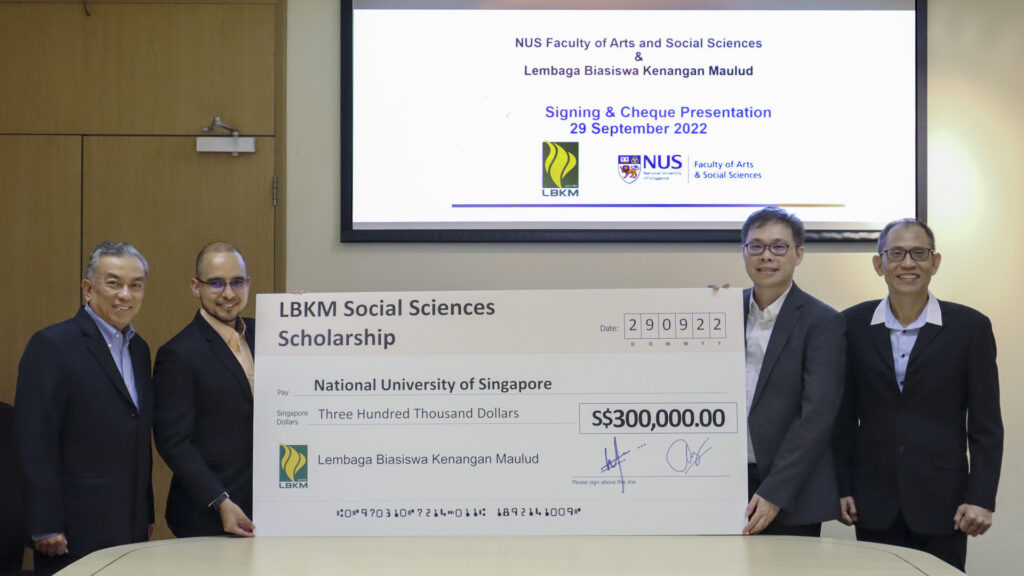
The NUS Faculty of Arts and Social Sciences (FASS) has received a generous endowment gift of S$300,000 from Lembaga Biasiswa Kenangan Maulud (LBKM) - or Prophet Muhammad's Birthday Memorial Scholarship Fund Board - to establish the LBKM Social Sciences Scholarship.
The Scholarship will be available to academically outstanding full-time third- and fourth-year Singaporean students pursuing majors in Communications and New Media, Economics, Global Studies, Philosophy, Politics and Economics (PPE), Political Science, Psychology, Social Work, as well as Sociology and Anthropology. This aims to further spur academic excellence in the social sciences amongst FASS undergraduates and encourage them to distinguish themselves in their scholastic activities.
Applications for the Scholarship worth $5,000 each will open in the academic year beginning in August 2023.
Professor Lionel Wee, Dean of NUS FASS, said, "The rise of the digital economy has driven up demand for social scientists as their knowledge and skills are needed to understand the impact of new technology on people and societies, provide social support in the wake of fast-moving changes, and overcome cultural differences in an increasingly shrinking world. These are roles robots and technology cannot replace. This Scholarship will enable us to attract and nurture exceptional social science students keen to grow their skills and achieve their fullest potential. We are grateful to LBKM for their trust and strong support."
Associate Professor Loy Hui Chieh, Vice Dean of NUS FASS, and Dr Syed Harun Alhabsyi, President of LBKM, signed the agreement today to establish the Scholarship, with a ceremonial cheque presented by LBKM to NUS FASS.
Dr Syed Harun said, "LBKM's continued support for undergraduates in the study of social sciences remains of extreme importance as societal and community needs become more complex, ever-changing and inter-disciplinary. It is hoped that LBKM's contributions will continue to inspire students to do well in the area of social sciences and groom future leaders who will not only perform exceptionally in their academic pursuits but also give back to the community."
The new LBKM Social Sciences Scholarship is an extension of LBKM's longstanding relationship with NUS FASS and past community donations that have supported undergraduate students financially and encouraged them to excel in their studies since 2007.
This story first appeared in NUSNews on 29 September 2022.
Hearing the Voices of the Youth to Build a Better Future
IN BRIEF | 10 min read
- Nobel Prize laureates, experts in the fields of science and humanities as well as students gathered to discuss crucial topics related to building a brighter future for the youth of today.

"Let us make our future now, and let us make our dreams tomorrow's reality," education activist and 2014 Nobel Peace Prize laureate, Malala Yousafzai once said. To make a brighter future was exactly what brought Nobel Prize laureates, international experts, and students from all over the world to the Nobel Prize Dialogue in Singapore on 13 September 2022.
The Nobel Prize Dialogue was organised by the Nobel Prize Outreach and NUS Yong Loo Lin School of Medicine, in partnership with the Asian Medical Students' Association (AMSA), Singapore to provide a platform for inter-generational dialogues to discuss and generate ideas around topics pertinent to ongoing global crises that concern today's youths and how they impact their future.
"We're bringing together Nobel Prize laureates, students and many speakers from all the Asia Pacific region to discuss how we envision wellbeing for us all and how we can improve your lives," said Ms Laura Sprechmann, Chief Executive Officer for Nobel Prize Outreach AB, Sweden.
The full-day programme was packed with panel discussions addressing the theme, "The Future We Want Together". While the Nobel Prize Outreach has held similar events in the Asia-Pacific region, this is the first Nobel Prize Dialogue held in Southeast Asia.
Guest-of-Honour at the dialogue, Minister for Foreign Affairs Dr Vivian Balakrishnan, said in his speech that the Nobel Prize Dialogue is "an opportunity to share ideas, learn from one another, discover our common humanity, to look for global solutions to global problems. Find new networks for collaboration and expand your minds."

Ms Zhu Yiming, a second-year Medical student at the NUS Yong Loo Lin School of Medicine and President-Elect for AMSA, Singapore who delivered opening remarks at the dialogue expressed how this was an opportunity "to start a precedent where youths can have greater agency in driving our future with fresh perspectives."
Projecting the Voices of the Youth
Professor Chong Yap Seng, Dean of the NUS Yong Loo Lin School of Medicine, shared in his opening speech how the youths of today are looking for a future that is "sustainable, where mental health and wellbeing are prioritised - a future that is full of possibilities."
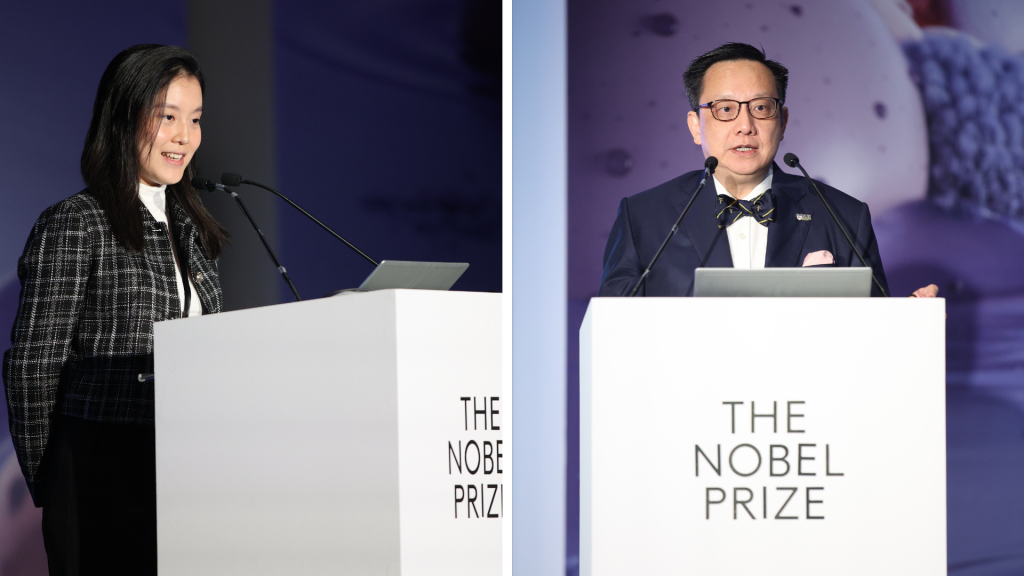
Climate change, health, education, happiness, as well as economic and digital wellbeing were some topics discussed during the panel sessions at the Nobel Prize Dialogue.
Virtual sessions were held prior to the dialogue where students got to interact and pose questions to Nobel Prize laureates as to what makes them apprehensive about their future. Contributing to these virtual sessions were Nobel Prize laureates, Professor Steve Chu (Physics, 1997), Professor Sir Angus Deaton (Economic Sciences, 2015), Professor Esther Duflo (Economic Sciences, 2019), Professor May-Britt Moser (Medicine, 2014), and Professor Paul Romer (Economic Sciences, 2018).
Questions posed by students during the virtual sessions were put forward for Nobel Prize laureates, international experts and students to engage in inter-generational discussions at the dialogue sessions held on 13 September.
In essence, of all the issues discussed, there was a concerted agreement across panellists that science and technical knowledge is not the only answer to the world's crises; humanities and social science have a part to play in shaping a brighter future for the youth.
This was also in line with Dr Balakrishnan's speech when he said, "It's a wonderful time to be alive. It's a time of great danger but also a time of accelerating opportunities. It is also a time in history where science, technology, politics, global affairs, and humanity are all telescoping into a focal point - with great and grave opportunities."

Extracting an example of artificial intelligence (AI) implementation during the dialogue about digital wellbeing, Assistant Professor Reuben Ng from the NUS Lee Kuan Yew School of Public Policy and Lead Scientist at the Lloyd's Register Foundation Institute for the Public Understanding of Risk highlighted that, "when we are trying to implement AI we can't just look at the science of AI, we need to look at the art of AI as well."
The final panel discussion in the afternoon session covered a topic closer to the heart, the "Pursuit of Happiness". Panellists engaged in a broad discussion on achieving the meaning of happiness in our current society. Providing a youth perspective was Ms Emma Goh, a sophomore studying psychology at the NUS Faculty of Arts and Social Sciences. She believes that "happiness can be simple," and happiness can be found in something that "gives you a permanent sense of meaning." For Ms Goh, it's her family.
Creating the Future We Want
"When we're talking about what future we want, we're talking about a system that's ongoing that we're going to have to encourage and divert and push towards the direction that will give us the future we want," said Professor George Fitzgerald Smoot III, an astrophysicist and cosmologist who was co-awarded the Nobel Prize in Physics in 2006. He was one of the three Nobel Prize laureates who participated on-site at the dialogue.

Solidarity, advocacy, and global collaboration were propounded as possible solutions to the topics discussed during the dialogues that could help shine a glimmer of hope for the kind of future that the youth of today envision and aspire to achieve.
Rallying the youth in the audience, Nobel Peace Prize laureate (2014) and advocate for children's rights, Kailash Satyarthi said, "Speak. No words can be louder and more compelling and honest than the words of young people." He called upon the youth to "speak for those who have no voice and to be the face of those who are invisible."

Speakers urged the youth in the audience to do their part with their resources in technology and seize the opportunities to be the voice of their generation and face the challenges of building a brighter future.
"As temporary stewards of the world today, you're always merely looking after the next generation. The youths of today must be prepared to take on the challenges of tomorrow," said Prof Chong.
"The world holds endless opportunities and I hope that every one of us can find our inspiration to contribute to the voice of the youths on the national and international stage," said Ms Zhu.
This story first appeared in NUSNews on 21 September 2022.
NUS-led Study: Extreme Debtors May Be Exposed to Debt Accumulation Due to Inflated Sense of Self-Control
IN BRIEF | 10 min read
- The combination of low self-control capacity and poor recognition potentially exposes debtors to more debt accumulation.

A first-of-its-kind study led by Associate Professor Jia Lile from the Department of Psychology at the National University of Singapore (NUS) Faculty of Arts and Social Sciences found that extreme debtors have a low capacity to regulate their behaviour but hold an illusory perception of high capacity, which may expose them to further debt accumulation.
The study, conducted in collaboration with the Singapore University of Social Sciences (SUSS) and with the support of Credit Counselling Singapore (CCS), used a combination of a self-reporting questionnaire and behavioural measures to compare the profiles of extreme debtors (defined as those who owed credit card debts that amounted to 12 times or more of their monthly income) with two control groups.
Assoc Prof Jia said: "There is an urgency to identify and measure risk factors behind the global debt crisis which has been exacerbated by the COVID-19 pandemic. Past studies have focused on variations in debt among the general population, but there has been little research into how those who suffer from extreme and prolonged debt view their own self-control ability and how this affects their behaviour until now. The use of behavioural measures in our study also allowed us to identify potential distortion in responses from self-reporting questionnaires as a result of the respondents' mental construal which creates a biasness in how they respond."
The results of the study were published in Journal of Personality in May this year.
Examining the Self-Control Profiles of Extreme Debtors
The research team, which included NUS Business School PhD student Mr Yuen Wei Lun, Dr Ong Qiyan from NUS Social Service Research Centre and Assoc Prof Walter Edgar Theseira from SUSS, used a series of tests to compare the self-control profile of 1,442 extreme debtors1 in Singapore with those of two control groups - a sample of the general population, and university students.
Data on both control groups were collected in two waves.
Wave 1 of 940 Singaporean adults and university students took only the Brief Self Control Scale (BSCS) test - a self-reported questionnaire.
Wave 2 of 576 Singaporean adults and university students completed the following three tests:
| Tests |
|
|
|
An exploratory analysis comparing BSCS test results of extreme debtors with those of control groups in Wave 1 corroborated the notion of inflated assessment of self-control among extreme debtors, who reported the highest self-control capacity when they ought to have the lowest.
A confirmatory analysis was conducted comparing the three test results of extreme debtors with those of control groups in Wave 2. Replicating the BSCS results from Wave 1, extreme debtors reported the highest level of self-control capacity. However, they demonstrated the lowest self-control capacity compared to the control groups on EI gap and flanker performance, which was congruent with the theoretical proportional relationship between self-control and personal debt.
Assoc Prof Jia said, "Our study found that extreme debtors across demographics reported a surprisingly high level of self-control while performing poorly on objective measures of their self-control capacity. We were also able to show that this effect was unlikely due to debtors' desire to present themselves well in front of the researcher or due to any specific reasons of debt accumulation. The combination of low self-control capacity and poor recognition is perilous as debtors may place themselves in temptation-rich environments, such as convenient online shopping platforms, believing that they can suppress impulsive purchases when they actually can't."
"Personal debt is an evergreen problem, despite consumer finance regulation and education efforts. While many financial education programmes stress the importance of knowledge, planning, and self-control, we show that people often do not understand that their self-control capacity is relatively poor. This exposes them to the risk of severe debt accumulation, which in turn, has been shown in other research to further harm self-control capacity. Early intervention to support people's capacity to improve self-control is vital to stop the cycle of debt," added Assoc Prof Theseira.
The findings from the study have important implications for policymakers and other relevant support organisations in designing intervention programmes to help debtors improve self-control behaviour.
CCS Chairman, Mr Ang Hao Yao, said: "The insights of the study can help CCS to further improve our counselling and support to the debtors, to help build awareness of their self-control capacity, which could help them to better keep up with their repayment plan. CCS encourages clients to track and review their expenses so that they can make adjustments to their spending behaviours."
It was noted in the study that despite the prevailing understanding that self-reported questionnaires are superior to behavioural measures, the BSCS, one of the most widely used self-control questionnaires, failed to reflect the supposed relationship between self-control and personal debt. It was the two behavioural measures that correctly distinguished extreme debtors as the group with self-control struggles.
The research team noted that such distortions in self-reporting questionnaires may possibly impact those experiencing moderate self-control problems in debt accumulation. Moving forward, they will continue to explore the magnitude and trajectory of how social cognitive processes impact personal assessment of self-control and ways to improve the accuracy of self-reporting.
| 1,442 extreme debtors1 | Data on extreme debtors came from a 2016 voluntary survey by applicants of a debt restructuring programme administered by CCS. Debtors were informed that their responses had no bearing on credit access or debt restructuring. |
This story first appeared in NUSNews on 16 August 2022.
‘You can’t tell people to not speak it,’ says NUS don. But where does Singlish stand now?

Effects of living arrangements on well-being, perceived conflict, and intergroup attitudes for local and international students: Results from a field intervention

Beware the pitfalls of making lectures 'interesting'

FASS Students Dominate 2022 USP Awards
IN BRIEF | 10 min read
-
NUS Faculty of Arts and Social Sciences (FASS) students have topped 9 out of 14 prize categories in 2022 University Scholars Programme (USP) Awards, achieving the USP Overall and Domain Prizes for academic excellence.
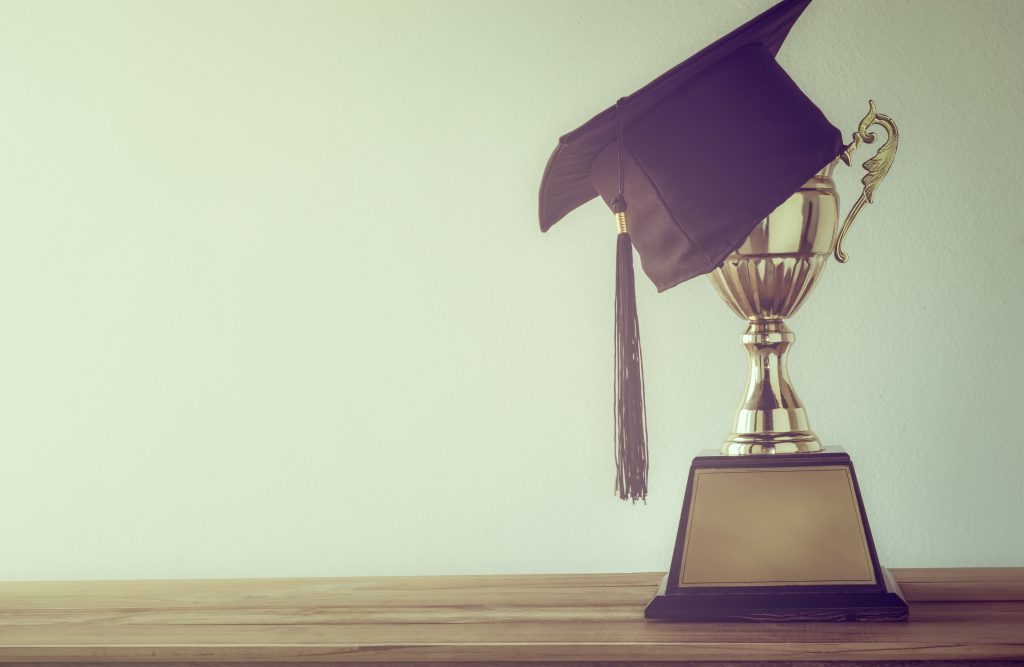
Students of the NUS Faculty of Arts and Social Sciences (FASS) in the University Scholars Programme (USP) have topped 9 out of 14 categories at the 2022 USP awards, including the Joanna Wong Medal, NUSS Medal for Outstanding Achievement, Izzudin Taherally Prize, Chan Bibe bte Syed Mohd Shah Prize, Albert Teo Prize, Tin Chew Hong Prize, Syed Ahmad Khan AMU Memorial Prize and Sung Kah Kay Memorial Prize. FASS students have also swept the USP Overall and Domain Prizes, with Philosophy, Politics, and Economics major Nickson Quak Jun Hao (Philosophy, Politics, and Economics) taking Best Overall Performance, in addition to sharing top spot with his compatriot Terence Mah (Psychology) under Best Performance in Science and Technology.And to stamp FASS’ dominance in this year’s awards, Archana Dhinakar Bala (Economics) – winner of the Joanna Wong Medal and the Syed Ahmad Khan AMU Memorial Prize – served as valedictorian for the USP commencement ceremony.
In full, the list of FASS winners of this year’s USP awards are.
Joanna Wong Gold Medal AwardPresented to the graduating student from USP who best embodies the ethos of the programme—demonstrating academic excellence and commitment to co-curricular activities.
Winner: Archana Dhinakar Bala (Economics) NUSS Medal for Outstanding Achievement
Presented to the graduating USP student with outstanding all-round achievements, who demonstrates academic excellence as well as significant participation in NUS students activities and/or impactful contribution in community service/voluntary work, preferably in leadership capacities.
Winner: Teow Jun Hao (Philosophy, Politics, and Economics) Sung Kah Kay Memorial Prize
For the graduating USP student who best exemplifies scholarship and academic excellence, and who demonstrates leadership in independent and interdisciplinary scholarship.
Winner: Yip Sze Kay (Majors: English Literature and Philosophy, Minor: French) Izzuddin Taherally Prize
For the graduating USP student who is well-rounded and has exemplified academic excellence and demonstrated a strong commitment to promoting interfaith dialogues or activities related to social harmony.
Winner: Ahmad Zaki bin Yazid (History) Chan Bibe Bte Syed Mohd Shah Prize
For the graduating USP student who is well-rounded and has demonstrated academic excellence as well as a strong commitment to wide-ranging learning through co-curricular acivites, or to community service.
Winner: Rachel Teng Ying Xin (Sociology) Albert Teo Prize
For the well-rounded graduating USP student who has exemplified academic excellence and demonstrated a strong passion for entrepreneurship or innovation in the social or business sector.
Winner: Peng Yun Ting (Philosophy, Politics, and Economics) Tin Chew Hong Prize
For the graduating USP student who is well-rounded, has exemplified academic excellence, and demonstrated strong commitment to community service preferably in the areas of eldercare, ageing or gerontology.
Winner: He Shiying (Major: Global Studies, Minor: Public Health) Syed Ahmad Khan AMU
For exemplifying academic excellence and reflecting a strong commitment or made a significant contribution to South Asian studies and culture.
Winner: Archana Dhinakar Bala (Economics) USP Prizes: Overall and Domain
For graduating USP students who have demonstrated academic excellence in USP modules.
- Best Overall Performance
Winner: Nickson Quak Jun Hao (Philosophy, Politics, and Economics)
- Best Performance in Humanities and Social Sciences
Winner: Belle Koh Rae Qi (Psychology)
- Best Performance in Science and Technology
Winners: Nickson Quak Jun Hao (Philosophy, Politics, and Economics) and Terence Mah Cai Jun (Psychology)
Centre Stage – Student Leaders in the Performing Arts Shine a Spotlight on Social Issues
IN BRIEF | 10 min read
- Three graduates share their thoughts on their leadership in the performing arts, navigating the challenges of COVID-19, and how the performing arts can open doors to conversations on mental wellness, environmental issues and inclusivity.
Art can help shape and renew culture. It offers a space for creativity and expression, surfaces issues that are difficult to talk about, and can effect change in society. Three graduates share their thoughts on their leadership in the performing arts, navigating the challenges of COVID-19, and how the performing arts can open doors to conversations on mental wellness, environmental issues and inclusivity.
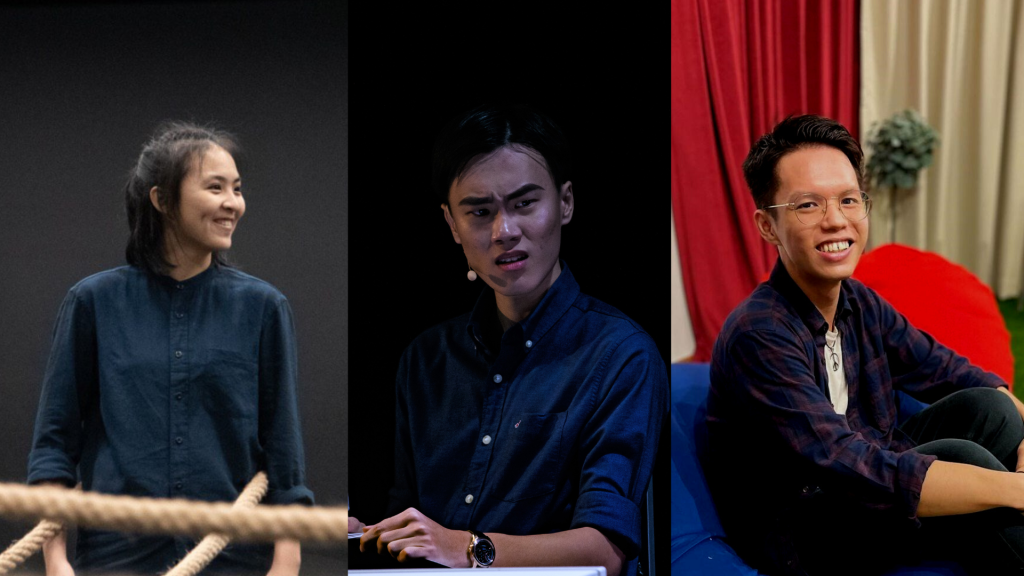
For 23-year-old Coco Yau, dance is inseparable from her identity. The Psychology major was only six when she went for her first dance class. "My dad told me I could one day be like the dancers in High School Musical," she chuckled.
Coco nurtured her interest, building foundational skills in jazz, Chinese and modern dance. "Before university days, dance to me was very performative. You usually work towards a choreography or competition piece," she said. That perspective changed when Coco joined NUS Dance Synergy, opening her eyes to a new dance style.
"The way that NUS Dance Synergy teaches contemporary dance is extremely raw. It brought me out of my comfort zone because I was so used to structured techniques. They encouraged me to be comfortable in my own skin and to feel, which was intimidating. That was the first time I tried to have conversations with myself through body movement," said Coco.
Coco went on to serve as President and Dance Mistress of NUS Dance Synergy in Academic Year 2019/2020. During her term, Coco and her executive committee organised Fuse(d) 2019 - a two-day contemporary dance showcase. The indefatigable performer even coordinated seven dance groups for the HERE! Arts Carnival 2020 Virtual Opening Show.
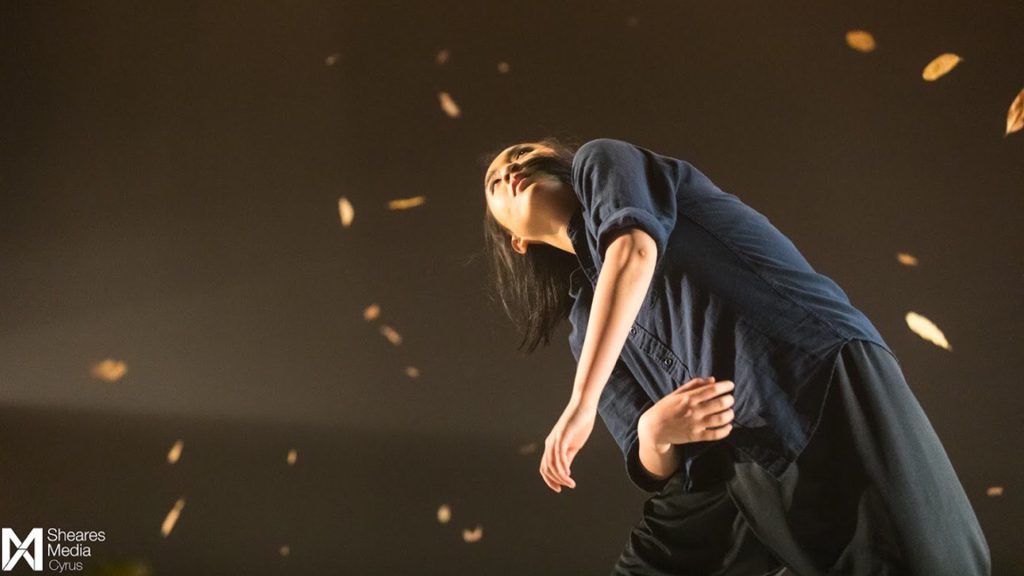
While there were many highs during her time in NUS Dance Synergy, the pandemic almost ground things to a halt, putting her leadership of a performing group to the test. As infection cases climbed and social restrictions were tightened, Coco recalled having to make the tough decision to shelve Venture 2020, to the disappointment of fellow dancers who had trained hard for weeks.
"That showcase was a very important growing point for many people, and we were all working so hard to make it happen… As a leader, that burden [of letting people down] was very hard to bear," she said.
Mental wellness is also an issue Coco cares deeply about. Together with three seniors, Coco established SPECTRUM, a university-wide initiative to raise awareness and improve mental health for students. SPECTRUM went on to win first place in the 2020 Public Health Challenge.
Where possible, Coco incorporates elements of mental wellness with contemporary dance. As a leader and senior member of NUS Dance Synergy, she often led tutorials for fellow dancers and Tembusu College residents, carving out a space for them to express themselves through movement.
"Having internal dialogue, being able to connect with yourself - these are aspects I learnt in psychology that I brought into dance. Sometimes I received messages saying 'I've never felt so connected when I'm dancing'. That really means a lot to me," said Coco.
After graduation, Coco will be joining the National University Hospital as a psychologist associate. She will be working with REACH, a mental healthcare service to help students in the community.
Reflecting on her experiences in NUS, Coco said, "My four years as a leader, senior and teacher has contributed to a better understanding of how to connect with people. This is something I will bring with me, anywhere I go."
Advocacy Through the ArtsWhat started as passion, evolved to become something more.
Environmental Studies graduate Chua Wei Qian loved the performing arts from a young age. While he made his stage debut as a chorister, he found himself drawn to acting and eventually joined NUS Chinese Drama when he entered university.
In NUS Chinese Drama, Wei Qian had the opportunity to explore various forms of theatre-making, such as Playback Theatre, Devised Theatre and Guerrilla Theatre. The fun and enriching experience spurred him to take up the role of President in August 2019.
One of the most memorable productions during Wei Qian's leadership term was a play titled Blindspot. An original production by NUS Chinese Drama, Blindspot tells the stories of two young persons; one visually-impaired, and the other grappling with a loved one experiencing gradual vision loss. The play brings into focus how our blind spots prevent us from seeing those in need around us. A nod to its title, Blindspot was also produced with the intention of making theatre more accessible to visually-impaired audiences, making available audio descriptions of each scene.
The planning for Blindspot began in June 2019 and the play was slated to premiere at NUS Arts Festival 2020. However, the pandemic derailed plans and the entire production had to be moved online. This was not the only setback.
"A day before it (Blindspot) was supposed to be up, we received news that there were some issues with the music copyright. We couldn't use the music...and had to redo the last scene, stitch the different scenes together and re-export two versions of the play. We had to decide whether we wanted to have the normal version up first, then upload the accessible version (for visually-impaired audiences) another day."
While it was not an easy decision to make, Wei Qian felt strongly that it was important for all audiences to gain equal access to the show.
"At the end of the day, we pushed both versions back. Whether you are visually-impaired or fully-sighted, you will have access to the show at the same time," he added.
Through the various productions and plays, Wei Qian hopes to encourage discussion on social issues that might be hard to broach. This was also part of the reason he chose to major in Environmental Studies.
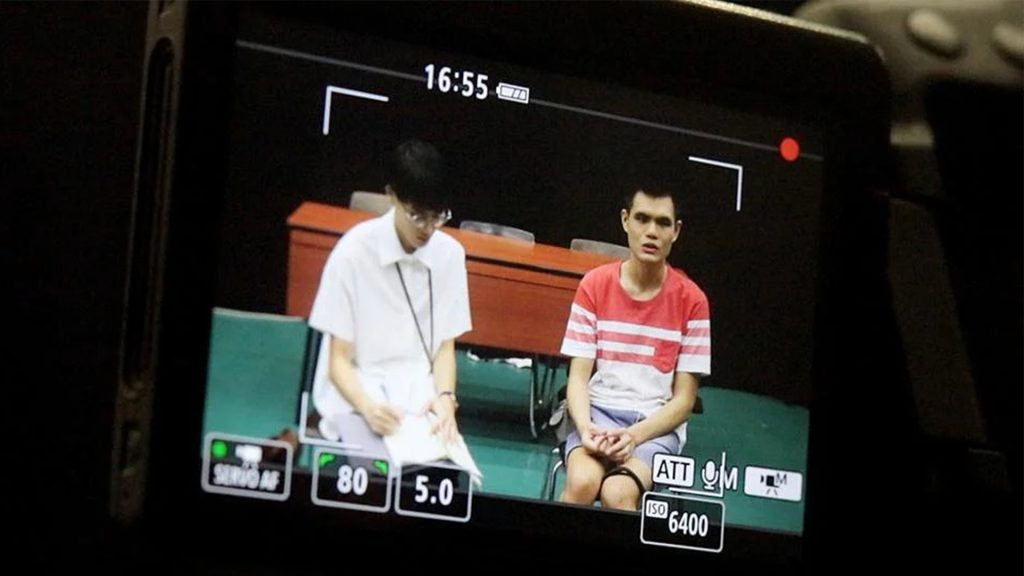
Grounded in the belief that environmental and social issues are not distinct, Wei Qian said: "The environment is integral to our everyday lives… [Raising] carbon taxes would have an implication on our everyday expenses. It is an environmental issue but it is also social."
NUS' multidisciplinary approach to Environmental Studies was another key factor in his choice of study. Wei Qian credits his education at NUS for exposing him to various ideas and perspectives on environmental issues.
After graduation, Wei Qian will be pursuing a career in journalism. The 25-year-old wants to continue championing social issues, especially those that resonate with the younger generation. Through this, he hopes to help bridge generation gaps and promote greater mutual understanding.
A Voice for Social MobilityWith no formal music background, Amir Mirza first discovered an interest in singing while he was in secondary school.
"It started from just wanting to explore singing after watching shows like High School Musical and Camp Rock… It turned out to be something that I really enjoy," the Sociology major said.
Amir joined his school's choir and rose through the ranks to become its pioneer student conductor - leading his school to clinch its first Silver medal in the Singapore Youth Festival Central Judging.
Entering university, Amir wanted to improve his skills and continue his choral journey with a reputable varsity choir. He set his sights on joining The NUSChoir, inspired by their achievement of clinching the prestigious "Choir of the World" title at the Llangollen International Musical Eisteddfod in Wales, United Kingdom in the year of his matriculation.
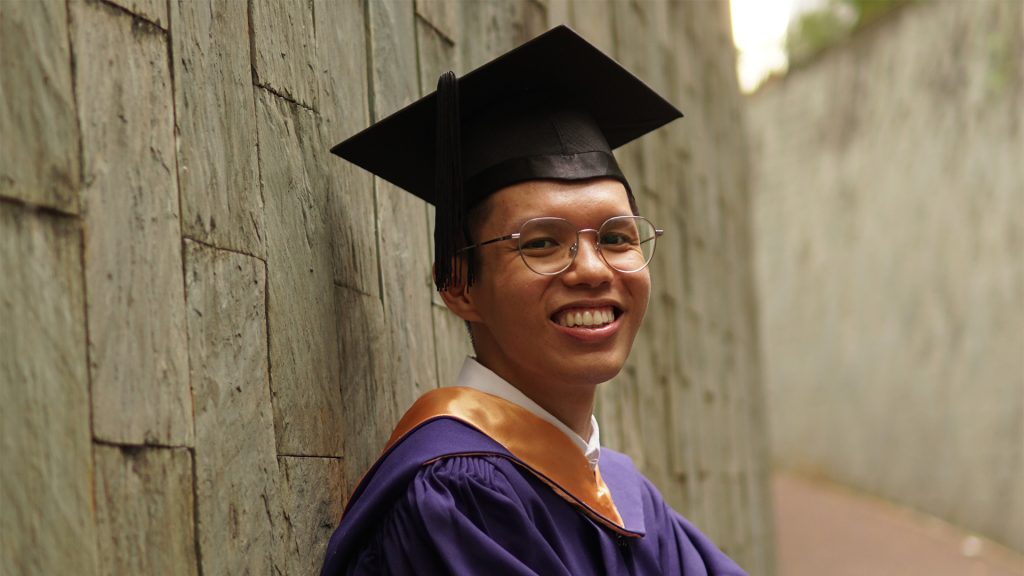
In his second year, Amir was elected President of The NUSChoir - an experience which saw him gaining fresh perspectives on leadership, people management and communication.
"I placed a lot of emphasis on inclusivity. Being a choir centred on excellence, there will be members who may not be able to cope with the learning pace… Relating to that experience myself, it was vital for me to be as grounded as possible and engage with members often, especially those who may be left behind," he added.
While the pandemic meant that live singing and large performance opportunities were not permitted for a time, Amir worked closely with his members, student leaders and stakeholders to ensure The NUSChoir could still engage in meaningful activities.
Amir expressed his heartfelt appreciation for the support alumni and fellow members gave during his leadership, and added that alumni had been very generous with their guidance. "It was also a gratifying experience forging friendships with fellow student leaders and staff from NUS Centre for the Arts," he said.
The 26-year-old also lends his voice to another cause close to his heart - social mobility.
The oldest of four children to parents working in the service industry, Amir remembers his family always having to spend prudently and keep an eye out for financial assistance schemes. Today, he is the first in his family to graduate with a bachelor's degree.
Reflecting on his life experiences, Amir explained, "I want young people in difficult situations to believe it can be a reality for them, and resilient individuals who are now in better positions to make a difference for them."
To this end, Amir is a PEER Community Programme volunteer involved in organising experiential learning programmes and cohesion activities for secondary school students. He also serves with the Ministry of Social and Family Development's social service offices as a ComLink volunteer supporting families living in rental flats.
Following his interests, Amir chose to read Sociology in NUS, where he enjoyed discussions on topics related to race, education, and social class. He credits his professors for ensuring the classroom remained a "safe and brave space" where he and his classmates could articulate views authentically and respectfully without the fear of being judged or criticised.
After graduation, Amir will be embarking on his career as a child protection officer, guided by his belief that every young person deserves a strong, stable, and supportive home to thrive.
This story first appeared in NUSNews on 13 July 2022.
Commencement 2022: Kickstarting a Season of Celebration and Achievement
IN BRIEF | 10 min read
- NUS celebrates the milestone accomplishments of 13,975 graduates through 28 in-person ceremonies.
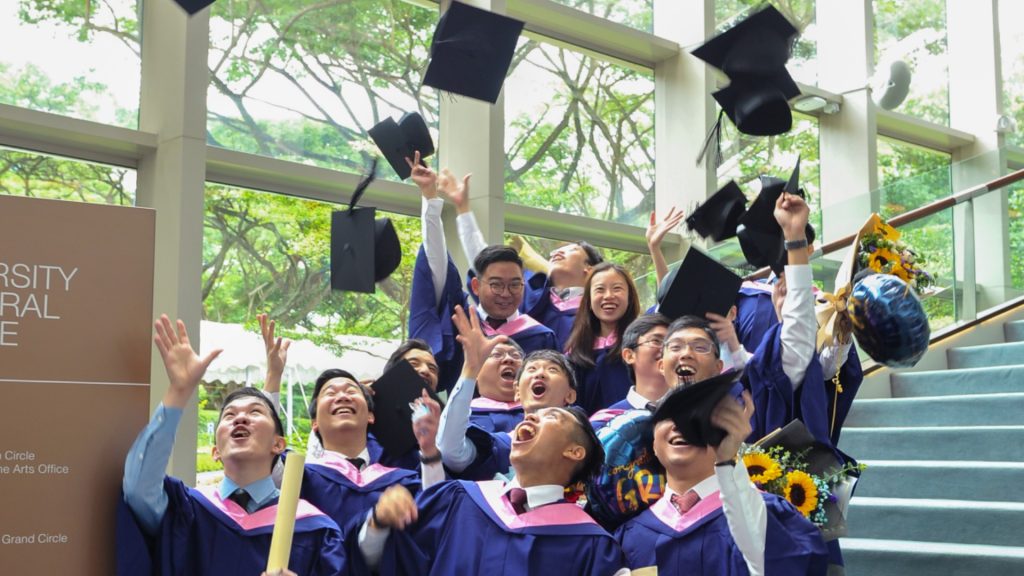
A long-awaited season of celebration is officially under way, with the inaugural ceremony of Commencement 2022 marking the milestone achievements of some 200 Faculty of Arts and Social Sciences (FASS) graduates, and seeing the conferment of two Honorary Graduates, Professor Tommy Koh and Professor Wang Gungwu.
Taking place at the University Cultural Centre, the ceremony kicked off bright and early on 6 July to an effervescent buzz of anticipation from the graduates and their loved ones, inaugurating a total of 28 in-person ceremonies to be held over the following 10 days.
In keeping with the Commencement traditions and the proud ceremonial heritage of NUS, the ceremony showcased the pageantry of the Ceremonial Procession, the fanfare, and playing of the National Anthem, all culminating in the highlight of the ceremony-the presentation of graduates. Graduates from the Class of 2022 celebrated their achievements amid the applause of family and friends, a momentous apogee of their time in NUS.
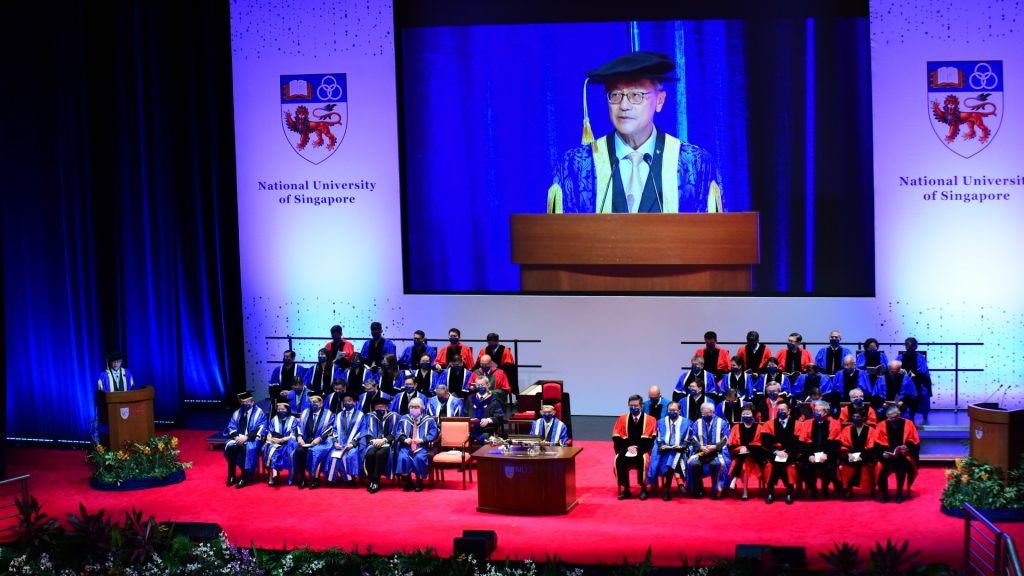
Speaking at the ceremony, NUS President Professor Tan Eng Chye reflected on the qualities needed for graduates to thrive in today's dynamic environment: an attitude of resilience and adaptability to overcome challenges, and a willingness and boldness to view problems as opportunities, exercise creativity, and apply their skills and knowledge to create solutions.
"For the Class of 2022, you are crossing the threshold into a wider world of dynamic change and great possibilities, but also of discomforting uncertainty," he said.
"But I am fully confident that the NUS graduates of today share the same ethos of excellence and service to community of generations past. In time to come, you will undoubtedly make your own unique contributions, and become the vanguard in elevating our collective prosperity and well-being."
Contributions to Law, Nature and Culture: Prof Tommy KohTwo illustrious NUS alumni were also honoured as Honorary Graduates for the Class of 2022-lawyer and diplomat Professor Tommy Koh, and historian Professor Wang Gungwu.
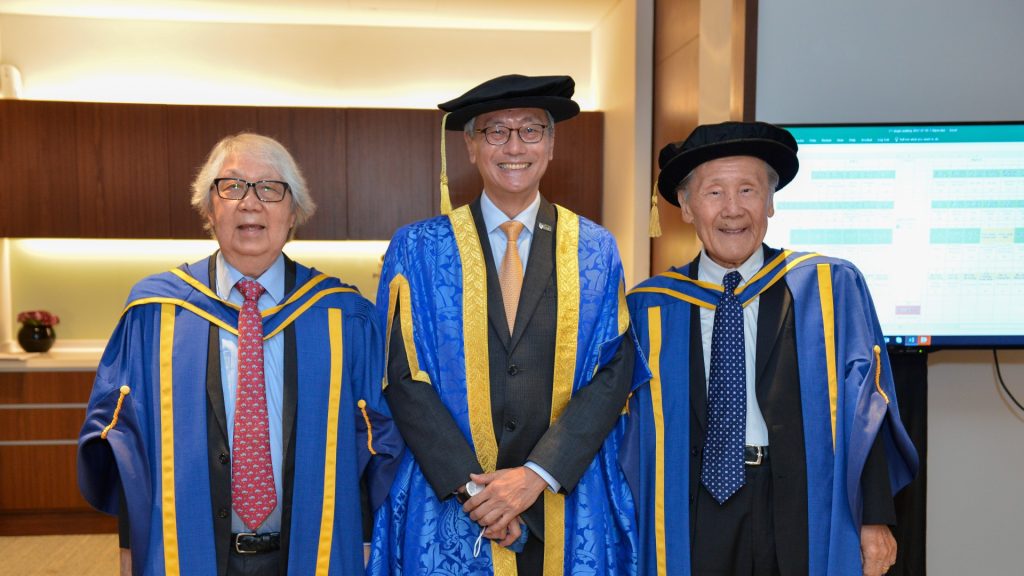
In recognition of his dedication as a practitioner-scholar and decades of service to the University, Singapore, and the world, Prof Koh, who wears many hats including Ambassador-at-Large at Singapore's Ministry of Foreign Affairs, Special Advisor of the Institute of Policy Studies, and founding Rector of NUS' Tembusu College, was conferred the Honorary Degree of Doctor of Laws.
Highlighting three areas on which he has focused his energies - law, nature, and culture - Prof Koh said, "I chose to study law, not to enrich myself, but to pursue justice and to promote the rule of law."
He also spoke about his work concerning nature and the environment, including chairing the 1992 Earth Summit, being patron of the Nature Society, and helping NUS establish the Lee Kong Chian Natural History Museum as its founding Chairman. "My vision is to live in harmony with nature. My agenda is to promote sustainability in all our endeavours," he added. "I am [also] glad that I have been able to play a very small role in transforming Singapore, from a cultural desert to a cultural oasis."
Delivering the citation for Prof Koh's conferment, Professor Simon Chesterman, Vice-Provost (Educational Innovation) and Dean of the NUS Faculty of Law and NUS College, referred to Prof Koh's "academic milestones [which] are but one strand of the rich tapestry of his professional life", as well as his leadership and guidance in education at NUS, and his eminent contributions to state and environmental diplomacy.
An Inspiring Story Worth Retelling: Prof Wang GungwuProf Wang, one of the world's foremost experts on the Chinese diaspora and Sino-Southeast Asian historical relations, was conferred the Honorary Degree of Doctor of Letters, the latest in a long list of accolades that includes the prestigious Tang Prize in Sinology, and the Distinguished Service Order of Singapore.
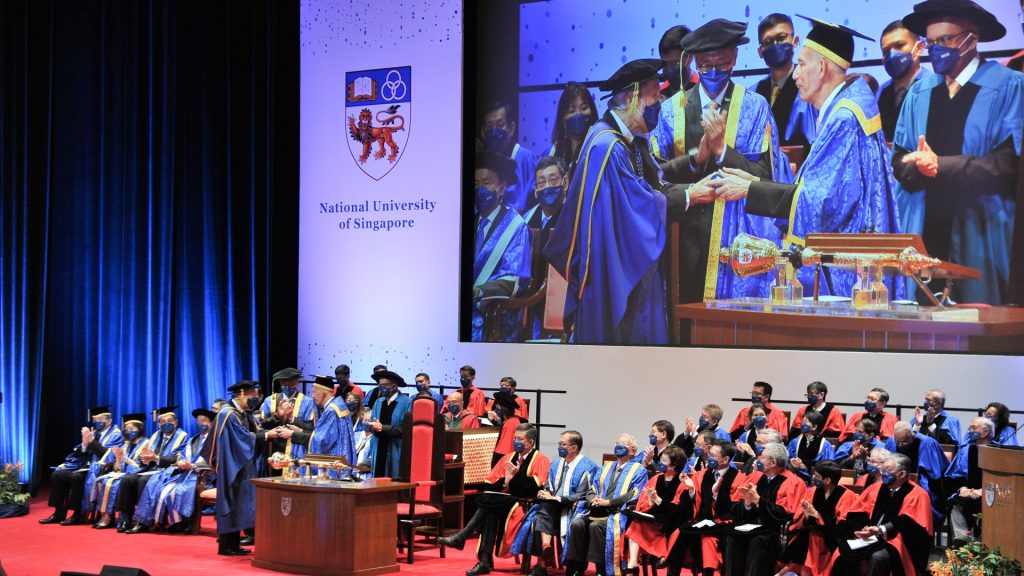
Reflecting on his time as a student of the University in colonial Malaya, Prof Wang said: "You can imagine how happy I am to be a graduand again with my alma mater. The university gave my generation a good start in life. It went on to adapt to the rapid changes of our time. In so doing, it has come out better and stronger."
He spoke about the "inspiring story worth retelling" of how the University had set out and followed its own aspirations, becoming a major centre of learning by being actively connected to the world, as well as regularly reinventing itself.
"The way our university strives to keep our humanity always in our sights is something to be very proud of. I hope that all of us graduating today, no matter where life leads us, will never hesitate to help our university to enhance this capacity to advance our human condition," Prof Wang stressed.
Prof Lionel Wee, Dean of FASS and co-Dean of the College of Humanities and Sciences, who delivered the citation on Prof Wang's conferment, lauded the latter as "an eminent figure and brilliant mind" who has made manifold contributions as a leading figure in Sinology, a renowned public intellectual, and a visionary leader and administrator at leading academic institutions around the world.
"This doctorate symbolises the meaningful connections between Professor Wang and the University, and it celebrates the long-standing contributions and value that Professor Wang's scholarly insights bring to Singapore, to Southeast Asia and, indeed, to the world," he said.
Parsing the Path ForwardInfusing the celebrations with a spirit of introspective gratitude, Valedictorian Mr Nickson Quak, who is graduating with a Bachelor of Arts with Honours (Highest Distinction) in Philosophy, Politics, and Economics said, "As varied as our journeys may have been, each and every one of us graduates here could have only made it thus far because of the unwavering support that our parents, our families, our loved ones, and our friends have so generously afforded us."
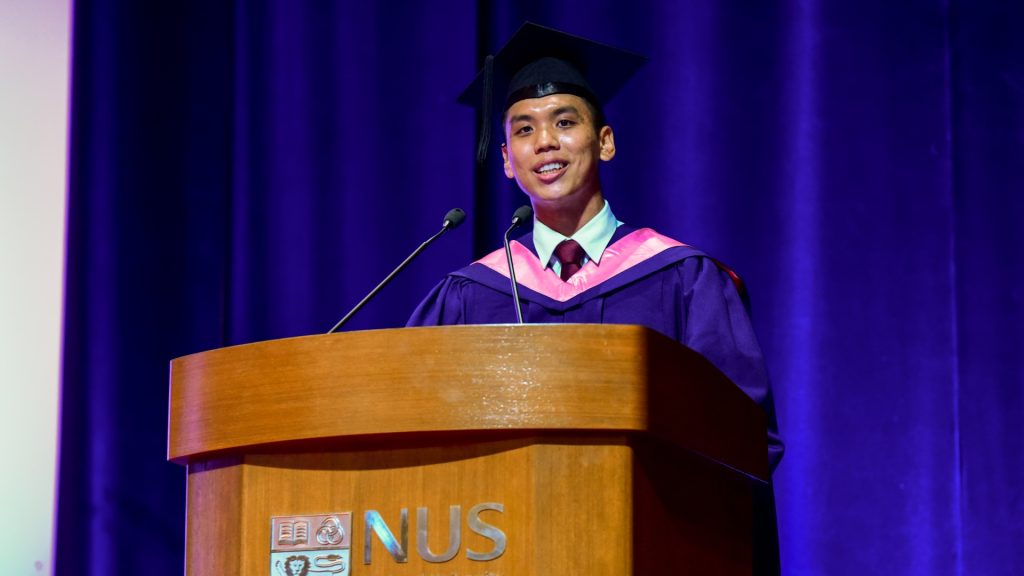
His words further summarised the spirit of determination and community that will carry graduates onwards in their lives: "If [the journey ahead] appears daunting to you, I say to you: fret not… because when you look to your left and your right, you see the resilient men and women who, forged by the challenges brought upon by the global pandemic, will always offer you a helping hand."
This story first appeared in NUSNews on 6 July 2022 as part of NUS News' coverage of Commencement 2022, which celebrates the achievements of our 13,975 graduates through 28 in-person ceremonies. For more on Commencement, look out for our upcoming graduate profiles, check out the official Commencement website, or look up (and tag) #NUS2022 and #NUSFASS on NUS' and FASS' social media channels!
Loving thy work: developing a measure of work passion

On 27 June 2020, the Society for the Promotion of Attention-Deficit Hyperactivity Disorder Research & Knowledge (SPARK) organized an online session with Mr Albert Lee (http://www.spark.org.sg/meetings). Mr Lee represents a social enterprise that helps people with disabilities reach their life potential through obtaining gainful employment and independence. During the session, Mr Lee spoke about his passion for work, journey, challenges, and experiences as a special needs educator.
In today’s society, having a passion for work is valued by employers and employees alike; employers benefit from a more productive workforce and employees are able to find meaning in their work. To understand the effects of work passion, and define work passion according to the everyday professional, Assistant Professor Patricia Chen (NUS Psychology), Associate Professor Sandy Lim (NUS Psychology), and Dr Fiona Lee (Stanford University) employed quantitative methods in a series of three studies, as explained in their article ‘Loving thy work: developing a measure of work passion’ (European Journal of Work and Organizational Psychology, 2020).
In the first study, the researchers combined three main definitions of work passion (possessing positive sensory feelings, strong identification, and motivation to engage in work) with layman definitions of work passion to create a 12-item Work Passion scale. This scale was then tested in the second study among American and Singaporean working adults. In order to create a holistic and unidimensional measure of work passion, these variables were analysed for their ability to explain work passion and compared against other measures of work passion. As two variables did not possess good explanatory power, the 12-item Work Passion scale was then revised to a 10-item scale.
Finally, a two-wave study of full-time working Americans was conducted over an eight-month period. Ten hypotheses examined if the Work Passion scale produced valid results (as compared to other established measures) and if work passion could predict outcome measures. For instance, the Work Passion scale’s potential to predict ‘job burnout’ was investigated through Hypothesis 7: ‘The more passionate people feel towards their line of work, the lower their levels of job burnout would be eight months later’. From this, the researchers may better establish the association between work passion and workers' resilience toward job difficulties.
In general, the researchers note that work passion is associated with greater career commitments, resilience to work-related stresses and conflicts, and physical health. Moreover, they remark that the predictive capabilities of the Work Passion scale complement the harmonious passion and obsessive passion scales when all three are compared. They suggest that organisations that employ these scales can forecast long-term work commitment and job burnout. These organisations may then focus on cultivating a passion for work so as to create a more productive and resilient workforce.
Read the article here.
Creating Impact with Community-based Research
IN BRIEF | 10 min read
- Empowering youths in Singapore, the future role of community hospitals, and women’s sexual health: these were some of the subjects explored by students of the NUS Chua Thian Poh Community Leadership Centre (CTPCLC) in their practicum projects.
Empowering youths in Singapore, the future role of community hospitals, and women’s sexual health: these were some of the subjects explored by students of the NUS Chua Thian Poh Community Leadership Centre (CTPCLC) in their practicum projects.
Showcased at the recent 10th CTPCLC symposium, these projects affirm the importance of students applying their learning in the local community, and creating lasting social impact. Held on 14 May, the symposium – also the Centre’s flagship annual event – brought thought leaders and changemakers together for a fruitful engagement on community issues.
Graced by guest-of-honour Mr Alvin Tan, Minister of State for Culture, Community and Youth, and Trade and Industry, the virtual event this year was attended by more than 120 NUS students, staff and alumni, as well as stakeholders from the public and social sectors.
In his opening address, NUS President Professor Tan Eng Chye conveyed deep appreciation for Dr Chua Thian Poh’s immense generosity and support in nurturing NUS students to be “future changemakers”. He also expressed his hope for students at CTPCLC to “enable inclusion and positive change” in the community, guided by the Centre’s five-point value system of compassion, inclusivity, equity, respect and integrity.
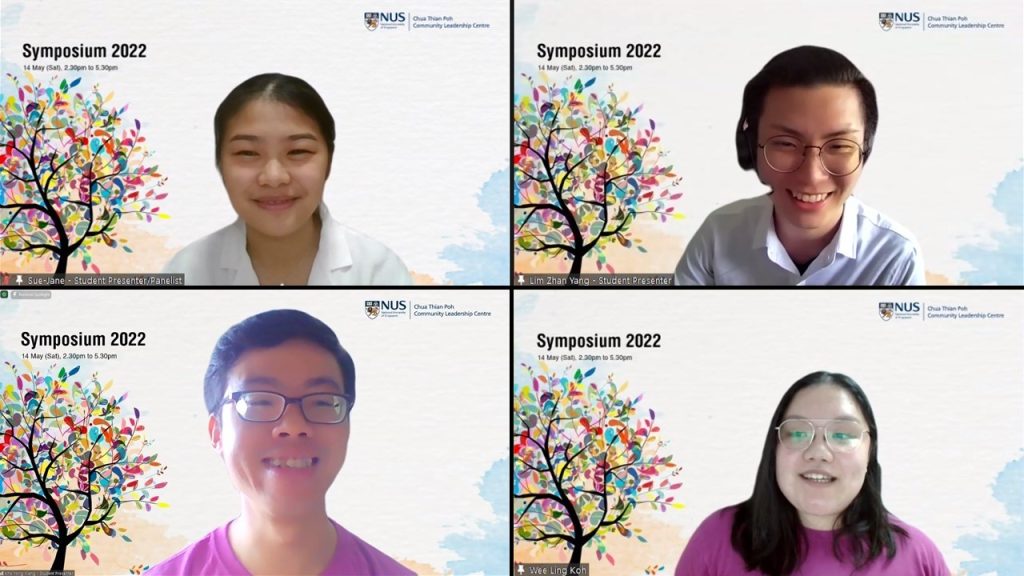
The three projects featured at the symposium were undertaken by NUS students in collaboration with various partner organisations, underscoring a collaborative approach towards creating positive impact in society.
Cheow Sue-Jane and Lim Zhan Yang, Year 4 students from Psychology and Political Science respectively, shared their research findings on the developmental outcomes of youths who had completed a youth changemaker programme run by social enterprise Make The Change (MTC). They found that the youths had expanded their knowledge of the social enterprise sector, and developed their technical skills and interest in serving others. The team’s findings will also guide MTC, which conducts social innovation learning programmes, in the design of future programmes for youths.
The various opportunities for community hospitals in meeting future healthcare needs was the focus of a team led by fourth-year Communications and New Media student Kho Yong Xiang. Guided by the question “How will Singapore's community hospitals look like in the future?”, the team collaborated with the MOH Office for Healthcare Transformation, a unit that takes an experimental and evidence-based approach to redesigning healthcare in Singapore. Together, they identified potential roles that future community hospitals can play within the Singapore healthcare ecosystem, and how the ecosystem can stay agile and move in step with Singapore's changing social demographics.
In presenting her group’s study of Action for AIDS’ (AfA) Love and Sexual Health programme, Koh Wee Ling, a graduate from the CTPCLC programme, elaborated on findings on sexual behaviours and attitudes of young women, as well as their understanding of Human Immunodeficiency Virus and prevention methods for sexually transmitted infections. The outcomes will contribute to AfA’s programme development in raising awareness about sexual health.
CTPCLC Director, Associate Professor Chng Huang Hoon, expressed her pride in how students are contributing to positive change in Singapore society through their research. “Our students’ research signals the first essential step in which they have taken to become impactful youth changemakers in years to come”, she said.
Mental Health in Singapore: A Growing Challenge?This year’s symposium also featured a panel discussion, “Mental health in Singapore: A growing challenge?”. Moderated by CTPCLC instructor Dr Kevin Tan, the discussion – featuring panellists Minister of State Mr Alvin Tan, Mr Tim Lee of Caregivers Alliance Limited, Mr Khoo Yi Feng of Limitless Singapore, and NUS-CTPCLC student Ms Cheow Sue-Jane –offered insights on how different community stakeholders can respond to growing mental health concerns in Singapore.
Minister of State Mr Alvin Tan said that an inter-agency taskforce has been set up to address mental health and well-being issues in Singapore, as the government seeks to co-create solutions to improve the mental health ecosystem in Singapore. He iterated the importance of looking out for others and practising self-care to tend to one’s mental health and well-being. Mr Tan also shared that the taskforce, which has been reviewing the population’s mental health needs, will be launching a public consultation in the coming weeks. He encouraged the audience to look out for the consultation sessions.
As fellow panellist Khoo Yi Feng also characterised it, “mental health needs to be a leadership priority that requires the urgent attention of all levels of institutions, because it has profound implications for performance and collective well-being”.
By NUS Chua Thian Poh Community Leadership Centre
This article first appeared in NUSNews on 23 May 2022.
NUS CHS Open House 2022: Discover #Interdisciplinary Education!
IN BRIEF | 5 min read
- The NUS College of Humanities and Sciences is hosting its Open House 2022 next week and all prospective students who have received offers are invited!
- A two-day hybrid programme – 11 May on Zoom (and viewable on CHS’ Facebook page) and 14 May on several locations across the NUS Kent Ridge campus, specifically the areas around the Faculty of Arts and Social Science (FASS), and the Faculty of Science (FoS) – CHS Open House 2022 aims to address all concerns a prospective undergraduate may have before committing to academic at the University and College.
- Highlights include opportunities to engage, discuss and explore academic pursuits, career development and student life at the College with key faculty and administrative staff and leadership — live and in person.
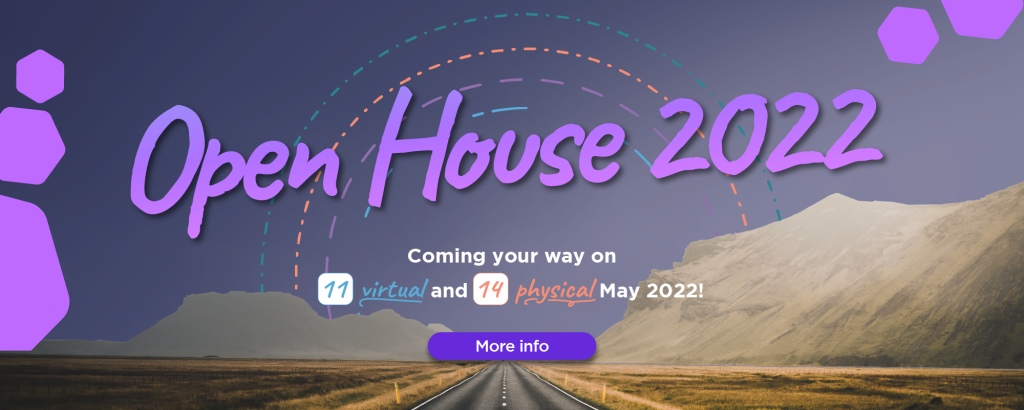
The NUS College of Humanities and Sciences is hosting its Open House 2022 next week and all prospective students who have received their offers are invited. As the deadline for them to accept their offers is looming, CHS has put together a programme aimed at answering all the questions they may have and clarifying all their concerns as much as possible.
Marking a cautiously calibrated return of the University to the normalcy of hosting large on-site events, this year’s CHS Open House is a two-day hybrid programme: 11 May on Zoom (and viewable on CHS’ Facebook page) and 14 May on several locations across the NUS Kent Ridge campus, specifically the areas around the Faculty of Arts and Social Science (FASS), and the Faculty of Science (FoS).*
11 May 2022 (Wednesday): The Essentials, OnlineThis a series of comprehensive information sessions (on Zoom and livestreamed on Facebook Live) covering everything new undergraduates need to know to get the most out of their education journey with CHS, including the:
- CHS Core Curriculum
- College’s three challenging but rewarding cross-disciplinary programmes
- Data Science and Economics (DSE-XDP)
- Environmental Studies (BES-XDP)
- Philosophy, Politics, and Economics (PPE-XDP)
- myriad Learning Pathways laid for you
- versatile career development programmes designed to prepare you for the future workplace
- CHS Student Experience—eye-opening and busy, yet energising and enriching
Speakers and panelists include CHS Co-Deans, Vice-Deans, key faculty staff members, career preparation and student services leader.
For more information and links to the 11 May sessions, click here.
14 May 2022 (Saturday): Get Personal, On CampusThe College is calling for prospective students to come on site, visit where they could well be spending their undergraduate years very soon, and speak to their future instructors and potential mentors. The full-day programme – running in key FASS and FoS locations across the NUS campus – offers:
- entry to witness and even participate in talks/lectures and panel discussions presented and hosted by award-winning instructors on a variety of academic subjects, interdisciplinary topics and specialised research areas
- face-to-face engagement with faculty, admin and student representatives from ALL Departments and student organisations under CHS, and opportunities to explore academic, financial aid and student activity options with the people in the know
- consultation with the career development teams of CHS
- guided Walking Tours across the facilities of FoS and FASS
For more information on the activities planned for 14 May, click here.
Discover Your #Interdisciplinary Future @ CHSThis Open House is the last chance for prospective students to learn more about the complete #interdisciplinary educational experience that they can expect at CHS. One that opens up a world of possibilities and equips them with skills and knowledge across the humanities, social sciences, physical sciences and applied sciences. One that inspires, cultivates and prepares them to work across diverse industries and sectors, with multidisciplinary teams, to solve some of the most complex wicked problems facing the world today — from social inequality to food shortage, unsustainable development and global warming. And one that grooms them to be the leaders of public institutions and private enterprise tomorrow.
* Campus shuttle bus services will be made available on 14 May to all visitors for easier movement across campus, which extends to Kent Ridge MRT.
Open House 2022 Engages and Excites
IN BRIEF | 30 min read
- The ever-popular NUS Open House hit new heights this year, attracting over 8.61 million visitors – a 26.2 per cent increase from the 6.83 million visitors that attended last year's online Open House.
- From 26 Feb to 5 Mar, visitors crowded the websites, livestreams, webinars and social media sessions hosted by the University's colleges, faculties and schools. There was something for everyone, and the event covered everything from academic courses to student life and entrepreneurship programmes.

The ever-popular NUS Open House hit new heights this year, attracting over 8.61 million visitors – a 26.2 per cent increase from the 6.83 million visitors that attended last year's online Open House.
From 26 Feb to 5 Mar, visitors crowded the websites, livestreams, webinars and social media sessions hosted by the University's colleges, faculties and schools. There was something for everyone, and the hybrid event covered everything from academic courses to student life and entrepreneurship programmes.
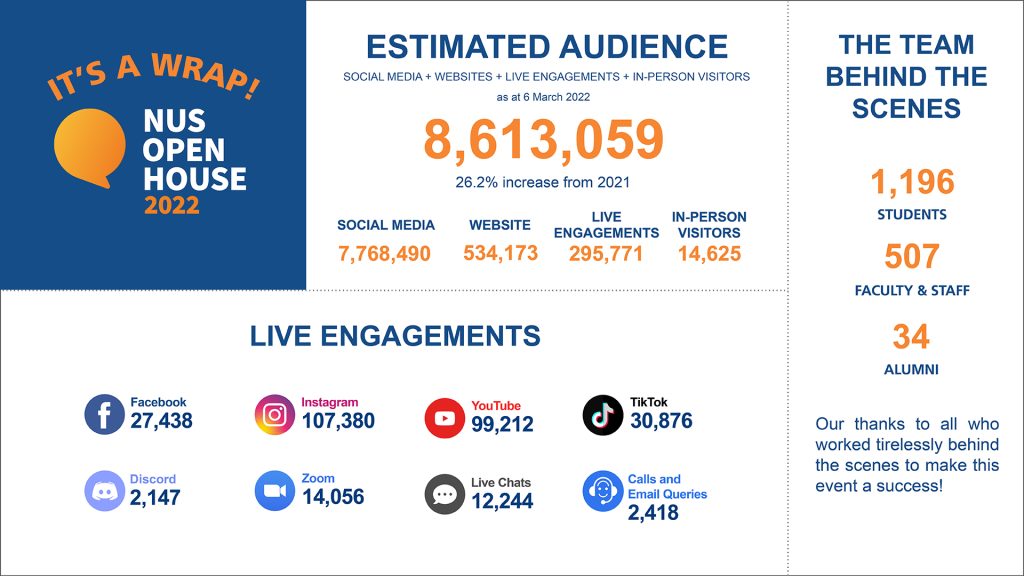
While much of the engagement happened online, prospective students got to meet NUS students and staff face-to-face for the first time since the pandemic started.
The physical Open House, held one sunny Saturday on 5 Mar, included numerous booths showcasing the University’s wide-ranging academic options and vibrant student life; sample classes and talks to get a taste of varsity life; and tours of the different colleges, faculties, and schools.
Prospective students gave the hybrid format a thumbs-up.
Joshua Chua, an alumnus of Anderson Serangoon Junior College, appreciated the online sessions and felt the physical Open House was a huge differentiating factor.
“The (physical) Open House really gave me a good image of what living and studying at NUS could look like by virtue of being an in-person event as opposed to it being virtual, so I'm really grateful to NUS and everyone involved for having this opportunity during the pandemic,” he said.
On her part, Hwa Chong Institution alumna Elsie Woo, who attended both the online and in-person sessions, said, “The experience was really welcoming and wholesome, and really exposed me to NUS as a whole.”
Showcasing the country’s first honours college
One of the highlights this year was the NUS College, Singapore’s first honours college. It will accept its first batch of students this year.
Prospective students were treated to online webinars on the College’s distinctive curriculum, its global pathways, and its focus on hands-on experiential learning. In more intimate breakout rooms, staff and student volunteers readily answered questions about student life and academic pathways. By having a home college or faculty – say Business or Science – while simultaneously being enrolled at NUS College, students will be able to get an educational experience that is as broad as it is deep.
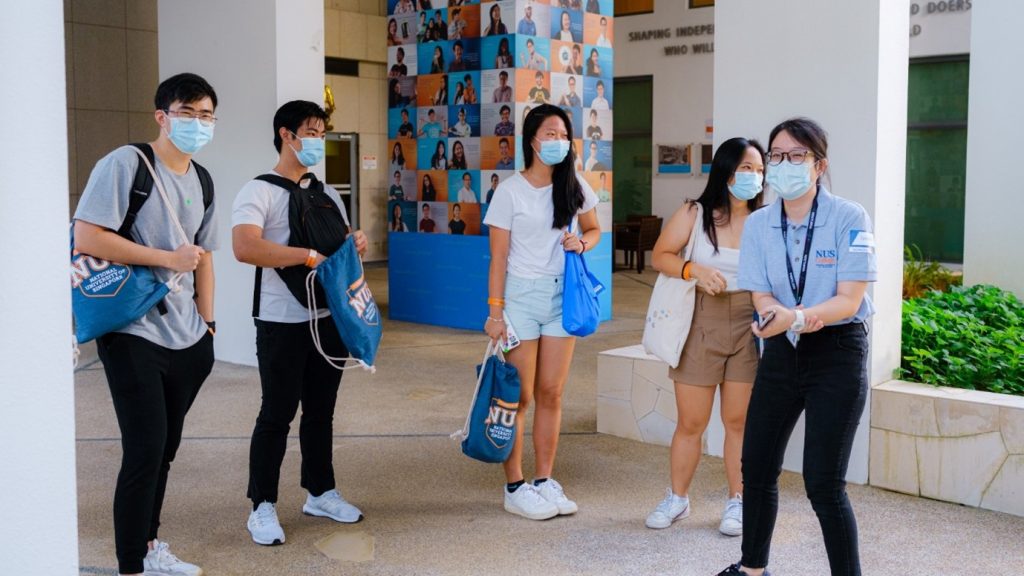
The in-person activities featured a tour of the facilities and residential options that NUS College students would be able to enjoy.
Elsie Woo was one of many students drawn to NUS College’s unique offerings.
“I attended a few webinars, including introductory talks for NUS College and Food Science and Technology,” said Elsie, who also visited many booths in-person.
“The sessions were very well-planned and the seniors were extremely helpful and patient.”
Nanyang Polytechnic alumnus Koh Jin Yuen focused his time on NUS College, attending the College’s guided tour and virtual sharing sessions.
“The NUS College tour was informative as I got to ask the facilitators about their experiences. I think the curriculum is very meaningful,” said Jin Yuen.
“The Open House helped to deepen my understanding of how NUS College works, and allowed me to better understand the lifestyle of a student from NUS College.” He is intending to apply for the Information Systems programme offered by NUS Computing, as well as NUS College.
Ramping up interdisciplinary offerings
Exciting developments in the realm of interdisciplinary education—a major theme that NUS has been championing—were foregrounded at the Open House, with the College of Design and Engineering (CDE) also taking in its inaugural cohort. A result of the merger of the Faculty of Engineering and the School of Design and Environment, CDE is set to transform the NUS educational experience.
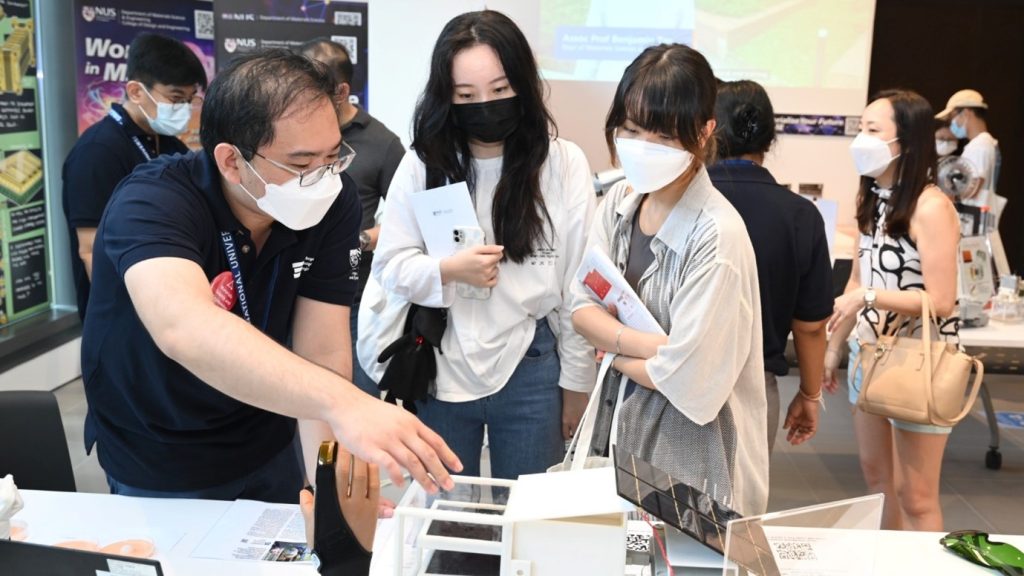
Across five galleries and 19 sub-categories, including Architecture, Industrial Design, Materials Science and Engineering, Biomedical Engineering, and Civil Engineering, visitors were presented with an informative display of the wide range of courses and programmes that will be on offer in the new College.
Raffles Institution alumna Grace Zai, who visited the Designing the Future exhibition and galleries, said, “The Engineering galleries were very informative as I could ask questions I had about the course, as well as student life, and get a clearer picture of what I would be studying and doing. It helped me make a more informed decision on my choices.”
Grace is considering applying to Engineering Science and Architecture, as well as Mechanical Engineering and Electrical Engineering with a specialisation in robotics.
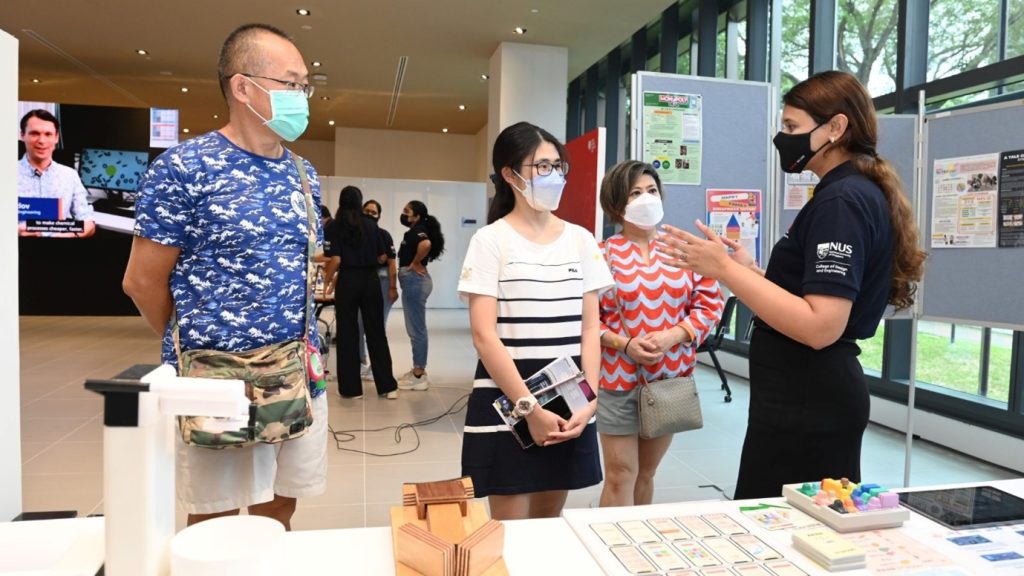
There were also panel discussions, both online and in-person, where faculty and current students interacted with prospective students to share their experiences and answer questions about the new interdisciplinary curriculum.
“As a prospective student, I got to see first-hand the school facilities, as well as the accommodations. My experience was pretty enriching and enlightening because I could ask the professors questions I had in mind and learn more about the courses,” said Timothy Tay, a graduate of Victoria Junior College who visited the SDE gallery on Sustainable Innovations.
“For example, I did not realise Project Facilities Management (PFM) was recently changed to Infrastructure Project Management (IPM). The professor explained that students will now graduate with a BEng degree rather than a BSc degree,” he recalled, referring to the first interdisciplinary full-time undergraduate programme to cover engineering, design, management, technology, building science and law modules.
Information was also available on the vibrant student life of the College’s various clubs and societies, as well as career programmes that enable students to better understand their interests and what it takes to marry that with industry skills and experience.
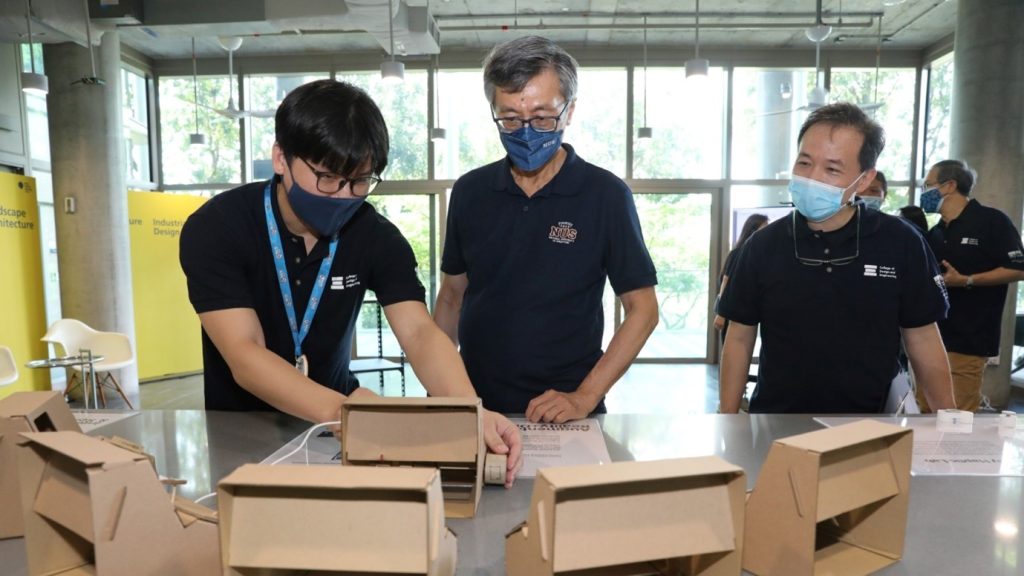
“The NUS Open House provided me with a more informed perspective on the courses offered in NUS. The various booths set up and run by students allowed for quick chats about what the courses have to offer. The responses by the students and professors were engaging and genuine, which I found informative in making my choice for courses in NUS,” said Kalepu Sai Sri Akshath, who attended CDE’s online and in-person events with his family and is intending to apply to Computer Engineering.
Drone-sensing demonstrations and the Solar Roof Tour, 5G Lab Tour, and BEEHUB Tour further showcased the College’s manifold facilities. Visitors also got a first-hand experience of NUS’ very own net-zero energy building through tours at SDE4, itself a product of both architecture and engineering, and the first of its kind in Singapore.
A marriage of the humanities and sciences
Continuing in the vein of interdisciplinarity and equipping students with a multifaceted, integrated toolbox of skills to thrive in the future economy is the College of Humanities and Sciences (CHS), which will be accepting its second intake this year.
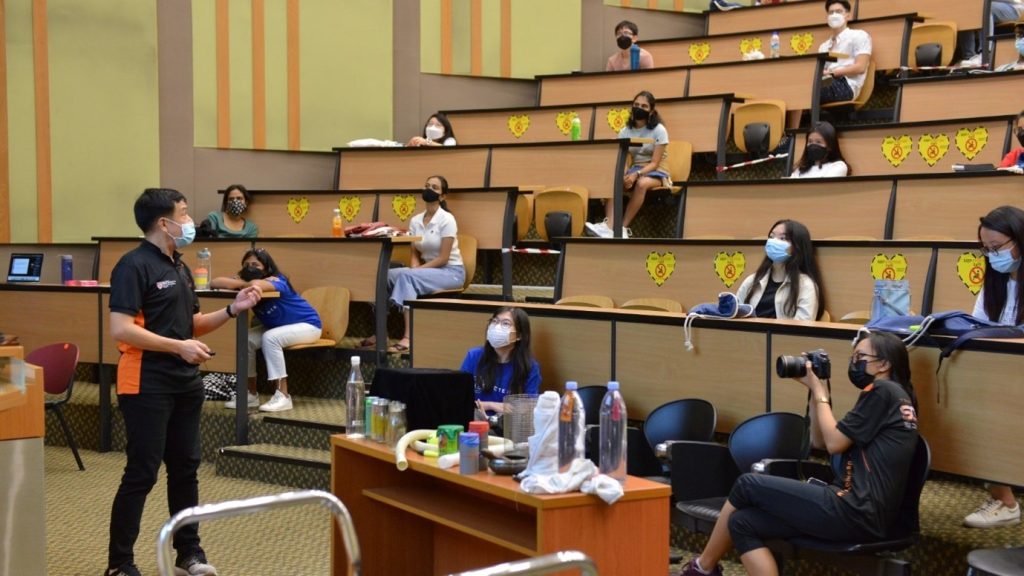
Seminars about the CHS Core Curriculum were available at the Open House, as well as informative masterclasses that covered a vast range of interdisciplinary topics.
The Data Science and Economics masterclass saw Assoc Prof Lim Tiong Wee and Assoc Prof Chen Ying (Statistics & Data Science, Faculty of Science) and Dr Denis Tkachenko (Faculty of Arts and Social Sciences) break down the complexities of the digital economy with real-life examples, and explicate its relevance to Singapore’s Smart Nation goals.
The new Data Science and Economics (DSE) cross-disciplinary programme will be the first of its kind in Singapore to integrate knowledge across these two disciplines.
“I got to understand how data science and economics complement each other,” said Russell Hor, a graduate of St. Joseph's Institution who has finished National Service and is enrolling in CHS this year.
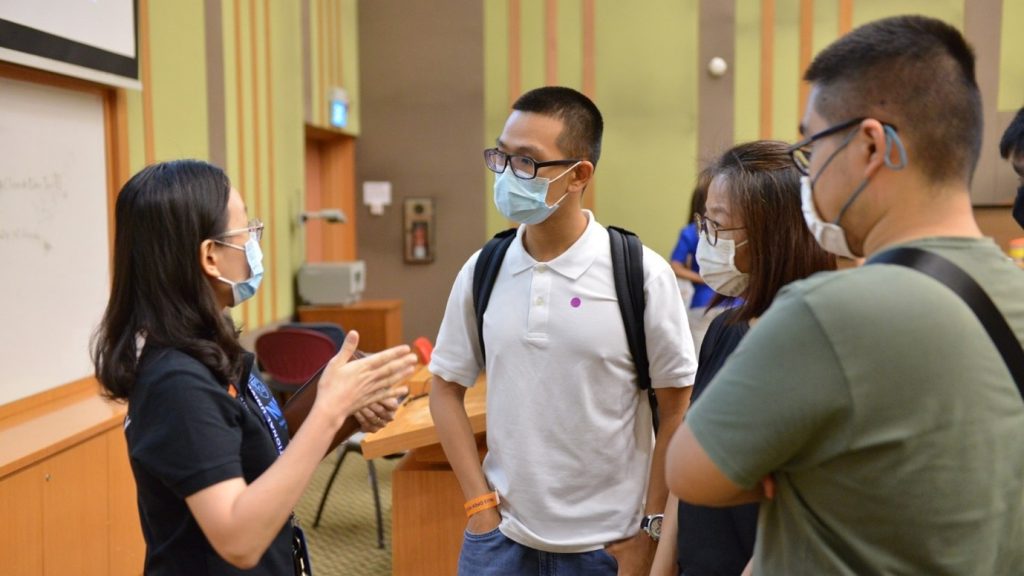
Vanille Goh, who graduated from Anglo-Chinese Junior College and attended the Geography and Environmental Studies masterclasses, said, “[The masterclasses] provided me with a good overview of how passionate the lecturers were and how each course will adequately prepare me for what I would want to do in the future.”
Nanyang Junior College alumna Wen Xinyue also appreciated the in-person masterclasses, adding that they gave her a first-hand glimpse into studying humanities at the university level.
“I am interested in studying English, and from the English Language and Literature masterclass on Gender, Sexuality and Language, I learnt about how entrenched gender roles and stereotypes can be within the language we use,” she shared.
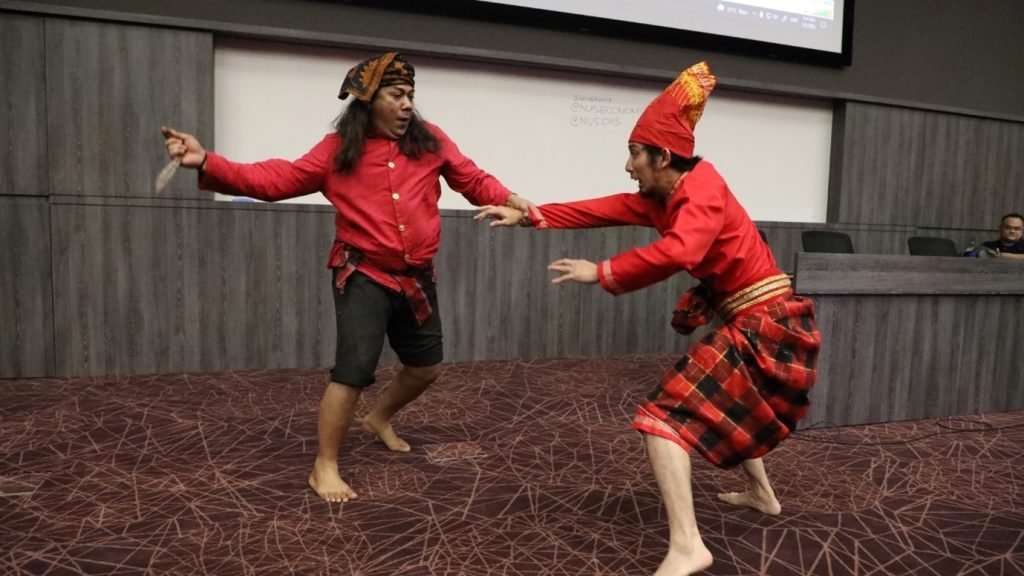
Meanwhile, over at the “Insights into Southeast Asia from the Martial Arts Perspective” masterclass, Dr Mohamed Effendy of NUS Southeast Asian Studies presented prospective students with a riveting intellectual and visual treat, demonstrating how useful unique perspectives on the region’s myriad communities can be gleaned by studying them through the lens of the martial arts. Students saw the concepts brought to life – witnessing first-hand an exciting live demonstration by practitioners of pencak silat – of how Southeast Asian warriors of old defended themselves using a wide array of techniques and weapons.
Action aplenty
There was action aplenty among other faculties. NUS Business School’s programmes included a 360 live tour, as well as live chats with the BBA Deans on the different majors offered by the School. Its in-person sessions included sharing sessions by the BBA Deans, BIZCareers advisors, and student ambassadors.
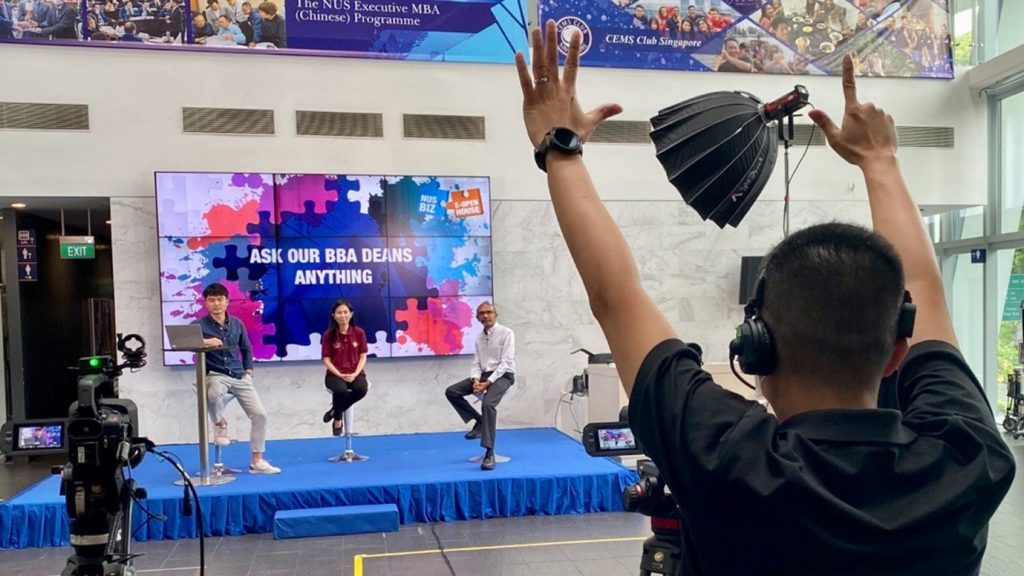
Year 4 Accountancy and Finance undergraduate Calvin Chur was one such student volunteer, serving as an emcee for the online Open House and sharing in-person on 5 Mar about life at the Business School.
“It was a tiring, but extremely fulfilling day engaging with prospective students, learning about their concerns with regards to entering a new phase of life and trying to address those concerns,” said Calvin. “In fact, many of their concerns mirrored those that I had as a fresh A-level graduate attending the NUS Open House back in 2016 – and I am glad that I could offer insider insights to help them make an informed decision at this major milestone of their lives.”
Year 4 Real Estate undergraduate Natasha Liem, another student volunteer who served as an emcee, added, “There was quite a large number of viewers for the panel and a prospective student actually sent me a message on Instagram to enquire more about real estate from a student's perspective. I think the panel went well!”
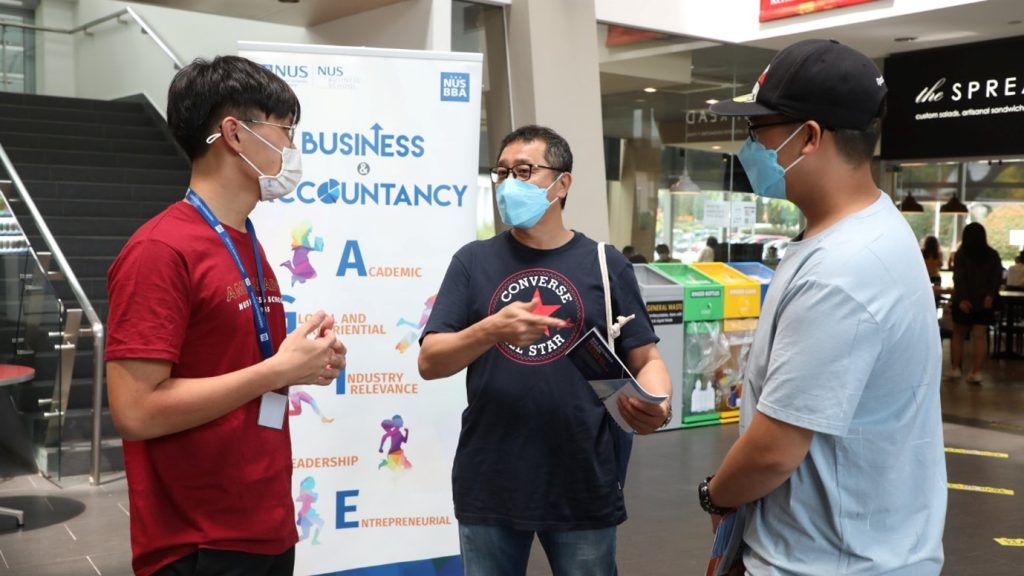
For NUS Business School Executive (Marketing & Outreach) Ms Casey Jean Grant, it was an eye-opener to experience the whole planning process.
“Most of the students and parents were very curious and excited about the prospect of coming to NUS Business School,” she added. “Their excitement definitely rubbed off on us and made the rest of us excited to share about our School.”
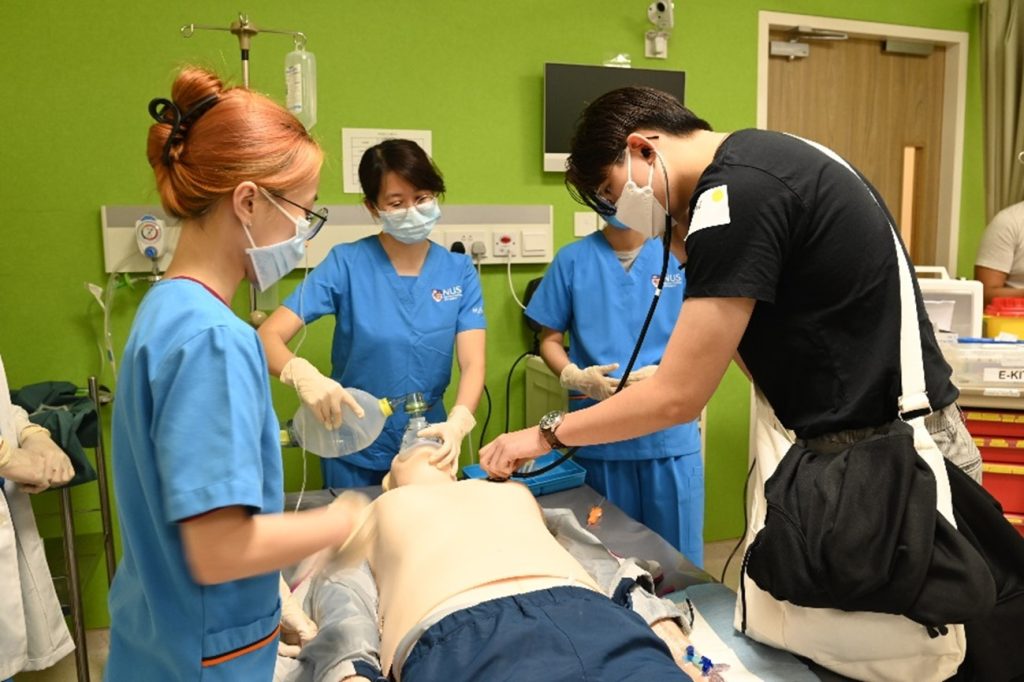
With frontline healthcare workers being in the spotlight these couple of years, there was plenty of interest in NUS Dentistry, NUS Nursing, NUS Medicine, and Duke-NUS Medical School. Live demonstrations were conducted and prospective students got a taste of what it would be like to be a dentist, nurse or doctor.
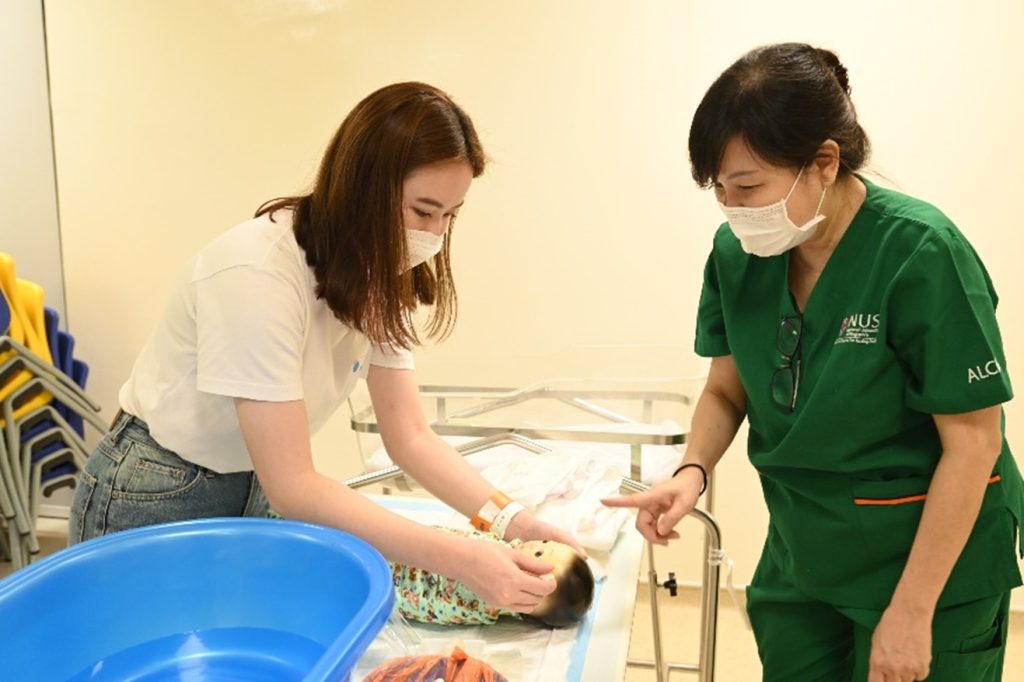
Serving up a slice of campus life
Whether on the screen or in the flesh, visitors to the Open House also witnessed the rich and vibrant student life beyond the classroom that NUS is known for.
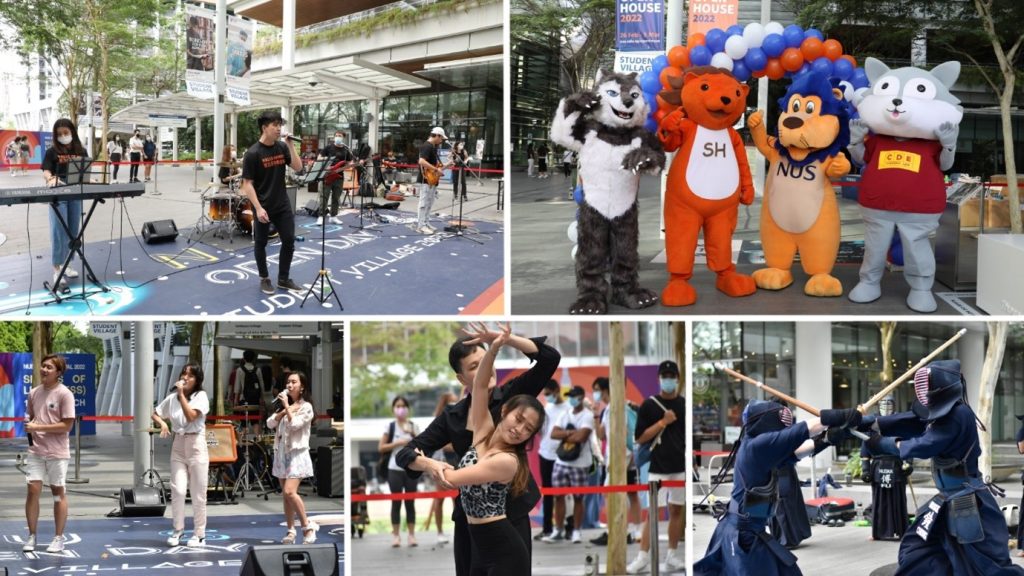
Besides holding talks to acquaint visitors with the wide range of co-curricular activities available, student clubs and societies rose to the occasion at the Student Village showcases to feature a spectacular smorgasbord of music, dance and sporting performance across the eight days that Open House was on. Visitors were serenaded by soulful tunes by the NUS Jazz Band and wowed by the moves of NUS Kendo Club. They were also treated to cheerleading displays, snazzy dance performances by NUS Funkstyle and BreakiNUS, catchy renditions of contemporary pop and choral music by the a cappella group Resonance, and the dulcet tones of TheNUSChoir and the NUS Mandopop group Voices.
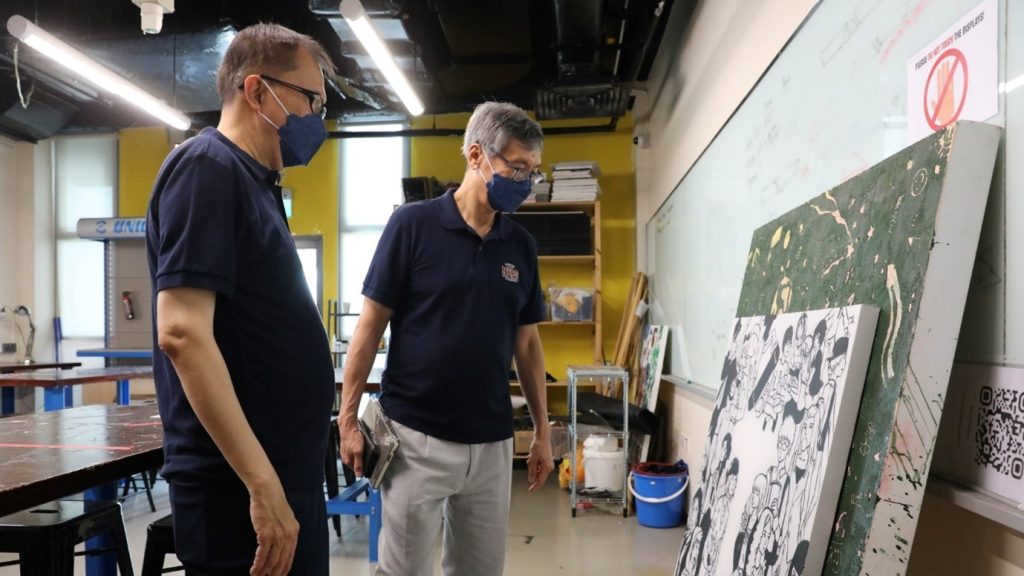
"It was really lively with dozens of booths as well as live performances put on by really talented students! It truly allowed me to understand the culture here and makes me want to be a part of it after experiencing first hand,” Vanille Goh shared.
Students and hall masters from the halls and residences also conducted informative residential life talks, A-Day-in-the-Life-Of vlog sessions and Ask-Me-Anything sessions to help students interested in on-campus living understand its manifold aspects like academic programmes and pastoral care.
These were complemented by in-person tours of King Edward VII Hall, NUS College, Ridge View Residential College, Tembusu College, RC4, and Pioneer House, NUS’ newest housing model, giving participants a real taste of the sense of community and camaraderie that comes with residential life in NUS.
Joshua Chua, who also participated in the RC4 tour, said, “The RC4 tour was definitely a highlight because the tour guide, as with most staff and students, was welcoming and frank, which eased my nervousness.”
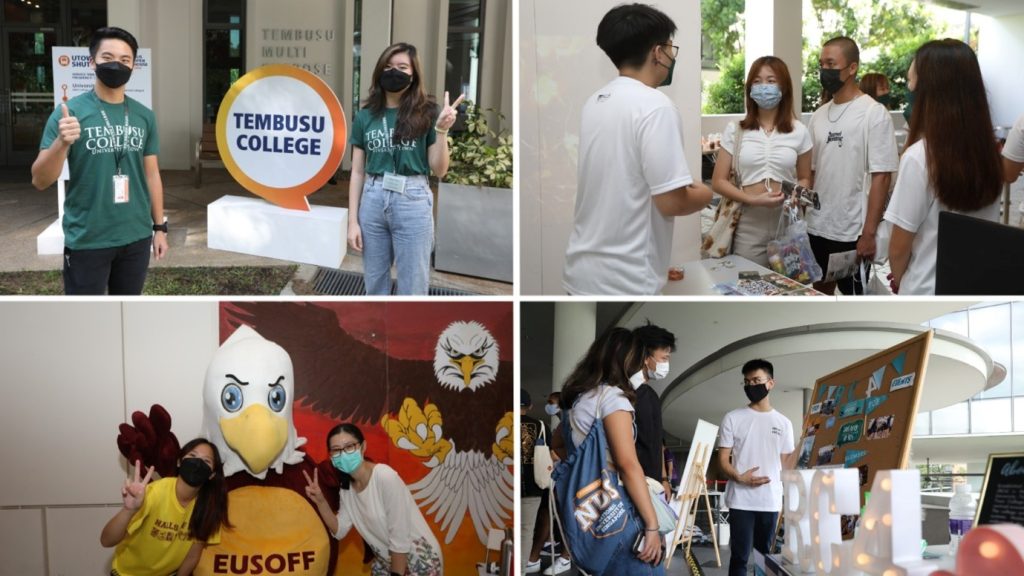
Matthew Yeow, an alumnus of Anglo-Chinese School (Independent) who attended both online and in-person sharing sessions by student residents of the Residential Colleges, said, “During the physical Open House, I had the opportunity to find out a lot more about the residential colleges and what made them distinct from halls. Furthermore, I also got to find out more about the individual residential colleges and their communities, as well as the additional modules they took.”
“As a prospective student, I think the Open House was executed effectively through both the online and physical mediums. Having the opportunity to come down and visit the University and talk to the current students gave me a better understanding of student life in NUS,” he added.
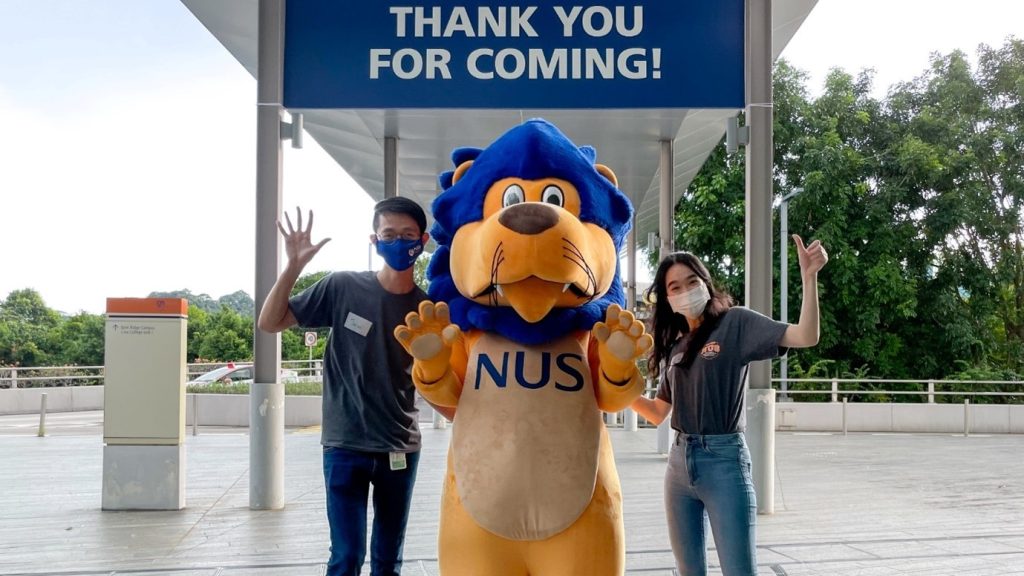
This story first appeared on NUSNews on 8 March 2022.
New Courses for the New Economy
IN BRIEF | 5 min read
- NUS is offering a number of new programmes to prepare graduates for the future, including the much-anticipated Major in Anthropology, and Minor in Interpreting by the NUS Department of Chinese Studies.
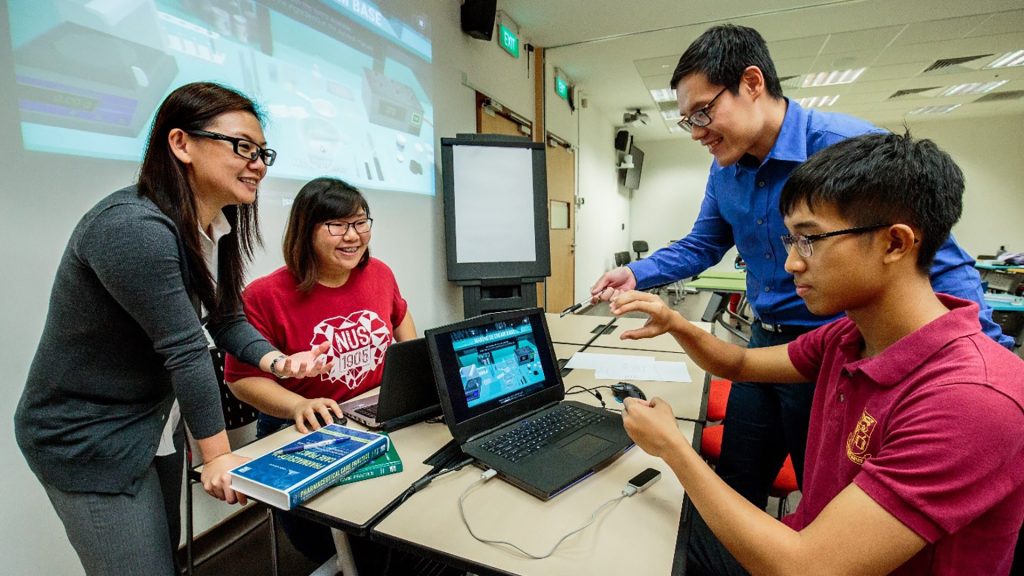
The University’s key theme of preparing undergraduates for the workplace of the future will be further enhanced with the launch of new majors, minors and degree specialisations in the upcoming academic year. About 10 new courses are on the cards.
New programmes from the NUS College of Design and Engineering (CDE), NUS Faculty of Science, NUS School of Computing, and NUS Faculty of Arts and Social Sciences will cover areas such as Artificial Intelligence, technology, data science, sustainability, globalisation. They will add on to the interdisciplinary offerings by the flagship NUS College, Singapore’s first honours college welcoming its first cohort in August – as well as those by the College of Humanities and Sciences (CHS).
“The overall goal of all our education reform efforts is to advance a university curriculum that prepares students well for a Fourth Industrial Revolution world and workplace,” said Professor Bernard Tan, NUS Senior Vice Provost (Undergraduate Education).
“Our education, focused on both breadth and depth, ensures that our graduates are held in high regard by employers. Last year, more than nine in 10 NUS graduates secured a job within six months of their final examinations.”
New majors and minors
Bachelor of Engineering (Infrastructure and Project Management)Offered by CDE’s Department of the Built Environment, this degree will equip graduates with the knowledge and interdisciplinary skills to excel in the multifaceted built environment. This is the first interdisciplinary full-time undergraduate programme to cover engineering, design, management, technology, building science and law modules. Major in Anthropology
Offered by the NUS Faculty of Arts and Social Sciences to all CHS students, this major will study the range of human diversity, accounting for how people in different times and places have developed into distinctly different societies. The degree will expose students to a vast variety of different beliefs and health practices, economic and political systems, material culture, and even different notions of beauty, the environment, food, family, and the good life.
Anthropology is much sought after for the sort of training it offers its students – a ground up approach to developing deep understanding on just about every aspect of the human condition. Students will be equipped to better understand and deal with the chaos, uncertainty, and ambiguity that characterises the contemporary age.
Second Major in Sustainable Urban DevelopmentOffered by CDE’s Department of Civil and Environmental Engineering, it aims to train the next generation of urban problem-solvers. They will be equipped with interdisciplinary knowledge and skills to create sustainable urban environments in the context of the changing climate. Open to all NUS undergraduate students, this major is stackable to students’ primary major in their chosen field, and can be completed in four years with no additional academic workload. Second Major in Nutrition
This will be offered by the Faculty of Science to all CHS students, including those reading Food Science and Technology as the primary major. It is designed to equip students with knowledge in human nutrition, providing them with the necessary foundation to develop a cross-disciplinary perspective along the food supply chain – from farm to fork to health. Minor in Interpreting
Multilingualism is a defining characteristic of Singapore’s multi-ethnic, immigrant society. With four official languages and with English as the working language, translating and interpreting between each of the mother tongues and English has always been a prominent feature of Singapore society. Against this backdrop, the NUS Department of Chinese Studies has placed as one of its core objectives, the training of graduates with strong Chinese-English bilingual skills who can become leaders in the translation and interpreting arenas.
This new Minor will allow students a related alternative to translation, or as an affiliated Minor to Translation which is already being offered at the Department.
New specialisations
Three new specialisations will be offered by the NUS School of Computing:
Specialisation in Digital Product and Platform ManagementThis will be offered to students pursuing the Bachelor of Computing (Information Systems) Degree. They will build up a repertoire of knowledge and skills sought after by both technology companies and the digital immigrant companies that are fast adopting the product- and platform-centric technology and business operating models. Specialisation in Intelligent Systems Solutioning
Students pursuing the Bachelor of Computing (Information Systems) Degree can also take this new specialisation to learn to implement and apply intelligent system solutions buttressed by the new technologies of Artificial Intelligence, the Internet of Things, and Augmented Reality. They will learn to apply these new technologies in software engineering, and to implement and manage intelligent system solutions. Graduates will be able to take on job roles in intelligent systems engineering and solutioning. Specialisation in Machine Learning-based Analytics
This new specialisation for Bachelor of Science (Business Analytics) students will enable students to tap into the analytics capabilities of Machine Learning, a sub-field of Artificial Intelligence. They will learn to rapidly and automatically develop models that can quickly and accurately analyse massive, complex data sets, in order to help businesses unlock the value of corporate and customer data and enact decisions that keep them ahead of the competition. Graduates will be able to take on careers in the rapidly-growing business and data analytics field, among others.
New modules
Aside from the new majors, minors and specialisations, a number of new modules are being offered. For instance, the NUS School of Computing is starting a Digital Ethics and Data Privacy module to educate students on this pertinent and pressing issue.
The NUS Faculty of Law is introducing two modules – one on Law & Technology and one on Data Literacy – as technology and data are increasingly being key drivers for the legal industry.
Find out more about the courses offered by the University, and explore this year’s Open House. Here are four things to look out for at the Open House.
This story first appeared on NUSNews on 24 February 2022.
NUS Open House 2022: Interdisciplinary Offerings, In-person Activities and More!
IN BRIEF | 5 min read
- NUS Open House 2022 is back with opportunities for prospective students to meet NUS professors, students and alumni face-to-face, after two years of connecting virtually.
- Running from 26 February through 5 March, NUS Open House 2022 will begin with a comprehensive line-up of informative activities, including the online segment, during the week leading up to the physical Open House, which takes place on Saturday, 5 March from 9 am to 7 pm across NUS’ campuses in Kent Ridge and Bukit Timah.

NUS Open House 2022 is back with opportunities for prospective students to meet NUS professors, students and alumni face-to-face, after two years of connecting virtually.
The physical event will take place on Sat, 5 Mar from 9am to 7pm across NUS’ campuses in Kent Ridge and Bukit Timah. This will be preceded by a comprehensive line-up of informative activities during the week leading up to the physical Open House.
Including the online segment, NUS Open House 2022 takes place from 26 Feb to 5 Mar. Here’s a heads-up on four things to check out:
1. Exciting interdisciplinary offerings
NUS College, Singapore’s first honours college, was formed by the merger of the University Scholars Programme and Yale-NUS College. Offering an immersive, experiential and interdisciplinary educational journey, it will welcome its first batch of students this year. Students will have a home college or faculty, say, Business or Engineering, while simultaneously being enrolled at NUS College. There, they will have the opportunity to enjoy a holistic interdisciplinary curriculum that is complementary to their major.
Another option for interdisciplinary learning can be found at NUS College of Design and Engineering. The College offers a programme that prepares students for the future through interdisciplinary learning and robust research in the fields of engineering and design. At the College, students are given the flexibility to build and design their own learning experience.
The NUS College of Humanities and Sciences, the enhanced undergraduate experience for students of the Faculty of Arts & Social Sciences and the Faculty of Science, is accepting its second intake this year. The College offers 13 Common Curriculum pillars consisting of modules such as scientific inquiry, humanities, digital literacy, design thinking, artificial intelligence and many more exciting options. These are complemented by majors and minors spanning the arts, humanities and sciences, such as global studies, philosophy, theatre and performance studies, quantitative finance, data analytics and pharmaceutical science. Students can pick and choose modules to create a customised curriculum that matches their interest and aspirations.
To ensure that graduates are ready to take on leading roles in the New Economy, NUS constantly develops new courses. Here are this year's new offerings.

2. Meeting you in person - again
After two years of meeting virtually, the NUS community is excited to get together in real life with prospective students once again!
You can look forward to an enlightening schedule of in-person activities including a tour of the Centre for Healthcare Simulation by NUS Nursing; tours of residential living options such as Tembusu College, CAPT (College of Alice & Peter Tan), and RC4; a live demonstration of a moot court session and tour of the NUS Bukit Timah campus by NUS Law; tours and a showcase of NUS College; as well as a live question-and-answer session with Duke-NUS Medical School.
3. Webinars, talks, live chats, hotlines and more
Get a taste of life as an NUS student, even before the physical event. A host of insightful webinars, talks, question-and-answer sessions, live chats, hotlines, and virtual tours have been arranged starting 26 Feb to give you a head start on topics such as admissions, student life, and on-campus living, as well as programmes offered by NUS College, the College of Design and Engineering, the College of Humanities and Sciences, Business, Music and many more.
Obtain behind-the-scenes knowledge from NUS student ambassadors and the NUS Students’ Union on the rich student life available at NUS, and be serenaded by NUS Choir and NUS Jazz Band.
Professors will be on hand to share information on their respective programmes, and you’ll even have a chance to sit in on classes. Have a question that is not covered by the briefing? No sweat! There’ll be chat sessions with NUS Admissions, professors and students from selected programmes during which you can get your queries addressed.
Click here for the list of virtual and in-person activities for NUS Open House.

4. Exciting student life
NUS offers a myriad options for a rich student life, and NUS Open House is the perfect place to start exploring the possibilities. Many alumni recall their NUS days fondly, remembering not only the academic progress they made, but the camaraderie forged with friends from clubs, societies and on-campus residences.
Throughout the period of the online Open House and during the physical event, representatives from various student-led groups will speak on topics including hall life, clubs and societies, as well as campus performing groups. Take part in a live session with music and dance groups, embark on a virtual residential tour, and more.
We’re looking forward to seeing you online from 26 Feb and in-person on 5 Mar!
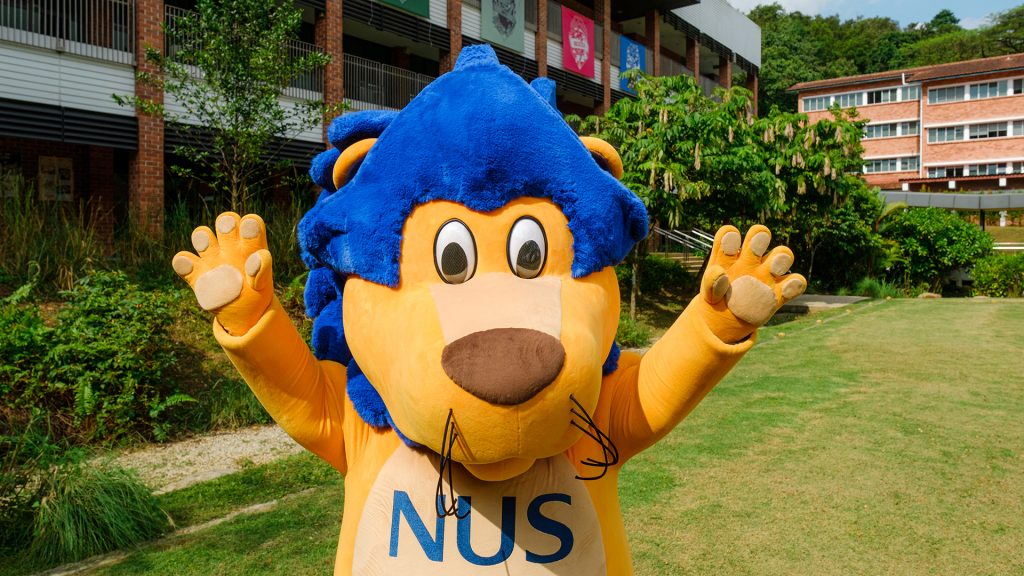
This story first appeared on NUSNews on 23 February 2022.
FASS Inspiring Mentor 2021 Award Winners Announced

The NUS Faculty of Arts and Social Sciences is proud to announce the winners of the 2021 FASS Inspiring Mentor Awards.
Congratulations to:
- Prof Jack Qiu Linchuan, Professor, Department of Communications and New Media
- Assoc Prof Loy Hui Chieh, Associate Professor, Department of Philosophy
- Assoc Prof Robin Loon Seong Yun, Associate Professor, Department of English Language and Literature
- Dr Michael Yoshitaka Erlewine, Assistant Professor, Department of English Language and Literature
- Dr Nina Laurel Powell, Senior Lecturer, Department of Psychology
Winners of AY2020-21 Faculty Teaching Excellence Awards Unveiled
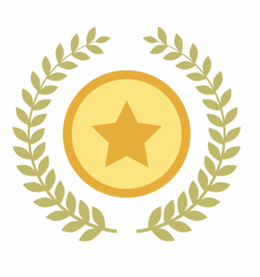 The NUS Faculty of Arts and Social Sciences is proud to announce the 37 winners of the Faculty Teaching Excellence Award for their work in AY2020‐21, 16 of which have also been nominated for the Annual Teaching Excellence Award(ATEA) and Annual Digital Education Award (ADEA).
The NUS Faculty of Arts and Social Sciences is proud to announce the 37 winners of the Faculty Teaching Excellence Award for their work in AY2020‐21, 16 of which have also been nominated for the Annual Teaching Excellence Award(ATEA) and Annual Digital Education Award (ADEA).
Special thanks are due to members of the Faculty Teaching Excellence Committee–Dr Susan Ang (English Language and Literature and Chair of FTEC), A/P Loy Hui Chieh (Philosophy; FASS Vice‐Dean), A/P Lim Wee Hun, Stephen (Psychology), Dr Gilbert Yeoh (English Language and Literature) and Mrs Chen Ing Ru (Centre for Language Studies)–for their efforts in shortlisting and nominating the winners.
|
NAME |
DEPARTMENT |
|
Mr Appriou Yannick Francois |
Centre for Language Studies |
|
Ms Baranska, Malwina |
Centre for Language Studies |
|
Ms Klayklueng, Sasiwimol |
Centre for Language Studies |
|
Ms Morita, Kazuko |
Centre for Language Studies |
|
Dr Chaidaroon Suwichit |
Communications and New Media |
|
Dr Hong Renyi |
Communications and New Media |
|
Dr Mitchell, Alexander Ian |
Communications and New Media |
|
Dr Shobha Avadhani |
Communications and New Media |
|
Mr Tan Kai En |
Communications and New Media |
|
Dr Timothy Wong Chong Ji |
Economics |
|
Dr Vu Thanh Hai |
Economics |
|
A/P Michelle M. Lazar |
English Language & Literature |
|
Dr Miguel Escobar Varela |
English Language & Literature |
|
A/P Starr Rebecca Lurie |
English Language & Literature |
|
A/P Thell Anne Marie |
English Language & Literature |
|
Dr Roy, Tania |
English Language & Literature |
|
A/P Chang Tou Chuang |
Geography |
|
A/P Daniel Adam Friess |
Geography |
|
Dr Gretchen Christina Coffman |
Geography |
|
Dr Kamalini Ramdas |
Geography |
|
Dr Kenney-Lazar Miles Richard |
Geography |
|
Dr Teo Sheng Kiat, Shaun |
Geography |
|
Dr Donna Maree Brunero |
History |
|
Dr Lawrence, Kelvin |
History |
|
Dr Sayaka Chatani |
History |
|
Dr Beddor, Robert Speeter |
Philosophy |
|
Prof Bain, William Ward |
Political Science |
|
Dr Dunya Deniz Lepori |
Political Science |
|
Dr Jia Lile |
Psychology |
|
Dr Nina Laurel Powell |
Psychology |
|
Dr Wong Shi Hui Sarah |
Psychology |
|
Dr Peace Wong Yuh Ju |
Social Work |
|
Dr Chua Hui Ching, Emily |
Sociology |
|
Dr Elliott Edward Prasse-Freeman |
Sociology |
|
Dr Jennifer Emily Estes |
Sociology |
|
Dr Noorman Abdullah |
Sociology |
|
Dr Radics, George Baylon |
Sociology |
Congratulations to them all!
FASS Announces New Additions to Leadership Team
IN BRIEF | 2 min read
The NUS Faculty of Arts and Social Sciences is pleased to announce recent new appointments to the Faculty's leadership team.
Three eminent members of the Faculty received new appointments to the Deanery at the beginning of this year:
- Professor Joseph Park (English Language and Literature)
Vice-Dean (Undergraduate Studies) - Dr Zhang Yang (Economics)
Associate Dean (Undergraduate Studies) - Dr Noorman Abdullah (Sociology)
Assistant Dean (External Relations and Student Life)
We wish them the very best with their new portfolios. Click here to visit the FASS Deanery page.




NUS Bags Major PR Award for College of Humanities and Sciences Campaign

One year since the official inauguration of the NUS College of Humanities and Sciences (CHS), the publicity campaign for the new College has gained recognition at the recent Public Relations in the Service of Mankind (PRISM) Awards.
The University bagged a Distinction Award in the category “Outstanding Campaign by a Non-Government Organisation or Not-For-Profit Organisation” for the launch and publicity of the interdisciplinary College.
The award recognises NUS’ effective communications regarding the necessity of an interdisciplinary education to faculty members, prospective students and their parents, alumni, employers, and members of the public.
The campaign also underscored what CHS offers students in a world plagued by complex challenges that require integrated interdisciplinary approaches. The campaign included the launch event, student profiles, social media, and CHS collaterals and media assets in the form of CHS-specific infographics, news and FAQs.
The campaign also included a video series on interdisciplinarity, a podcast series by the teaching team of the common curriculum Humanities module, and stakeholder endorsement in the form of testimonials from students and alumni of NUS Faculty of Arts and Social Sciences (FASS) and the NUS Faculty of Science (FoS) who have pursued interdisciplinary studies. A successful admissions publicity campaign was run, including the 2021 NUS Open House which drummed up interest in the College with student and employer panels, small group tours, and student chat rooms.
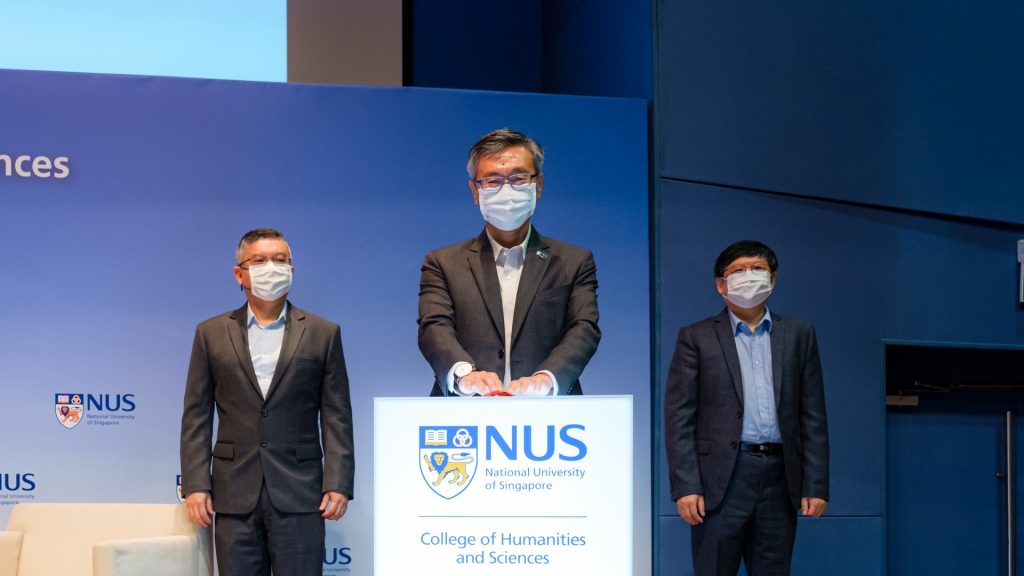
The accolade from PRISM, which coincides with the one-year anniversary of the official inauguration of CHS, bears testament to the concerted effort on multiple fronts of the campaign by various stakeholders, including the Communications teams from FASS and FoS, the NUS Office of University Communications and communications agency AKA Asia.
“The award comes as a truly wonderful one-year anniversary gift to all our colleagues involved in the CHS campaign,” said NUS Chief Communications Officer Ms Ovidia Lim-Rajaram.
“It is gratifying to know that our efforts to kickstart a meaningful, groundbreaking programme at the College are paying off, and that the journey to promoting an interdisciplinary, 21st-century educational experience at NUS is off to a great start.”
Communications at CHS is co-led by Mr Nisar Keshvani, Associate Director for Strategic Outreach and Communications at FASS, and Ms Janice Quah, Associate Director for Corporate Communications at FoS.
“The campaign award, a result of the synergy and collaboration across diverse University faculties and departments, epitomises the spirit of interdisciplinarity that CHS values, and the idea of capitalising on each other’s strengths to achieve the best outcomes,” Mr Keshvani said.
Ms Quah added, “It has been a challenging journey but seeing our communications ideas collectively come to fruition is truly fulfilling! The validation of the hard work motivates us to continue raising the bar, to sustain the impactful profiling of CHS to students and stakeholders.”
Recognising the best in public relations
Celebrating 44 winners across 27 categories, the PRISM awards ceremony was held on 15 Dec by the Institute of Public Relations Singapore (IPRS), the only accrediting body for public relations practitioners in Singapore. The Guest of Honour was Mr Tan Kiat How, Minister of State at the Ministry of Communications and Information (MCI).
Acknowledging the challenges of a shifting communications landscape, Mr Tan said, “MCI recognises the importance of excellence in public relations and communications across all sectors of the economy.”
“The campaigns up for awards today show how all of you have worked around these challenges and continued to achieve excellent levels of reach and impact.”
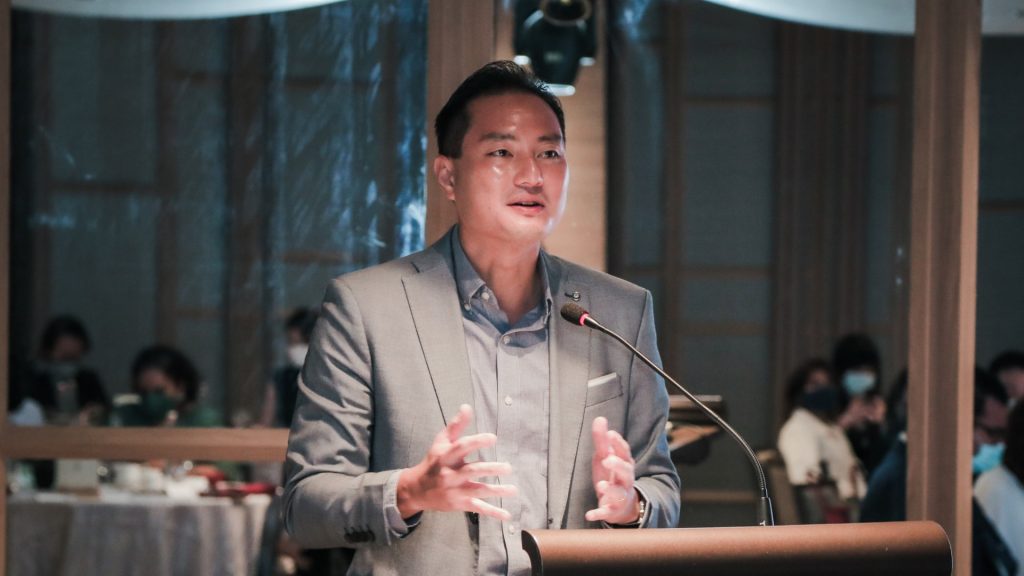
Held biennially since 1987, the PRISM Awards is one of the oldest and most prestigious awards in the industry, celebrating Singapore’s brightest stars in the communications and public relations industry. It is judged by a panel of established business leaders and senior practitioners, recognising and honouring organisations and individuals for excellence in public relations and communications.
Ms Koh Juat Muay, President of the IPRS Council 2021/2023 said, “The winning entries and the winners this year reveal a singular story – the resilience of our people, the ingenuity of the campaigns and strength of the organisations that continues to thrive in an evolving local and global communications landscape.”
“IPRS is privileged to hold PRISM Awards 2021 and share in the pride of profession demonstrated by our people and in the brilliance of their campaigns. Our winners truly embody the meaning of PRISM and that is Public Relations In the Service of Mankind,” she added.
This story first appeared in NUSNews on 21 December 2021.
An Interview with Emeritus Prof S. Vasoo and Assoc Prof Winston Goh on The Strange Start of Psychology at the National University of Singapore
The Strange Start of Psychology at the National University of Singapore (NUS Department of Psychology, 2021), showcases the history of the NUS Faculty of Arts and Social Sciences' Department of Psychology, Singapore's oldest psychology programme. The programme, which kicked off during the 86/87 academic year at the Department of Social Work (renamed the Department of Social Work and Psychology), became a department in 2005.
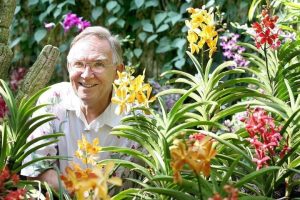
Author Dr John Michael Elliott (1945-2019), who was at the time a psychologist at the then Ministry of Social Affairs, joined the programme six weeks after it began and retired in 2018.
As the book explains, in Singapore, historically psychology was viewed more as clinical work that supported psychiatry, and mental health care was deprioritized. Instead, during the island's colonial era, patients requiring mental health treatment were institutionalized in The Insane Hospital, which commenced operations in 1841 with 30 beds. This hospital evolved into The Lunatic Asylum (1862, 100 beds), followed by The New Lunatic Asylum (1887, 300 beds), and then the Mental Hospital in 1928, which became Woodbridge Hospital in 1951.
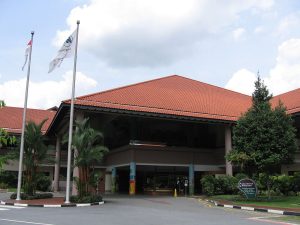
In 1993, Woodbridge Hospital moved to Buangkok Green, becoming the Institute of Mental Health's new inpatient facility.
There was a definite need for trained psychologists in Singapore, as well as a programme to train them, since, post-independence, all psychologists in the country completed their education abroad. When the NUS psychology programme got started in July 1986, however, the discipline was still often seen as non-Asian and more as medical training than a social sciences course, and also as a luxury in the realm of social work. The Department of Social Work was an ideal place for the new programme, Dr Elliott notes, as it would contribute to the department's own development, enabling it to offer an honours degree in social work and psychology.

The NUS psychology programme's initial cohort had 72 students and 1 staff and grew rapidly. There are currently around 900 students in the introductory psychology module and 220 honours graduates annually. At its inception 35 years ago the programme offered a three year general degree with a competitive fourth year honours degree. In 1989, 50 students received a general degree, 11 of whom went on to get an honours degree. Today, the department's own clinical psychology master's programme graduates approximately 15 annually, and psychology graduate students can also obtain a Master of Social Sciences or PhD.
The NUS Department of Psychology ranks 16 out of 303 on the Quacquarelli Symonds list and psychology is a well recognized and respected course of study in Singapore. Many graduates go on to engage in psychological work in the public sector, such as in Singapore's Ministries of Health, Defense, Home Affairs, and Social and Family Development. A number of graduates are also employed in private sector positions involving psychological work like human resource management and marketing, or in private practice in the fields of clinical, counselling, and industrial-organisational psychology, among others.

We discussed the The Strange Start of Psychology at the National University of Singapore, which has an online launch on Friday, 10th December at 11 am, with Associate Professor Winston D. Goh, the current NUS Department of Psychology Head, and Emeritus Professor S. Vasoo, who led the then NUS Department of Social Work and Psychology from 1987 to 1999.
 A/P Vasoo Q & A
A/P Vasoo Q & A
1. What were your most memorable experiences developing the new psychology programme during your term leading the NUS Department of Social Work and Psychology?
I have been teaching students and working with academic staff for about 50 years. In the course of these years, I always encouraged and advised them not to look back on events that had surpassed them. This is because memorable matters would not come back and one would not be able to deal with the bygones. No point spending time lamenting over things that have gone past as it can be emotionally costly and tiring. I always encourage students and academic staff to look ahead on events that will be forthcoming as these can be managed as they unfold and are within their control. I am of the opinion that various human issues that we can grasp at hand are largely solvable as long as we persistently tackle them with empathy. It is only with good empathy that we can have clearer insights to deal with human issues and relationships.
I recall that one of the challenging tasks that I had to deal with as the Head of the Department of Social Work and Psychology was to quickly recruit a group of Psychology academic staff to deliver the undergraduate psychology programme in 1986. I had selected staff with diverse psychology training such as a developmental psychologist, a cognitive psychologist, a social psychologist, an experimental psychologist, a clinical psychologist, and a psycholinguist. You can imagine with these varied backgrounds coming together to agree on a basic undergraduate curriculum was not easy. Each of them had different hobby horses to ride, which was understandable while mind-boggling, as there were protracted views within the group and at times heated arguments that I had to mediate. I brokered a deal as a non-partisan and drew a consensus among the different psychological academic personalities for the need to develop a top-notch undergraduate psychology programme based on the best psychology departments in the United Kingdom and United States. The foundation laid for the early phase of the psychology programme saw the fruition of some of our top psychology scholars in the Faculty of Arts and Social Sciences. I am indeed proud to witness that some of these accomplished scholars have become lead anchors of the NUS Department of Psychology and later appointed Heads. The nurturance of these top scholars have helped stabilize the psychology programme and provided succession of leadership. They also supported the Deanery of the Faculty of Arts and Social Sciences.
2. What can psychologists learn from social workers, and what can social workers learn from psychologists?

To put it simply, both psychology and social work are non-identical twin disciplines with each having to deal with human behaviour and social issues. As a psychologist, one has to understand human behaviour and the cause of such behaviour, and as a social worker, one has to understand the cause of social and human problems and then enable people to find ways to problem solve. Both disciplines deal with human and psychosocial issues, and human behaviour requires a multidisciplinary focus. I would say that no single discipline is adequate to solve human life course issues. I must add that a good psychologist will require social work lenses and a competent social worker needs to have helpful psychological lenses. As one will appreciate, we are all human beings and are ecologically bounded. Therefore both psychological and social work analyses are critical to better appreciate human behaviour and social interactions, and these can contribute to effective human and social problem solving.
3. What do you see as the most notable impacts in practice of social work and psychology in Singapore so far and in the future?

Psychology graduates as well as social work graduates are making robust contributions in public service, private enterprises, and non-governmental organisations. Psychologists hold highly respectable positions in areas such as clinical services, rehabilitation, health, human resources, education, the armed forces and the police, besides others. Increasingly, psychologists are needed to contribute psychological solutions to strengthen our psychological defences against various societal crises.
Likewise, social workers are also appointed in highly regarded positions in fields such as social services, rehabilitation, health, social research, counselling and mental health, education, the armed forces, and childcare, among others. Both psychologists and social workers have so far given valuable suggestions and inputs to policy changes to the care and protection of children, youth, and women, and in the support of the vulnerable and the promotion of inclusiveness of people with special needs.
Singapore like the rest of the world will be confronted with serious social and ecological changes, including the consequences of unabated climate change. In view of these changing scenarios, our future psychologists will have to be equipped with psychological skills in assessing the impact of human behaviour on mitigating issues related to the environment and climate change as well in order to have good insight into the social and psychological consequences of an ageing Singapore community. Trainee social workers can be better equipped with social analytical skills, which will make them more versatile in predicting specific vulnerable sectors of the community. Thereby, the future social workers can enhance their community problem solving capacity by building more support networks to build a socially healthy community. Specifically, more attention can be paid by both social workers and psychologists to deal with the social and psychological implications of the growing social divide between the haves and have-nots, and find more innovative ways to deliver services to enable the less well-off to move up.
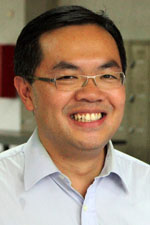 A/P Goh Q & A
A/P Goh Q & A
1. What are some of your fondest memories of Dr John Elliott, first as a teacher, and later as a colleague?
John encouraged critical thinking and we always had very illuminating discussions during his tutorials (see photo on page 28); of course, tutorials at that time only had between 5 and 7 students, so very difficult to hide! He was quite a tough marker though - never got an A from him for my term papers; but then again, As were given out very sparingly during that period (and there were no CAs at that time; the term paper grades were not counted). As a colleague, he was always willing to give advice to young hires, and his experience helped me immensely in the crafting of exam questions when I first started helming my own modules. I also remember he was very particular in signing or agreeing to legal documents - he once refused to upload materials into IVLE (the forerunner of LumiNUS) because he felt NUS did not provide enough protection for staff.
2. What motivated you to study psychology at NUS as an honours and then Masters student, and what prompted you to return to the department to teach and carry out research projects?
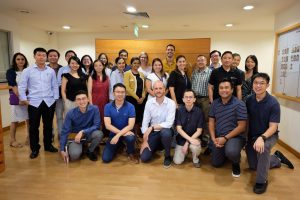 I was in the pre-med programme in junior college, so the path seemed straightforward for me. But I started reading about psychology as a course in various government information booklets and thought this was more interesting than medicine - I also didn't do well at the A levels, so perhaps this was fate telling me to take another path. However, this meant you had to go overseas as there was no psychology programme offered locally and my parents could not afford an overseas education. So when I was accepted in FASS, I was set to major in the closest one at the time - Sociology. I didn't start right away as I had to serve National Service; and in my second year of NS, I found out that NUS had started a psychology programme (again, fate may have been looking out for me!). Fortunately, I did well enough in the aptitude test (required then) to be allowed to major in Psychology. Everyone was hoping to do Honours, and at the time, you had to be invited, so I was elated when the Department of Social Work and Psychology offered me Honours, no motivation required. As for the Masters, I worked as an RA after completing my Honours, so I wanted to see if a research and academic career appealed to me, and decided to do my Masters while I was a TA for the Department. After that, NUS funded my PhD overseas on a staff development scheme, so I was obligated to return to serve a bond. In a sense, NUS Psychology has been my home since I started as an undergrad student, for I never left!
I was in the pre-med programme in junior college, so the path seemed straightforward for me. But I started reading about psychology as a course in various government information booklets and thought this was more interesting than medicine - I also didn't do well at the A levels, so perhaps this was fate telling me to take another path. However, this meant you had to go overseas as there was no psychology programme offered locally and my parents could not afford an overseas education. So when I was accepted in FASS, I was set to major in the closest one at the time - Sociology. I didn't start right away as I had to serve National Service; and in my second year of NS, I found out that NUS had started a psychology programme (again, fate may have been looking out for me!). Fortunately, I did well enough in the aptitude test (required then) to be allowed to major in Psychology. Everyone was hoping to do Honours, and at the time, you had to be invited, so I was elated when the Department of Social Work and Psychology offered me Honours, no motivation required. As for the Masters, I worked as an RA after completing my Honours, so I wanted to see if a research and academic career appealed to me, and decided to do my Masters while I was a TA for the Department. After that, NUS funded my PhD overseas on a staff development scheme, so I was obligated to return to serve a bond. In a sense, NUS Psychology has been my home since I started as an undergrad student, for I never left!
3. What future plans are in the works for NUS Psychology and how do they connect to the need for scholars and practitioners of the discipline in Singapore and the region?

Top psychology departments in the world are very well resourced with research spaces, laboratories, and facilities; so we hope to move in that direction and provide all of our research-active staff dedicated lab spaces to do research that will benefit Singapore and the discipline in general. We will also need to see how many more students (we have always been one of the more in-demand majors since inception) will want to be Psychology majors with the advent of the College of Humanities and Sciences, and perhaps develop various teaching innovations to serve an even more expanded student body (the days of 5-7 pax tutorials, or a 10-student Honours cohort in my year, are long gone). But we have very good educators in the department, so I am not worried about that. Our Clinical Psychology Masters programme is also in very high demand, given the focus on mental health needs nowadays. So we will need to see how we can support training for manpower needs in the public and private sectors in terms of workshops for associate psychologists, in additional to training people to be professional clinical psychologists.
Thank you very much for your time and answers, Prof Vasoo and A/P Goh! Readers can learn more about the history of the NUS Department of Psychology here. Catch the book launch on Friday December 10th at 11 AM by registering via Zoom.
NUS Faculty of Arts and Social Sciences' 18th Dean Takes Office
IN BRIEF | 2 min read
-
Dean of the Faculty of Arts and Social Sciences, Professor Lionel Wee, and other members of the Deanery take on their leadership roles today.
Professor Lionel Wee has assumed the position of Dean of the NUS Faculty of Arts and Social Sciences (FASS) and Co-Dean of the College of Humanities and Sciences (CHS) as of today, Friday, 1 October 2021. Prof Wee takes over the helm from Professor Robbie Goh, who is now the Provost of the Singapore University of Social Sciences.
Before becoming FASS' 18th Dean, Prof Wee was the Faculty’s Vice Dean of Research (2014-2021) and is a Provost's Chair Professor of Linguistics with the Department of English Language and Literature, which he headed from 2010 to 2014.
“It is an honour to be given the opportunity to helm the Faculty of Arts and Social Sciences. The Faculty has achieved much since its founding nearly a century ago, continually evolving to anticipate and address the needs and challenges of a changing society," said Professor Wee.
"Together with the Deanery, colleagues, and students of the FASS, I am confident that we will continue to make breakthroughs in both education and research. While these benchmarks are important, diversity and inclusion are priorities for me, and essential pillars of every organisation. My plan is to further emphasise and ensure our staff and students feel empowered and safe in the Faculty in the coming years," he said.
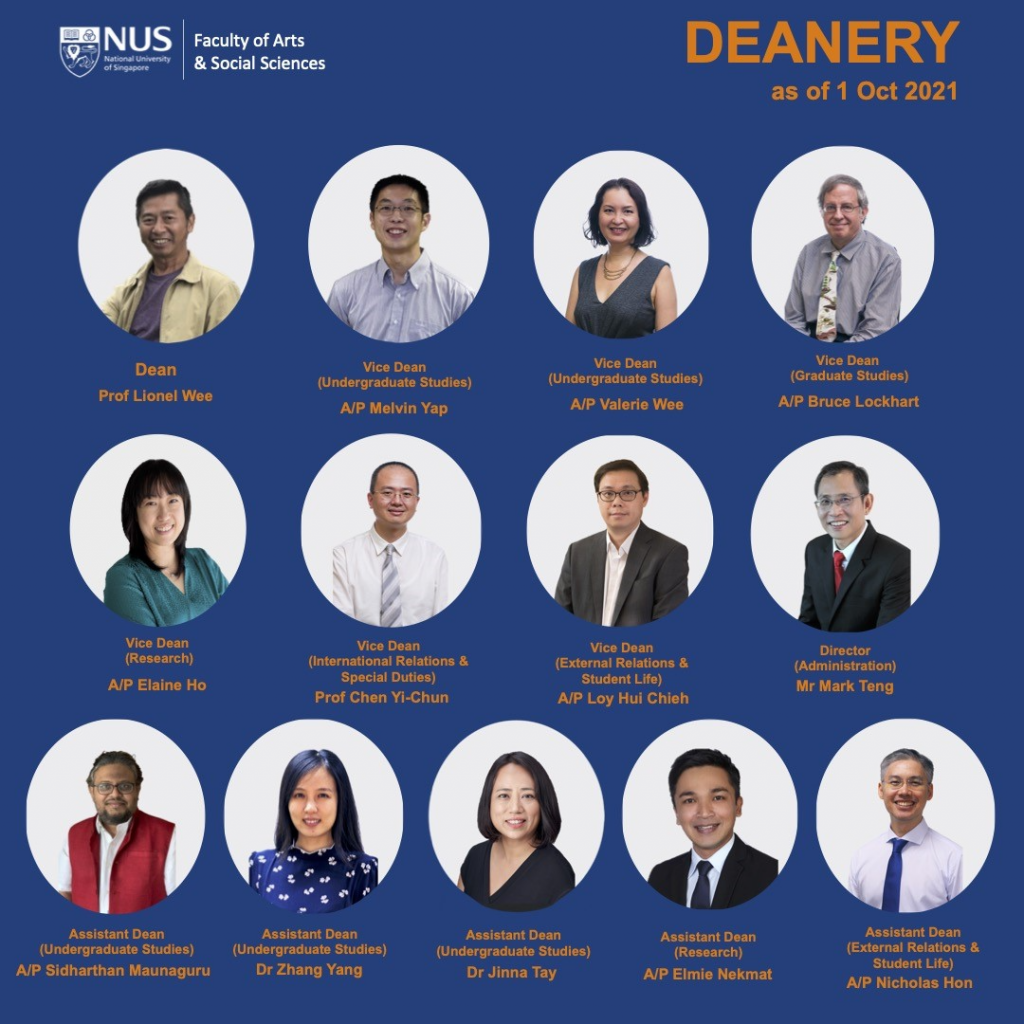
New Appointments to the Strong Leadership
Beginning their new roles with the FASS Deanery today are:
- Associate Professor Elaine Ho (Geography) as Vice Dean (Research). She was previously Assistant Dean (Research).
- Associate Professor Elmie Nekmat (Communications and New Media) as Assistant Dean (Research).
The following members of the Deanery will continue to serve in their respective positions:
- Associate Professor Melvin Yap, Vice Dean (Undergraduate Studies)
- Associate Professor Valerie Wee, Vice Dean (Undergraduate Studies)
- Associate Professor Bruce Lockhart, Vice Dean (Graduate Studies)
- Professor Chen Yi-Chun, Vice Dean (International Relations and Special Duties)
- Associate Professor Loy Hui Chieh, Vice Dean (External Relations and Student Life)
- Mr Mark Teng, Director of Administration
- Associate Professor Sidharthan Maunaguru, Assistant Dean (Undergraduate Studies)
- Dr Zhang Yang, Assistant Dean (Undergraduate Studies)
- Dr Jinna Tay, Assistant Dean (Undergraduate Studies) – recently appointed to the Deanery on 1 July 2021.
- Associate Professor Nicholas Hon, Assistant Dean (External Relations and Student Life)
Exploring the Human Condition at the NUS College of Humanities and Sciences
IN BRIEF | 5 min read
-
A Psychology major and a Life Sciences major, both from the inaugural cohort of the NUS College of Humanities and Sciences, share their experience so far with HSH1000 The Human Condition, a rigorous module under the new college's interdisciplinary Common Curriculum.
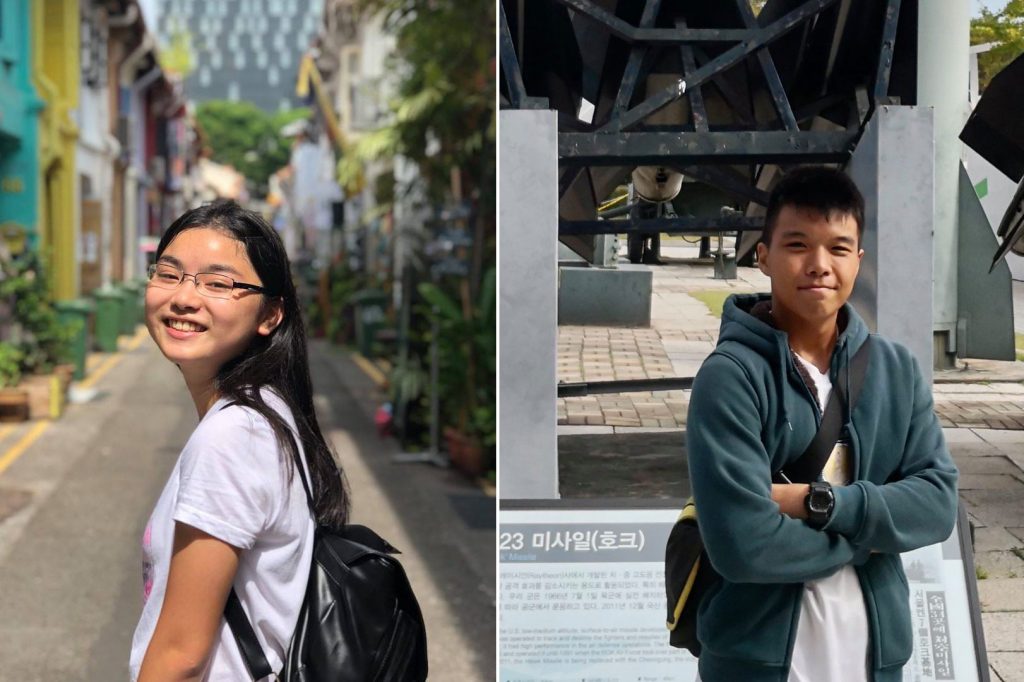
The NUS College of Humanities and Sciences took in its inaugural cohort this year, with the students embracing an interdisciplinary approach in their learning. They are integrating multiple disciplines to solve complex problems, and in the process gaining relevant skills to thrive in the future economy.
One of the exciting courses available is "The Human Condition", an integrated humanities module that studies the essence of being human. Across the intellectual traditions of the world, fundamental concerns relating to the triumphs and problems of social organisation and what a worthwhile life is have persisted through the changing circumstances of every historical age.
The module introduces students to some of these enduring concerns and gives them the opportunity to engage critically through the discussion of selected texts and other media.
Psychology undergraduate Tay Jing Xuan appreciates the module’s exposure to topics such as morality through a multidisciplinary perspective.
Life Sciences student Wong Yi Hao added, “The interesting part of HSH1000 The Human Condition is that it is a hybrid module. It infuses some aspects of humanities into it. It is very different from what we learnt in secondary school and in junior college.”
Listen in (below) as the two students share their experience with the module, and learn more about their College of Humanities and Sciences experience.
This article first appeared on NUSnews on 16 September 2021.

New NUS Dean of Arts and Social Sciences Appointed
IN BRIEF | 5 min read
-
Professor Lionel Wee will be appointed the new dean of the NUS Faculty of Arts and Social Sciences (FASS) and co-dean of the College of Humanities and Sciences from 1 October 2021.
-
Prof Goh, who has served as the Dean since 2017, will be taking a leave of absence from the University, but will continue to contribute in the Singapore education sector as the new Provost at the Singapore University of Social Sciences from 1 October 2021.
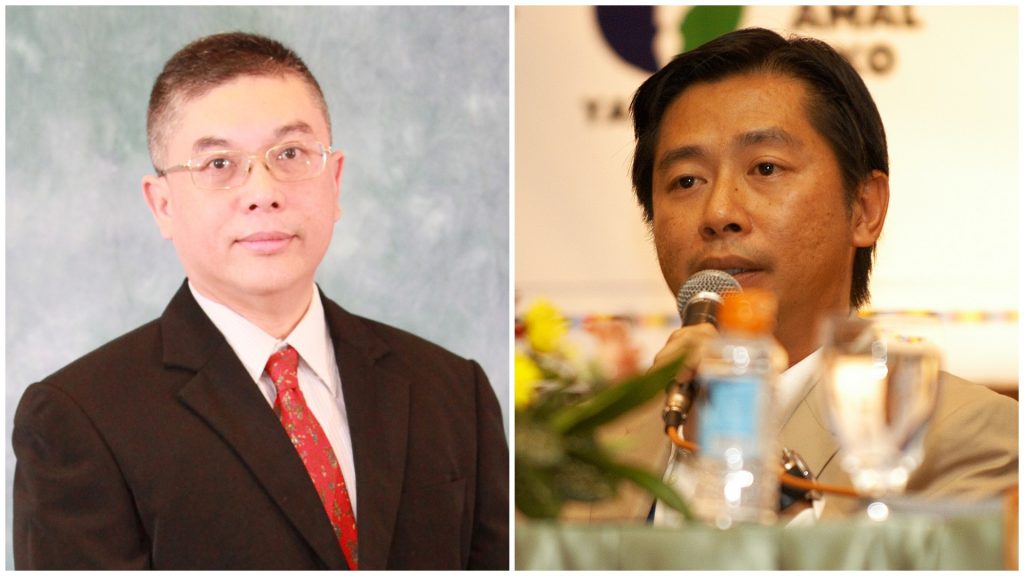
The University today announced the appointment of Professor Lionel Wee as the new Dean of its Faculty of Arts and Social Sciences (FASS) and Co-Dean of the College of Humanities and Sciences. Prof Wee will take over the helm from Prof Robbie Goh as the Faculty’s 18th Dean from 1 October 2021.
Currently FASS Vice Dean of Research and Professor of Linguistics in the Department of English Language and Literature, Prof Wee was appointed Provost’s Chair Professor in July 2017 for his outstanding scholarly achievements.
After graduating from NUS in 1988 with a Bachelor of Arts (First Class Honours) degree majoring in English Language and Sociology, Prof Wee embarked on an academic career, joining the University as a Teaching Assistant with the Department of English Language and Literature. He was awarded the NUS Overseas Graduate Scholarship where he pursued his PhD in Linguistics at the University of California, Berkeley. Prof Wee was appointed as a Lecturer upon his return to Singapore in 1995, and rose the ranks to full Professorship in 2012.
“NUS is pleased that after a rigorous global search, Prof Lionel Wee has been selected to be the next Dean. He is passionate about high quality education and research, and has an excellent understanding of FASS and the University, having served in numerous leadership roles at the department, faculty and university-levels. I am confident that he will bring the Faculty to new heights of international excellence,” said NUS President Professor Tan Eng Chye.
Besides serving as Vice Dean of Research at FASS from 2014 to present, Prof Wee was also the Head of the Department of English Language and Literature from 2010 to 2014. He had also contributed on various committees such as Chair of the FASS Faculty Promotion & Tenure Committee II, Chair of the University Mid-Term Advisory Report Committee, and Member of the University Promotion and Tenure Committee. In recognition of his dedicated service and contributions to NUS and education in Singapore, Prof Wee was awarded the National Day Awards Public Administration Medal (Bronze) in 2020 and the Long Service Medal in 2018.
“I am excited and honoured to be given this opportunity to lead my alma mater as its next Dean. Having spent more than three decades at FASS, both as a student and a faculty member, I have experienced firsthand the selfless commitment of my colleagues and impressive insights our students bring to the study of the arts, humanities and social sciences. I am confident that together, we can continue to make significant contributions to society while enhancing our Faculty’s standing as one of the leading humanities and social sciences faculties in the world,” said Prof Wee.
Besides his passion in linguistics, Prof Wee feels very strongly about animal welfare and is also very much an avid city traveller, although the pandemic has put quite a damper on travel in the past year or so. He also enjoys the cafes, a habit which he picked up during his time as a graduate student in Berkeley. Students and colleagues at FASS may have many a times seen Prof Wee deep in thought at the cafes across the NUS campus. He is very much focused in developing a particular idea or argument once he is seated down and would need to walk around before he can move on to another new idea.
Prof Wee has published widely in international and local journals, and also sits on the editorial boards of a number of academic journals and publications, including Applied Linguistics, English World-Wide, Multilingual Margins, The Journal of Asian Linguistic Anthropology, the “Cambridge Elements: World Englishes” book series, and the “Multilingualisms and Diversities in Education” book series. He is a well-respected scholar with research interests in the areas of language policy (especially in Southeast Asia), the grammar of Singapore English, metaphorical discourse, and general issues in sociolinguistics and pragmatics.
Prof Goh, who has served as the Dean since 2017, will be taking a leave of absence from the University. However, he will continue to contribute in the Singapore education sector as the new Provost at the Singapore University of Social Sciences from 1 October 2021.
Prof Goh said, “It has been a privilege and honour to serve as Dean of one of Singapore’s largest and most historied Faculties. I am grateful to my talented colleagues for all their hard work. I believe that together, we have brought the Faculty to new heights of excellence in teaching, research and service. I look forward to the work of creating new programmes and nurturing talent in my next role as Provost of the Singapore University of Social Sciences, and hope that I will also be able to forge new ties and collaborations between the two universities."
Having spent more than three decades at the University, Prof Goh has taken on numerous administrative and leadership roles outside of the Faculty. He was Deputy Director of the NUS Centre For the Arts from 1996 to 1999, and Deputy Director of the Asia Research Institute from 2008 to 2010.
“On behalf of the University, I would like to express my heartfelt appreciation to Professor Robbie Goh for his dedication and strong stewardship in leading NUS FASS. Under his visionary leadership, the Faculty has made significant contributions to the advancement of education and research in the humanities and social sciences. During his leadership, the FASS 2.0 Industry Tracks programme was started to enhance the employability of its graduates. New multidisciplinary initiatives such as the Philosophy, Politics & Economics programme were also established. The Faculty has also expanded collaborations with industry and further strengthened its high international reputation,” added Prof Tan.
This story first appeared on NUSnews on 13 August 2021. The full press release is here, and Professor Lionel Wee's biography is here.
From Careers for a Lifetime, to a Lifetime of Careers
IN BRIEF | 5 min read
-
The top skills desired by employers will include critical thinking, analysis, problem-solving and self-management skills such as active learning, resilience, stress tolerance and flexibility.
What does the future of work look like? In this evolving world, new occupations and roles which did not previously exist continue to emerge, while certain traditional skills and jobs continue to become obsolete.
The World Economic Forum’s (WEF) The Future of Jobs Report 2020 (October 2020) highlighted a few key trends.
First, technological adoption of cloud computing, Big Data and e-commerce in many businesses will accelerate the transformation of jobs, skills and entire industry value chains. 85 million jobs are expected to be displaced by a shift in division of labour from humans to machines by 2025, while 97 million new roles may emerge.
Second, online learning and training boomed during the pandemic. The shift was a watershed moment, and there is no turning back for many industries. The pandemic also brought into sharper focus the importance of lifelong learning, with more employees upskilling and reskilling to stay relevant in the volatile job market. More workers are now pursuing personal and professional development, especially in digital skills.
Last but not least, the top skills desired by employers will include critical thinking, analysis, problem-solving and self-management skills such as active learning, resilience, stress tolerance and flexibility.

What skills do employers seek?
Many of these in-demand skills highlighted in WEF’s report corroborate CFG’s Industry Insights Survey (2020). Drawing on insights from career events, industry surveys and engagements, CFG’s survey cited a similar list of soft skills that are becoming increasingly imperative at the workplace.
These are abilities learnt through life experiences that are impervious to change, and relevant across all professions and workplaces. They are attributes we take with us when we embark on job pathways in the New Normal - which are shifting from one defined career over a lifetime, to a series of dynamic and rapidly changing careers.
Our survey clusters these abilities into two main categories: Personal Qualities and Workplace Traits.
Personal qualities
Many employers are looking for individual cognitive abilities such as problem-solving, learning agility and pattern-recognition. They are also seeking graduates who are equipped with design and computational thinking, as well as proficiency in quantitative analysis.
They want graduates who are able to look at problems from different perspectives, to solve complex problems in real-world environments. For example, can a customer service issue be resolved with a combination of user interface design changes, IT infrastructure automation and manpower staffing? What are consumer consumption patterns and behaviours telling us?
Employers also seek character traits such as curiosity, resilience, empathy, proactivity, leadership and adaptability. These traits are predictors of future potential, and potentially determine career longevity and progression. For example, are you curious to learn what other teams or functions are doing beyond your job scope and discover potential synergies? Are you adaptable to changes in your project scope, and possess a “can-do” attitude in the face of obstacles?
Workplace traits
Besides personal qualities, employers are also looking for graduates who possess certain desirable workplace traits. These include good communication and presentation skills, cultural sensitivity and a global mindset. Graduates with business acumen, who are able to influence and negotiate, and are competent in managing different teams and projects, are much sought after.
These attributes mirror the realities of the modern workplace, where teams and projects are becoming more diverse, cross-functional, cross-cultural and business-driven. For example, can you work with a diverse team of colleagues towards achieving a common objective? Can you visualise your organisation’s business potential in an overseas market or a new customer segment?
The call to CHS students
In CHS, you will acquire interdisciplinary knowledge and skills by learning how to draw connections, links and insights across diverse disciplines. It is this important foundation of interdisciplinarity that will better prepare our students to become problem-solvers in an uncertain world beyond the pandemic.
Even as the pandemic has accelerated digital transformation, data is now the new asset that enables businesses to enhance efficiency and augment the ability of their teams to deliver greater value. CHS will focus on competencies like data literacy and design thinking, skills that are now in high demand by industries seeking to unlock value from Big Data.
Beyond academics, internships are one of the best ways to hone workplace experience. When you are on vacation, aim for at least two (if not more) internships, preferably one with an overseas employer. Immerse yourself in co-curricular activities, which provide hands-on opportunities to gain skills such as leadership, teamwork and project management. These experiences in your resume and portfolio will place you in a better stead with employers.

Enhancing employability, preparing for careers
CHS students will have a dedicated Career Advisor, who will guide you through the process of developing a personal career plan. You will be pre-assigned a career preparation module, Career Compass, closely following CFG’s four-year Career Readiness Roadmap which provides a formal framework for your career planning during your undergraduate journey.
You will be enrolled in Career Catalyst, a foundational freshmen module that identifies your core strengths and enhances your profile towards securing an internship. As you progress to Years Two/Three and your final year, you can also sign up for our Career Booster workshops or Career Advancement Webinar Series (CAWS).
Article contributed by the Centre for Future-ready Graduates (Ms Joan Tay, Director and Career Advisors Mr Ryan Ang and Mr Ng Buck Seng)
This story first appeared on CHS on 29 July 2021.
NUS CHS Case Competition: Driving EV Adoption in Singapore
IN BRIEF | 1 min read
- The just-released problem statement for NUS CHS' inaugural Case Competition – Encouraging electric vehicle (EV) ownership in Singapore – is an important real-world topic of especial relevance to us all, as the nation is driving toward a future of electric mobility that is essential to the Singapore Green Plan 2030.

Are you interested in translating your innovations to reality by applying interdisciplinary knowledge and skills?This is now possible with the inaugural College of Humanities and Sciences (CHS) Case Competition, launched on 26 July.
The competition is specially designed for NUS students, and enables participants to synthesise ideas and perspectives from different disciplines to solve complex, real-world challenges.
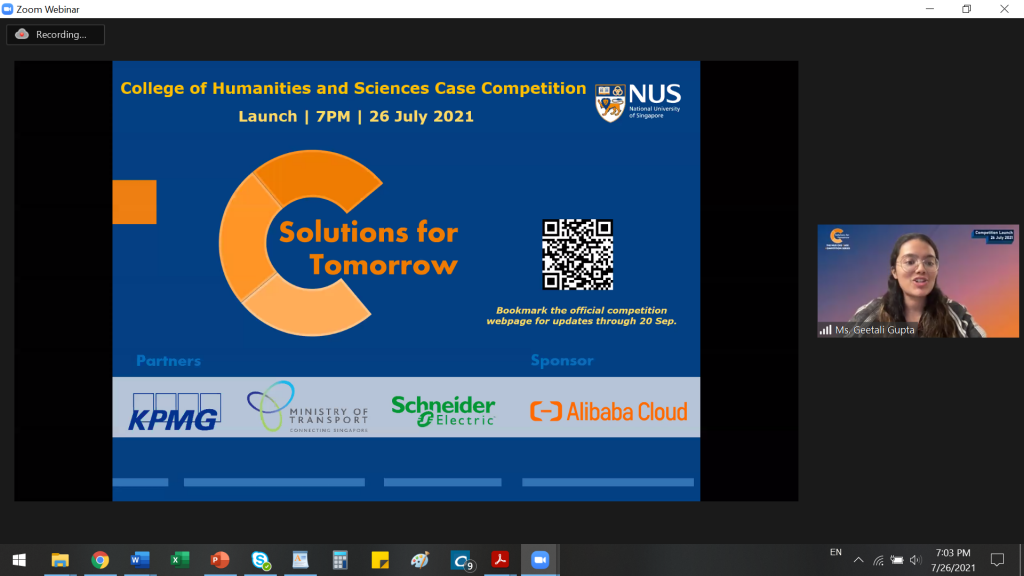
The competition themes, “Sustainability” and “Technology and Us”, are highly topical today. The problem statement - Encouraging electric vehicle (EV) ownership in Singapore - is an important real-world topic, even as Singapore ushers in a future of electric mobility as a key piece of the puzzle in the Singapore Green Plan 2030.
At the virtual launch, our competition partners - the Ministry of Transport, KPMG and Schneider Electric - discussed plans by the Singapore government to usher in the future of EV, Schneider Electric’s vision of a 100% electric mobility future with net-zero carbon emissions and upcoming trends in mobility solutions identified by the advisory arm of KPMG.
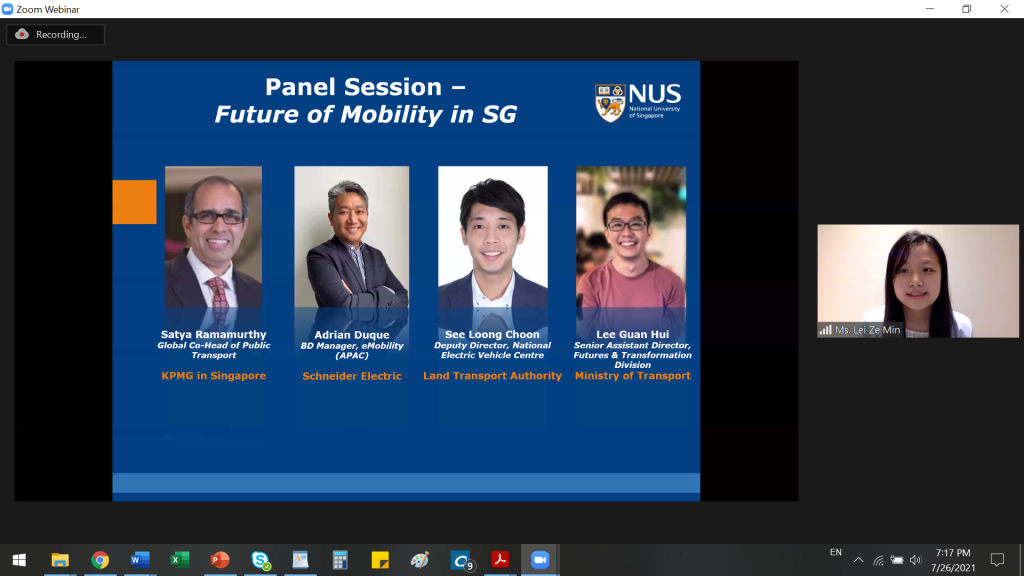
Participants will have the opportunity to attend mid-term workshops in mid-August, which provide important domain knowledge, including engineering and design, and communications skills.
The project submissions will be judged in the final round of the competition on 20 September by representatives from our competition partners. They will also be sharing their EV domain expertise with the participating teams throughout the competition.
The launch was attended by more than 100 participating teams (close to 200 individual attendees) from across NUS.
Find out more about the competition here and read the problem statement here.
Strong Interest in Interdisciplinary Learning With High Acceptance Rates
IN BRIEF | 5 min read
-
NUS President Professor Tan Eng Chye discusses the University’s recent interdisciplinary initiatives – the setting up of the College of Humanities and Sciences (CHS) and the new Common Curriculum for the Faculty of Engineering and the School of Design and Environment – and the importance of lifelong learning in ensuring that students are adaptable and future-ready.
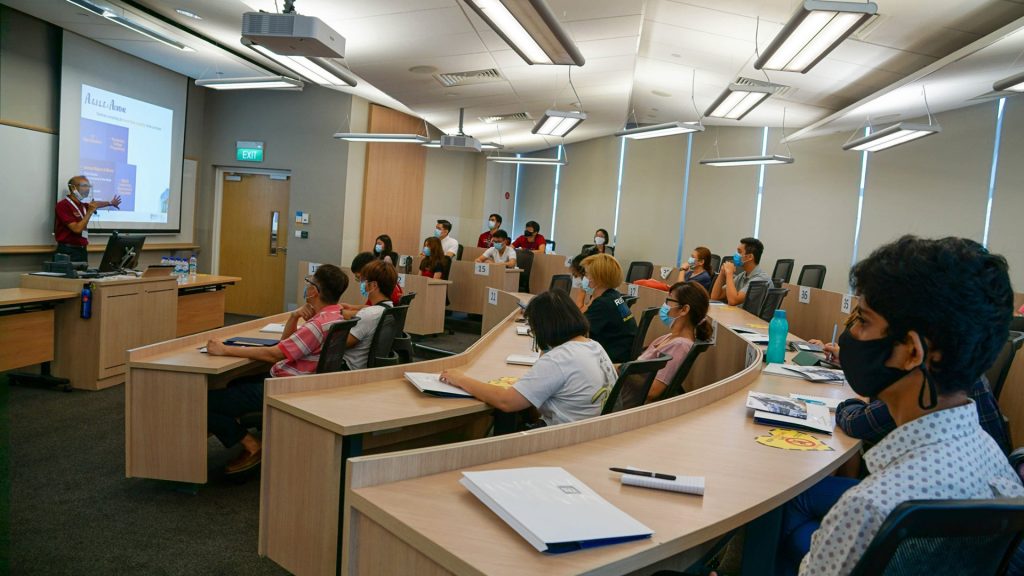
In today’s volatile, uncertain, complex and ambiguous (VUCA) world, staying stagnant is never an option. Now, more than ever, universities have to prepare students to thrive in a fast-changing and unpredictable post-COVID reality through an interdisciplinary education.
Just ask the incoming batch of freshmen, who have given a thumbs-up to the University’s recent interdisciplinary initiatives – specifically, the setting up of the College of Humanities and Sciences (CHS), and the new Common Curriculum for the Faculty of Engineering and the School of Design and Environment.
During the admissions exercise this year, 71 per cent of those who had applied to these programmes as the first choice accepted the offer. Among the incoming batch of freshmen, over 4,000 will be exposed to an interdisciplinary education. By August 2022, NUS hopes to push this number to more than 6,000.
“We are quite heartened that the applicants have responded very well,” said NUS President Professor Tan Eng Chye, as he spoke on the new changes in NUS’ curriculum. “They are receptive to the flexibility that they will have. No more are you confined to one discipline.”
Prof Tan noted that the world faces many wicked problems that cannot be solved with only one discipline.
He cited COVID-19 as a wicked problem, requiring more than just medical sciences to solve. “Even with the right medical knowledge, many countries had difficulties handling COVID-19 and its spread,” he noted.
The pandemic, in fact, prompted NUS to ramp up efforts in remodelling its educational philosophy and pedagogies to prepare its graduates for this dynamic reality.
At the centre of these reforms is the push for lifelong learning, as well as the shift towards interdisciplinary education to ensure students are adaptable and future-ready.
A lifetime of learning
While universities used to prepare their graduates for a single job, this approach is fast becoming obsolete. Today, graduates will change jobs at least 10 times over the course of their lifetime.
In line with this trend, NUS has been future-proofing its education to prepare students for lifelong learning.
“A student’s enrolment is valid for 20 years from the point they enter the university,” Prof Tan explained. “We want to remove the conception that university is only for four years. You can always come back to (NUS) to learn new skills and knowledge.”
For instance, the NUS Lifelong Learners (L3) programme upskills alumni through a wide array of skill-based, industry-relevant courses, carefully tailored to focus on emerging skills identified under SkillsFuture such as data analytics or digital literacy.
The process of returning to NUS for further studies is also made seamless. If a student does not complete a second major or degree in their initial four years, they are welcome to return to the university to read the necessary remaining modules even after graduation.
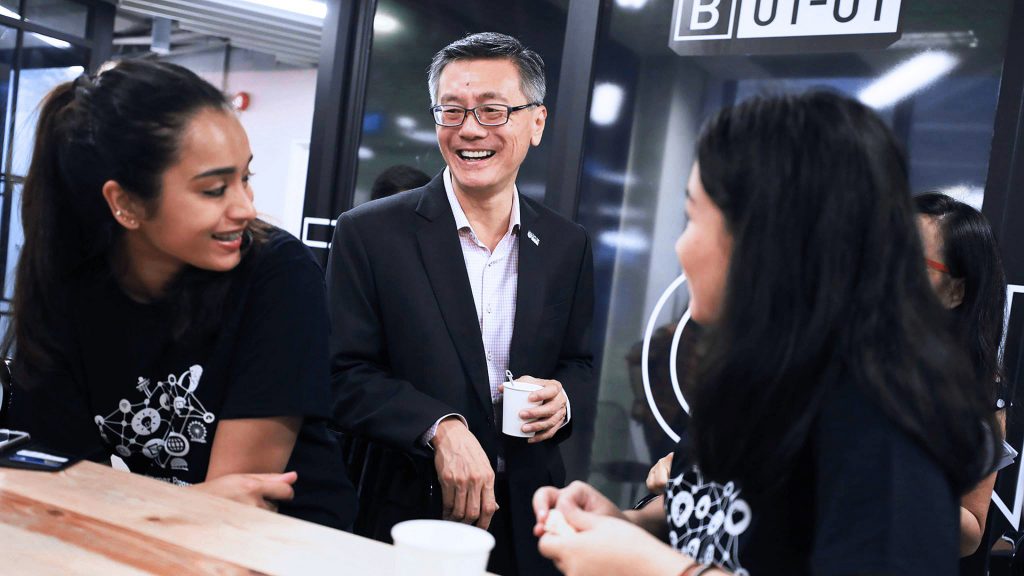
Towards interdisciplinary learning
Recognising the benefits of interdisciplinary learning, NUS is rolling this out to more students.
This started with the launch of CHS, which brings together the Faculty of Arts and Social Sciences and the Faculty of Science.
In the upcoming semester, CHS will admit 2,200 students and they will take a new Common Curriculum within their first three semesters – consisting of integrated modules with a problem-based pedagogy.
Similarly, a Common Curriculum has been introduced for the Faculty of Engineering and the School of Design and Environment to encourage knowledge transfer between the two complementary disciplines.
For instance, NUS’ very own net-zero energy building at SDE4 is a product of melding both architecture and engineering – the first of its kind in Singapore.
“The building’s beautiful architectural design alone doesn’t contribute to it being net-zero energy. What you have is a lot of deep engineering work embedded into it. It shows that architects have to work very closely with engineers in order to achieve this,” explained Prof Tan.
With interdisciplinary learning, the proportion of Unrestricted Elective modules a student can take has also been increased to up to 30 per cent, encouraging students to have two or more specialisations.
In the four faculties that now have an interdisciplinary common curriculum, this works out to more than 700 possible double major pairings, 1,700 major-minor pairings, and 100,000 major with double minor combinations.
Expanding choices for students
Ultimately, these educational innovations create greater flexibility for students to curate their own curriculum.
They will no longer have to make an immediate commitment to a single discipline. Instead, they are given time to decide on their academic calling through the common curriculum.
These efforts are central to NUS’ flagship role as a creator, integrator and propagator of knowledge.
Looking ahead, the structural barriers between faculties will further dissolve, allowing students to build even broader connections between disciplines.
“Right now, we have 70 majors and 80 minors, but we may actually have more as we go along. We start with a minor. If there’s enough interest, we push it to a second or full major. The possibilities are endless especially as we move online,” said Prof Tan.
This story first appeared on NUSnews on 26 July 2021.
Creating New Internship Opportunities: Engaging Employers to See Value in Humanities and Social Sciences
IN BRIEF | 4 min read
-
Mr Jonathan Sim, instructor from the Department of Philosophy, describes how he engaged with local employers to open internship opportunities to humanities and social sciences students who would not previously have been considered.

Humanities and social science majors are frequently misunderstood, in Singapore as in many other parts of the world. The value of their education is regularly questioned, and many employers are unaware of the value such majors can bring to the table. They prefer to hire graduates with more explicitly “practical” degrees for jobs that humanities and social sciences students could excel in.
As a result, humanities and social sciences students are not typically considered for many organisations and roles, despite offering relevant and useful skills.
So when developing an internship module, I began reaching out to organisations to create internship opportunities in such roles, to boost receptivity to hiring students from these disciplines. This enabled potential employers to better understand how students in subjects they might have previously overlooked can fill gaps in their talent pool.
Compounding the issue is that many humanities and social sciences students are unaware of the diversity of careers available to them and tend to limit themselves to roles stereotypical of their majors. There is a good reason for this. When these students apply for non-stereotypical roles, they are often turned down due to having an “impractical” major.
I regularly hear employers and people in the corporate sector lamenting the lack of creativity and critical-thinking and communication skills in their industries. These key capabilities are needed to challenge assumptions, innovate and improve processes within organisations. Employers’ lack of awareness of the value of humanities and social sciences is preventing them considering this potential talent pool.
Starting an internship module
I teach a module on data analysis and philosophical reasoning to hundreds of students each semester. With so many students under my charge, I was inspired by the idea that education is more than just about imparting knowledge. Rather, it is about facilitating growth in one’s students by providing them with opportunities for challenge and development.
As a result, I decided it would be worthwhile to experiment with an internship module where I approach employers, explain the value my students can bring to their organisation and ask them to offer temporary roles not typically filled by humanities and social sciences majors. A model designed to be mutually beneficial to both employers and students.
Here are my key lessons in how to do this:
Start by approaching contacts working in human resources (HR) and ask them to link you up with senior management or with department heads of your target companies. I initially spoke to friends in HR and some of them linked me up with HR professionals from other organisations.
Provide reassurance that you will be guiding and mentoring the students throughout the programme. My credentials as a university educator meant employers were generally open to exploring this strategic partnership.
Prepare and present a pitch clearly describing what value and skills your students can bring to the companies where you wish to secure internships. I explained how my students were excellent in data analytics, coding and problem-solving, and their training in humanities and social sciences meant they could bring unique perspectives thanks to creativity and critical thinking. Having worked with the students for one semester already, I could also vouch for their character, including attributes such as work attitude, independence and willingness to learn.
Discuss the job scope and be honest and realistic about what your students can and cannot do. I helped advise the hiring managers on my students’ capabilities, based on what I had taught them, and sometimes this meant suggesting new items in the job scope that the organisation may not have considered.
Invite students to apply for the roles available by submitting their CVs, then interview shortlisted candidates. I found interviews useful to get a better understanding of what students wanted to do and what they hoped to achieve during the internship. The application process also provided an opportunity to work with students to improve their CVs and interview skills before they spoke to employers.
Try to match students with internship roles that will best suit their personality, skills and career aspirations.
During the internships, check in on students regularly and ask them to share any challenges, so you can help them troubleshoot any issues. My role was more like an adviser pointing them to resources or giving life advice on how to handle novel social or professional situations.
Ask the students to write reflections centred on how their training in humanities and social sciences can be applied to the work they do as an intern. This helped me gauge the extent of their learning but also nudged students towards deeper reflection on their discipline to see its value and relevance in the work they did. It was very eye-opening to see concrete examples of how students found connections and applications between their studies and their work.
Benefits to organisations and students
These collaborations have proven mutually beneficial. They allow participating organisations to develop strategic partnerships with the university, helping employer branding and making it easier for them to attract talent.
At the same time, the student interns become living proof to employers that their major makes them as good as, if not better than, some students from more “practical” disciplines. The internships help inform humanities and social sciences students that they can take on roles they never thought were open to them.
We have completed one round of internships with organisations such as Henkel, a German multinational chemical and consumer goods company, and Azendian, a local AI data analytics start-up.
Students were pleased with the chance to take up roles they would not have ordinarily pursued, or been given a chance to try, in areas such as supply chain and logistics management, database management and data analytics for marketing. The internships provided profound insights on how they can apply the skills from their majors in ways that allow them to craft a niche in such roles.
The first round of placements seems to have persuaded employers to be more receptive when it comes to hiring humanities and social sciences students, as they have asked for more interns in subsequent iterations.
This is just the beginning, and there is a lot more that we can achieve in our capacity as university faculty by engaging with local organisations and employers. We can work to create more internship opportunities and help employers better understand the capabilities of our students across multiple disciplines here in Singapore and further afield.
This story first appeared on Times Higher Education on 21 June 2021.
Commencement 2021: Special Message of Congratulations to the Classes of 2020 and 2021!
IN BRIEF | 3 min watch
-
FASS Faculty and students congratulate the Classes of 2020 and 2021 and wish them all the best as they go out to change the world for the better!
“We believe in you. I believe in you. Go out there, do us proud. Make the world a better place.” — Associate Professor Loy Hui Chieh, FASS Vice Dean of External Relations and Student Life FASS, joint committee member of the NUS Philosophy, Politics, and Economics (PPE) programme, and also Faculty member of staff at the NUS Department of Philosophy.
Faculty and students talk about what life has been for them this past year, what they miss about campus life, and extend words of advice and congratulations to the graduating Classes of 2020 and 2021.
This video features Assoc Prof Loy and Dr Lohsnah Jeevanandam, Senior Lecturer, NUS Department of Psychology, as well as students from the graduating Classes of 2020 and 2021: Alvarez Brielle Clavel ('20); Somesh s/o Sailesh ('20); Douglas Ong ('20), Christina Chen (Doctoral Class of '20); Ng Qian Qian ('21); and, Lai Wei Na ('21).
Embracing Mental Health: It’s OK to Not Be OK
IN BRIEF | 5 min read
-
At the #AreuOK – Let’s Talk About Mental Health webinar on 16 June, NUS Chairman Mr Hsieh Fu Hua engaged representatives from Faculty, alumni and the student body in a discussion of ways to increase awareness of mental health issues and to render better support to sufferers of mental illness
Everyone has mental health issues, it just depends on which end of the spectrum they are at, reflected NUS Chairman Mr Hsieh Fu Hua during the #AreuOK – Let’s Talk About Mental Health webinar on 16 Jun.
After witnessing his children’s challenges during their teenage years, and personally experiencing psychotherapy sessions, Mr Hsieh understood first-hand that going within through self-inquiry, and looking externally for support were key in the mental health journey.
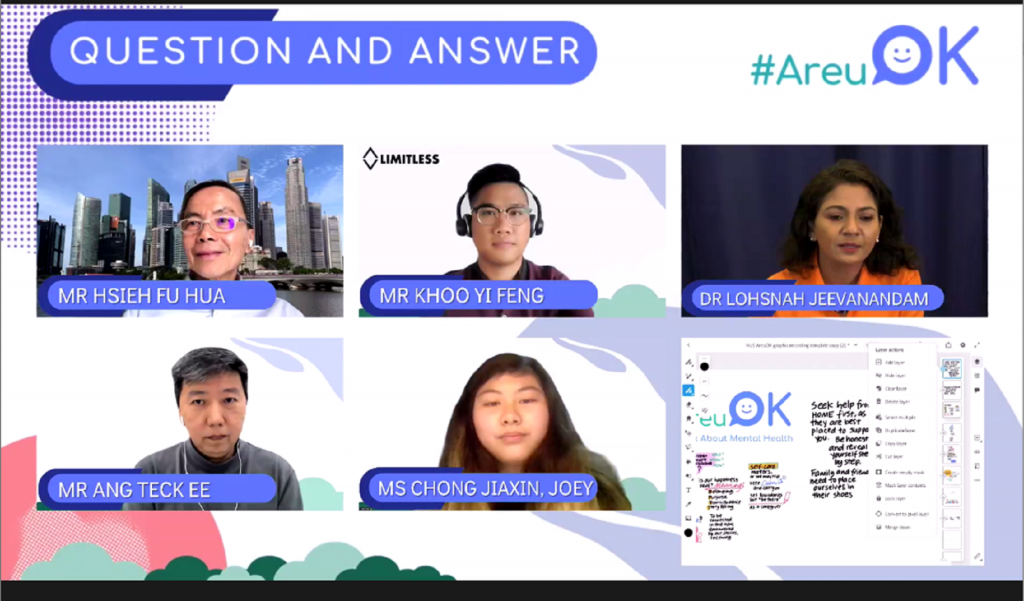
“The psychotherapy sessions knocked away inner constructs and walls built over the years,” shared Mr Hsieh candidly during his keynote speech. He added that individuals who experience mental health issues inadvertently feel an erosion in their level of self-confidence; and noted the social stigma associated with declaring such issues.
Mr Hsieh cited regular meditation practices, and efforts over the years to cultivate a stronger and more resilient mind, as factors which helped him to move past life challenges.
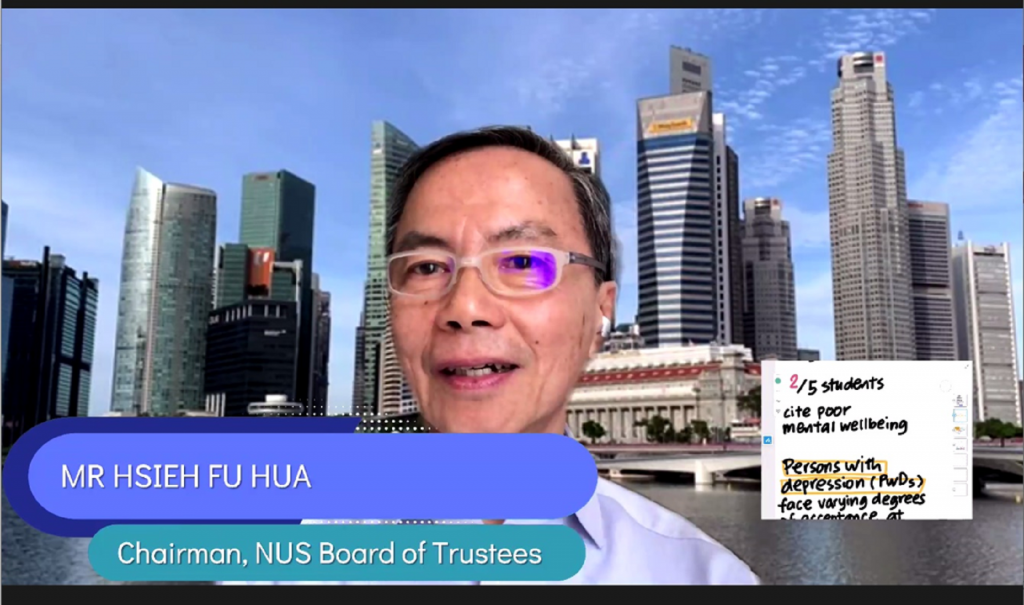
The #AreuOK campaign
In December 2020, NUS launched the #AreuOK campaign to drive awareness of mental health, and create an environment of empathy and inclusivity for the community. The campaign is spearheaded by the Health & Wellbeing (HWB) team and the Organisational Excellence Transformation Unit at the NUS Office of the President, in collaboration with various departments across the University.
Before the campaign was launched, an anonymous survey was conducted by the team to gain a deeper understanding of the NUS community’s perceptions on mental health. In his opening address, HWB Director Dr Andrew Epaphroditus Tay shared survey findings which showed that one in five staff, and two in five students across the University had cited poor mental wellbeing.
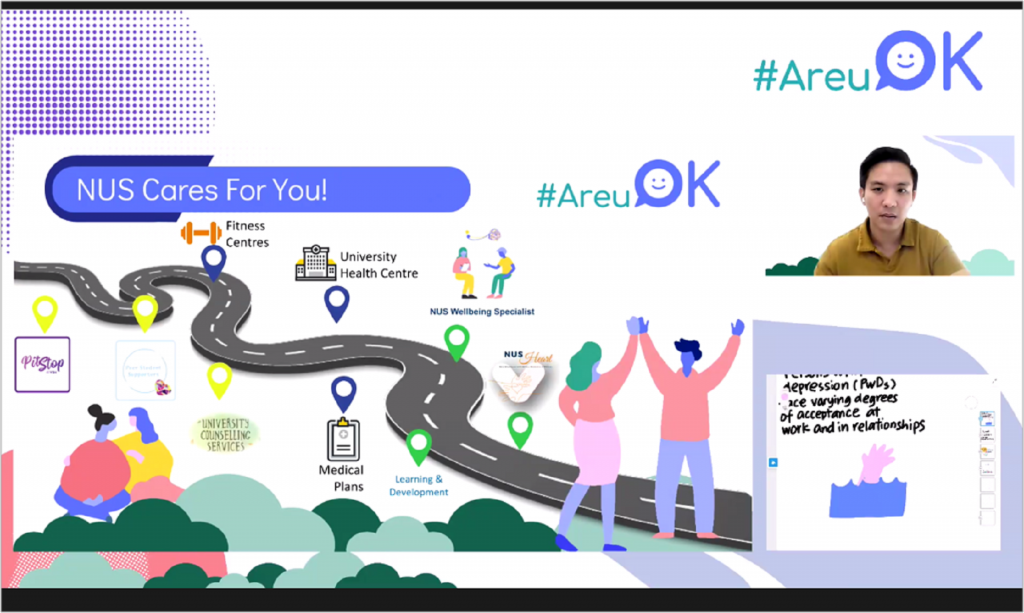
Empathy, support and the power of meaning
“There’s an ‘I’ in mental ill health and a ‘we’ in wellbeing,” proclaimed Mr Khoo Yi Feng, NUS alumnus (NUS Arts and Social Sciences) and Social Worker at Limitless, who is known to his friends as the ‘mental health guy’. He added that empathy and support for others are our two doses of ‘vaccine’ against mental illness.
“Attending to our deeper need for an intrinsic form of happiness, focusing less on what we have and more on what we are, may be the key in a world full of sensory distractions,” said Mr Ang Teck Ee, Senior Counsellor from University Counselling Services. He also shared the four pillars – Belonging, Transcendence, Story Telling and Purpose, from Dr Emily Esfahani Smith’s study on the power of meaning, as recommended points of focus in our lives.
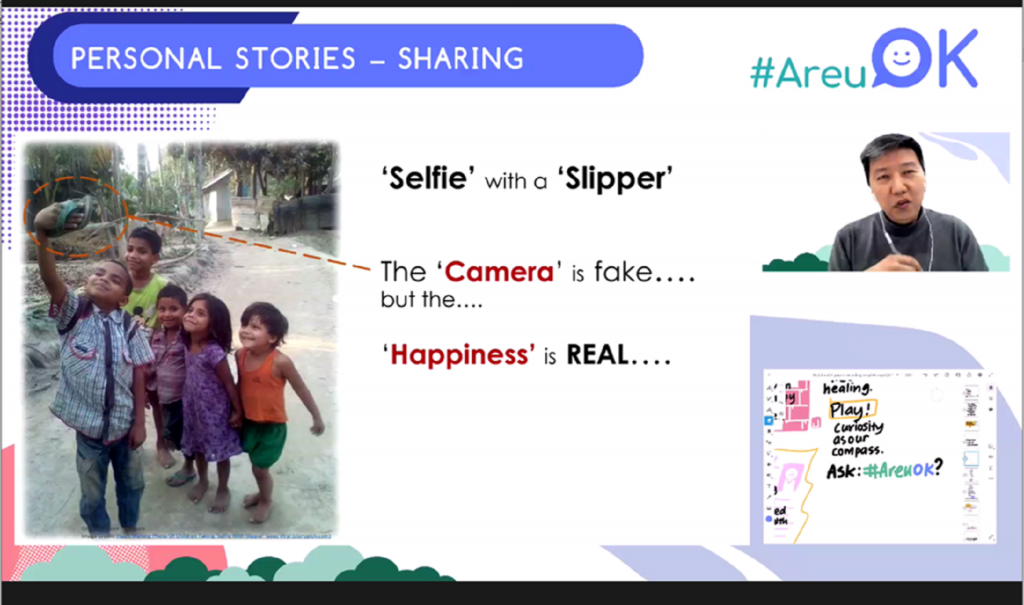
Joey Chong, Year 3 NUS Arts and Social Sciences student noted that learning how to have boundaries, and not put another person’s wellbeing above your own, was an important lesson in her role as a Peer Student Supporter.
“Instead of trying to solve others’ problems, just be there to help guide them to solve their own problems,” she said.
Summing up, Dr Lohsnah Jeevanandam said, “Let’s embrace our mental health as an individual, as a NUS community, as a society.”
This story first appeared on NUSnews on 21 June 2021.
Meet the Neighbours: The Seven Animals You’ll Spot in NUS
IN BRIEF | 5 min read
-
NUS is not only a second home for staff and students, but also a place for a wide range of biodiversity to call home. Mr Athanasius Koh, a management trainee with the NUS Faculty of Arts and Social Sciences (FASS) and FASS Political Science alumnus ('21) tells us about the interesting animals he has spotted around campus.
Beyond the lecture theatres, classrooms and student hangout spots, it is hard to miss the lush greenery that surrounds NUS. This has made the campus environs not only a second home for staff and students, but also a place for a wide range of biodiversity to call home.
These habitats are here to stay too. Emphasising NUS’ commitment to preserving its rich biodiversity, fighting climate change and being an environmentally responsible campus, the “Planting 10,000 Trees” initiative launched by NUS President Professor Tan Eng Chye in 2018 saw 500 mature trees planted throughout the campus, as well as 9,500 saplings nurtured in the NUS nursery. In addition, a strict policy to protect existing trees was also implemented.
Mr Athanasius Koh, a management trainee with the NUS Faculty of Arts and Social Sciences (FASS) Corporate Communications team for the past six months, and avid nature photographer, takes regular photo walks exploring these habitats. Mr Koh, who is also from the FASS Class of 2021, shares about the interesting animals he has spotted along the way.
Collared Kingfisher (Todiramphus chloris)
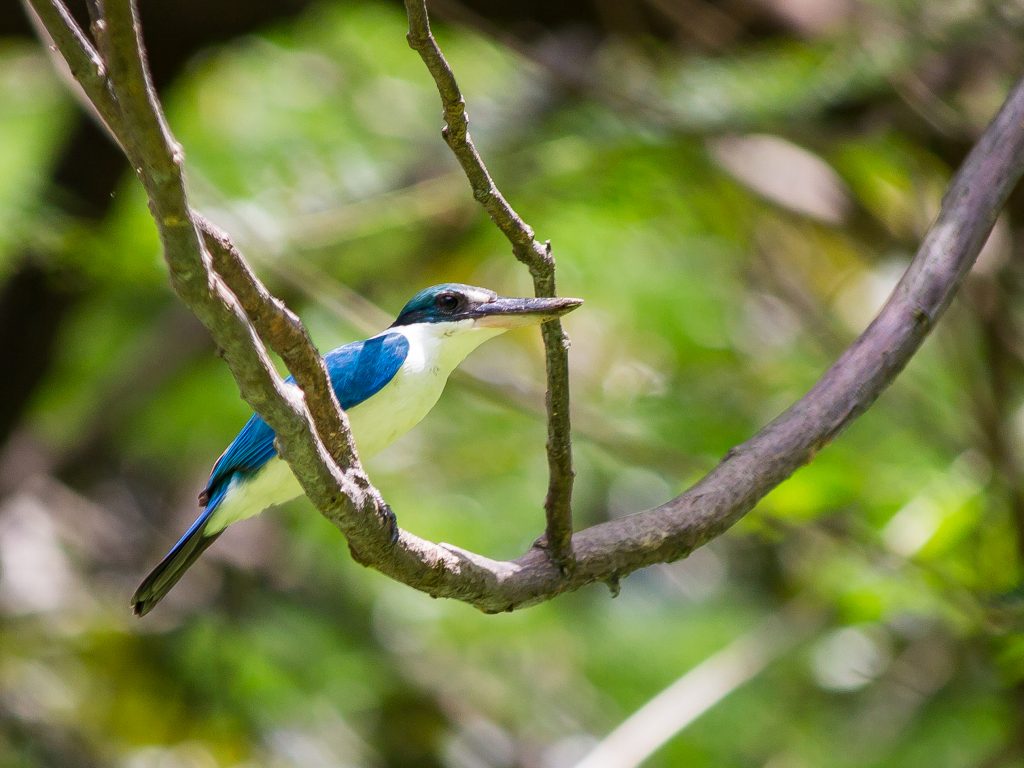 A collared kingfisher perched on a tree at AS8. (Photo: Mr Athanasius Koh)
A collared kingfisher perched on a tree at AS8. (Photo: Mr Athanasius Koh)
Dressed in beautiful blue feathers and a broad white “collar” around its neck, the collared kingfisher is a vocal bird spotted about campus with its series of harsh “kee-kee” notes, described by some as a maniacal laugh.
The collared kingfisher has also been quite the icon in Singapore’s history, gracing not only stamps but even the now decommissioned $10 note as part of The Bird Series Currency Notes from 1976 to 1984.
Look out for the collared kingfisher’s outstanding blue plumage as it rests atop trees and lamp posts. This sharply dressed celebrity is an easy spot around FASS and NUS Faculty of Engineering.
Red Junglefowl (Gallus gallus)
 Male red junglefowls proudly flaunt their dark green tail feathers and black primary feathers. (Photo: Mr Athanasius Koh)
Male red junglefowls proudly flaunt their dark green tail feathers and black primary feathers. (Photo: Mr Athanasius Koh)
Even if you have never personally caught sight of the resident FASS red junglefowl, you are more than likely to have heard its signature “cock-a-doodle-doo” around the faculty. Often confused for the domestic chicken, the red junglefowl is in fact its wild ancestor.
According to a study led by NUS ornithologist Associate Professor Frank Rheindt, the red junglefowl can be quite easily distinguished from the domestic chicken. Male red junglefowls proudly flaunt their dark green tail feathers and black primary feathers while females have distinguishing grey legs and sport black primary feathers.
While it remains a mystery why it crosses the road, the red junglefowl and its loud presence has certainly captured the attention of students and staff alike.
Plantain Squirrel (Callosciurus notatus)
 A plantain squirrel resting on a tree behind AS4. (Photo: Mr Athanasius Koh)
A plantain squirrel resting on a tree behind AS4. (Photo: Mr Athanasius Koh)
Scurrying and leaping from tree to tree, the plantain squirrel is an adorable sight if you are lucky to observe one at rest or enjoying its meal. This active animal is one of the most common mammals in Singapore and can be identified by distinctive black and white stripes on the sides of its body and its long bushy tail.
These physical features might have you thinking what a beautiful squirrel it is, and you are not alone! In fact, Callosciurus, the plantain squirrel’s taxonomic group, translates to “beautiful squirrel”.
Blink and you just might miss this nimble creature, but the plantain squirrel can be commonly found on the trees around NUS such as at the NUS Faculty of Science. Listen out for the rustling of leaves and you just might come face-to-face with this lovable rodent.
Rose-Ringed Parakeet (Psittacula krameri)
 A rose-ringed parakeet perches on a branch after breakfast along the AS6-AS8 walkway. (Photo: Mr Athanasius Koh)
A rose-ringed parakeet perches on a branch after breakfast along the AS6-AS8 walkway. (Photo: Mr Athanasius Koh)
Often moving in flocks and squawking in unison, the rose-ringed parakeet is a loud presence in NUS. Sporting a bright green plumage, orange beak and blue-tipped tail, males also have an added pink collar around their neck in their third year.
The rose-ringed parakeet was introduced to our green spaces as escaped pets. Native to the Indian subcontinent and northern Southeast Asia, it is a resilient bird that has thrived even in locations as far as Europe!
A bird that you might hear before you see, the rose-ringed parakeet has been spotted on sunny mornings at FASS’ Lovers’ Park and along the walkway between Blocks AS6 and AS8 grabbing its breakfast.
Yellow-vented Bulbul (Pycnonotus goiavier)
 The Yellow-vented Bulbul is easily distinguishable from its black eye-mask, olive-brown back and yellow undertail (Photo: Mr Athanasius Koh)
The Yellow-vented Bulbul is easily distinguishable from its black eye-mask, olive-brown back and yellow undertail (Photo: Mr Athanasius Koh)
One of the most common birds in Singapore’s many green spaces besides the mynah, the yellow-vented bulbul is an easy spot with its black eye-mask, olive-brown back and wings and most strikingly, yellow undertail.
An unfussy fellow, the yellow-vented bulbul has been observed to feed on a variety of small fruits and insects. In addition, it can sometimes be seen carrying strips of man-made waste like plastic bags and tissue paper to be used as nesting material. You might have heard its distinct chirps before, without knowing that it was the yellow-vented bulbul, but now you can keep an eye out for them too! Spot them in shrubs and trees around campus, such as the patch of greenery right outside NUS Press at Block AS3.
Changeable Lizard (Calotes versicolor)
 Adult male changeable lizards develop an orange-coloured head and black patches over their cheeks during the mating season (Photo: Mr Athanasius Koh)
Adult male changeable lizards develop an orange-coloured head and black patches over their cheeks during the mating season (Photo: Mr Athanasius Koh)
Often mistaken for the chameleon, the changeable lizard definitely is not one at all, but that does not stop it from changing its colours when it needs to! Usually brownish to greenish yellow with faint stripes along its body, adult males develop an orange-coloured head and black patches over their cheeks during the mating season.
As common as this rapid reptile is, you might be surprised to know that it is not native to Singapore. It is believed that it was accidentally introduced in the 1980s and has since populated in numbers, aggressively displacing the native green crested lizard (Bronchocela cristatella).
While the changeable lizard is somewhat adept at camouflaging, its timid nature means that you are more likely to find it scurrying away the moment there is a slightest disturbance, rustling up the grass. They can be seen all around campus such as at the FASS Fragrant Plant Garden or outside The Deck.
Oriental Pied Hornbill (Anthracoceros albirostris)
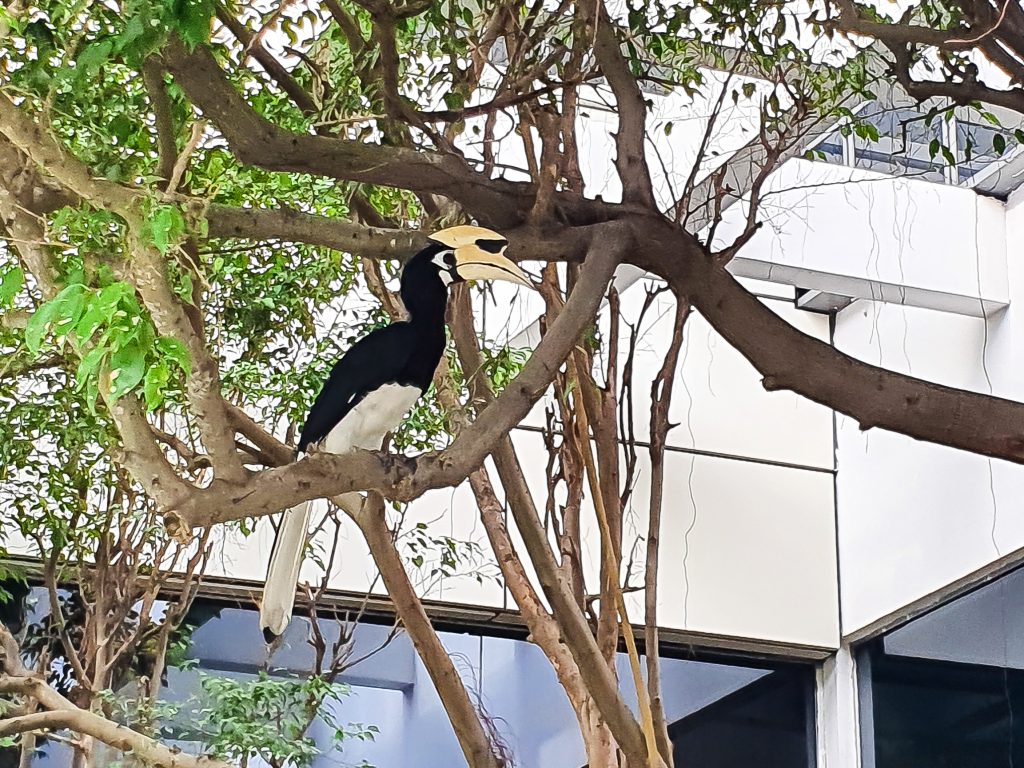 An oriental pied hornbill perches on a tree outside of AS7, Shaw Foundation Building. (Photo: Mr Athanasius Koh)
An oriental pied hornbill perches on a tree outside of AS7, Shaw Foundation Building. (Photo: Mr Athanasius Koh)
The oriental pied hornbill has certainly made an impactful comeback to Singapore’s shores. Once thought to be locally extinct, the large bird can be identified by its casque atop its beak as well as its black and white plumage.
Along with other “celebrity wildlife” like the otters in Singapore, the oriental pied hornbills’ return to the mainland can be largely attributed to conservation efforts by the National Parks Board, Wildlife Reserves Singapore and the local research community. These efforts include providing sufficient mature trees for hornbills that favour nesting in tree holes.
Spotted across a number of locations in Singapore, NUS is no exception. It has been spotted in University Town and around FASS Block AS1 as well as the trees outside AS7, Shaw Foundation Building.
Now that you have met some of the interesting wildlife that have called NUS their home, be sure to keep an eye out for our neighbours in nature between classes! Do appreciate them from a safe distance and refrain from feeding them.
This story first appeared on NUSnews on 17 June 2021.
NUS CHS Case Competition: Solutions for Tomorrow
IN BRIEF | 1 min read
- The NUS College of Humanities and Sciences has launched the Case Competition Series. Register your interest now!
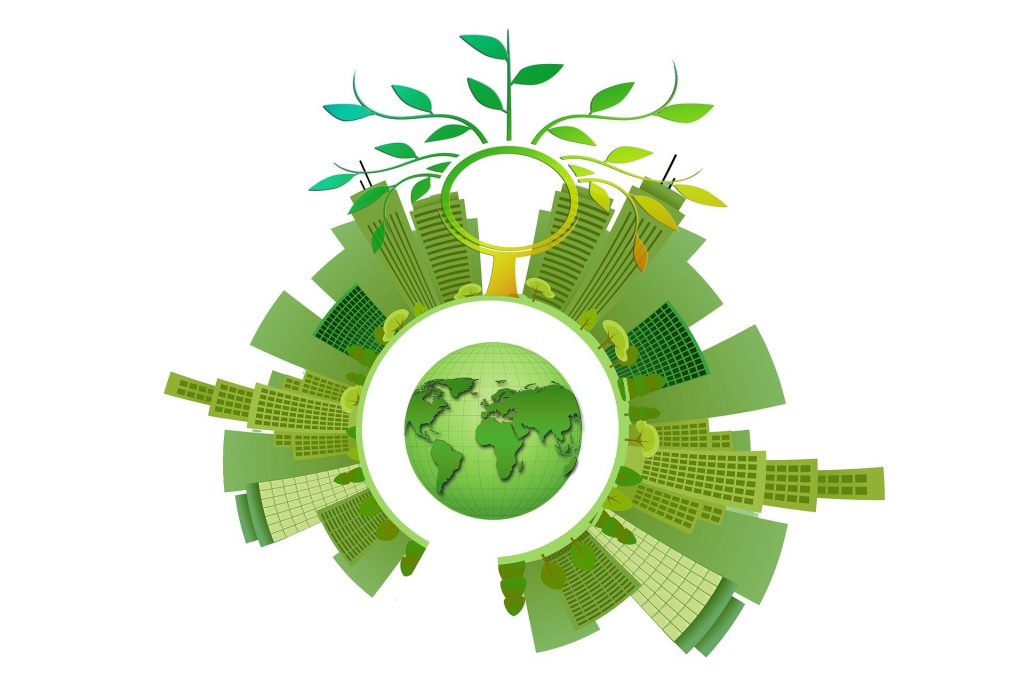 The NUS College of Humanities and Sciences has launched the Case Competition Series, which seeks to encourage undergraduate and post graduate students to apply their curriculum learning to tackle complex real-world challenges that require interdisciplinary approaches to their solution. The students, who are expected to work in teams comprising members from across different disciplines, will be presented with a complex problem (to be shared at the start of the competition in late July), and given four weeks to build their cases in consultation with participating industry and Faculty advisers before their presentation for the first round of judging. Scan the QR code below or just click here to register your interest as team leader for this competition now. More details will be released to participants next month.
The NUS College of Humanities and Sciences has launched the Case Competition Series, which seeks to encourage undergraduate and post graduate students to apply their curriculum learning to tackle complex real-world challenges that require interdisciplinary approaches to their solution. The students, who are expected to work in teams comprising members from across different disciplines, will be presented with a complex problem (to be shared at the start of the competition in late July), and given four weeks to build their cases in consultation with participating industry and Faculty advisers before their presentation for the first round of judging. Scan the QR code below or just click here to register your interest as team leader for this competition now. More details will be released to participants next month.
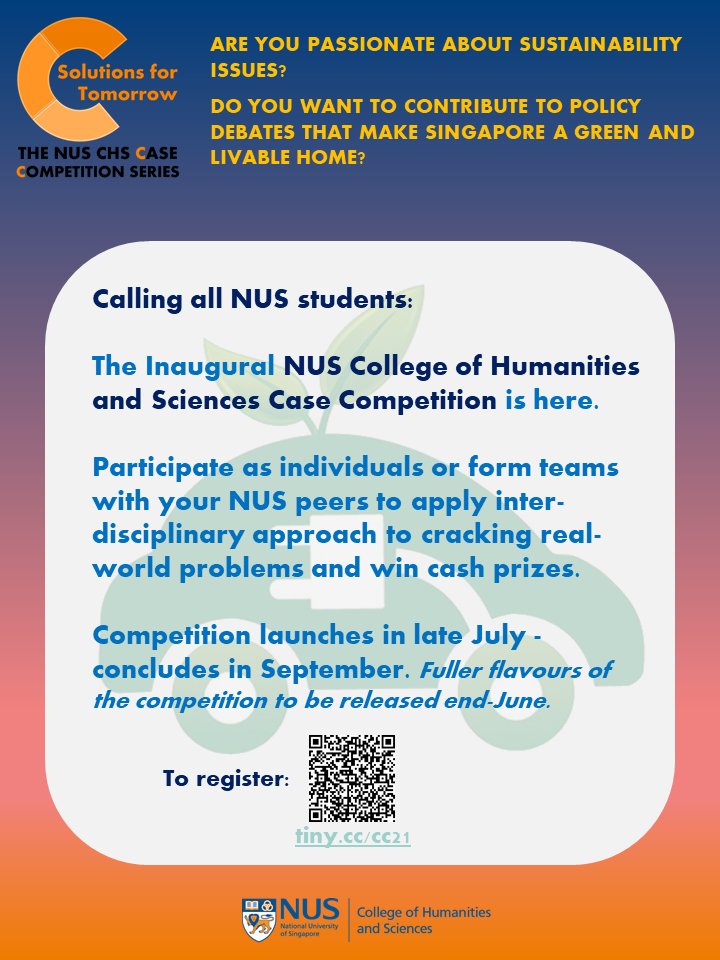
Honouring five outstanding alumni from Arts and Social Sciences
IN BRIEF | 3 min read
- Five exceptional NUS Faculty of Arts and Social Sciences (FASS) alumni from diverse backgrounds were lauded at the annual FASS Distinguished Arts and Social Sciences Alumni Awards 2020 in a simple presentation ceremony on 30 April at Swissotel The Stamford.
 (From left to right): FASS alumni Mr Yatiman Yusof, Mr Niam Chiang Meng, Ms Lim Sau Hoong, Mr Ravi Menon and Dr Liang Wern Fook have made singular contributions to the areas of the arts, education, media, finance, policy and community development.
(From left to right): FASS alumni Mr Yatiman Yusof, Mr Niam Chiang Meng, Ms Lim Sau Hoong, Mr Ravi Menon and Dr Liang Wern Fook have made singular contributions to the areas of the arts, education, media, finance, policy and community development.
Five exceptional NUS Faculty of Arts and Social Sciences (FASS) alumni from diverse backgrounds were lauded at the annual FASS Distinguished Arts and Social Sciences Alumni Awards 2020 in a simple presentation ceremony on 30 April at Swissotel The Stamford.
All have left their distinct mark in the wide-ranging fields that they serve. They are namely:
- Mr Yatiman Yusof (Geography and Malay Studies, ’72), Non-Resident High Commissioner of Singapore to Kenya
- Mr Niam Chiang Meng (Economics, ’83), Chairman of the Maritime and Port Authority of Singapore (MPA)
- Ms Lim Sau Hoong (Chinese Studies, ’83), Founder, Former CEO and Executive Creative Director of advertising agency 10AM Communications
- Mr Ravi Menon (Economics, ’87), Managing Director of the Monetary Authority of Singapore (MAS)
- Dr Liang Wern Fook (Chinese Studies, ’89 and Master of Arts, ’92), Writer, musician and educator
Congratulating the award recipients, FASS Dean Professor Robbie Goh said, “Ms Lim Sau Hoong, Dr Liang Wern Fook, Mr Ravi Menon, Mr Niam Chiang Meng and Mr Yatiman Yusof, have made singular contributions to the arts, education, media, finance, policy and community development. Not only do their wide-ranging achievements bring pride to the FASS family, but I believe that it also attests to the disciplinary range, intellectual curiosity and critical thinking that are the hallmarks of the FASS educational experience.”
This disciplinary diversity, Prof Goh elaborated, would soon be enhanced by FASS’ partnership with the NUS Faculty of Science in the NUS College of Humanities and Sciences (CHS) where students would be able to choose any major that is offered by both faculties. He added that this would be a major boost to FASS students’ educational experience as “the CHS common curriculum will prepare students for a disruptive world – by giving them a compulsory grounding in essential skills such as writing and communication, data literacy, digital literacy, design thinking and AI.”
Our alumni and their contributions
 Present at the ceremony were (clockwise from top left): FASS Dean Prof Robbie Goh; Mr Menon; Dr Liang; Mr Bernard Toh, Director of NUS Alumni Relations; Mr Niam; Ms Lim; Mr Yatiman; and NUS President Prof Tan Eng Chye.
Present at the ceremony were (clockwise from top left): FASS Dean Prof Robbie Goh; Mr Menon; Dr Liang; Mr Bernard Toh, Director of NUS Alumni Relations; Mr Niam; Ms Lim; Mr Yatiman; and NUS President Prof Tan Eng Chye.
A teacher and a journalist early on in his career, Mr Yatiman served key government appointments including as a Member of Parliament and Senior Parliamentary Secretary of the Ministry of Foreign Affairs and the then-Ministry of Information and the Arts, before his retirement in 2006. In addition to being Singapore’s non-resident envoy to Kenya, Mr Yatiman is a Board Member of the Singapore Press Holdings Foundation and the Chairman of the Malay Language Council of Advisors.
Contributing extensively to the public sector too was Mr Niam who served in the Ministries of Finance, Trade and Industry, Health, Law, and Information, Communications and the Arts – including Permanent Secretary appointments in several of these Ministries. He also served at the National Population and Talent Division, and the National Climate Change Secretariat. Aside from his current MPA chairmanship, Mr Niam is also the Chairman of Gardens by the Bay Pte Ltd and MediaCorp Pte Ltd.
A heavyweight in the media, marketing, and advertising industry, Ms Lim’s creative leadership of 10AM Communications has garnered over 300 prestigious global awards including The One Show, the Clio Awards, and the Communication Arts. Identified for her unique creative talent, Ms Lim was Visual Advisor to the Planning Committee for the 2008 Beijing Olympics’ Opening Ceremony and headed the Shanghai World Expo 2010 Singapore Pavilion Advisory Panel. In 2007, Ms Lim was awarded the President’s Design Award and was named Designer of The Year for her extensive contributions to media, marketing and culture in Singapore.
Prior to his appointment at MAS, Mr Menon served as Permanent Secretary at the Ministry of Trade and Industry, and Deputy Secretary at the Ministry of Finance. A recipient of the Singapore Government’s Meritorious Service Medal and Public Administration (Gold) Medal, he has served on boards in the public, private, and people sectors. He is currently Chairman of the Institute of Banking and Finance, and serves on the Board of Trustees of the Singapore Indian Development Association.
A singer-songwriter, poet and academic in Chinese literature and language, Dr Liang is a respected cultural figure and pioneer of Xinyao – a movement of locally composed Mandarin pop songs from the 1980s. To date, Dr Liang is the only artist who has received the National Arts Council’s Young Artist Award (Literature) and the prestigious Cultural Medallion (Music) across different art genres. He was also honoured recently with the Singapore Chinese Cultural Contribution Award for his outstanding contribution to the promotion, enrichment and development of Chinese Singaporean culture. His canon of work includes over 15 publications of literature, more than 200 songs, and two Mandarin musicals – a number of his most important works were written and composed during his university days.
On receiving the awards
Also present at the event was NUS President Professor Tan Eng Chye who presented the awards to the five alumni. Invited guests were also treated to videos of the award recipients who shared about their university days in FASS and their career highlights.
Recalling the moment he received news of the award, Mr Yatiman humbly shared, “To be frank, I’m quite surprised when I was told about it. And I thought there are hundreds, if not thousands of people who are more suitable to receive this award. I’m just a small worker in the community, not doing much in my lifetime. I think there are many others. So, for those who’ve been working hard for the good of the community, I take this award as recognition of their effort too.”
Mr Niam recalled some of his best memories were during university days where he learnt a lot about networking and life skills. It was also where he found his life partner. He said, “It is a privilege to be given this award. I would like to thank NUS and the organising committee for bestowing this honour on me and the other recipients…it means a great deal.”
 Taking the form of a rising star, the alumni award represents the inspiration these individuals bring to society through their brilliant contributions towards the Faculty, University and Singapore.
Taking the form of a rising star, the alumni award represents the inspiration these individuals bring to society through their brilliant contributions towards the Faculty, University and Singapore.
Established in 2015, the Awards recognise individuals for their distinguished scholarship and outstanding service to the Faculty, the University and Singapore. These outstanding recipients have made significant impact in various fields locally and internationally, which has contributed to the betterment and promotion of the arts and social sciences.
Previous recipients of the Awards include luminaries such as former President Mr S R Nathan, Emeritus Senior Minister and former Prime Minister Mr Goh Chok Tong, former United Nations Under-Secretary General Dr Noeleen Heyzer; Permanent Member of the Presidential Council for Minority Rights Mr Abdullah Tarmugi; and Executive Chairman of Banyan Tree Holdings Limited Mr Ho Kwon Ping.
Click here for more details on this year’s award recipients.
This story first appeared on NUSnews on 6 May 2021.
Singapore through the years: A digital cartographic record
IN BRIEF | 3 min read
- Professor Taylor and Associate Professor Feng Chen-Chieh, along with their department colleagues at NUS Geography, created Historical Maps of Singapore, an online resource hosted by NUS Libraries that provides a series of maps of different scales dating from 1846 to 2010.
 A plan of Singapore town and the adjoining districts produced by John Turnbull Thomson, a Government Surveyor, and published by J.M. Richardson in London in 1846.
A plan of Singapore town and the adjoining districts produced by John Turnbull Thomson, a Government Surveyor, and published by J.M. Richardson in London in 1846.
From quiet colonial backwater to thriving city-state, Singapore has undergone rapid transformation over the last 200 years or so.
If you are interested in finding out how the Central Business District has developed since the 1828 Jackson Plan or have a general interest in the country’s ever-changing landscape, do check out Historical Maps of Singapore, an online resource created by NUS Geography and hosted by NUS Libraries.
Historical Maps of Singapore provides a series of maps of different scales dating from 1846 to 2010. The maps have been carefully converted to a digital format and georeferenced to facilitate cross-comparison.
The work was funded through a Strategic Initiative award from NUS, and both the Singapore Land Authority and Ministry of Defence kindly provided permission for the maps to be made available online.
NUS Geography faculty members who worked on the project included the Head of Department Professor David Taylor, as well as Associate Professor Feng Chen-Chieh.
“Maps are extremely important resources, and not only for geographers. Maps are time-stamped windows not only on the ever-changing landscapes they represent in reduced form but also on the minds and values of the map-makers and those who they thought might be interested in the results of their endeavours,” said Prof Taylor.
“For example, the 1873 map shows the locations of 29 police stations, but only one hospital ~ was crime really a much greater concern than health in late 19th century Singapore? Making the maps available in digital form opens them to a wider audience and to new forms of analysis.”
 (From left to right) The changing landscape of the Telok Ayer Basin from 1860 to 1993.
(From left to right) The changing landscape of the Telok Ayer Basin from 1860 to 1993.
The online resource is being used in teaching by NUS Geography, and has proved particularly valuable during the COVID-19 pandemic when teaching was moved largely online.
The digitised maps have also been used in research. For example, geographers have used the maps as a basis for plotting changes in Singapore’s coastline and the extent to which coastal habitats such as mangrove forests have been lost, while researchers at NUS Chinese Studies have plotted changes in the locations of Chinese temples and kampungs – and in some cases their disappearances.
The Historical Maps of Singapore web-based resource has been made as straightforward as possible to use. Once on the website, users may select the maps that they are interested in and zoom in and out, revealing higher or lower levels of detail. They can also arrange several maps on top of one another as layers, and search for common features on the different maps. Layer swipes can also be done to compare different maps.
Clicking on the metadata, one can also view a description of the map, provenance and citation. These maps can be exported and viewed in Google Earth, QGIS or ArcGIS as layers. These features provide researchers and students from a range of disciplines with the analytical and visualisation tools needed to carry out more detailed studies of the digitised maps.
 Users may swipe to compare the maps over different years.
Users may swipe to compare the maps over different years.
Prof Taylor added, “The popularity of the Historical Maps of Singapore web-based resource has not surprised me. Singapore has changed so much in a relatively short period of time.
“Maps are one way of capturing and evaluating those changes. But they are capable of providing much more than a simple record of change. I hope that we are able to add to the current collection of digitised maps and associated resources in the coming years as we move increasingly into an era where geospatial information underpins so much of what we do and who we are”.
This story first appeared on NUSnews on 22 April 2021.
#DiscoverFASS@CHS 2021 | Sign Up for Masterclasses, Learn All About Our Majors
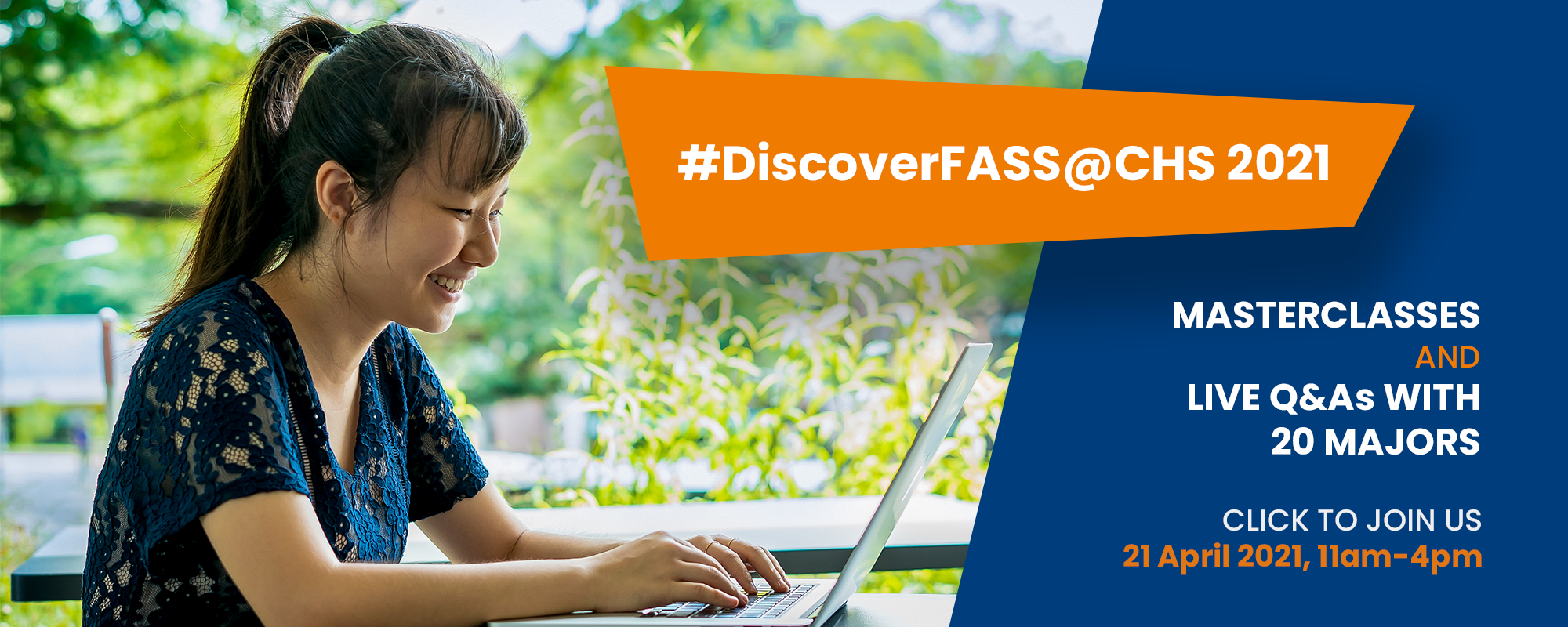
As part of the #DiscoverFASS@CHS campaign leading up to our Open House in May this year, we are holding 'live' Masterclasses presented by three of our award-winning Faculty members, and our Departments are hosting 'live' Q&A sessions for prospective students. These are opportunities not to be missed if you wish to know all you need to know about classes here and the myriad programmes available to you if you are a part of the FASS community. Masterclasses by Award-Winning Faculty
Experience lessons led by our dynamic faculty members.  Roasted Fetuses and Corpse Magic: An Introduction to Supernaturalism in Southeast Asia
Roasted Fetuses and Corpse Magic: An Introduction to Supernaturalism in Southeast Asia
Presented by Associate Professor Irving Johnson, Department of Southeast Asian Studies
The class aims to foreground the fascinating world of beliefs in supernaturalism that pervade Southeast Asian lives. Many of us enjoy telling and listening to creepy stories, watching horror movies on Netflix or dabbling in the esoteric. In this masterclass, we will look at some of the beliefs that structure constructions of the supernatural in modern Southeast Asia. The class revolves around a series of interrelated questions that seek to discover commonalities in popular belief systems and their prominence in the region, linking supernaturalism to larger issues of power, gender and politics. 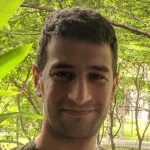 Evidence and Promise Making
Evidence and Promise Making
Presented by Assistant Professor Zachary Barnett, Department of Philosophy
Promise-making is an important part of life. We make promises to our friends, families, and significant others, and they make promises to us. We will look at a puzzle that arises when we think about "promising against the odds": How should I feel about making a promise, if I know that most of the people in my exact situation end up breaking that promise? For example, suppose that I promise to quit smoking cigarettes. At the same time, I know that most people who sincerely promise to quit smoking do not actually succeed on their first attempt. Should I believe that I will be the exception to the rule? If not, am I justified in making the promise in the first place? And if I do make the promise, should my friends and family believe me? These questions arise in many different contexts, ranging from the superficial to the serious, involving addiction or relationships. 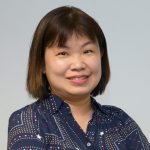 Making Sense of Self-Awareness and What That May Mean
Making Sense of Self-Awareness and What That May Mean
Presented by Dr Peace Wong Yuh Ju, Department of Social Work
In this talk, Dr Wong will attempt to broaden our understanding about ‘self’ and what that may mean to us. It is not uncommon for students in wanting to gain greater self-awareness with the attempt to learn more about one’s beliefs/feelings in relation to the observed world around us. Yet, how do we deepen our understanding of ‘self’, given that we are both familiar with who we are, and yet at times finding ourselves baffled by our reactions, and wondered why we respond in a certain manner? We will briefly discuss the various influences that may impact our values and beliefs, as well as consider what knowing your ‘self’ may mean to you.
To register for Masterclasses, click here.
Live Q&As with our Departments
Meet key Faculty and student representatives of every FASS Department and major programme in their respective Zoom meeting rooms and ask them specific questions about the requirements, content and value of the programmes they offer.
Department of Chinese Studies
The Chinese Studies Department provides training in diverse areas of Chinese Studies and Chinese Language, with the aim of preparing students for employment in a wide range of sectors. Graduates are offered career opportunities as professionals in the educational and business sectors, academia, the translation service industry and the mass media.
Join the Department's #DiscoverFASS@CHS 2021 'Live' Q&A session on 21 April (2-4 pm) here.
In the meantime, visit the College of Humanities Programmes page for more details on what this Department offers.
Department of Communications and New Media
Communications and New Media (CNM) at the National University of Singapore is the only Department in Southeast Asia that offers media studies, interactive media design, cultural studies, and communication management with a focus on new media.
Join the Department's #DiscoverFASS@CHS 2021 'Live' Q&A session on 21 April (2-4 pm) here.
In the meantime, visit the College of Humanities Programmes page for more details on the programmes offered by this Department.
Department of Economics
The Department of Economics has an established reputation as one of the largest and leading departments of Economics in the Asia-Pacific region. Faculty members’ research areas span a wide range of economic fields, with strength in the core areas of microeconomics, macroeconomics and econometrics, as well as in particular fields such as game theory and industrial organization, labor economics, education, financial economics, and growth theory and development with special reference to Asia.
The Department's #DiscoverFASS@CHS 2021 'Live' Q&A session on 21 April (2-4 pm) here. This session includes discussion of the Data Science and Economics Cross-Disciplinary Programme (DSE-XDP).
In the meantime, visit the College of Humanities Programmes page for more details on the programmes offered by this Department.
Department of English Language, Literature and Theatre Studies
The Department of English Language, Literature and Theatre Studies houses three undergraduate majors and three graduate programmes. The English Language major offers an education in linguistics, the study of human language. The undergraduate programme in English Literature is designed to provide a broad foundation in reading and analysing texts of all kinds. And, the Theatre Studies curriculum delivers education in all areas of theatre and performance history, production and interpretation.
The Department's #DiscoverFASS@CHS 2021 'Live' Q&A session on 21 April (2-4 pm) here.
In the meantime, visit the College of Humanities Programmes page for more details on the programmes offered by this Department.
Department of Geography
Modules in the Department of Geography are organized along four areas of enquiry: environmental processes and change; global political economy; society and culture; and regional specializations (with a focus on Asia). The Department also offers a Field Studies module in which students travel to countries in the region such as Thailand and Malaysia where they conduct field work and collect research material over a 3-5 week period. Home-stays and visits to local universities and key sites of interest are part of the overseas learning experience it delivers.
The Department's #DiscoverFASS@CHS 2021 'Live' Q&A session on 21 April (2-4 pm) here. This session includes discussion of the Bachelor of Environmental Studies Programme (BES-XDP).
In the meantime, visit the College of Humanities Programmes page for more details on the programmes offered by this Department.
Department of History
The Department of History offers training at undergraduate and graduate levels, and its teaching and research expertise lies primarily in the history of Southeast and East Asia, but there is strong selection of module offerings in European, American, and military history, as well as the history of art, business, religion, science and technology.
The Department's #DiscoverFASS@CHS 2021 'Live' Q&A session on 21 April (2-4 pm) here.
In the meantime, visit the College of Humanities Programmes page for more details on the programmes offered by this Department.
Department of Japanese Studies
Founded in 1981, the Department of Japanese Studies is one of the largest area studies departments devoted to the study of Japan in the Asia-Pacific region, and offers BA, MA and PhD degrees in Japanese Studies taught by specialists with qualifications from leading universities around the world.
The Department's #DiscoverFASS@CHS 2021 'Live' Q&A session on 21 April (2-4 pm) here.
In the meantime, visit the College of Humanities Programmes page for more details on the programmes offered by this Department.
Department of Malay Studies
The Department of Malay Studies actively engages in research on a wide range of issues concerning the Malay world from a multi-disciplinary perspective, promotes exchanges with centres of Malay studies worldwide, and encourages the development of new and alternative approaches to the understanding of Malay history, economy, politics, society and culture.
The Department's #DiscoverFASS@CHS 2021 'Live' Q&A session on 21 April (2-4 pm) here.
In the meantime, visit the College of Humanities Programmes page for more details on the programmes offered by this Department.
Department of Philosophy
The Department of Philosophy is one of Asia’s leading centres for philosophical education and research. It is the top English-language philosophy program in Asia, and the inaugural Asian member of the Australasian Association of Philosophy. The faculty members have a broad range of interests spanning diverse philosophical traditions, offer a philosophical education spanning diverse philosophical traditions.
The Department's #DiscoverFASS@CHS 2021 'Live' Q&A session on 21 April (2-4 pm) here. This session will also include discussion of the Philosophy, Politics, and Economics Cross-Disciplinary Programme (PPE-XDP).
In the meantime, visit the College of Humanities Programmes page for more details on the programmes offered by this Department.
Department of Political Science
The Department of Political Science offers modules in comparative politics, international relations, political theory, and public administration. It also houses the Global Studies Programme, a new, multidisciplinary field of inquiry that examines the processes and effects of globalisation across political, economic, social and cultural domains around the world.
The Department's #DiscoverFASS@CHS 2021 'Live' Q&A session on 21 April (2-4 pm) here. This session includes discussion of the Global Studies Programme.
In the meantime, visit the College of Humanities Programmes page for more details on the programmes offered by this Department.
Department of Psychology
The Psychology programme at NUS aims to equip students with knowledge in the key areas of psychology (such as human biological processes, developmental processes, social processes, cognitive processes, mental health and adjustment of individuals) as well as an understanding of the applications of psychology. It also develops skills for undertaking studies of behaviour, including statistical skills and the use of computers for data analyses.
The Department's #DiscoverFASS@CHS 2021 'Live' Q&A session on 21 April (2-4 pm) here.
In the meantime, visit the College of Humanities Programmes page for more details on the programmes offered by this Department.
Department of Social Work
The main objective of the undergraduate General and Honours degree programme offered by the Department of Social Work is to equip its graduates for entry into the social work profession at the direct-service level. Students are exposed to social service visits, skills laboratory training, fieldwork placements and module projects, among other applied learning methods.
Go to this Department's #DiscoverFASS@CHS 2021 'Live' Q&A session on 21 April (2-4 pm) here.
In the meantime, visit the College of Humanities Programmes page for more details on the programmes offered by this Department.
Department of Sociology
The Department of Sociology is a diverse, dynamic and innovative research and teaching unit with strong expertise in research on Southeast Asia, East Asia and South Asia as well as on Singapore society. One of the largest Sociology departments in the world, it offers comprehensive undergraduate, honours and graduate programmes, led by a group of dedicated and creative researchers and educators.
The Department's #DiscoverFASS@CHS 2021 'Live' Q&A session on 21 April (2-4 pm) here.
In the meantime, visit the College of Humanities Programmes page for more details on the programmes offered by this Department.
South Asian Studies Programme
South Asian Studies, as offered by the South Asian Studies Programme (SASP), focuses on the region comprising India, Pakistan, Bangladesh, Sri Lanka, Nepal, Bhutan and the Maldives. At the undergraduate level, students are offered a range of modules in economics, religious and cultural studies, history, international relations, philosophy, politics and gender studies. The aim is to provide graduates of the programme with a broad understanding of the region from different points of view - knowledge that will be useful in dealing with this changing region in the 21st century.
The Department's #DiscoverFASS@CHS 2021 'Live' Q&A session on 21 April (2-4 pm) here.
In the meantime, visit the College of Humanities Programmes page for more details on the programmes offered by this Department.
Department of Southeast Asian Studies
The Department of Southeast Asian Studies is located in the Asian Studies Division of the Faculty of Arts and Social Sciences, and offers distinctive programmes for anyone interested in studying Southeast Asia, from the undergraduate to the PhD level.
The Department's #DiscoverFASS@CHS 2021 'Live' Q&A session on 21 April (2-4 pm) here.
In the meantime, visit the College of Humanities Programmes page for more details on the programmes offered by this Department.
Centre for Language Studies
The Centre for Language Studies was established in 2001 to serve the foreign language needs of the Faculty of Arts and Social Sciences and has today over 80 full-time and part-time faculty members. It teaches thirteen different languages - Arabic, Bahasa Indonesia, Chinese, French, German, Hindi, Japanese, Korean, Malay, Spanish, Tamil, Thai and Vietnamese - to app. over 3,300 students per semester and thus helps them acquire a very valuable economic and social resource in today's world of growing globalisation and internationalisation.
The Department's #DiscoverFASS@CHS 2021 'Live' Q&A session on 21 April (2-4 pm) here.
In the meantime, visit the College of Humanities Programmes page for more details on the programmes offered by this Department.
Dr Nina Powell: Educating Students on How to Think
IN BRIEF | 5 min read
Senior Lecturer (NUS Psychology) Dr Nina Powell challenges her students with theoretical diversity and critical thinking. She tells and shows us that:
- Students should embrace uncertainty and questioning
- Theoretical diversity is critical for in-depth thinking and students should not be fed with simple answers
- Lectures are opportunities for frequent discussions of concepts and tutorials are for peer learning and reflection
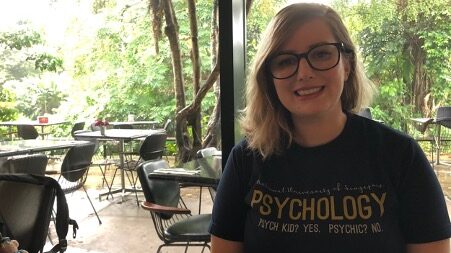
Educating is giving students a wealth and diversity of content that they then have to grapple with, and not just providing them with answers or simple conclusions, according to Dr Nina Powell, Senior Lecturer from the NUS Department of Psychology, sharing the main principle that guides her approach to teaching.
Dr Powell was one of 36 recipients of the Faculty Teaching Excellence Award (FTEA), awarded to outstanding NUS Faculty of Arts and Social Sciences (FASS) faculty members for their high level of commitment in Academic Year 2019/2020.
“Educating is not telling students what to think, it’s educating them on how to think. And they don’t always have to like it in the short-term,” she said. “If we know that something is going to benefit students in the long-term, and that the discomfort that comes with meaningful growth is worth it in the end, then that is good enough.”
Lectures as Opportunities for Discussion Breaks
Whenever Dr Powell, who started teaching at NUS as a post-doctoral teaching fellow in 2013, is running her lessons she always ensures she focuses on: motivating students to embrace uncertainty and questioning; being transparent with students about the educational value in everything that she is doing; and emphasizing how critical theoretical diversity is to in-depth thinking.
Dr Powell is the creator of The Psychology of Moral Judgements (PL4235) module, which explores how people make moral judgments psychologically, philosophically, biologically, socio-culturally and historically, and which she proudly refers to as her “baby”. She currently also teaches Introduction to Psychology (PL1101E) and Developmental Psychology (PL3234).
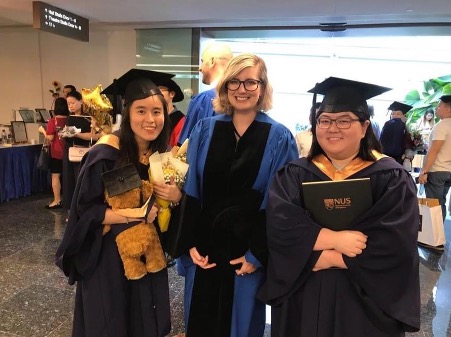
Stressing that educators do students no favours by overwhelming them with information without giving them the space to reflect on what they have learned, Dr Powell said she has “reimagined lectures as an opportunity for frequent discussion breaks between concepts, and tutorials as an opportunity for complete peer learning and reflection.”
She allots ample time during lectures to engage with student questions using the onlinequestions.org website and redesigns her tutorials such that students attend the sessions having already learned the lesson material. She sees to it that they discuss complex reflection questions in small breakout groups, and that they work together toward concretising their discussion points and responding to one another’s points or respond to their classmates’ points via the online collaborative learning tool called Padlet.
Asked for her thoughts on the most rewarding aspect of her job, Dr Powell said she has received emails from current and former students telling her that they “get it” – that they are more confused than ever about the answers to the big questions in the field, but that it motivates them to read and search more. “That’s when I feel like I might be doing my job properly,” she said.
Grooming Confident Students with Stronger Ideas
According to Yip Yun Ting (Class of 2019, Psychology), Dr Powell always goes beyond what is expected of her as an educator by taking it upon herself to develop her students as individuals. Yun Ting, who had previously been supervised by Dr Powell for her Honours Thesis, appreciated how Dr Powell went the extra mile to help her understand concepts, present ideas and craft arguments better.
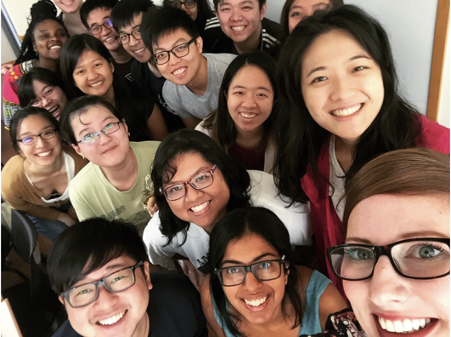
“For example, besides providing all her thesis students with optional weekly individual supervision, she arranged extra group supervisions with at least 15 other thesis students, just so that we could have exposure to thesis oral presentations, oral defense and to become confident presenting and defending our ideas,” Yunting said.
“As her supervisee for my thesis, I always viewed her as a very adaptable, intelligent and humble individual, who was always ready and competent to explain complex and abstract psychological constructs in a simple and jargon-free manner,” she added.
Champion of Peer Learning and Collaboration
Outside of her own classroom, Dr Powell is also committed to assisting her colleagues with their career and pedagogical development. As part of the Career Advancement for FASS Educators (CAFÉ) Committee which was inaugurated early this year, she has led, co-organised and co-hosted weekly sharing sessions on e-learning classroom innovations and insights on career development with her fellow educators.
She also founded MADE in Psych (Mentoring and Demystifying Education in Psychology), where she mentors and shares her teaching plans, practices, tools and tips with colleagues in the Department of Psychology.
“This has been the most unexpected joy of the job,” Dr Powell said of her mentorship role. “It motivates me to be better, try new things, find out what works well so I can report back. It feels like a collective responsibility to make all of us as good as we can possibly be and find as much meaning in our educational practices as we possibly can.”
This story is part of a series highlighting the pedagogical approaches of FASS Faculty Teaching Excellence Award 2020 recipients.
Award Citation
"Mr Jonathan Sim came to his task firmly aware that students’ anxiety can be impediments to their learning, limiting their ability to fully realize their potential. This challenge is especially acute in his case, given that he teaches data analysis and coding to students from the Arts and Social Sciences. The blended-learning format of his high enrolment module introduces other challenges as well, as online learning can be cold and impersonal given the diminished opportunities for social interaction, leading students to think that they are faring worse than their peers, which further affect their confidence and motivation to learn."
—FASS Faculty Teaching Excellence Committee (FTEC) chaired by Vice Dean (External Relations and Student Life) Associate Professor Loy Hui Chieh, and comprising Associate Professor Christopher Michael McMorran (Japanese Studies), Associate Professor Stephen Lim (Psychology), Senior Lecturer Gilbert Yeoh (English Language and Literature), and Senior Lecturer Chen Ingru (Centre for Language Studies).
Beyond the classroom: Innovations that change the world

IN BRIEF | 5 min read
- Find out why these six entries stand out among the 32 proposals submitted to the NUS Resilience and Growth Innovation Challenge this year
Sometimes, a bright idea is all it takes to spark a global transformation.
With that in mind, the NUS Resilience and Growth Innovation Challenge had invited recent NUS graduates to submit inspiring proposals under three categories:
- Make Our People Better
- Make Our Society Better
- Make the World Better
As COVID-19 remains a threat, initiatives in the “Make Our People Better” category aim to improve quality of life through better home-based learning and promoting sustainable food consumption. The evaluation panel was led by Ms Melissa Kwee, CEO of the National Volunteer and Philanthropy Centre, and Professor Simon Chesterman, Dean of NUS Law.
Projects in the “Make Our Society Better” category aspire to create a more cohesive society. The panel was helmed by Ms Tan Li San, CEO Designate of the National Council of Social Service, and Professor Robbie Goh, Dean of NUS Arts and Social Sciences.
Proposals under the “Make the World Better” category include eco-friendly products and projects to arm youths with the relevant skills to thrive in a globalised world. The panel was co-chaired by Professor Tommy Koh, Rector of NUS Tembusu College, and Professor Phoon Kok Kwang, NUS Senior Vice Provost (Academic Affairs).
“As future leaders of society, our youth carry the responsibility of leaving their mark on the next generation. In this regard, it is heartening to see them championing causes that can positively impact the world,” said NUS President Professor Tan Eng Chye.
NUS is continually reviewing new proposals that are streaming in. The University intends to support 115 projects in all, a nod to its 115th anniversary that is being celebrated this year.
These six ideas stood out from the 32 projects supported so far.
Encouraging budding home farmers
Lettuce, mint and even tomatoes – Singaporeans may soon be able to grow these vegetables and more in their HDB flats.
Having witnessed “a deep psychological fear” when COVID-19 sparked panic buying here, Toby Fong and his team – superFARM – decided to bolster the nation’s food security. Their plan? Encourage green fingers through home-based farming.
“When we think about food security, it’s usually at a national level so it almost feels like the individual (is disconnected) from the entire food security equation,” said Toby, who graduated with a Master’s from NUS Architecture this year.
Under the “Make Our People Better” category, Toby, NUS Computing graduate Lim Hui Qi and NUS Arts and Social Sciences graduate Ong Jun Ren will design modular farming units that can fit into the smallest of homes. These units can also be customised for bigger spaces.
The plan is to transform niche hydroponics systems into functional mini-farms. In the next six months, half of their $50,000 funding will go to research such as field testing and online surveys, while the rest will be used for prototype development.
The team also wants to expand the individual’s role in food security to make sustainability a way of life.
“We want to recalibrate people’s attitude and behaviour to encourage responsible food consumption,” said Toby.
Making science fun for kids
Using portable science kits, sci@home is a project that will support community outreach efforts during the year-end school holidays by making science fun for underprivileged children.
“COVID-19 has unfortunately disrupted physical community engagement and outdoor learning opportunities for children, especially those from disadvantaged backgrounds,” said team member Lau Shi Yun, a NUS Physics graduate.
A $49,000 grant will allow Shi Yun and her four teammates – NUS Life Sciences graduate Chee Min Yee, NUS Psychology graduate Constance Seah, final-year Life Sciences student Pang Seok Mun and final-year NUS Chemistry student Jane Yap – to provide the kits for free. Each comes with the necessary materials and an activity booklet to help users understand the content better.
The five came together for this project that falls under the “Make Our People Better” category.
Faculty of Science undergraduates from Young Educators in Science – a programme that trains students to teach science – will serve as facilitators. They will conduct in-person and online sessions on how to apply scientific concepts such as density and polarity in real life.
With a supplementary YouTube channel, lessons are made more accessible as children can revisit previous experiments and clarify doubts anytime.
The kits will be distributed to beneficiaries by community partners. Sci@home will also use the grant to develop new kits once a month and beef up their online engagement tools and platforms.
“By tackling some of the challenges that these children and their families may face, we hope to help these young children adapt to home-based digital learning,” said Seok Mun.
Connecting generations through collections
At Tiny Museums, Singaporeans can explore an online trove of personal collections – ranging from ancient kerises to vintage vinyls – with guided tours from their owners.
The brainchild of Chua Ying Qing, Bu Dongqing – Master’s in NUS Southeast Asian Studies graduates – and Jamie Lee, the initiative aims to foster intergenerational connection under the “Make Our Society Better” category.
“The divide between older and younger generations is a growing concern in Singapore, and bridging this gap can seem like quite an insurmountable task,” said Jamie, a Southeast Asian Studies graduate.
Seeking a creative approach, the team linked up with The Folklore Archives, a group that organises in-person tours showing private collections of senior citizens to students and members of the public.
When COVID-19 hit and gatherings were banned, Tiny Museums tapped The Folklore Archives’ projects to build an online platform offering virtual tours.
While the duration and number of participants per session are still being firmed up, the team has partnered with schools and senior care centres for trials.
To widen their collection, the team has reached out to more senior collectors via Facebook and WhatsApp, and are currently screening potential candidates. There are also plans to use their $50,000 grant to create short films for collectors to showcase their wares.
“(Through this project), we hope to spark organic interactions between individuals of different ages and backgrounds,” said Jamie. “Ideally, we’d like to recreate that sense of intimacy in the original Folklore Archives sessions.”
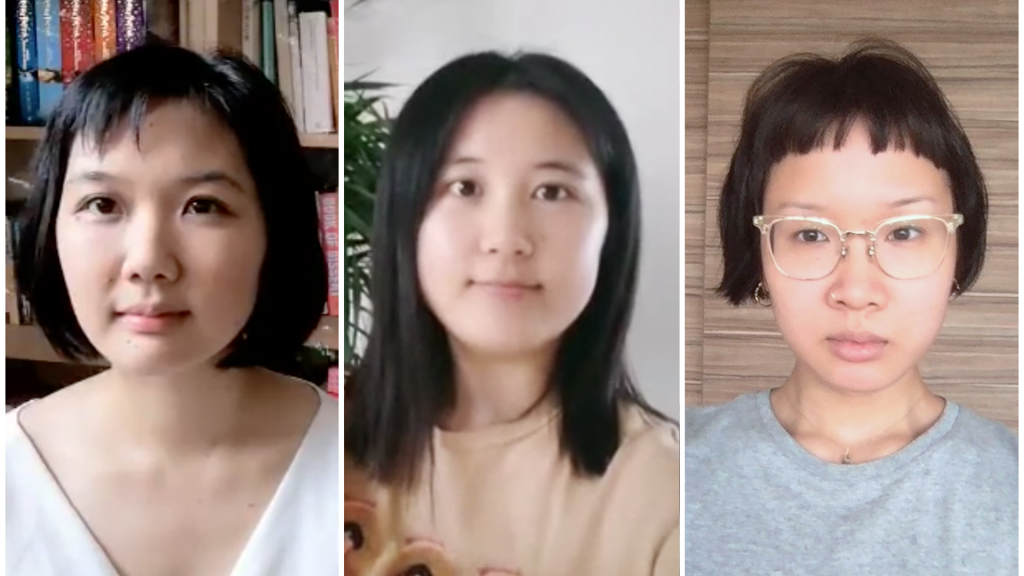
Building digital bridges for mentorship
Entering the workforce can be intimidating for soon-to-be graduates. But with a helping hand, the transition from student to professional life can be smoothened
For NUS Mechanical Engineering graduate Shaik Jifridin and his team, they realised the importance of networking and value of building a mentorship culture with people who are successful in their own disciplines.
But connecting with the right people was difficult. The restrictions during the COVID-19 pandemic made things worse by curtailing physical interactions.
To bridge the gap, Shaik and his team created With.Network, an online social platform for NUS students that forges seamless connections through sharing of ideas and collaborations.
“We want to redefine mentorship and allow schools to scale mentorship operations,” said Shaik, who counts fellow Mechanical Engineering graduate Mohammad Azfar, NUS Computing Science graduates Shradheya Thakre and Ryan Ang, and NUS Communications and New Media graduate Vivian Ngiam as his teammates.
The platform allows students and alumni to connect in a private network and engage meaningfully under the guidance of NUS. Mentees can view available mentors from various industries such as advertising or IT. The platform’s settings also allow mentors to choose how often they prefer to be contacted.
Its pilot run in February 2021 will include 50 students paired with several alumni of NUS Enterprise, the university’s entrepreneurship arm.
“We found that most alumni who have been in the workforce for at least five years are open to share their knowledge and mentor students from their alma mater if approached,” said Shaik.
By fostering greater collaborations within the school network, the team hopes to create a stronger, lasting mentorship culture.
Bag it up, we’re going green
As clothes and groceries arrived at his doorstep during the circuit breaker period, NUS Engineering graduate Sean Lee soon discovered that his online buys came with piles of plastic bags.
While e-commerce has certainly made his life easier, the amount of packaging waste spurred him and four friends to propose an eco-friendly alternative.
“The items are brought to us, so the extra packaging doesn’t make much sense,” said Sean. “This puts a lot of pressure on the consumer to be responsible (in disposing of) this packaging.”
Together with fellow Engineering alumni Jeremy Chew, Marcus Lo and Cui Wenshuo, and NUS Science graduate Edwin Wong, Sean pitched their ECOPack idea under the “Make the World Better” category.
Made for online customers, the eco-friendly carrier is designed to be durable, easy to clean and highly functional.
Customers can drop the bags off at easily accessible businesses such as supermarkets and retail stores working with ECOPack. It is a win-win partnership as brands can embrace sustainability while increasing foot traffic.
The ECOPacks will be collected and sent for cleaning, while quality checks will be done at a central location to ensure a longer lifespan to offset the carbon footprint caused by production.
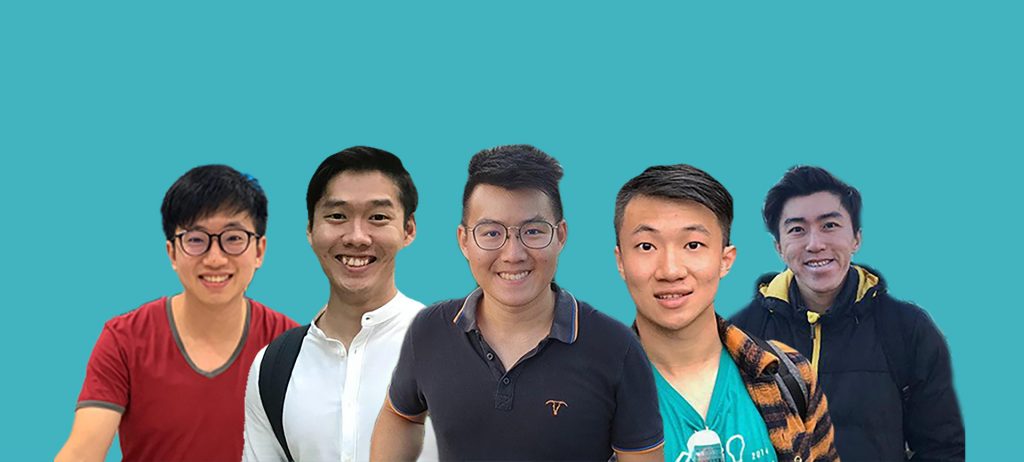
Empowering Asian youth in underserved communities
As children who led nomadic lives in Mongolia, Temuulen Bayaraa and Solongo Batsuren overcame the odds to become successful young professionals today.
Their experience motivated them to empower the next generation through self-development programmes. Together with fellow Mongolians Saruul Khatanbaatar and Binderiya Makhbal, who are all Master’s in Public Policy graduates, they created Equity Lab.
“(Mongolian youth) want to be provided with the opportunities to grow and the ability to be in charge of their future,” said Saruul, whose team participated in the “Make Our People Better” category.
They discovered that nearly one in three Mongolians live in extreme poverty, a systemic issue perpetuated by poor access to quality infrastructure and services. However, the lack of social mobility was something they could address.
From their research, the team found that 15- to 18-year-olds would benefit most from their project. Through workshops, the youngsters will gain financial and communication skills, digital literacy and a better idea of their career prospects.
With their $50,000 grant, Equity Lab will develop educational resources and activities, and use a digital tool that offers gamified solutions to attract and incentivise students.
Their prototype will be tested with a partner school on the outskirts of Ulaanbaatar. Once successful, they plan to expand the programme to similar underserved communities across Southeast Asia.
“We want to see many more youths who are confident in their future and have the will to create positive impact both locally and globally,” said Temuulen, co-lead of Equity Lab.
This story first appeared in NUSnews on 14 December 2020.



